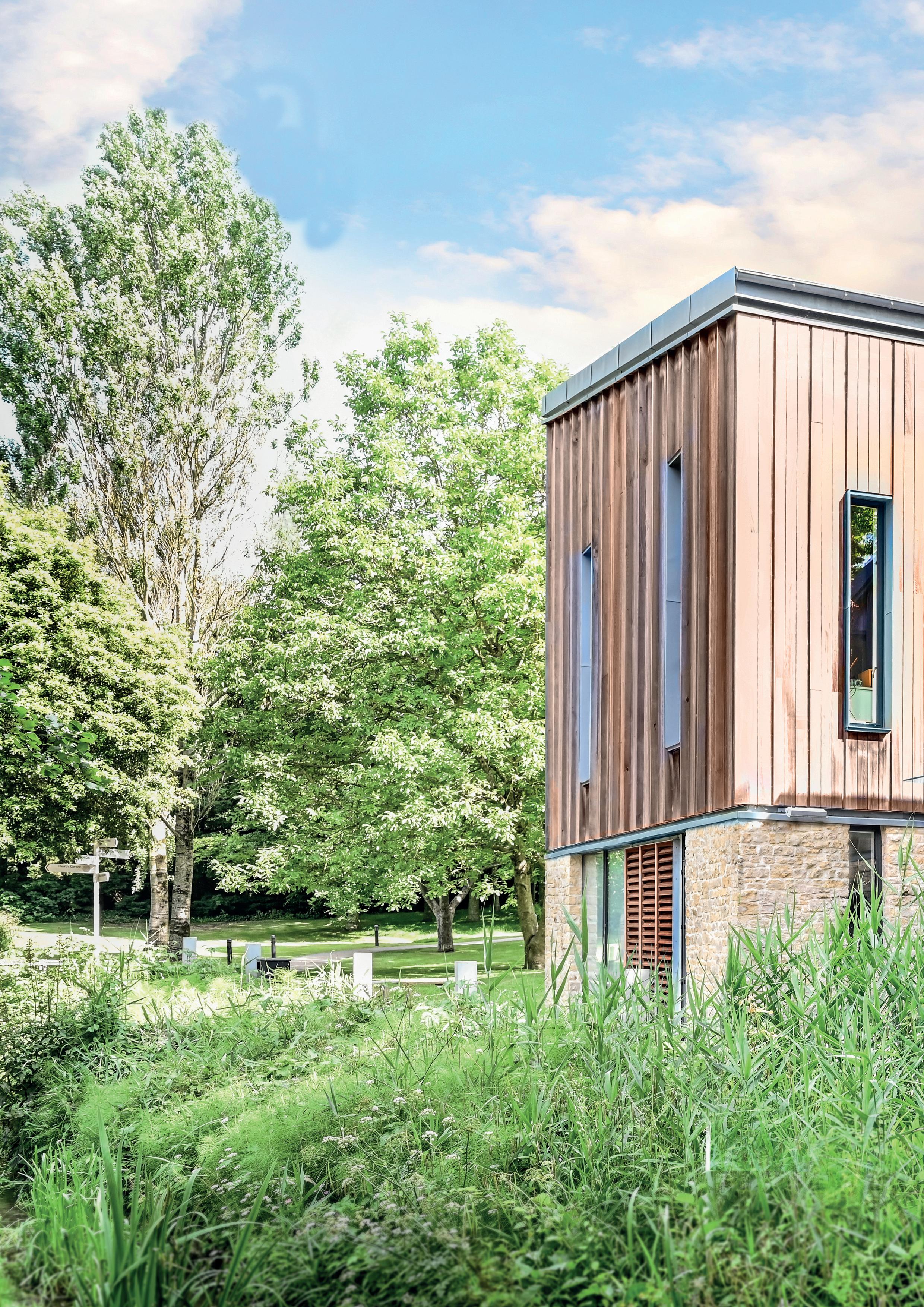
2023/24 SHIRBURNIAN THE


2023/24 SHIRBURNIAN THE
THE WEEK
BEST OF THE BEST SCHOOLS AWARDS GREAT FOR CO-CURRICULAR

INDEPENDENT SCHOOLS OF THE YEAR 2024
FINALIST
INDEPENDENT BOYS’ SCHOOL OF THE YEAR
The past year has certainly been an interesting one. The external environment has presented us with a number of challenges, not least the advent of a Labour government ill-disposed towards independent schools. Yet despite such things, the School has continued to thrive. As you will read in the pages that follow, our boys have continued to excel in a plethora of academic, creative, cultural, sporting, and adventurous endeavours. They have also shown themselves to be engaging, thoughtful and decent young men aware of both their good fortune and the attendant obligations to help others to whom life has been less kind.
Our boys’ achievements serve to reinforce the pride we can all feel in being part of our School community. They should not, however, tempt us towards complacency. The world presents us with a bewildering range of opportunities and challenges which we need thoughtfully to navigate if we are to remain successful and relevant. Above all, we have a responsibility to educate our boys in a way that allows them to embrace a future that we can only begin to imagine.
This is, perhaps, most obviously true with regards to our engagement with technology. We live in an increasingly technological world, many of the theoretical underpinnings of which
can be traced directly back to the brilliant work of Old Shirburnian Alan Turing. The impacts of Turing’s pioneering work on computing and artificial intelligence have already been profound and will be ever more significant in the years ahead. It is incumbent upon us, as the inheritors of Turing’s legacy, to teach our boys the skills they need successfully to navigate this digital world.
At the same time, however, we need to ensure that our boys can make constructive use of technology without becoming overly dependent upon it. The classroom should be the place where children are inspired to learn. Technology can
undoubtedly support that learning and help engender a sense of awe and wonder. But it cannot replace the power of human interaction as the prime source of inspiration and of the joy that comes from collective intellectual endeavour.
We will, therefore, ensure that technology remains but one element of our pedagogic armoury and that a Sherborne education never becomes so tightly focused that it subordinates or ignores the knowledge, skills, and attributes that our boys need if they are to enjoy lives suffused with success, fulfilment, and joy.
Our wider provision must also continue to be both excellent and distinctive. That is one of the
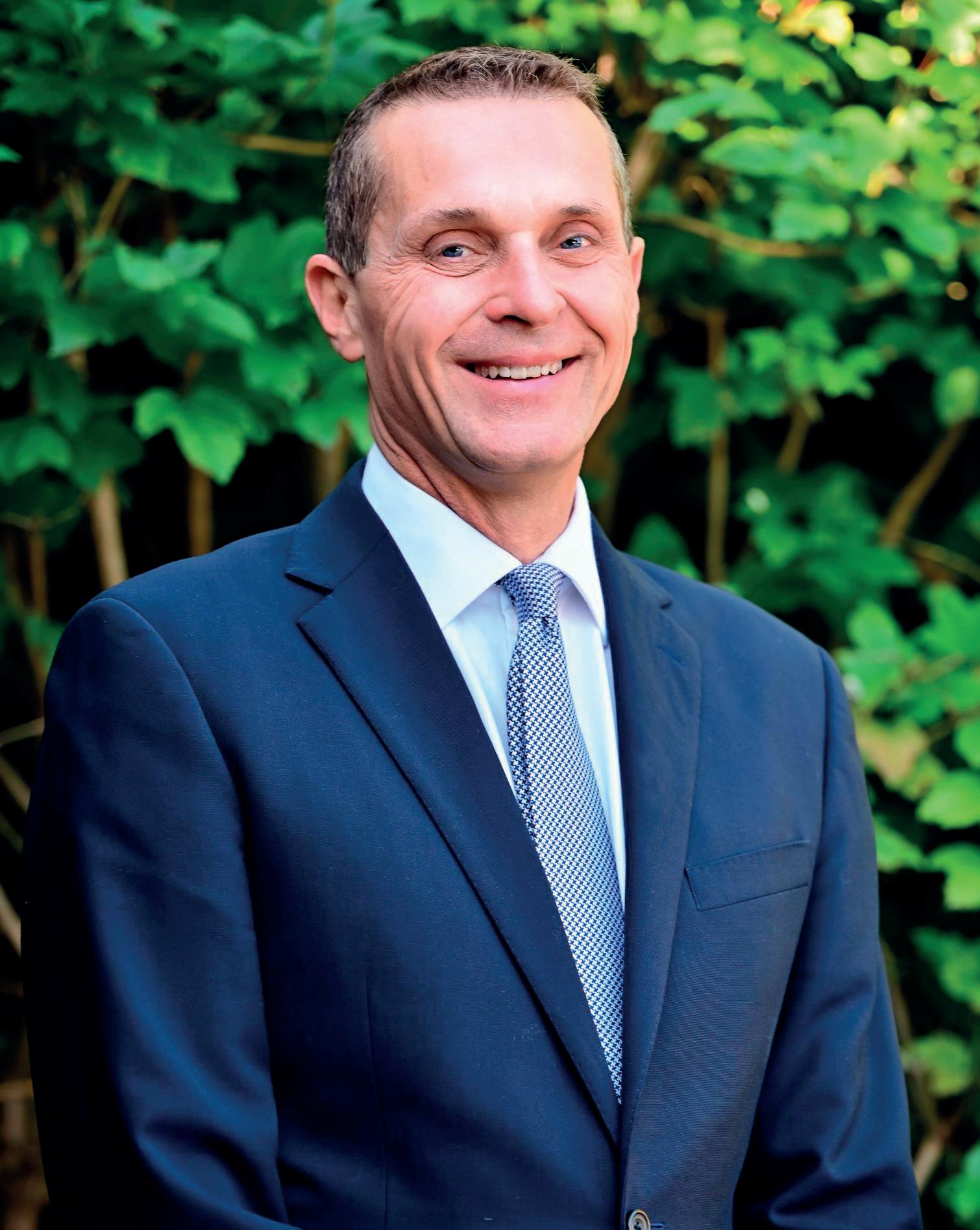
reasons why, after many years of working closely together, we formally merged with Sherborne Girls on 1 July. By creating a larger, stronger group of schools, the merger not only secures the long-term financial future of our schools but allows us to work more closely together in the interests of current and future generations of pupils.
The merger is an essential element of the futureproofing that will allow us to remain a leading force in independent education. Although it is a significant development, much will stay the same. We will remain a single-sex boarding school and will continue to give every boy the greatest range of academic and co-curricular opportunities; the highest standards of care; and the confidence that will allow them to be successful contributors and leaders in a complex and breathtakingly dynamic global society.
We will stay true to our mission to inspire the boys and excite them about academic inquiry and exploration. They must be able to make sense of the world but still be awestruck by it. They must have respect for other people and our planet alongside a belief in their own ability to make a lasting difference. Whilst appreciating that the world is complex and unpredictable, we must also encourage them to embrace rather than fear it. Above all, we must help them to look ahead with optimism and excitement and to view themselves as agents of positive change.
We will also continue to focus upon values. I want Sherborne to be an innovative, ambitious, and successful School. But above all, I want it to remain a kind School where decency and generosity are valued at least as
highly as accomplishment. I want every boy at Sherborne, now and in the future, not merely to achieve great things, but to enjoy their time here. I want them to forge lifelong friendships; enjoy the camaraderie of the boarding House; and to look back fondly upon their years with us. And I want them to be decent, caring, and empathetic young men possessed of a desire to do good and to help others. For it is those things that distinguish the most worthwhile people from the merely successful.
That is, and will remain, the essence of Sherborne. We should be unashamedly proud of who we are and what we are. Most of all, we need to ensure that everything we do is in the interests of the boys and delivered to this highest possible standard. For that is how we will ensure that our School continues to offer the outstanding educational experience for which it has for so long been justly renowned.
VIVAT SHIRBURNIA!

Dr Dominic Luckett Headmaster and Chief Executive
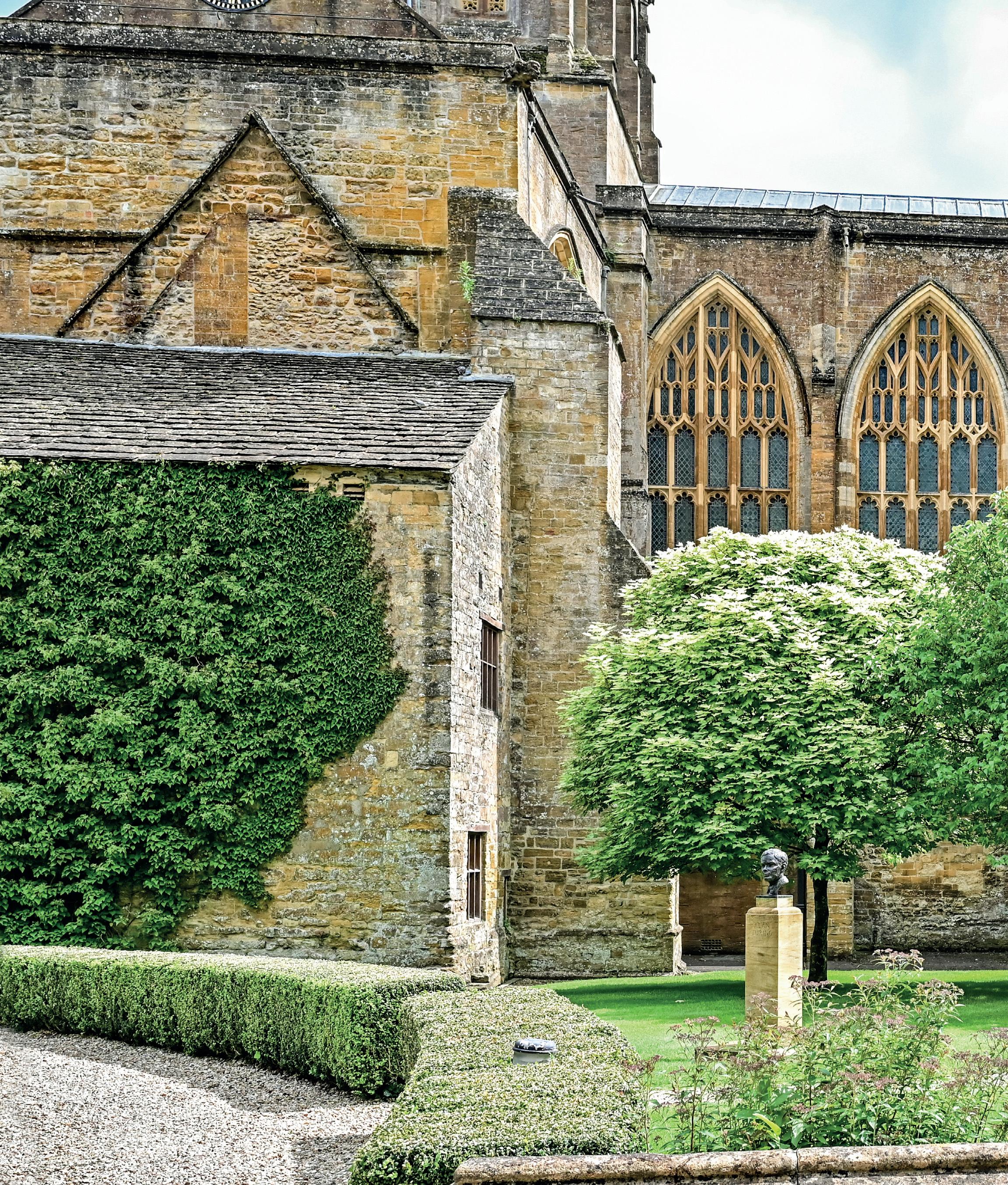
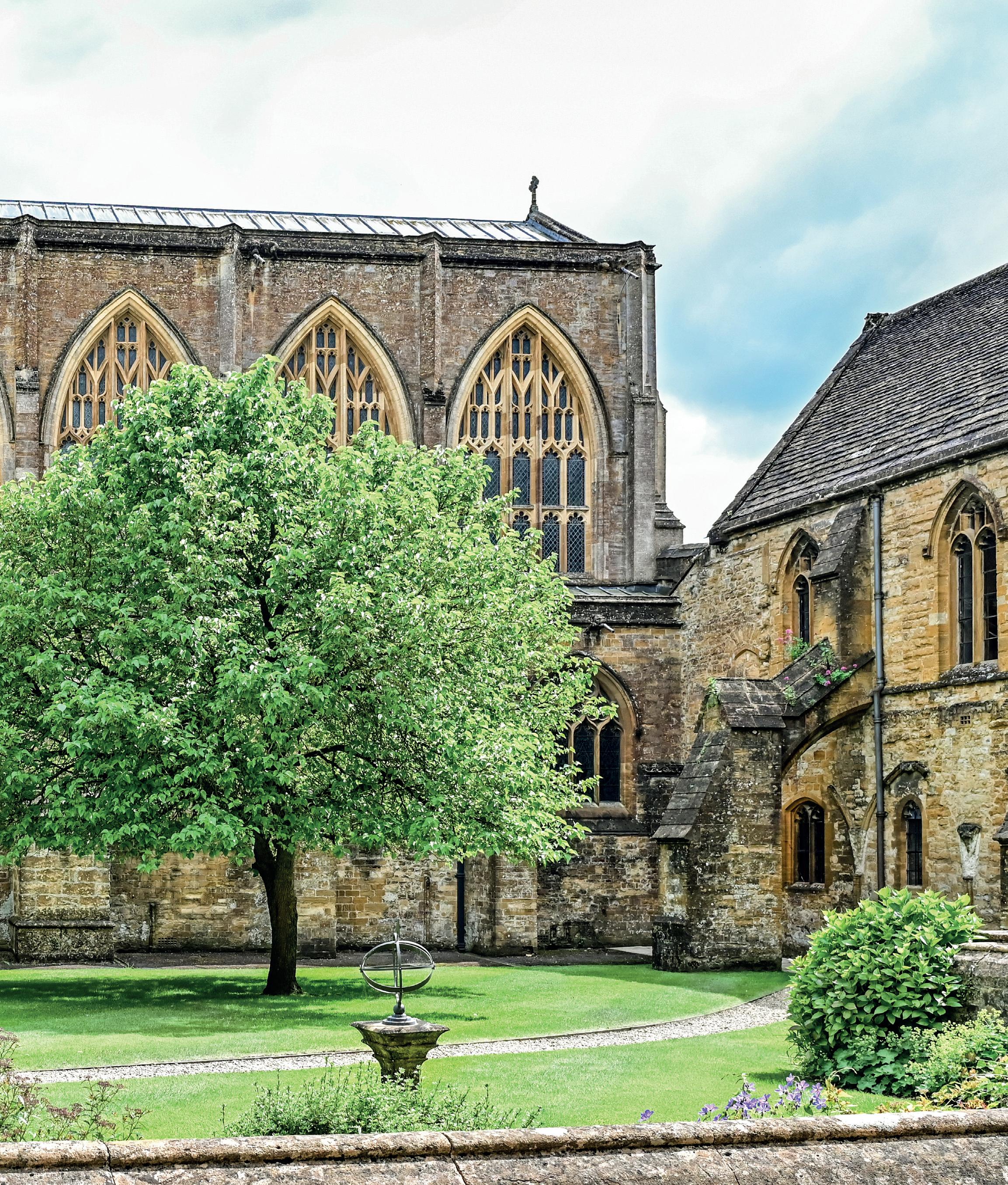
COMMEMORATION DAY
MUSIC
CREATIVE WRITING
ACADEMIC
CO-CURRICULAR
BOARDING HOUSES
SPORT
FAREWELLS
WELCOMING NEW STAFF
As always, I am extremely grateful to those boys who have served in senior leadership positions over the course of the year. Our Heads of School, Hector Kennerley, U6g, and Alex Upton, U6e, have been particularly impressive, leading the Prefect team with distinction and displaying personal qualities of the very highest order. Both are conspicuously kind, thoughtful and empathetic young men and it has been a privilege to work with them. I extend my sincere thanks to them as I do to all the year’s School and House Prefects and the many other boys who have devoted time to leading and serving others.
Dr Dominic Luckett
Headmaster and Chief Executive
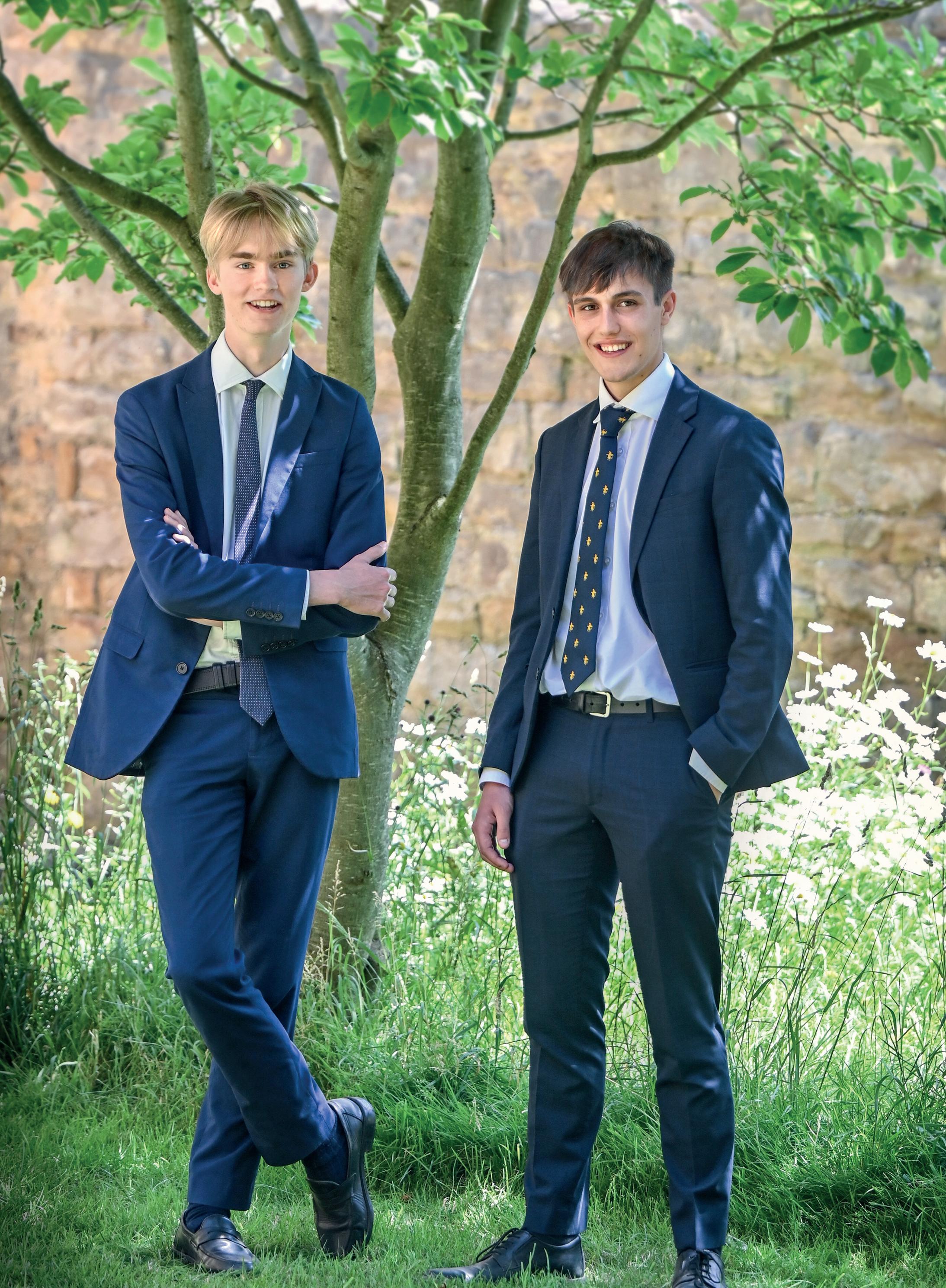
Our Heads of School for 2024/25 will be
and
The Courts, the Abbey, the playing fields, the BSR and many other buildings look much the same now as when I first walked through them as a fouryear-old boy living in Sherborne in 1956. They seemed much the same when I spent five years in the School in the late ‘60s, when I paid the school fees for my sons in the ‘90s and ‘00s, and as a Governor over the last six years. How deceptive appearances are. So much in the School has changed, not just in my lifetime but at greater pace in recent years.
Of course, there are some new buildings – the spectacular new Sports Centre which complements the adjacent Music School. However, perhaps more significant in the history and development of the School have been other flagship changes.
COVID accelerated the School’s passage into and through the digital era and now into the jungle of AI opportunities and pitfalls. Teaching and learning methods are going through a revolution in which Sherborne is a leader – not distracted by the educational fad of the day - but adopting a long term and considered evolution so that the best of what is considered ‘traditional’ is not lightly discarded.
The School is no longer a single standalone entity. Merging with Sherborne Prep in 2021 added numbers, scale and opportunities for collaboration, efficiency, and economy. Merging with Sherborne Girls and Hanford Prep in 2024 has quadrupled those opportunities and positioned Sherborne in a Group of Schools with the scale and agility to adapt to the changing demands of parents, education, and the Government.
The merger with Sherborne Girls which the Headmaster has described in his Introduction has been a happy marriage. Many, if not all, messages which I received applauded the announcement of the merger and only questioned why it had not happened years
earlier. The truth is that there had been previous merger discussions, but neither the ‘need’ nor the ‘chemistry’ was right at the time. For the record, the first discussions of this successful merger with SG took place in December 2022. That it took 18 months to complete the process was due to the complex legal and regulatory planning for it and also running the School operation at the same time.
It is also worth recording that the negotiations and discussions to agree the merger have been almost entirely amicable and constructive, albeit with some lively discussion on a few points. Moreover, the merger decision was agreed with unanimity by the Board, not least through the
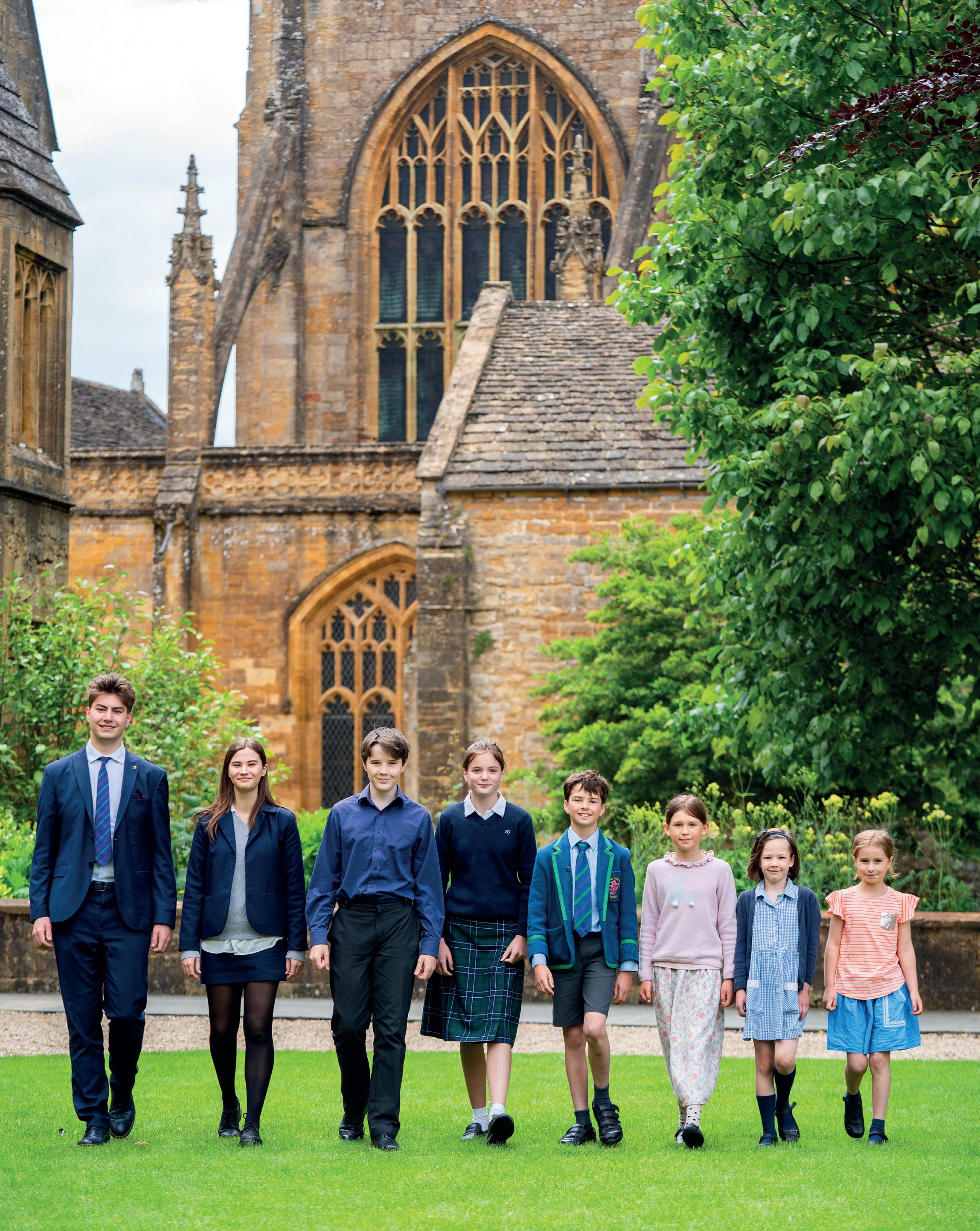
encouragement and drive of both the Headmaster and, of course, the Bursar on whom most of the detailed administrative and management burden has fallen.
Most boys (and parents), although I may be speaking from my own narrow perspective, are barely aware of the Governors - who they are or what they do. Typically, when ‘things’ are running smoothly, a strategic touch on the tiller - confirming the budget and setting the fees - comprise the largely invisible and unglamorous Governors’ role. Three formal Board meetings each year interspersed with subCommittees on discrete areas of the School’s operation and a day set aside for Strategy are the norm. But not so in the last year.
The number of Governors meetings, hugely facilitated by Zoom and Teams, has increased beyond recognition or counting. The demands of financial and legal due diligence for the mergers, the work of reconfiguring the governance structures and budgets for the ‘Group’, the contingency planning for the forthcoming financial challenges of VAT on fees, the recruitment of a new Head for

when Dominic leaves at the end of his ten years’ service to the School, the appointment of a remunerated Executive Chair to chair the Board and oversee the Heads and the Chief Operating Officer have quadrupled the commitment of Governors’ time and energy – just saying!
In the back pages of this book there are tributes of thanks and appreciation to the leaving staff whose efforts and successes are all too evident. In this frontpiece, allow me to thank the Governors, especially those who are leaving the Board, for their dedication and for their unrewarded and mostly unseen contributions, and to welcome the Governors who are now forming the new Governing body of the Group.
It has been an enormous privilege to have been Chairman of Governors of Sherborne School and to have had the chance to repay the School in person for the stunning foundation which it provided for my adult life.
Lt. General David Leakey CMG, CVO, CBE Chair of Governors, OS
Ask outgoing Executive Director of Music James Henderson to sum up his time at Sherborne School and he provides a succinct answer: “It’s been 19 and a half years of fun,” he says without a moment’s hesitation. “I’ve had a truly amazing time.”
As anyone who works in education knows, you get what you give. Jamie’s energy, enthusiasm and dedication have all played a part in making his role so stimulating.
When Jamie reminisces about the Music School still being busy at ten o’clock in the evening, for instance, or the weekly Cheap Street Concerts, or watching boys perform in top London jazz clubs, there’s a detail he neglects to mention: he’s been there, for every note that’s played, encouraging, cajoling and mentoring them to give their very best.
In consequence, music at Sherborne is big news. Everyone wants to be a part of it.
THE RHYTHM OF LIFE
Jamie says the key to creating this culture was a decision the School’s
is leaving Sherborne after nearly two decades as Director of Music. He reflects on what it’s meant to be at the beating heart of school life.
Senior Leadership Team took early in his tenure as Director Music. That was the creation of Q Time: a period during the day, four days a week, where every single pupil would have the chance to do something musical.
“Everyone needs an opportunity to find their talent,” Jamie reflects. “If you squeeze music into the margins of the school day, pupils are too tired to do proper justice to whatever they’re learning. But give them a slot in the middle of the day – making it a part of their daily habit – and they’ll flourish.”
Not only that, but you’ll signal the importance of music to the life of the school. That’s exactly what happened at Sherborne under Jamie’s watch – so much so that it’s become one of the senior schools of choice among music scholars and was voted “Best for Music” by The Week in his time.
“We’ve been pleased to attract pupils from places like Westminster Abbey, Winchester Cathedral, Salisbury Cathedral and Exeter Cathedral,” Jamie reports. “These are young people for whom music has been their
way of life. That they choose to continue their experience at Sherborne is a great testimony to the quality of music in our school.”
Alongside Jamie’s leadership and the hard work of his colleagues in the department, the Music Building has raised the profile of music throughout the school and beyond. It opened in 2010 – five years into Jamie’s tenure – and he’s deeply appreciative of it. “As a musician, there’s something very exciting about working in a state-of-the-art building like this, with all the facilities we have on hand,” he says. “The enthusiasm we feel as staff is infectious: our boys are inspired to rehearse in this beautiful space. In the evenings, it’s often a job to get them out in time for bed!”Another important factor has been a broadening in what pupils can do when they participate in music at Sherborne. Yes, there are the traditional choirs, orchestras and ensembles, but the last 20 years have also seen a growth in the popularity of rock, pop and jazz.
Jamie’s philosophy is straightforward: “We want every boy to be musically literate as a result of a Sherborne education. That means inspiring them to explore a range of musical styles. When they find something they like, it fans the flames of their interest and encourages them to keep learning, keep exploring, keep getting better.”
The proof is seen in the wide variety of musical activity in which Shirburnians participate. The School Choir has more than 100 members, with boys enjoying singing four-part arrangements of works by the likes of Thomas Tallis and William Byrd as well as more modern pieces.
There’s a considerable number of ensembles and groups, often involving pupils from Sherborne School and Sherborne Girls as part of the schools’ “Separate Yet Together” co-curricular offer.
And several bands have sprung up with encouragement from Jamie and his team, as well as DJs and singer-songwriters. “If the measure of a school’s musical success is the diversity of its offer, Sherborne is doing very well,” says Jamie. “There really is something for everyone.”
That’s not to mention the solo instrumentalists who achieve
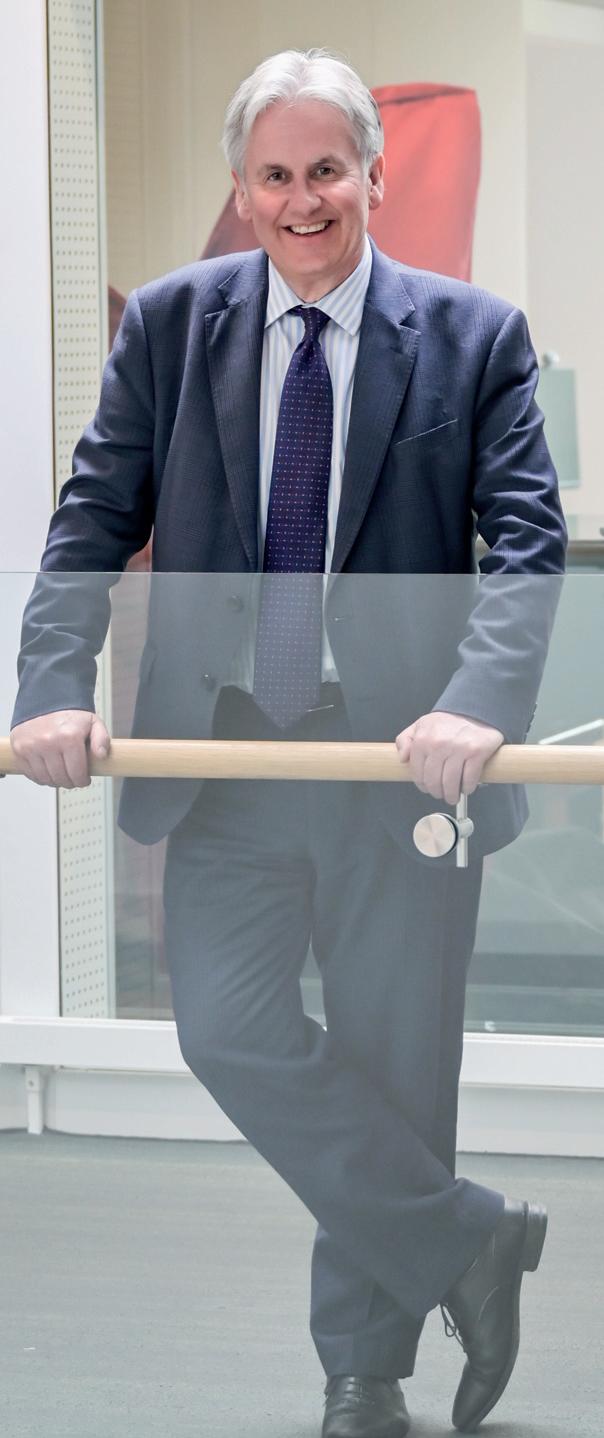
notable individual achievements.
“Our first Associate of Trinity College (ATCL) Diplomas were achieved by pupils in 2007,” Jamie reports. “The numbers have increased steadily ever since. We have an honours board in the atrium of the Music Building, showing how much we value these accomplishments and inspiring subsequent generations of boys to excel.”
“I’m always excited to see boys’ love of music deepen and broaden during their time at school,” Jamie continues. “Of late, we’ve seen a real interest in late-Romantic composers like Rachmaninov and Mahler. You hear their melodies drifting through Boarding House windows and feel as if these young people
are developing habits that will stand them in good stead for the rest of their lives.”
This speaks, too, of the confidence Sherborne’s musicians have to experiment and explore.
“Improvisation is an important part of our musical culture,” Jamie says, “and jazz is something for which we have an enviable reputation.”
That reputation is burnished by events like the Swing Band’s biennial Caribbean tour and the orchestral and choral trips to Rome, Prague and Venice –obvious highlights for Jamie – and one-off performances at places like the prestigious 606 Club in London. “When you see our pupils holding their own in professional venues, you get a real sense of satisfaction. It’s a glimpse into the future.”
For some, that future may involve working as a professional musician. For many, it will be a life enriched by a love of music in all its forms. As far as Jamie is concerned, both outcomes are a fitting legacy of his time at Sherborne School – one to dwell on as he focuses on his role as Director of Music at Sherborne Abbey, rediscovers his love of composition, and gets back on the road with his own jazz trio.
“My favourite times at School are when the Abbey is full of the whole school singing a classic hymn like ‘Jerusalem’,” he concludes. “That is when you see the power of music to unite, inspire and communicate. I’d like that to be what I leave behind at Sherborne.”
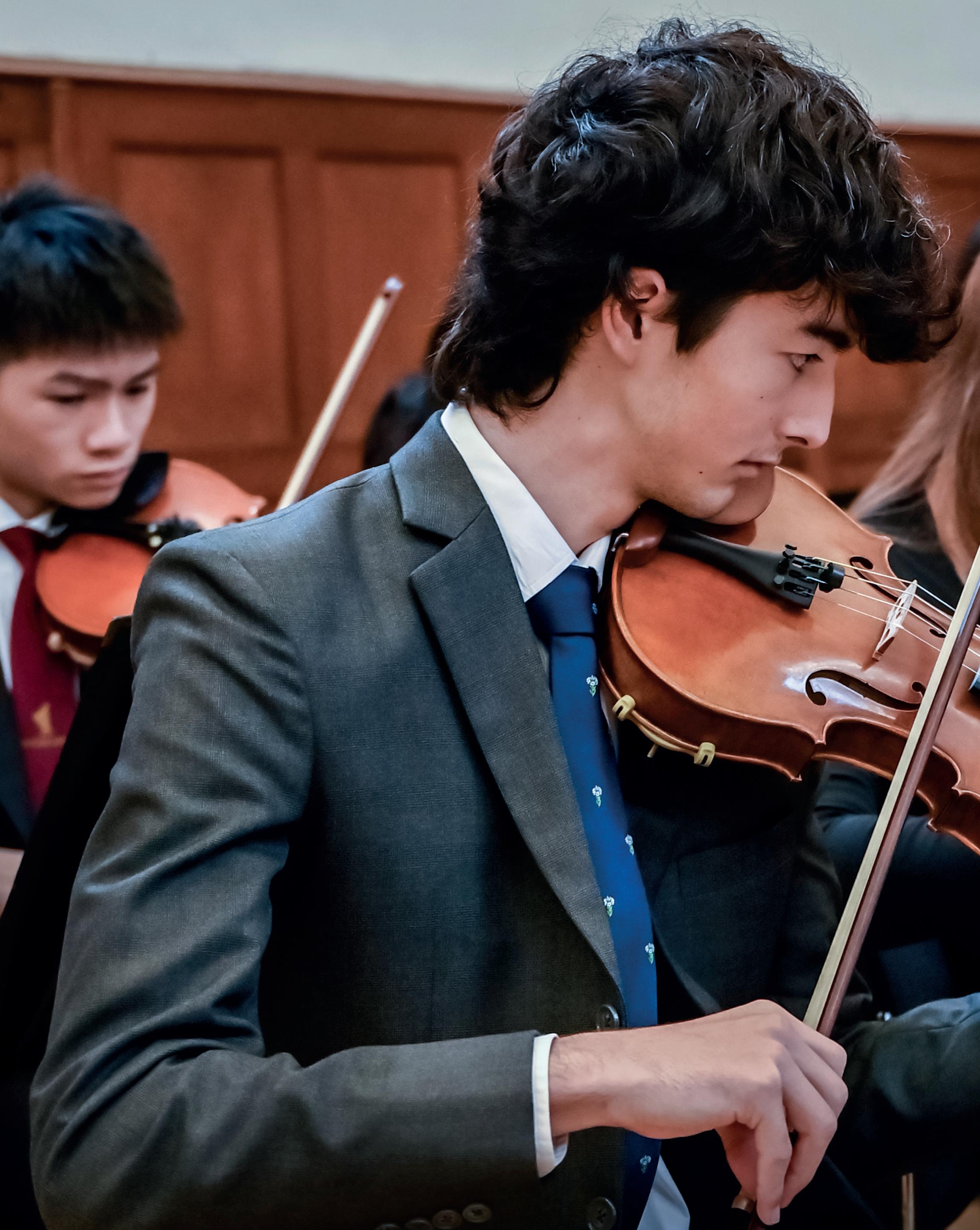
“With so much music now being rehearsed each week, with some 28 Cheap Street Church lunchtime concerts and a further 15 concerts having taken place in this, my last year as Director of Music at Sherborne after nearly twenty years in post, I thought that the reflections of the music staff on their particular areas of responsibility might be the most effective way of making certain that solo and ensemble contributions have been properly reviewed in The Shirburnian.”
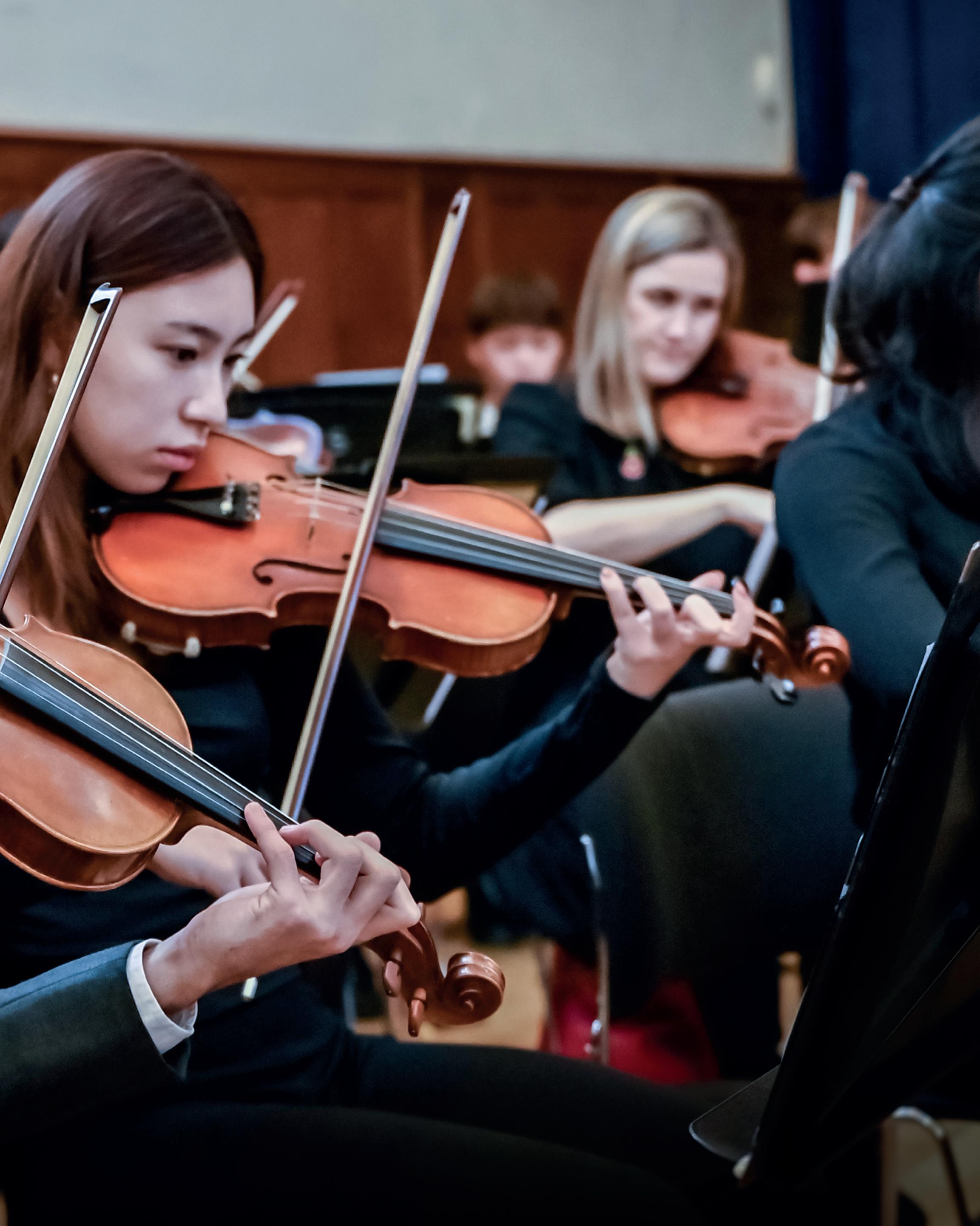
JAMES HENDERSON EXECUTIVE DIRECTOR OF MUSIC
There was so much less about which to write in 2005 when the current Music School building was first being considered and discussed. Not even Q Time existed. The musical highlights of this year were those that took place in the week leading up to Commem—music that over the years has become almost festival-like in both quantity and quality. Tuesday evening (25 June) saw Jazz for a Summer’s Evening taking place outside the Music School, in the “Bridge Amphitheatre” (named after a donor) for the first
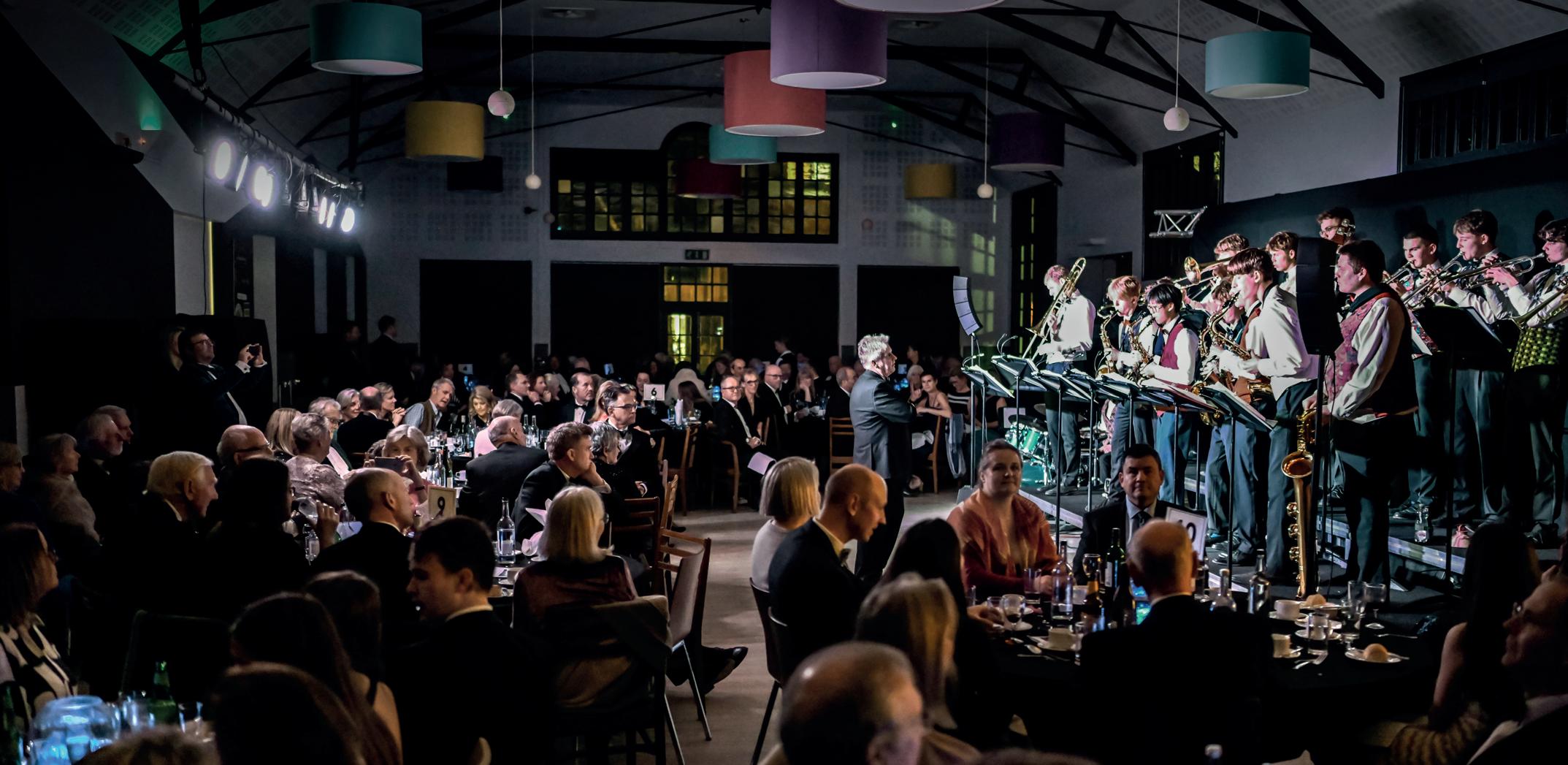
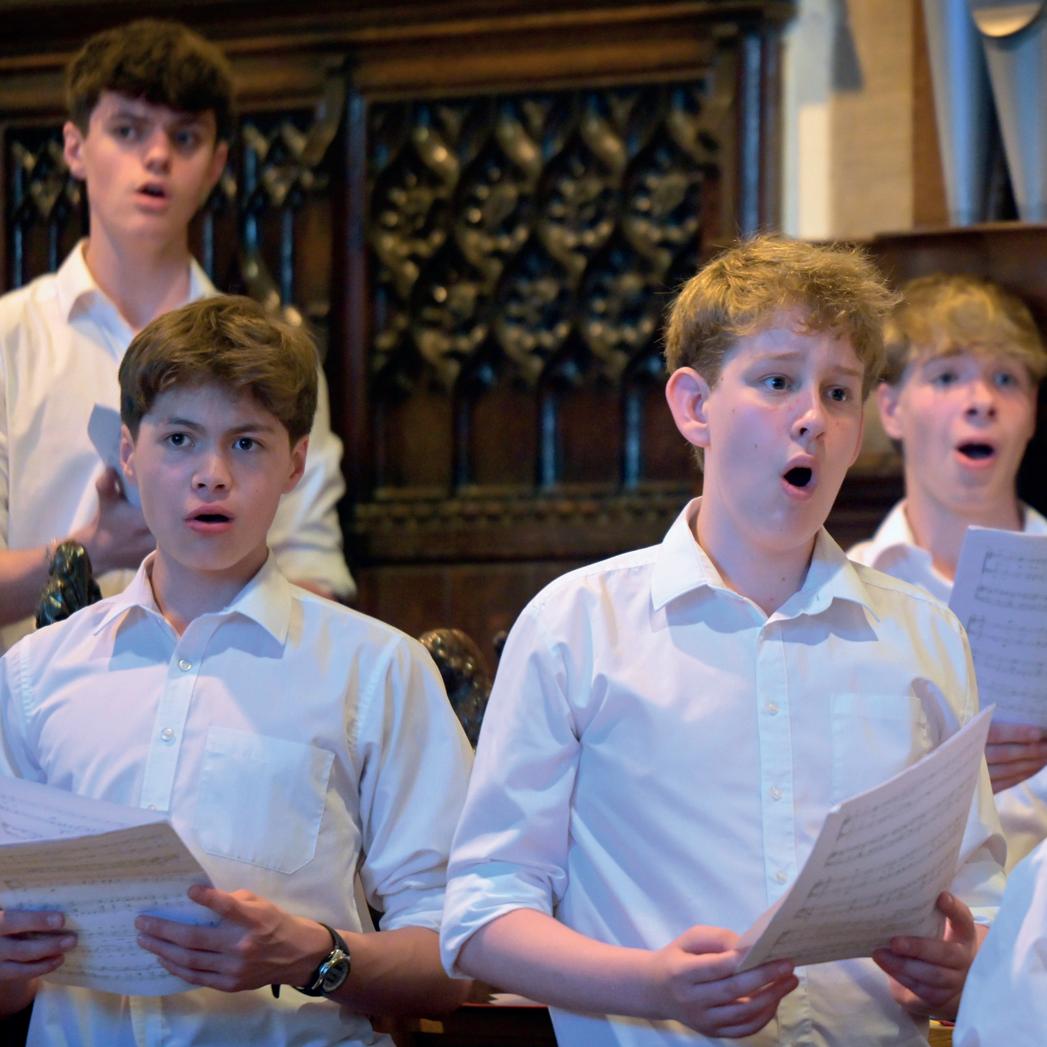
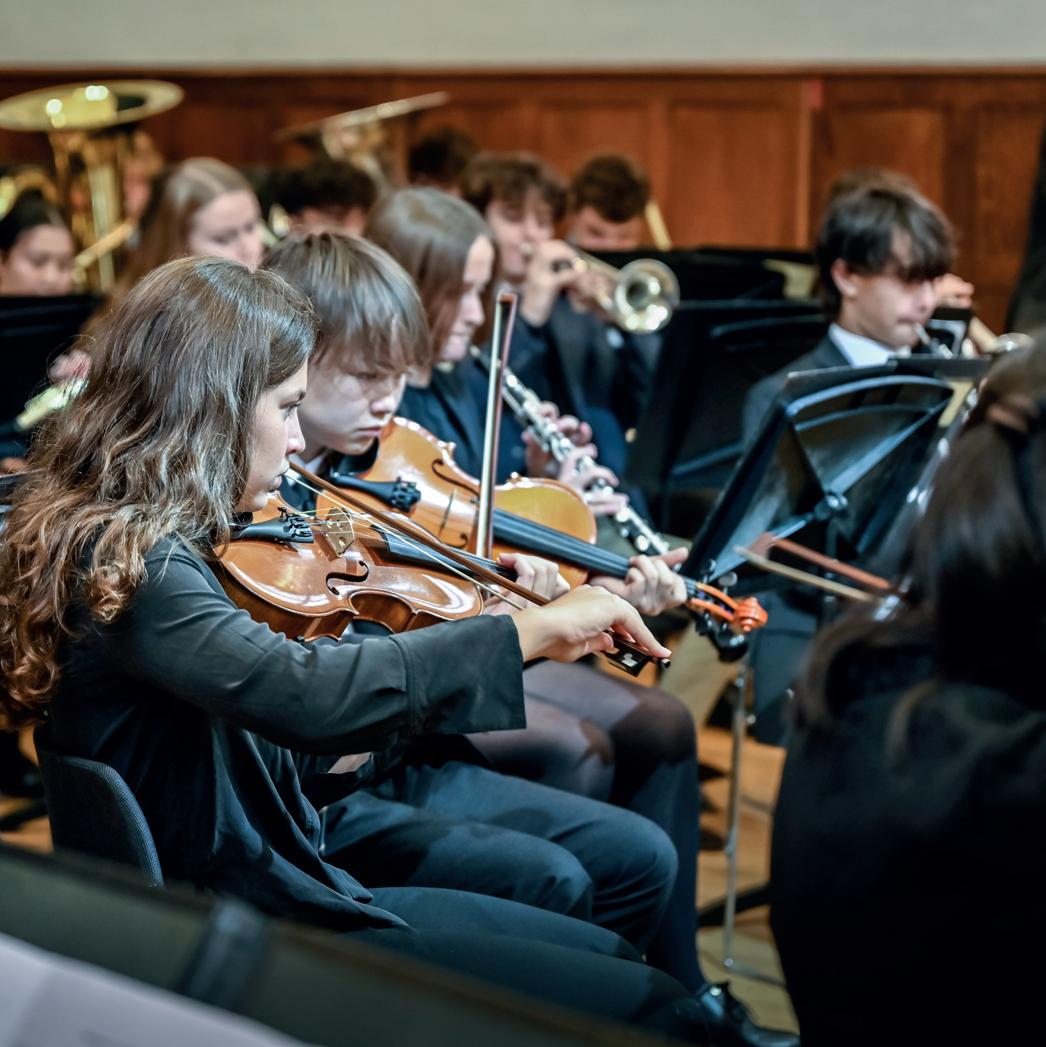
time in many years. During a glorious summer evening both the Swing Band and the Jazz Ensemble entertained a large audience of parents and the public with music ranging from the earlier trad jazz era right up to more recent numbers by Charlie Mingus. On Wednesday night the Chamber Choir performed a selection of accompanied and a cappella anthems between solo and duo organ performances in Battle of the Organs, a concert made possible courtesy of there being two organs in the Chapel (and most of the
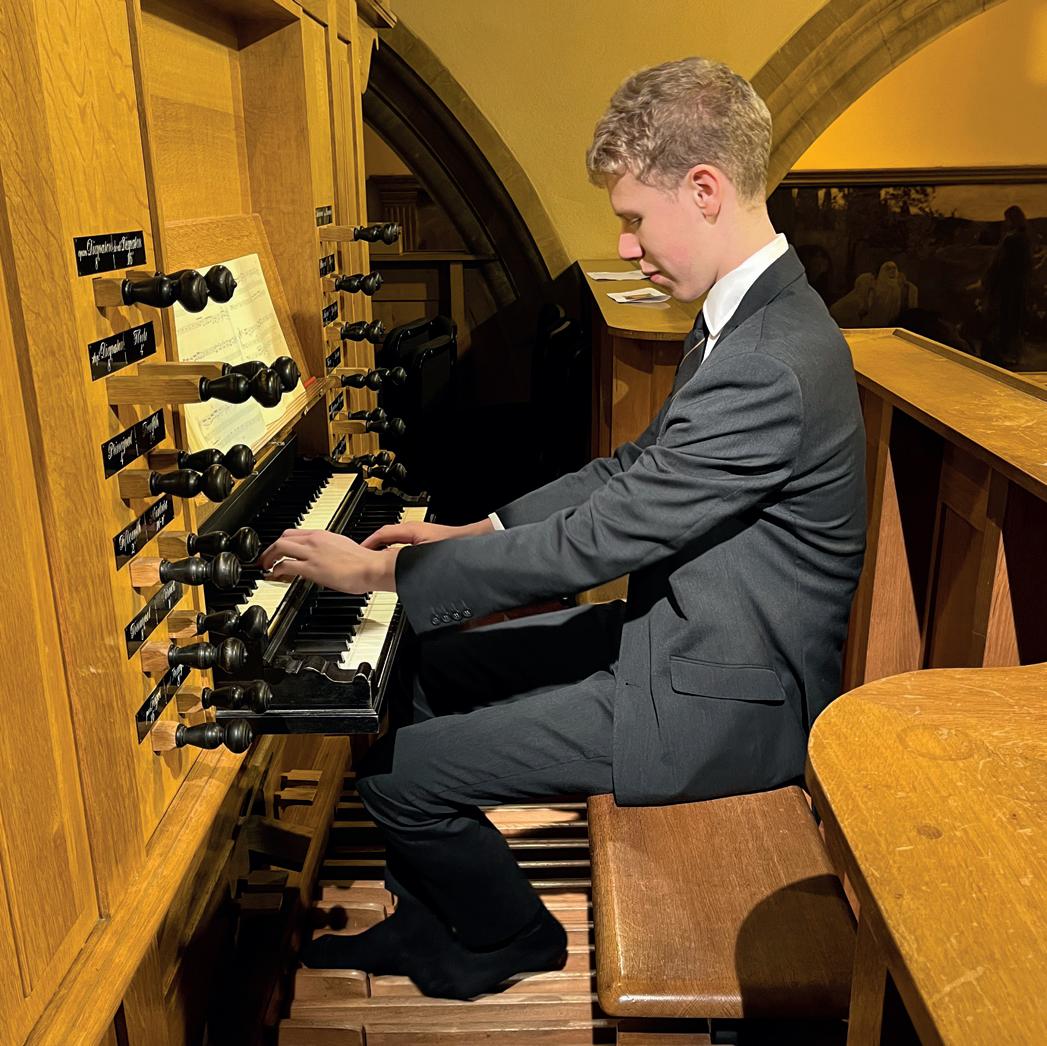
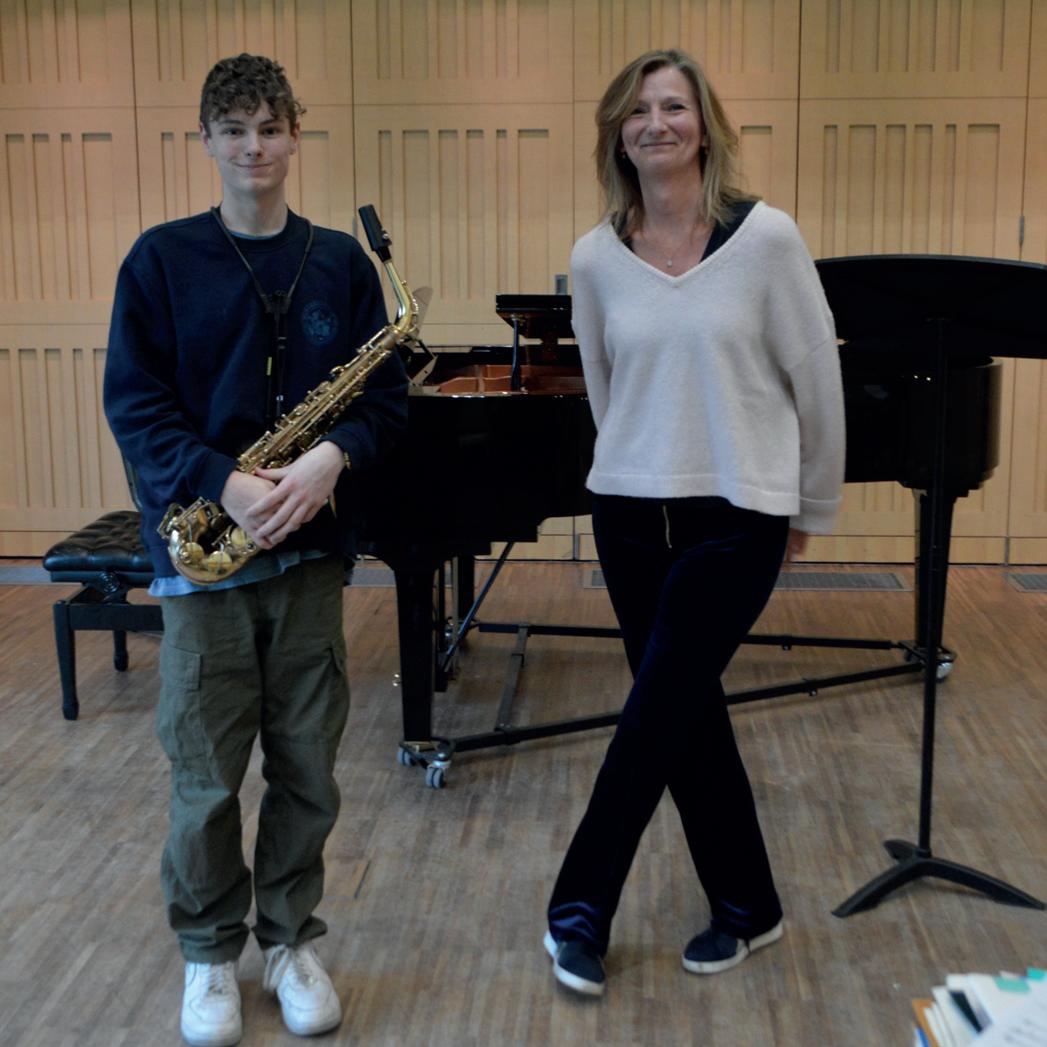
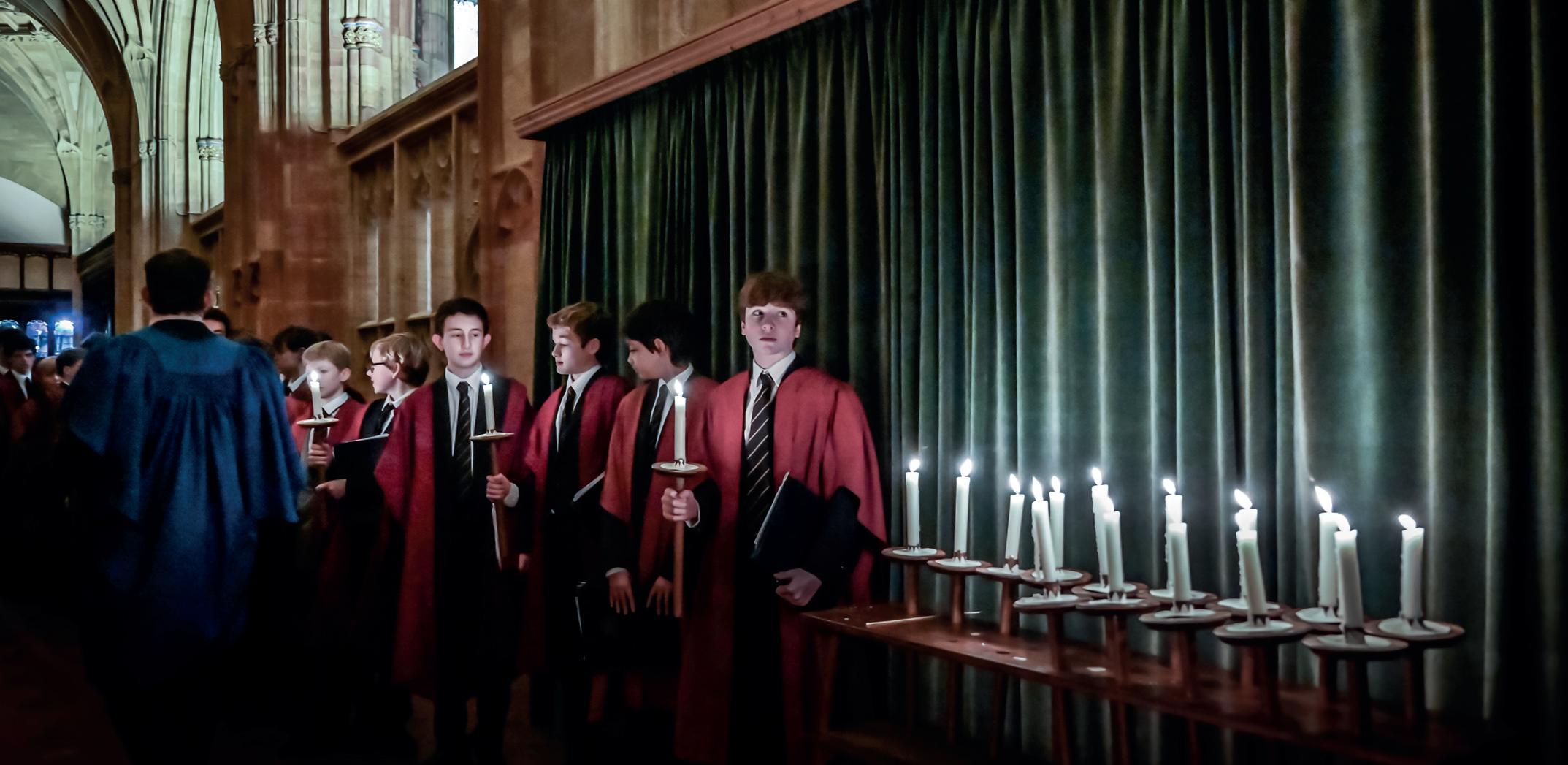
length of the Chapel between them). Freddie Senior Sch.Mus (L6g), Aloysius Cath (L6a), Archie Spenlove-Brown Sch.Mus (5f) and Frazer Fielding Sch.Mus (3f) battled the Organ Scholar Arthur Hope-Barton and me for victory in no uncertain terms; the Shirburnians won every time, irrespective of the instrument they had chosen!
On the Thursday evening there took place one of the more outstanding Leavers’ Concerts that there has been for many years. This has been a special occasion for many years as it is
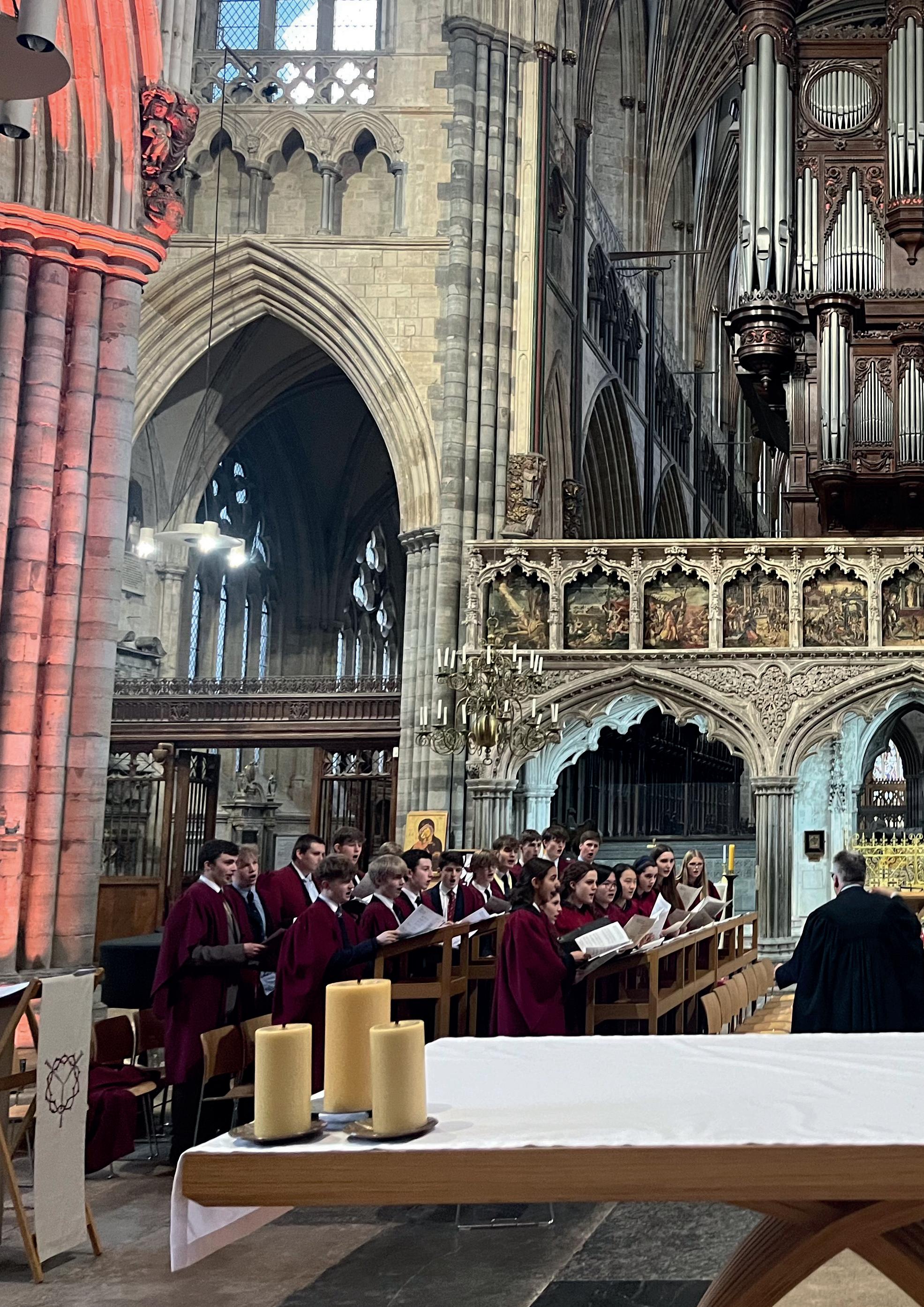
the last opportunity for those who have given so much musically to perform in their Music School. Many a tearful eye may be spotted in the audience—and was that just the parents feeling nostalgic? One of the pieces—Anderson’s Buglers’ Holiday with music scholars Archie Beardsell (U6f), Charlie Burtt (U6c) and Henry Cannon ATCL (U6c) on the trumpet—was even more popular amongst Instagram followers (it had received 240 views within eight hours) than in the packed Tindall Recital Hall. Yet the ‘live’ applause was appreciative
enough and indicative of the warmth and gratitude with which these 2024 Leavers were received. Solo performances of music by J S Bach, Vivaldi, Hummel, Weber, Liszt, Mozart and Britten, and a Close Harmony group organised by the Leavers themselves (singing And so it goes), provided variety as well as quality. The Jazz Group playing Charlie Mingus’ Moanin’ with Thomas Arbon Valderrama’s Sch.Mus (U6e) characterful opening on the baritone saxophone, and the Trio in Softly as in a morning sunrise led by the now legendary Cassius Hammick
(U6m) from the double bass, and with Alex Swann (U6m) on the electric guitar, and Henry Cannon making a rare but superbly stylish appearance on the piano, were undoubted highlights of ensembles put together and rehearsed by this most talented group of leavers.
Friday evening’s gala concert, this year billed as The Big Gala Concert, was a tour de force of large ensemble music. The concert celebrated Jamie Henderson’s well-nigh twenty years in post and, following an idea of Dr Luckett’s and by his
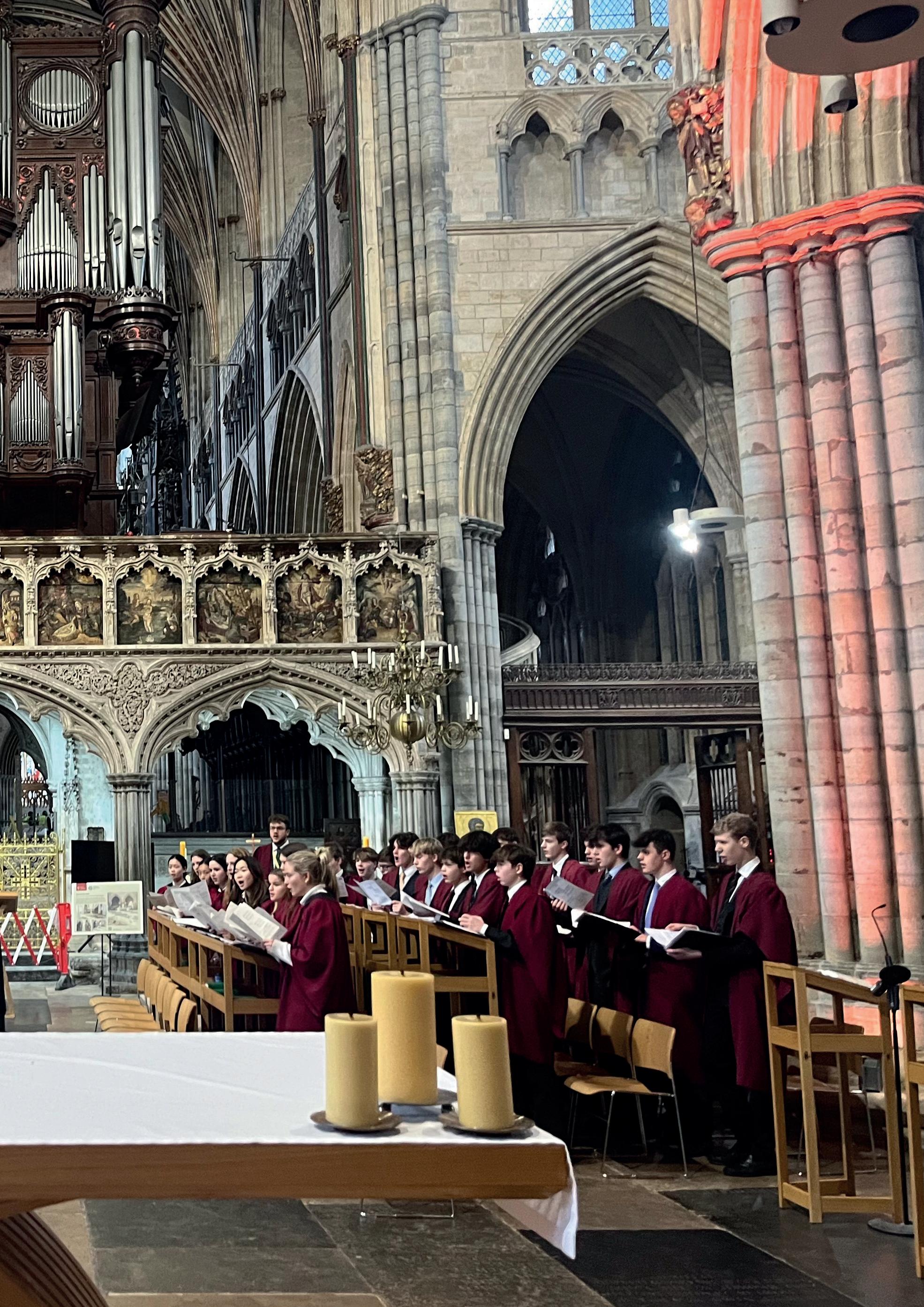
invitation, was enlarged in performing number with the inclusion of nearly fifty Old Shirburnian musicians—many of them of now professional—either playing, singing, or sitting in the audience. A highlight of the evening was the Radio Orchestra’s performance of New York, New York (the lush strings of the Concert Orchestra combining with the orchestral woodwind section and the Swing Band saxophones, brass and rhythm section) with returning Old Shirburnian professional singer Robert Folkes (a 12), whilst the extraordinarily rich
TTBB arrangement of Dyson’s Magnificat in D by the Chamber Choir, with many OS extras, accompanied by Mr Costin on a specially installed organ, was a memorable choral feast. Not to be outdone by the Swing Band’s fifteen-minute rendition of Pennsylvania 6500, complete with many solo ‘breaks’ by current and old Shirburnians, the mighty Wind Band—under the baton of Mrs Jackson—was in stellar form with a medley from Guys and Dolls
Last, but not least, that fine tradition of the large TTBB choir (membership has variously ranged from 95 to 110 singers since 2010) saw 103 singers participating in the Choir for the Commem Service in the Abbey on the Saturday
morning which, as always, involved Swing Band members running straight from the procession, still in their gowns, to play in the Courts before speeches. The familiar brass fanfares for the Commem hymns in the Abbey—
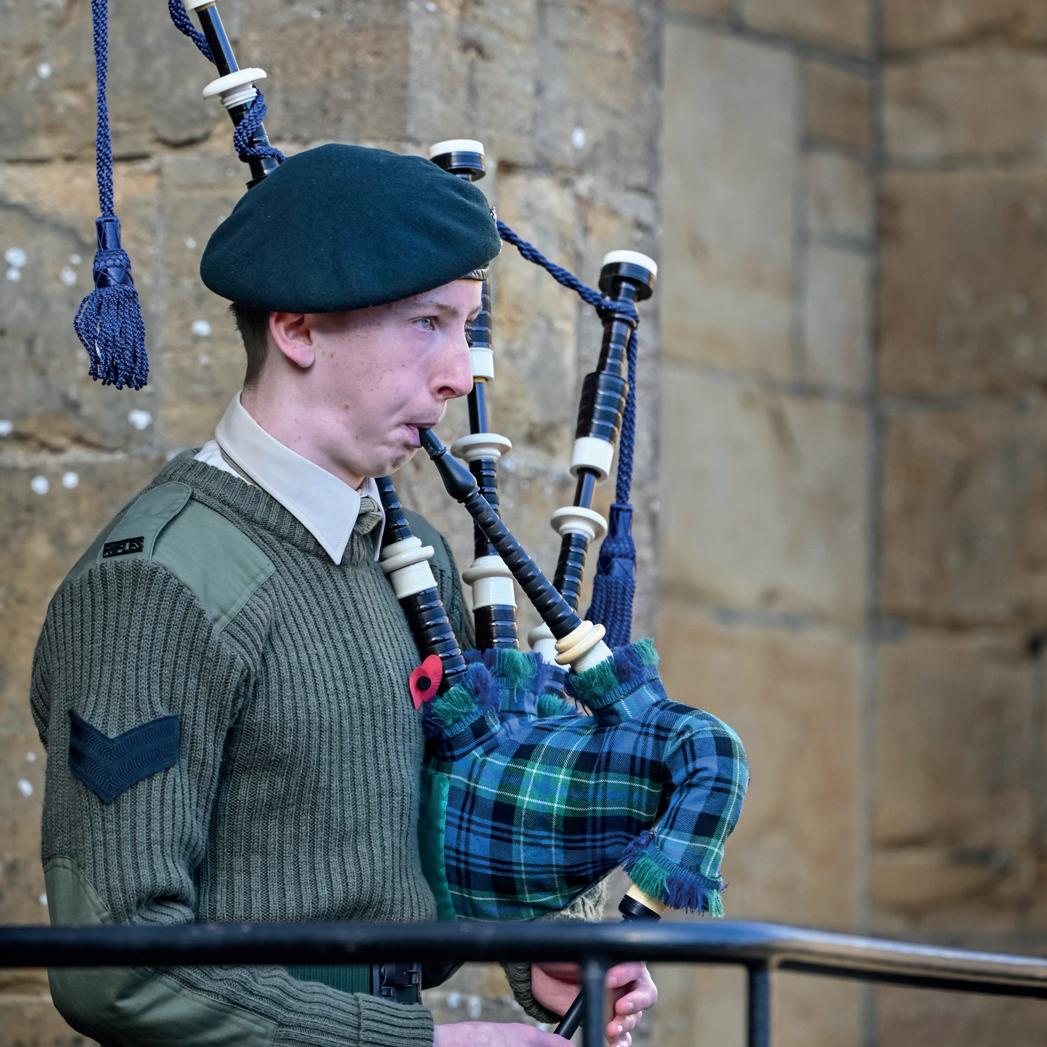
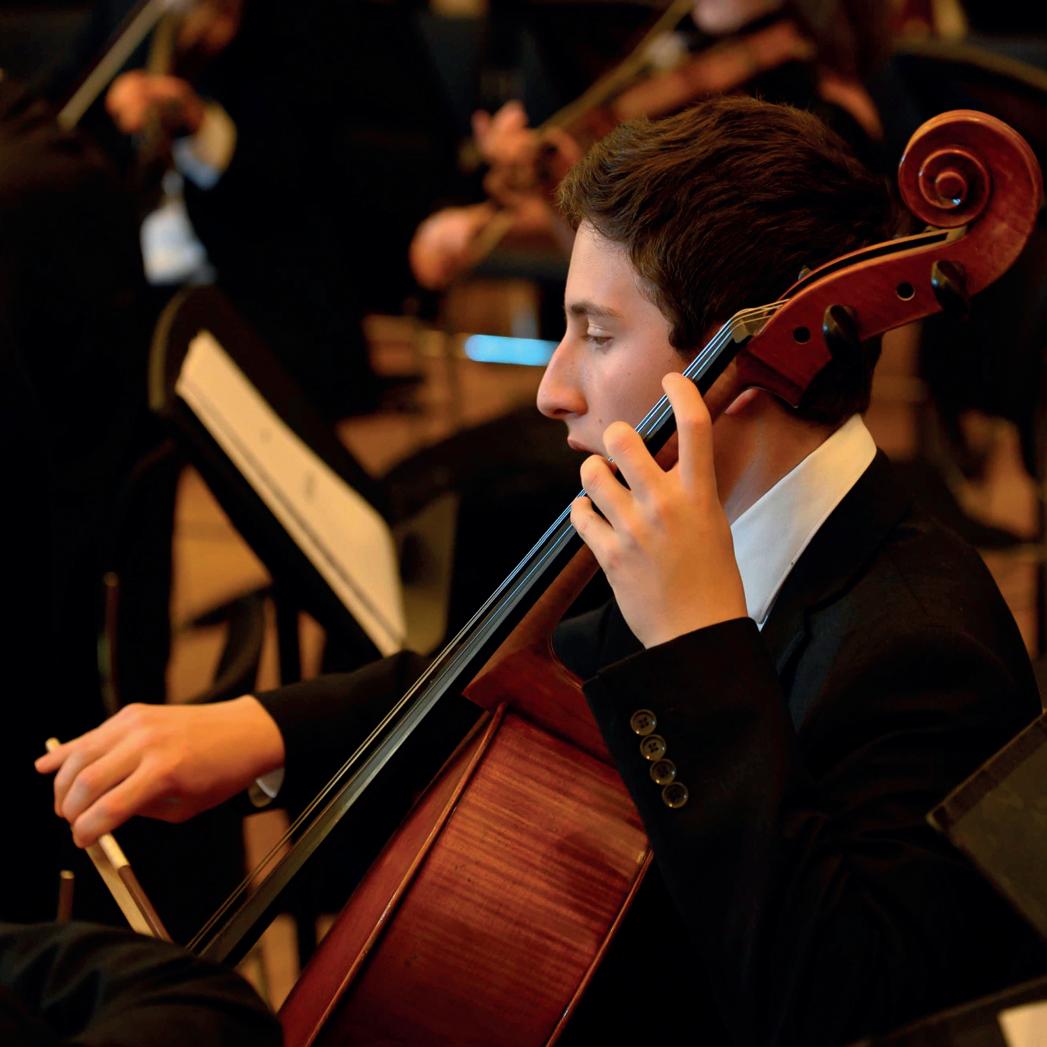
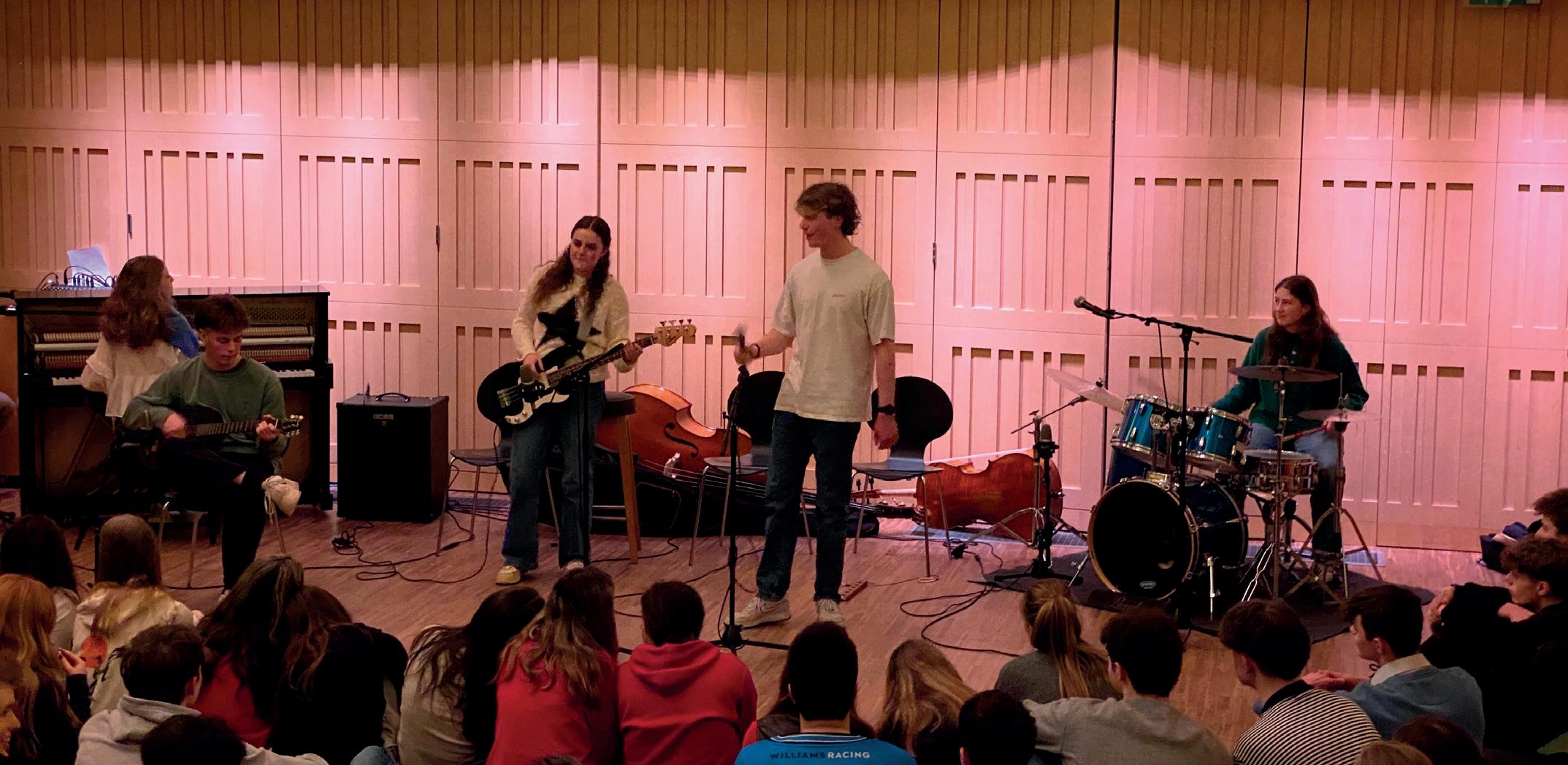
now showing their age at between sixteen and nineteen years of use since their composition before even the 2010 Music School existed—accompanying the rousing singing of the School that has been especially strong this
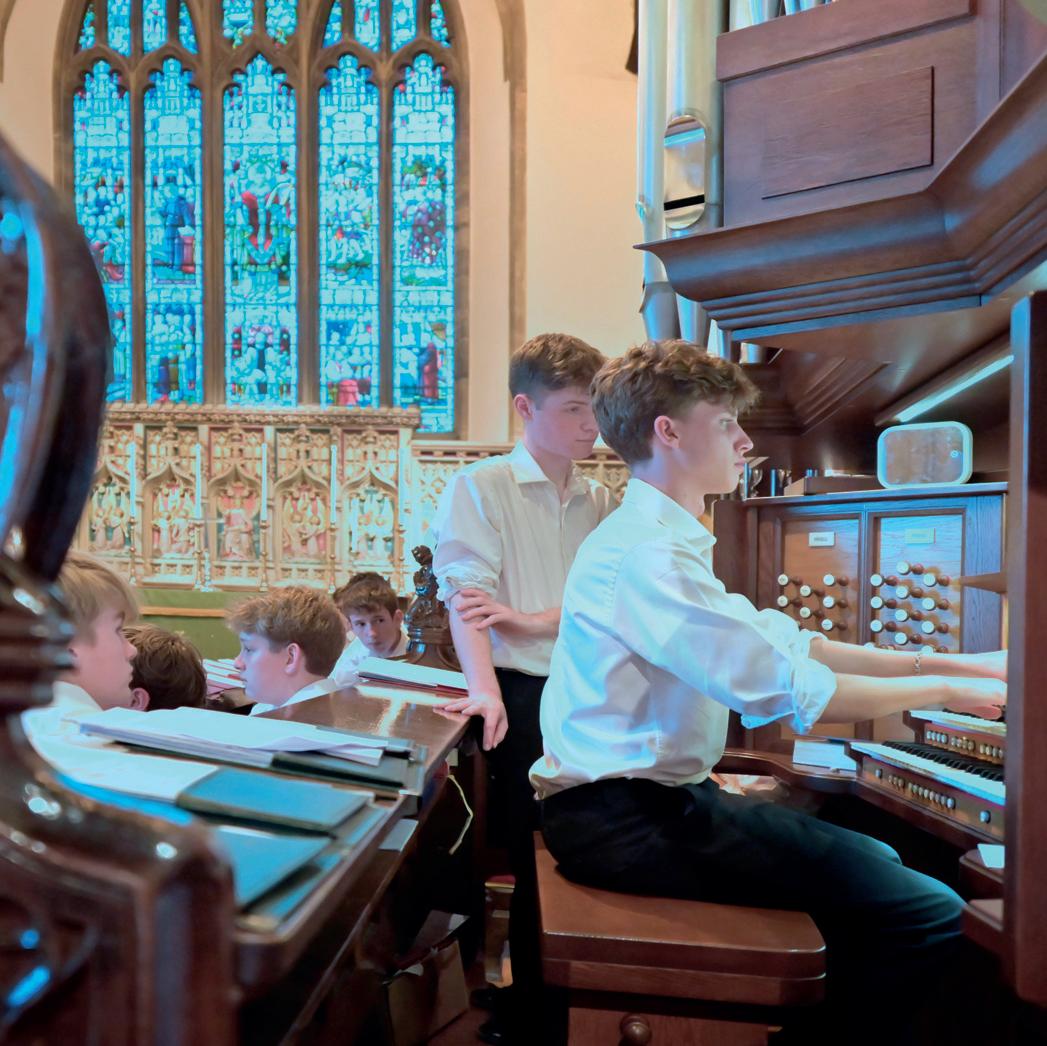
year. Stanford’s Psalm 150 (Laudate Dominum), Haydn’s The heavens are telling (from Creation), and Parry’s I was glad, this was certainly a wonderful final service for this retiring Director of Music to remember for many years.
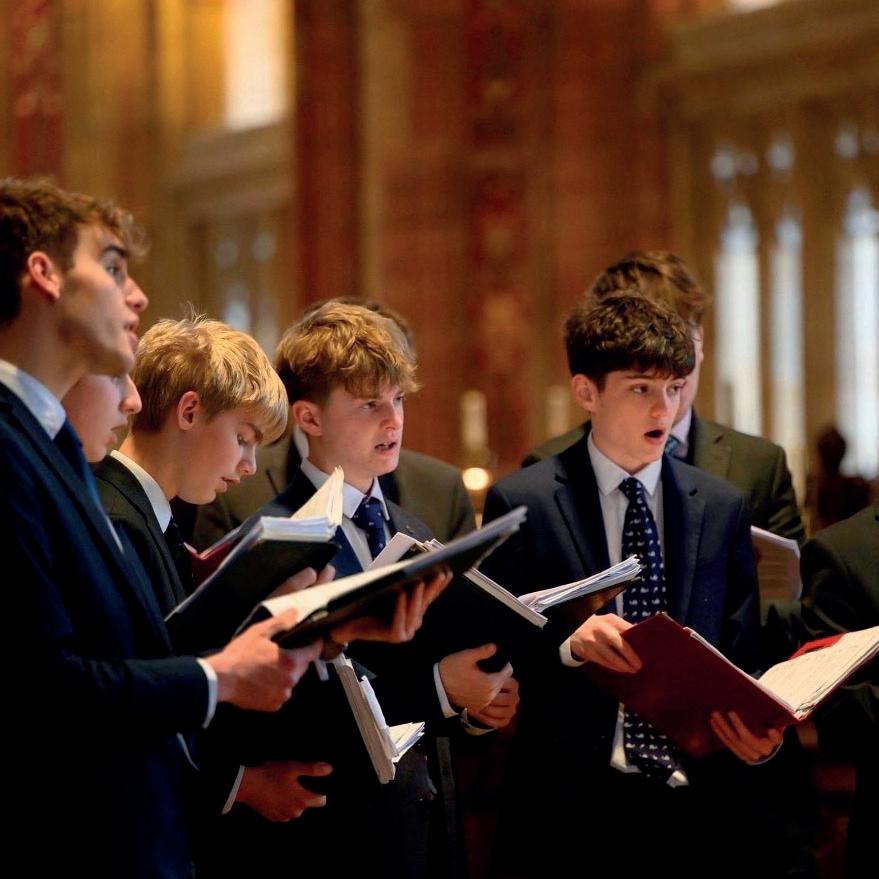
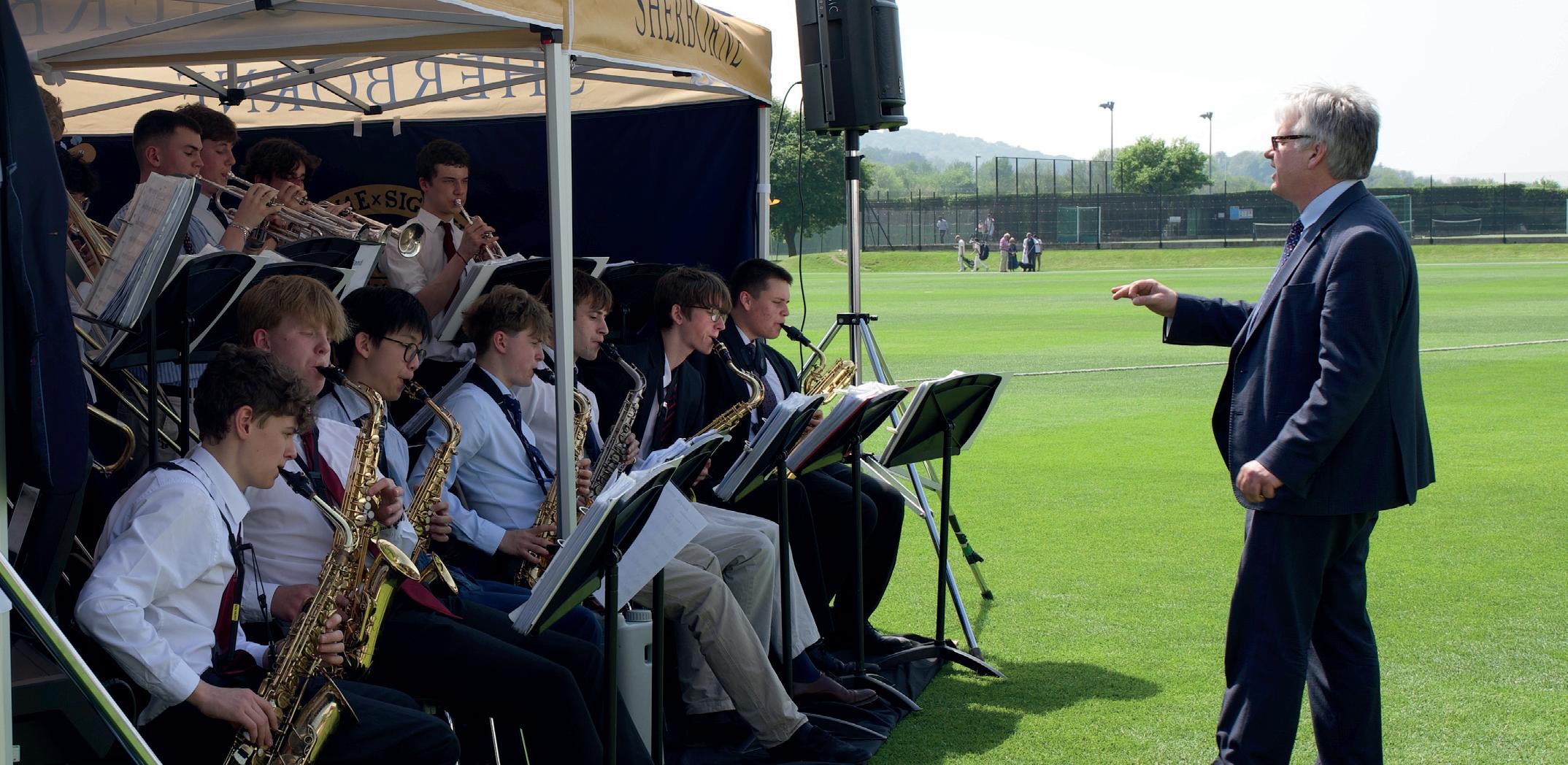
Both choirs have been on particularly good form this year with a strong Upper Sixth membership and some particularly good ex-cathedral tenors (sometimes a rarity, but not for the last four or five years). Whole School Abbey Services continued to take place unfailingly on Wednesdays at 6.30pm and Sundays at 7.45pm with music ranging from the sixteenth century to the present day sung by both choirs. An online archive of the Music Lists is currently being prepared.
The Chamber Choir visited Salisbury and Exeter Cathedrals—again joint with Sherborne Girls—sang several extra services as a TTBB group including the Lent Festal Evensong and its associated Choir Dinner in the OSR afterwards and the OS Day Service.
The annual Choral Society performance in the Abbey, once a stalwart of the Music School’s offering but now very much happily surrounded by many other concerts, was this year conducted by Sherborne Girls’ Director of Music Mark Cracknell, and Handel’s Messiah. 102 boys took part with 67 girls and 54 members of the local community.
This year’s Barbershop/Close Harmony was largely drawn from boys in the Upper Sixth, some of whom have been members of the ensemble for their full five years at Sherborne. Festive Concerts and a performance at Sherborne’s Festive Shopping Day included renditions of I’ll be Home for Christmas and Jingle Bells
James Henderson Executive Director of Music
The Swing Band, with vocalists Orlando Tavener Sch.Mus (U6b) and James Coleman Sch.Mus (U6a) and whose membership is listed on the Gala Concert programme, was on an undoubted high this year with a trumpet section (Henry Cannon Sch.Mus (U6c), Charlie Burtt Sch.Mus (U6c), Archie Beardsell (U6f) and Archie Gibbons (5f)) that was quite exceptional. A similarly strong trumpet section a decade ago became professional musicians with two of them returning for the gala concert.
The repertoire of the band in any given gig, such as the outstanding Dinner and Jazz in March, would include Yardbird Suite, O lady, be good, Jordu, It don’t mean a thing, Salt Peanuts, One Mint Julep, A foggy day, Cotton Tail, Just in time, Blue Moon, Cheek to cheek, Beyond the Sea, Autumn Leaves, Serenade in Blue, Take the A Train, The Lady is a Tramp, Fly me to the moon, At last, Ain’t that a kick in the head, Straighten up and fly right, I like this one, Have you met Miss Jones, Just in Time, Gigolo, Mr Success, When you’re smiling, Save the last dance for me, It had better be tonight, L-O-V-E, Me and my shadow, Pennsylvania 6500 and Sing, sing, sing!
The Jazz Ensemble, in its first full of year existence, has swelled in size and popularity. Designed to help train boys who aspire to be in the Swing Band, Jazz Ensemble has seen the pupils learning the art of jazz ensemble playing—as well as how best to improvise. This was demonstrated in their own dedicated Friday Lunchtime Recital in Cheap Street Church, where the ensemble played five numbers, as well as a rendition of Watermelon Man that featured a solo from every single ‘front-line’ player to an enraptured recital audience.
The year ended with a 15minute set as part of Jazz for a Summer’s Evening, alongside the Swing Band, where Benji Rimington Sch.Mus (4c) glittered playing the solo line for Begin the Beguine Particular mention should also go to Cassius Hammick (U6m), James Hambly (4a), Charlie Scammell (4f) and Samuel Rippon (5e) for their great musical service to this ensemble.
James Henderson Executive Director of Music and Daniel Marks Deputy Director
of Music
The Symphonic Strings ensemble, formerly a Chamber Orchestra, rehearses during Tuesday Q Time each week and continues to grow and develop as a group.
From ARSM diploma holders to relatively new players, the ensemble aims to satisfy the needs of a wide range of instrumental experience. Led by Miss Allen and Mr Marks, the ensemble has performed in several concerts this year— including the ever-popular ‘Mince Pies Recital’ just before Christmas. Here they showcased an excellent rendition of Karl Jenkin’s Palladio, before ending with a festive treat in Sleigh Ride. Symphonic Strings has also performed in every Strings Lunchtime Recital this year in Cheap Street Church, presenting movements from the Four Spirituals XXX, as well as the famous Csárdás. The year ended with participation in the Big Gala Concert on the final Friday of term, where we were treated to a moving performance of Schumann’s Abendlied.
Some of the more advanced players had opportunity to participate in a workshop and performance of VaughanWilliams’ antiphonal Fantasia on a Theme by Thomas Tallis given by Nic Pendlebury, Head of Strings at Trinity Laban Conservatoire, with Marc Fung (5a) complimented for his musical communication.
The camaraderie enjoyed across the orchestras and ensembles has been no less present than in the Violin Quartet (James Herbert Sch.Mus (U6a), Orlando Tavener Sch.Mus (U6b), Marc Fung, and Austin Lai (4c)), which resumed rehearsals on works from the Baroque era through to 20th Century styles written in jazz idioms, including arrangements of works by Stravinsky, Ravel, and Mussorgsky, always seeking to find and balance their individual lines. Across the year, they performed Telemann’s Concerto in D for Four Violins at the second of the Friday Lunchtime Instrumental Soloist’s Recitals, and the year’s work culminated in the quartet’s performance of the Dancla in Sherborne School’s Chamber Ensembles concert as part of the Sherborne Abbey Festival—a performance which demonstrated a deep understanding of each other’s musical offering, the four voices blending into one.
Tchaikovsky’s sumptuous string writing in Marche Slave, as part of SSSO’s performance at the Joint School’s Musical Showcase, quite literally showcased the strings the Strings’ Recital in January was of an exceptionally high standard,
with Will Ashworth Sch.Mus (L6b) performing Suite No. 1, BWV 1007: Prelude by J S Bach, Aria by Durante played on cello by Zeeshan Mahmud Sch.Mus (4f), Dvořák’s Allegro Moderato performed by James Herbert Sch.Mus (U6a), and Gareth Kwong Exh.Mus (U6e) performing the two Bourées from Bach’s Suite No. 3 for solo cello. Marc Fung closed the recital with the Allegro from Beethoven’s Sonata in F, Op. 24 ‘Spring’, ahead of his pre-ARSM diploma recital of works by Stravinsky, Mozart, Bach, and Beethoven later in the term.
Lucy-Anne Allen Head of Strings and Daniel Marks Deputy Director of Music
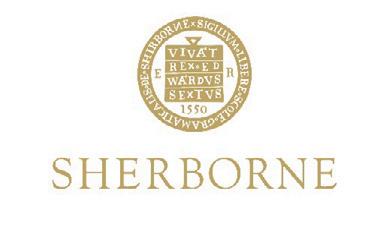
to mark the end of Director of Music
James Henderson’s twenty years in post
Friday 28th June 2024
7.00pm
Big School Room, Sherborne School
Concert Orchestra
Toccata and Fugue in D minor, BWV 565
Scherzo, Op. 16, No. 2
In the Hall of the Mountain King (from Peer Gynt, Suite No. 1)
Crown Imperial
Radio Orchestra
New York, New York
Swing Band
Lady is a Tramp
Mr Success Pennsylvania 6-5000
Wind Band
Highlights from ‘Guys and Dolls’ Frank Loesser (1910–1969) arr. Calvin Custer
Symphonic Strings
Abendlied, Op. 85, No. 12
Brass Band
Malagueña
Chamber Choir
Steal Away
Locus iste
Magnificat in D
Robert Schumann (1810–1856) arr. Johan Svendsen
Ernesto Lecuona (1896–1963) arr. Stuart Malcolm
Michael Tippett (1905–1998)
Anton Bruckner (1824–1896)
George Dyson (1883–1964)
J S Bach (1685–1750) arr. Gareth Glyn and Andrew Smith
Felix Mendelssohn (1809–1847) orch. Davey
Edvard Grieg (1843–1907)
William Walton (1902–1983)
John Kander (b. 1927)
Richard Rodgers (1902–1979)
Hank Sanicola (1914–1974)
Frank Sinatra (1915–1998) Edwin Greines
Jerry Gray (1915–1976)
Carl Sigman (1909–2000)
Wind Band
Conductor: Clare Jackson Leader: James Coleman Sch.Mus
Flute: Sam Baring, Ian Liu ATCL Sch.Mus., Sammy O’Brien Sch.Mus. Forest Purvis Sch.Mus., Freddie Senior Sch.Mus.
Oboe: Hector Kennerley Sch.Mus. Inigo Russell Exh. Mus.
Clarinet: James Coleman Sch.Mus., Benjamin Hunt Sch.Mus. Joonsang Hyun, William Lewis Sch.Mus., Benji Rimington Sch.Mus. Samuel Rippon Sch.Mus. Bassoon: Henry Ferguson Sch.Mus.
Alto Saxophone: Jack Arnold Sch.Mus., Hugo Bishop, Alexander Lecher-Molloy Sch.Mus., Archie Osborne, Josh Pearce, Michael Phayre-Mudge Sch.Mus., Patrick Reynolds, Byron Yang ARSM Sch.Mus.
Tenor Saxophone: Charlie Armsby Sch.Mus. James Murray
Baritone Saxophone: Thomas Arbon Valderrama Sch.Mus.
Trumpet: Archie Beardsell Sch.Mus. Charlie Burtt Sch.Mus., Henry Cannon Exh.Mus. Chun Lok Choy Archie Gibbons Sch.Mus., James Hambly Sch.Mus., Charlie Scammell Sch.Mus., Josh Spolton, Ben Tall, Hugo Tyrrell, Alex Upton, Caio Waters
French Horn: Oliver Chappell Exh.Mus. Sebastian Quinlan, Louis Rippon Sch.Mus.
Euphonium: Alex Biddulph
Trombone: Henry Dawson Paul, Edward Kennerley Sch.Mus., Jack Maltby Sch.Mus., Archie Spenlove-Brown Sch.Mus, Eli Yu
Bass Trombone: Alfie Reynolds, Louis Fletcher
Tuba: Oscar Boswall Sch.Mus. Joseph Harris, Bamber Mauleverer Exh.Mus., George Wight
Drum Kit: Alex O’Sullivan Exh.Mus.
Guitar: Alexander Swann Sch.Mus. Magnus Bushby
Percussion and Timpani: James Whiteley Sch.Mus. Liam Atherton
Directors: Lucy-Anne Allen and Dan Marks
Leader: Marc Fung
Violin: Cameron Campbell-Steele, Freddie Facer Exh.Mus. Marc Fung, James Herbert Sch.Mus., Austin Lai, Orlando Tavener Sch.Mus. Cedric von Studnitz
Cello: William Ashworth Sch.Mus., Frazer Fielding Sch.Mus., Jayden Graham-Douglas, Gareth Kwong ARSM Exh.Mus., Zeeshan Mahmud Sch.Mus., Inigo Russell Exh.Mus.
Double Bass: Magnus Bushby
Brass Band
Director: Robert Costin
Trumpet: Archie Beardsell Sch.Mus. Charlie Burtt Sch.Mus.
Henry Cannon Exh.Mus. James Hambly Sch.Mus., Alex Upton
Euphonium: Alex Biddulph
French Horn: Oliver Chappell Exh.Mus, Louis Rippon Sch.Mus.
Trombone: Jasper Beardsell Sch.Mus., Edward Kennerley Sch.Mus., Jack Maltby Sch.Mus.
Bass Trombone: Alfie Reynolds
Tuba: Oscar Boswall Sch.Mus., Joseph Harris, Bamber Mauleverer Exh.Mus.
Drum Kit: Alex O’Sullivan Exh.Mus.
Percussion: Liam Atherton
Director: James Henderson
Organ: Robert Costin
Tenor: Jack Arnold Sch.Mus. Archie Beardsell Sch.Mus. Sam Bourke, Henry Brodrick, Freddie Facer Exh.Mus. Frazer Fielding Sch.Mus. Reuben Hobbs Exh.Mus.
Benjamin Hunt Sch.Mus. Edward Kennerley Sch.Mus. Hector Kennerley Sch.Mus.
William Lewis Sch.Mus., Charlie Miller, Louis Rippon Sch.Mus., Inigo Russell Exh.Mus., Edmund Willmott Exh.Mus
Bass: Thomas Arbon Valderrama Sch.Mus, William Ashworth Sch.Mus, Alex Biddulph, Oscar Boswall Sch.Mus, Charlie Burtt Sch.Mus, Oliver Chappell Exh.Mus, James Coleman Sch.Mus, Henry Ferguson Sch.Mus. James Hambly Sch.Mus, Sammy O’Brien Sch.Mus, Forest Purvis Sch.Mus, Archie Spenlove-Brown Sch.Mus, Orlando Tavener Sch.Mus.
Radio Orchestra
Conductor: James Henderson
First Violin: James Herbert Sch.Mus., Orlando Tavener Sch.Mus., Freddie Facer Exh.Mus., Marc Fung,
Second Violin: Cameron Campbell-Steele Austin Lai, Cedric von Studnitz
Cello: William Ashworth Sch.Mus., Lucas Cheng, Frazer Fielding Sch.Mus. Gareth Kwong ARSM Exh.Mus., Zeeshan Mahmud Sch.Mus.
Double Bass: Magnus Bushby
Flute: Sam Baring, Ian Liu ATCL Sch.Mus., Sammy O’Brien Sch.Mus., Freddie Senior Sch.Mus. Forest Purvis Sch.Mus.
Clarinet: James Coleman Sch.Mus. Joonsang Hyun Alexander Lecher-Molloy Sch.Mus.
William Lewis Sch.Mus., Benji Rimington Sch.Mus., Samuel Rippon Sch.Mus
Oboe: Hector Kennerley Sch.Mus., Inigo Russell Exh.Mus. Bassoon: Henry Ferguson Sch.Mus.
Alto saxophone: Jack Arnold Sch.Mus., Benjamin Hunt Sch.Mus., Patrick Reynolds, Byron Yang ARSM Sch.Mus.
Tenor saxophone: Charlie Armsby Exh.Mus., James Murray Sch.Mus.
Baritone saxophone: Thomas Arbon Valderrama Sch.Mus.
French Horn: Oliver Chappell Exh.Mus., Sebastian Quinlan Louis Rippon Sch.Mus Euphonium: Alex Biddulph
Trumpet: Archie Beardsell Sch.Mus., Archie Gibbons Sch.Mus., James Hambly Sch.Mus., Charlie Scammell Sch.Mus.
Trombone: Edward Kennerley Sch.Mus., Jack Maltby Sch.Mus., Alfie Reynolds
Archie Spenlove-Brown Sch.Mus.
Tuba: Oscar Boswall Sch.Mus. Bamber Mauleverer Exh.Mus.
Piano: Louis Fletcher
Drum Kit: Alex O’Sullivan Exh.Mus.
Percussion: Alex Biddulph, Hector Sheldrick Sch.Mus., Emerson Purvis Sch.Mus., Liam Atherton
Timpani: James Whiteley Sch.Mus.
Vocalist: Orlando Tavener Sch.Mus.
Conductors: James Henderson, Robert Costin, Benjamin Davey, Clare Jackson Leader: Orlando Tavener Sch.Mus.
First Violin: James Herbert Sch.Mus., Orlando Tavener Sch.Mus. Freddie Facer Exh.Mus., Marc Fung,
Second Violin: Cameron Campbell-Steele Austin Lai, Cedric von Studnitz
Cello: William Ashworth Sch.Mus., Lucas Cheng, Frazer Fielding Sch.Mus.
Gareth Kwong ARSM Exh.Mus., Zeeshan Mahmud Sch.Mus.
Double Bass: Magnus Bushby
Flute: Sam Baring, Ian Liu ATCL Sch.Mus., Sammy O’Brien Sch.Mus., Freddie Senior Sch.Mus. Forest Purvis Sch.Mus.
Clarinet: James Coleman Sch.Mus. Joonsang Hyun, Alexander Lecher-Molloy Sch.Mus., William Lewis Sch.Mus. Benji Rimington Sch.Mus., Samuel Rippon Sch.Mus.
Oboe: Hector Kennerley Sch.Mus., Inigo Russell Exh.Mus.
Bassoon: Thomas Arbon Valderrama Sch.Mus., Henry Ferguson Sch.Mus.
French Horn: Oliver Chappell Exh.Mus., Sebastian Quinlan Louis Rippon Sch.Mus
Euphonium: Alex Biddulph
Trumpet: Archie Beardsell Sch.Mus. Archie Gibbons Sch.Mus. James Hambly Sch.Mus., Charlie Scammell Sch.Mus.
Trombone: Edward Kennerley Sch.Mus., Jack Maltby Sch.Mus., Alfie Reynolds Archie Spenlove-Brown Sch.Mus.
Tuba: Oscar Boswall Sch.Mus., Bamber Mauleverer Exh.Mus.
Piano: Louis Fletcher
Drum Kit: Alex O’Sullivan Exh.Mus.
Percussion: Alex Biddulph, Hector Sheldrick Sch.Mus., Emerson Purvis Sch.Mus. Liam Atherton
Timpani: James Whiteley Sch.Mus.
Swing Band
Director: James Henderson
Alto Saxophone: Jack Arnold Sch.Mus., Benjamin Hunt Sch.Mus.
James Murray, Patrick Reynolds, Byron Yang ARSM Sch.Mus.
Tenor Saxophone: Charlie Armsby Exh.Mus.
Baritone Saxophone: Thomas Arbon Valderrama ARSM Sch.Mus.
Trumpet: Archie Beardsell Sch.Mus. Charlie Burtt Sch.Mus. Henry Cannon Exh.Mus. Archie Gibbons Sch.Mus.
Trombone: Jasper Beardsell Sch.Mus. Edward Kennerley Sch.Mus.
Bamber Mauleverer Exh.Mus., Archie Spenlove-Brown Sch.Mus. Louis Fletcher
Piano: Freddie Senior Sch.Mus
Guitar: Alex Swann Sch.Mus.
Electric Bass Guitar: Magnus Bushby
Drum Kit: Alex O’Sullivan Exh.Mus.
Vocalists: James Coleman Sch.Mus., Orlando Tavener Sch.Mus.
With thanks to the OS musicians who have come back to Sherborne today to perform in Mr Henderson’s final Gala Concert before he steps down as Director of Music after nearly twenty years:
Will Banks, Freddie Banks, Jordan Berry, Sam Berry, Finnbar Blakey, Jack Blakey, Archie Burton, Fergus Burtt, Matthew Cann, George Chattey, Hector Fiennes, Robert Folkes, Peter Folkes, Kit Hobbs, George Jefferson, Henry Jones, Henry le Cornu, William Leith, Max Lewis, Sam MacDonald, Matt MacDonald, Toby MacKean, Sandy May, Tom O’Sullivan, Jono Post, Jack Pyman, Alex Stagg, Sam Talbot-Williams, Will Thorne, Oliver Toomey, Harry Vincent
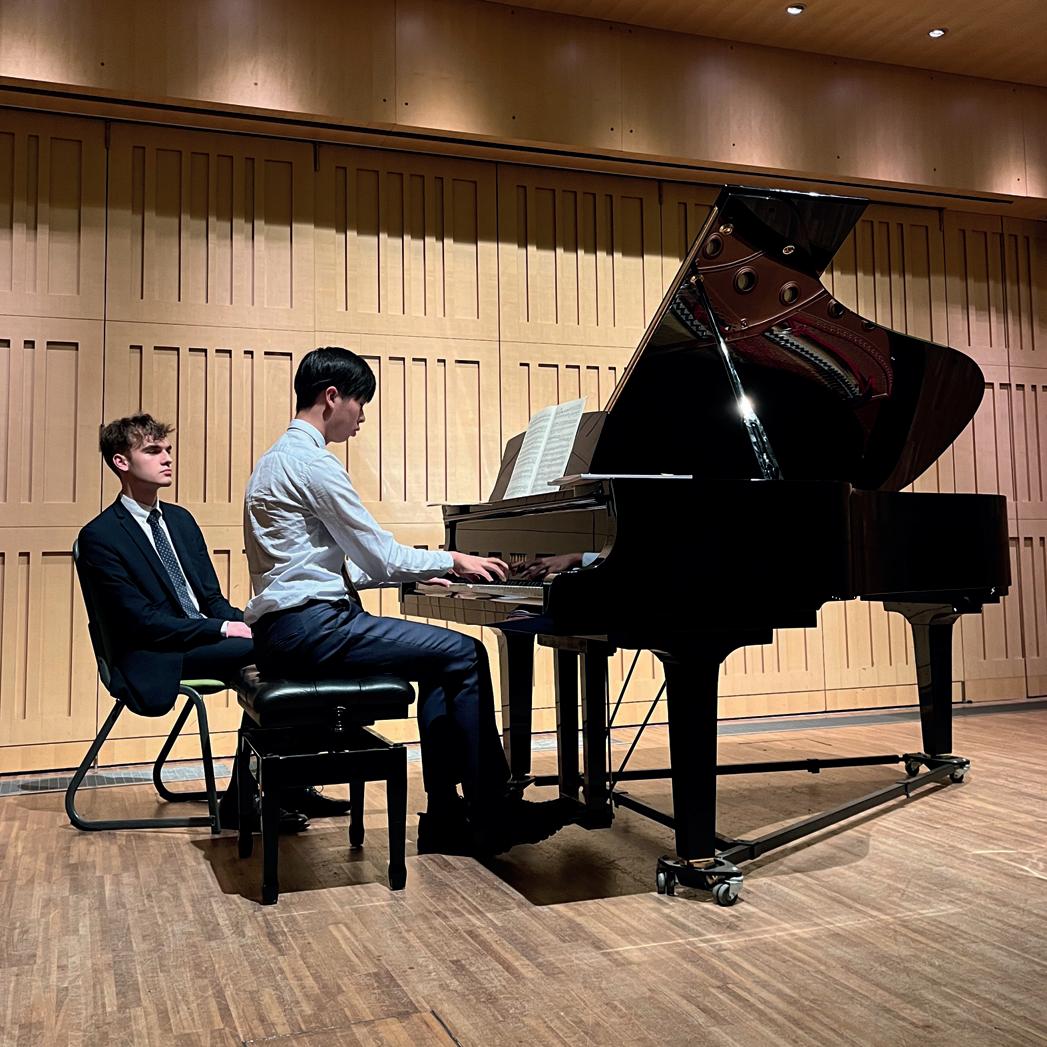
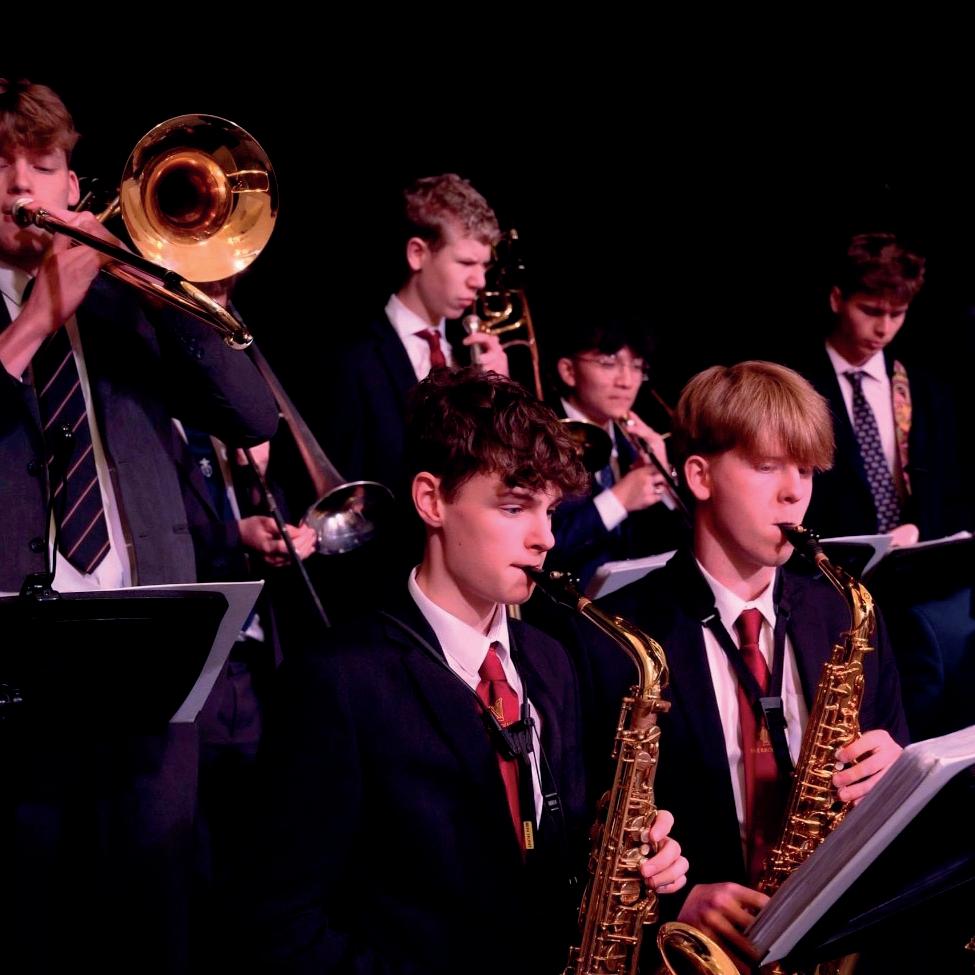
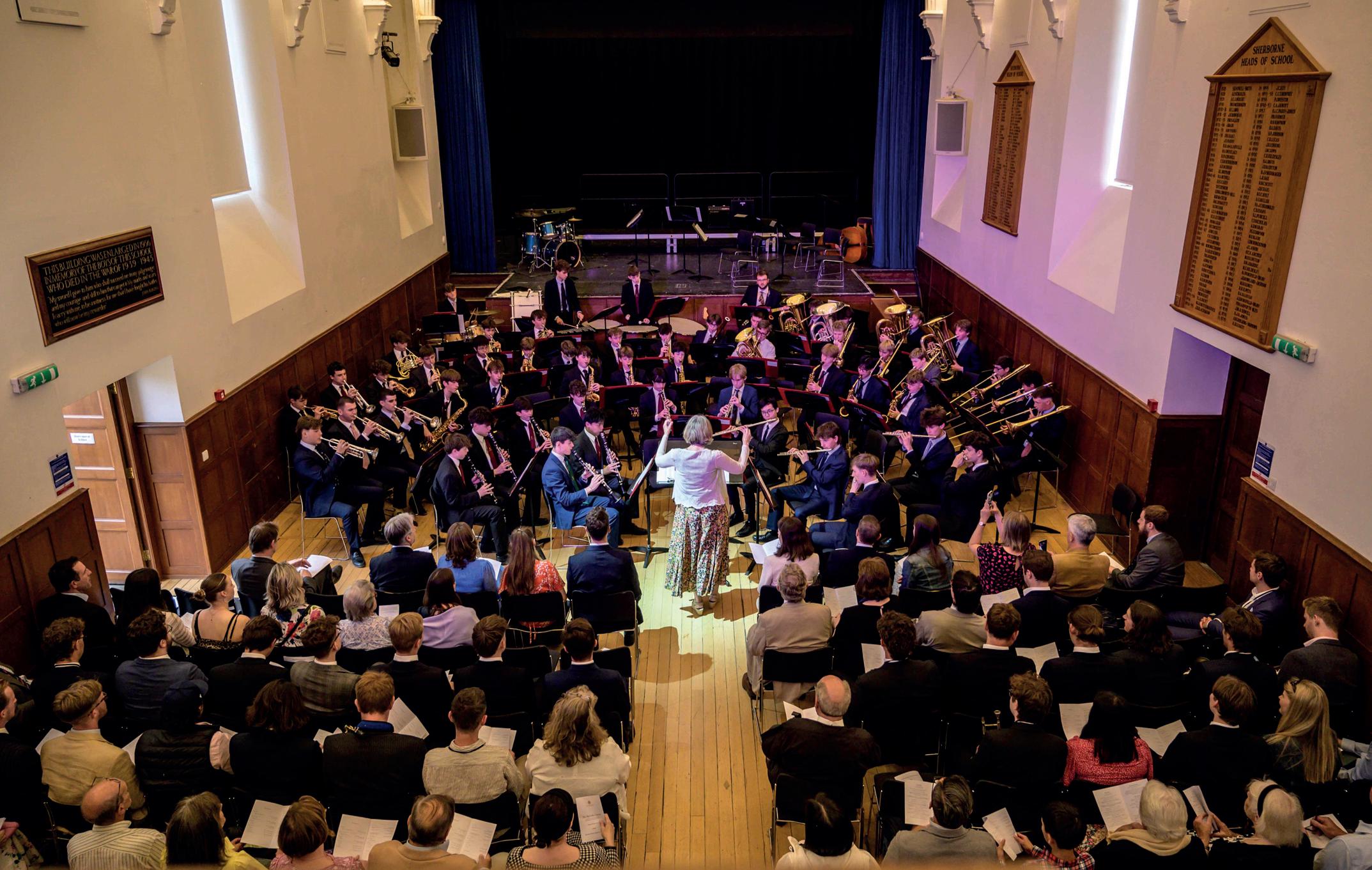
Another very busy and productive orchestral year, with many boys representing the school in the joint orchestras (joint with Sherborne Girls and The Gryphon), saw the Symphony Orchestra playing the strongest it has for at least five years. The highlight of the year was the Symphony Orchestra’s Lent Term concert in the Gransden Hall in the Merritt Centre, with performances of the first and last movements of Beethoven’s Fifth Symphony, Tchaikovsky’s March Slave Op 31, Dame Ethel Smyth’s Overture to the Wreckers and Malcolm Arnold’s English Dances Op 27 Set 1.
Conducted by our staff this year—Clare Jackson, Benjamin Davey, Robert Costin, and me—there were many who rated this concert as one of the highlights of the entire year.
The Sinfonia (also joint, and with Cedric von Studnitz (4a) violin, Zeeshan Mahmud Sch.Mus (4f) cello, Lucas Cheng (3b) cello, Frazer Fielding Sch.Mus (3f) cello, James Hambly Sch.Mus (4a) trumpet, Alex Lecher-Molloy Exc.Mus (3b) clarinet, Henry Ferguson Sch.Mus (3e) bassoon) gave not one but two opportunities for parents to listen to an ‘open style’ rehearsal in December in the BSR and in March in the Merritt Centre. This orchestra provides a wonderful training ground for our younger players to prepare for the more advanced and in the case of the Woodwind department, hotly contested places in the Sherborne Schools’ Symphony Orchestra.
As with every year it is always good to find more close-knit musical opportunities for boys whilst not overloading their weekly commitments. To this end a Clarinet Trio (Sam Rippon Sch.Mus (5e), William Lewis Sch.Mus (5d) and Benji Rimington Sch.Mus (4c)) was formed to give a wonderful performance of Delibes’ Flower Duet for the September lunchtime concert. For two out of the three boys, this trio has also doubled up as a very useful ensemble item for their GCSE Music.
Inevitably, as two members of that group moved closer to their public exams, a Scholars’ Duo was formed to continue to stretch our remaining member Benji Rimington [clarinet] and Ian Liu ATCL Sch.Mus (4d) [piano]. Their first piece to study together was the first movement of the Fantasy Pieces Op. 73 by Schumann and after a well-received first performance in the Woodwind Recital in March, they performed it again in the annual Sherborne Abbey Festival Friday lunchtime recital. Expect more from this exciting duo!
Clare Jackson
Head of Instrumental Studies and Music Timetabling
James Henderson Executive Director of
Music
Our multi age and ability band has continued to sound impressive and it has been good to hear the older more experienced players help, when required, to point our newer recruits in the right direction.
This year the band have taken part in our increasingly popular ‘Open Rehearsals’ on Sunday 12th November. This event provided an excellent opportunity for parents to see their sons in action and to get a flavour of what our weekly rehearsals are like. The boys were, of course, brilliant and were led by James Coleman Sch.Mus (U6a).
In the Lent term the Wind Band gave their annual Friday lunchtime concert to a huge audience in the BSR. Repertoire included ‘Celebrations for Wind, Brass and Percussion’ by Swearingen, ‘Selections from Chicago’ by Kander, arr. Ricketts. The Wind Band also accompanied two solo items with Hector Kennerley Sch.Mus (U6g) giving a beautiful performance of ‘Gabriel’s Oboe’ by Morricone arr. Perkins and Henry Cannon Exh.Mus (U6c), Charlie Burtt Sch.Mus (U6c) and Archie Beardsell Sch.Mus (U6f) performing a virtuosic rendition of ‘Bugler’s Holiday’ by Anderson arr. Edwards. I would like to thank all the Upper Sixth leavers for their loyalty and excellent service in this band: James Coleman Sch.Mus (U6a), Hector Kennerley Sch.Mus (U6g), Thomas Arbon Valderrama Sch.Mus (U6e), Sammy O’Brien Sch.Mus (U6e), Sam Baring (U6d), Byron Yang (U6d), James Murray (U6m), Alex Swann (U6m), Bamber Mauleverer Sch.Mus (U6b), Henry Cannon Exh Mus (U6c), Charlie Burtt Sch.Mus (U6c), Archie Beardsell (U6f), Alex Upton (U6e), Joseph Harris (U6d), Karl Ng (U6b) and Alfie Reynolds (U6c).
Clare Jackson Head of Instrumental Studies and Music Timetabling
This year the Woodwind department have given four full lunchtime concerts and we have heard countless fantastic performances from the boys across the full range of instruments and ages. These recitals have done so much for the boys, and it has given our parents, staff, and local residents the opportunity to support them. It would be difficult to single out performances, but certainly it is this kind of exposure that the boys get that is one of the reasons why we have such an impressive number of boys taking Grade 8, as well as a nearly full diploma honours board.
Particular credit should go to Ian Liu Sch.Mus (4d) who gained an impressive Distinction for his ATCL flute diploma in December, James Coleman Sch.Mus (U6a) clarinet, who gained another Grade 8 [his third] with merit and Jack Arnold Sch.Mus (L6e) who received a well-deserved distinction for his Grade 8 Jazz Saxophone exam.
On March 3rd we hosted an inaugural Joint Schools’ Woodwind competition in the Tindall Recital Hall with an almost equal number of boys and girls in a two-tiered competition; intermediate and advanced. From Bach to Schumann, Richard Rodney Bennett to Bob Mintzer, a wealth of musical genres and
talent was on display for our adjudicator, Lianne Barnard. She was clearly very impressed with the standard of performances and found it a challenge to choose a winner, however, from Sherborne Boys, highly commended was given to Michael PhayreMudge (3f) in the intermediate class for his saxophone performance of ‘America’ by Bernstein. Benjamin Hunt Sch.Mus (4b) won the advanced competition with a virtuosic saxophone performance of ‘Fantasie sur un theme original by Demersseman’, with highly commended for Benji Rimington Sch.Mus (4c) [clarinet], Charlie Armsby Sch.Mus (5f) [saxophone], Jack Arnold Sch.Mus (L6e) [saxophone], Patrick Reynolds (5e)[saxophone] and Sam Rippon Sch.Mus (5e) [clarinet].
Clare Jackson Head of Instrumental Studies
and Music Timetabling
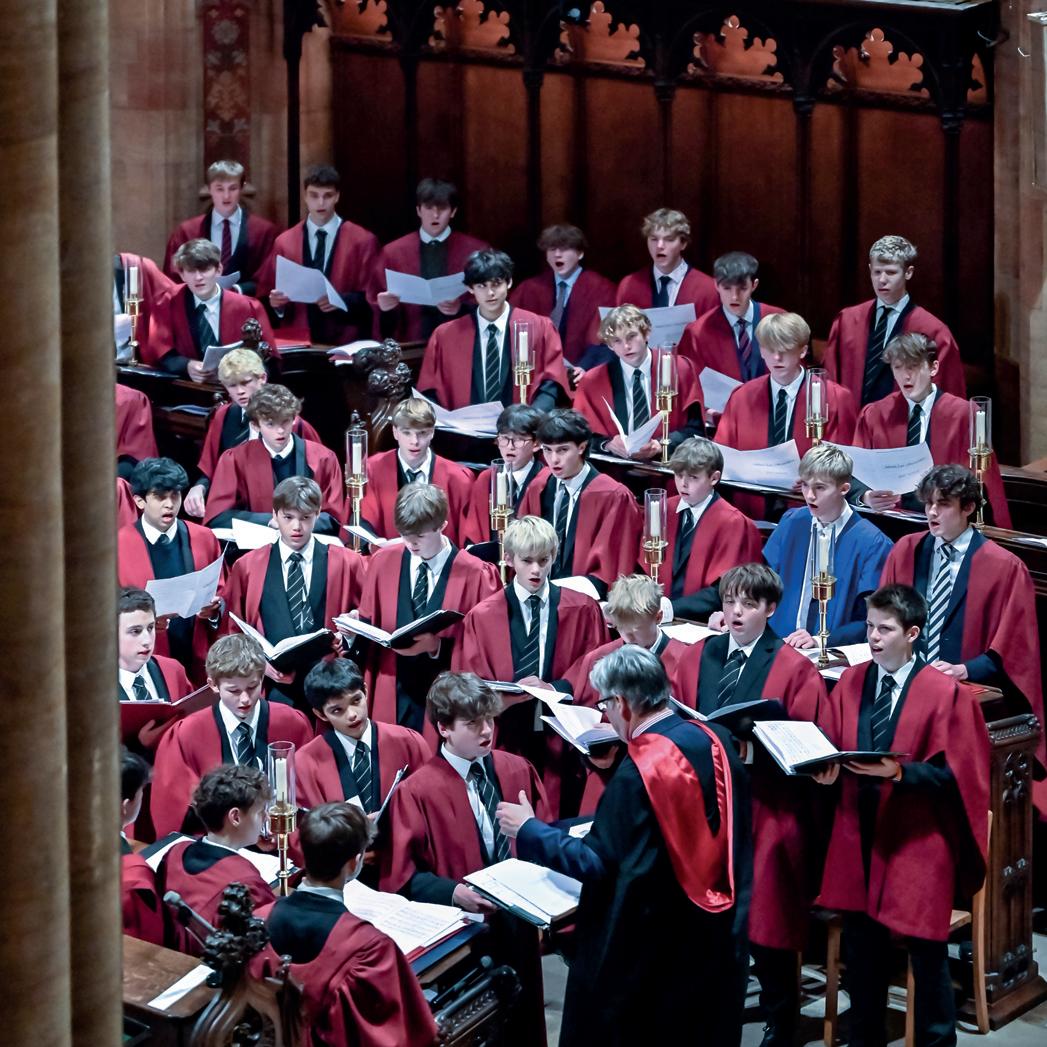
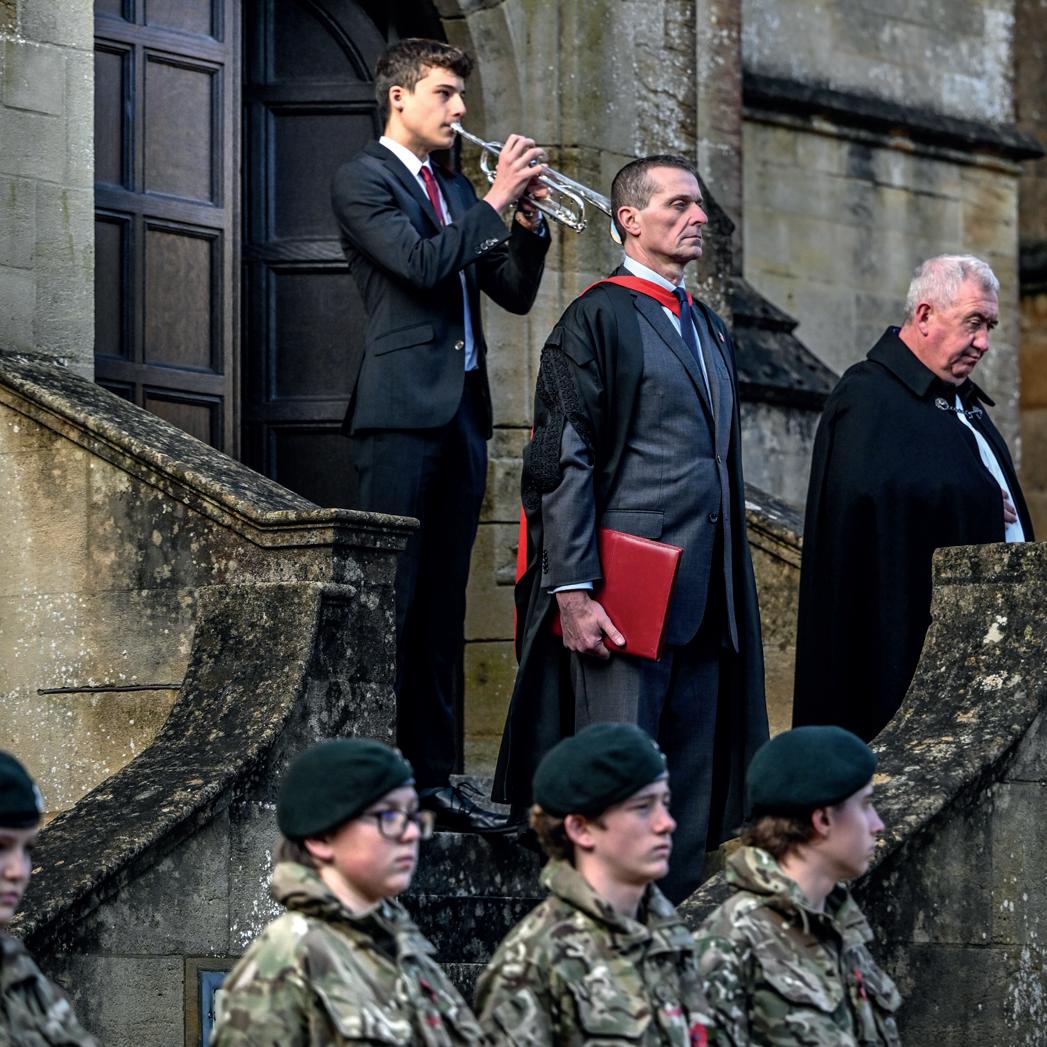
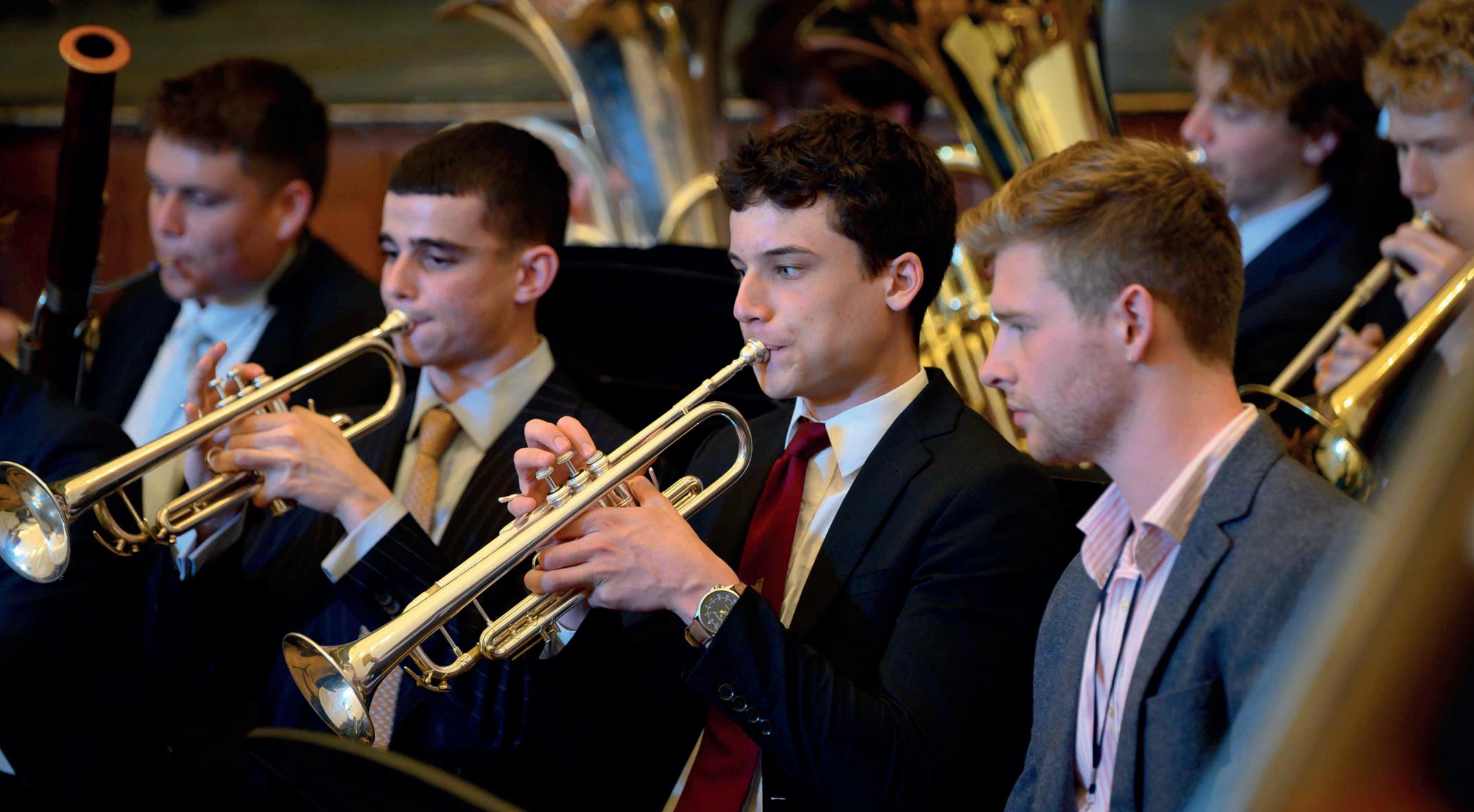
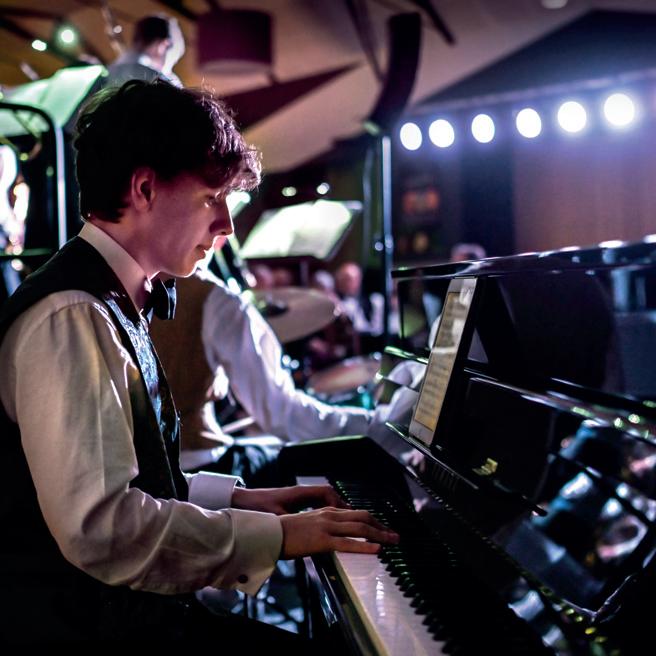
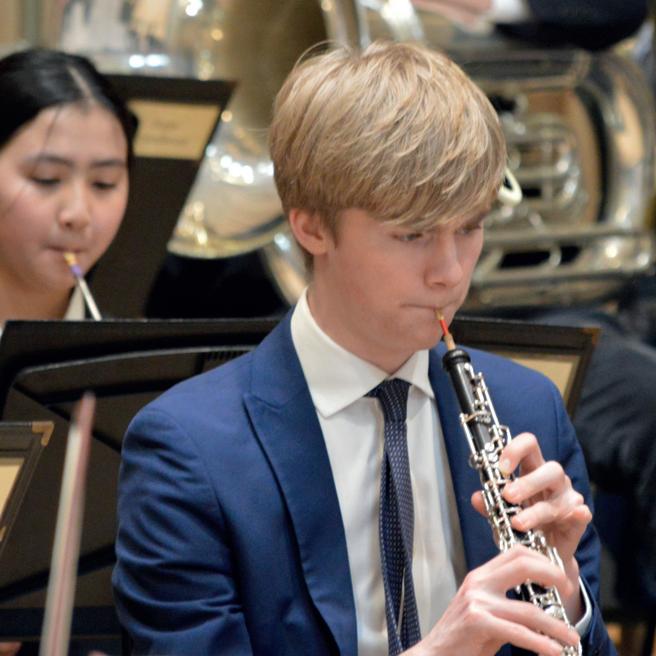
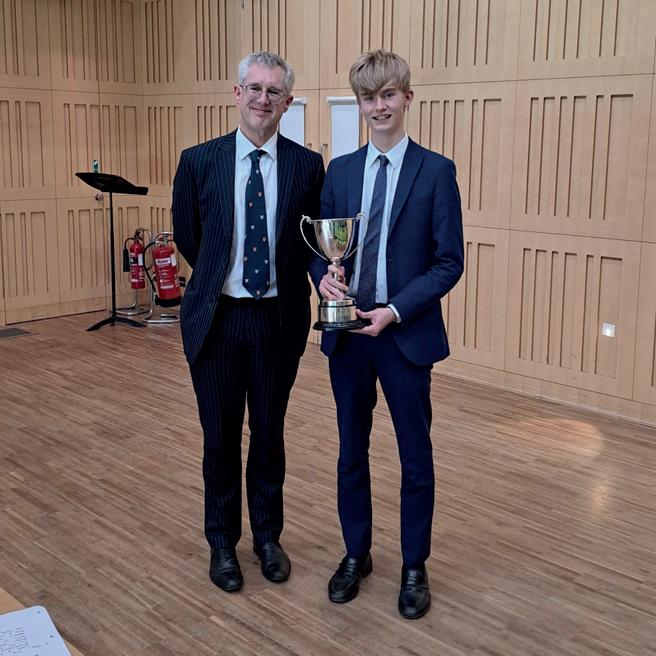
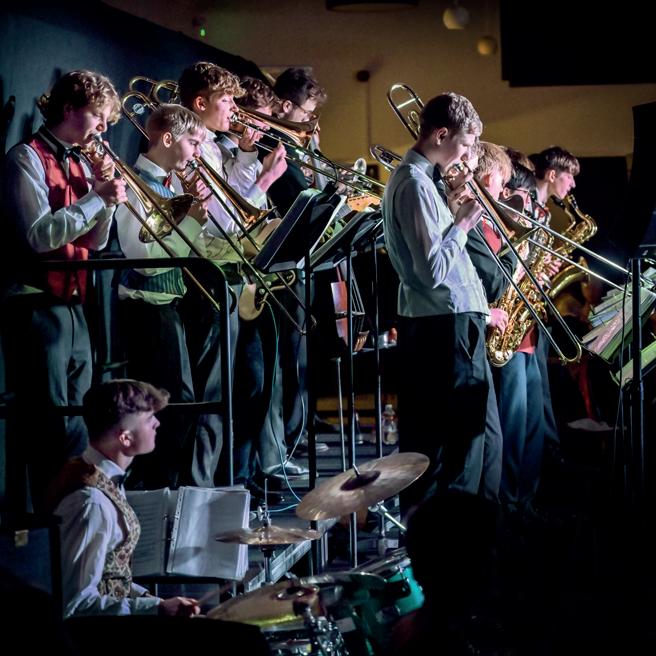
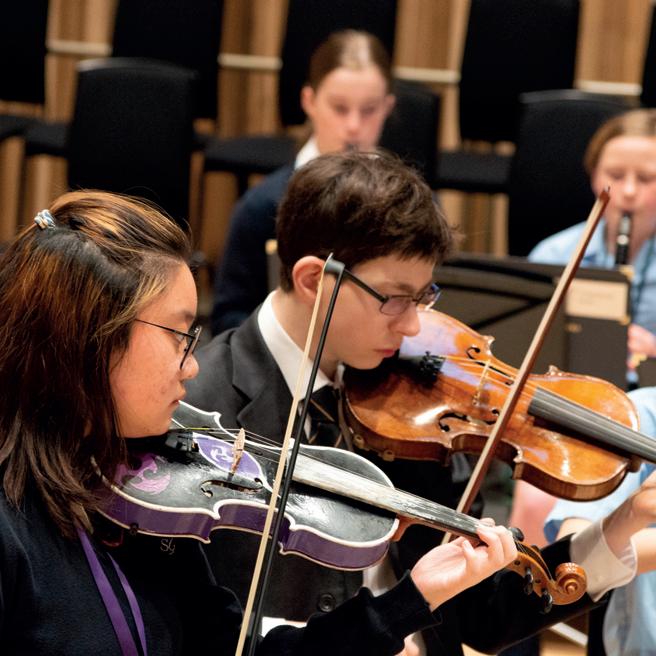
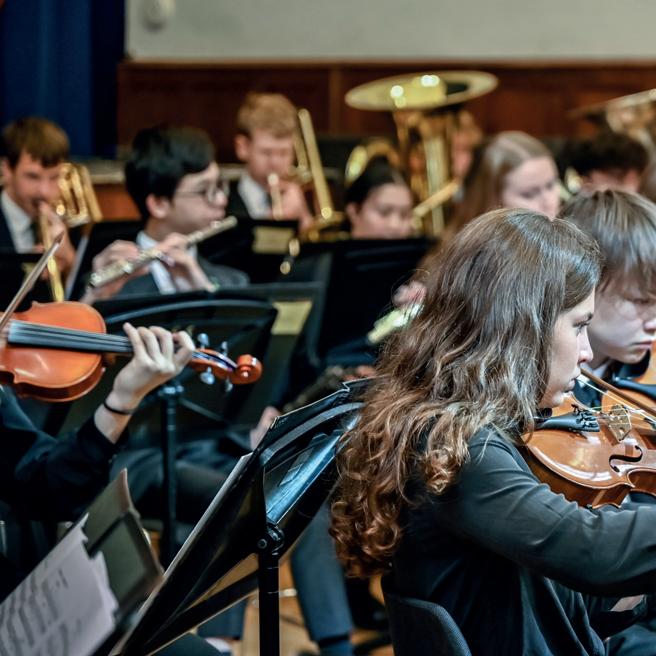
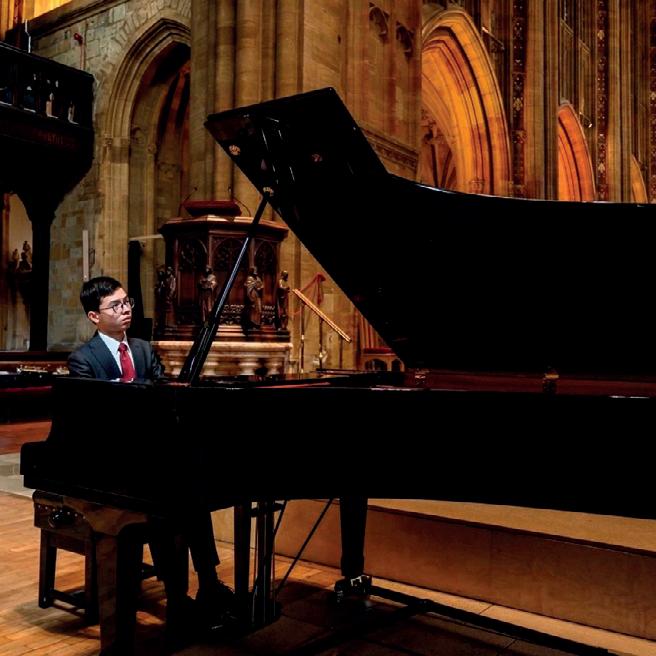
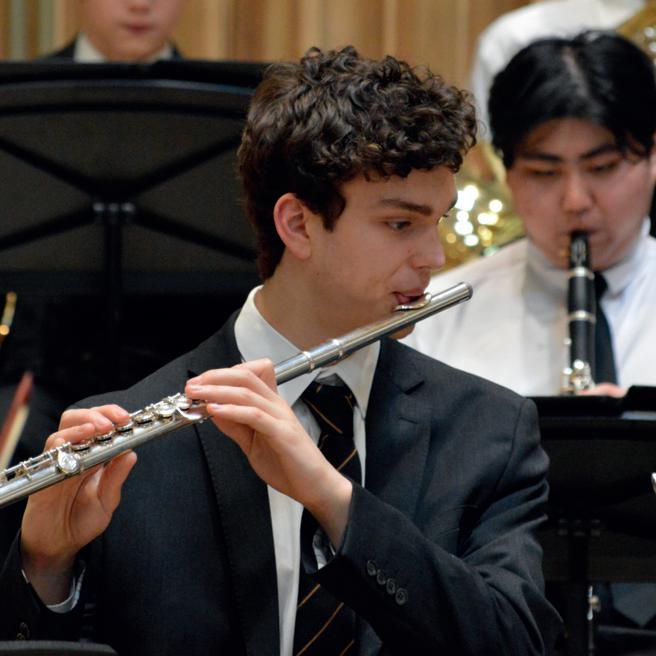
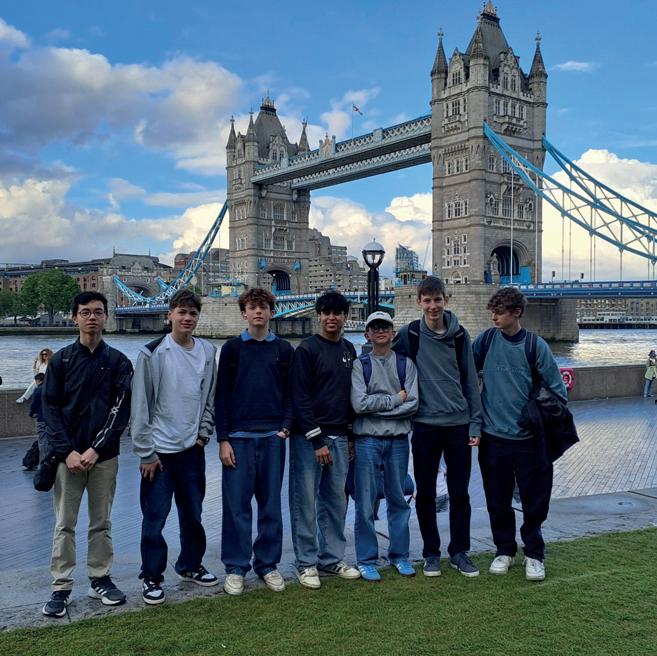
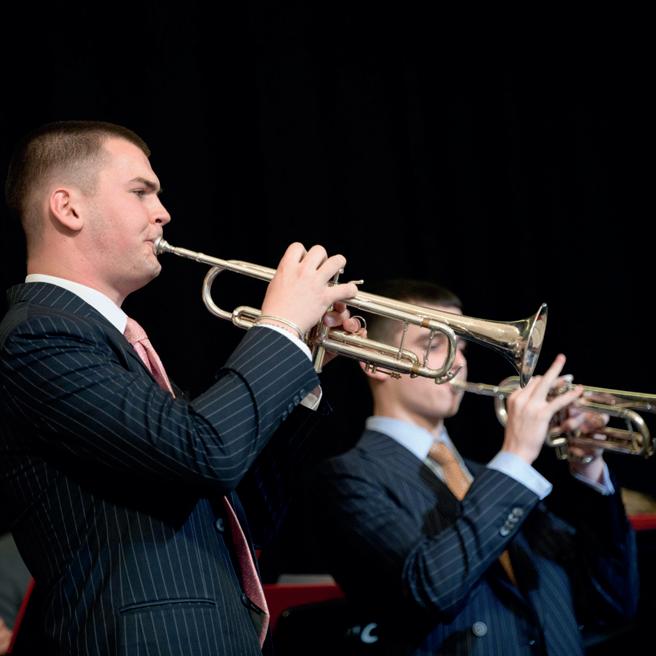
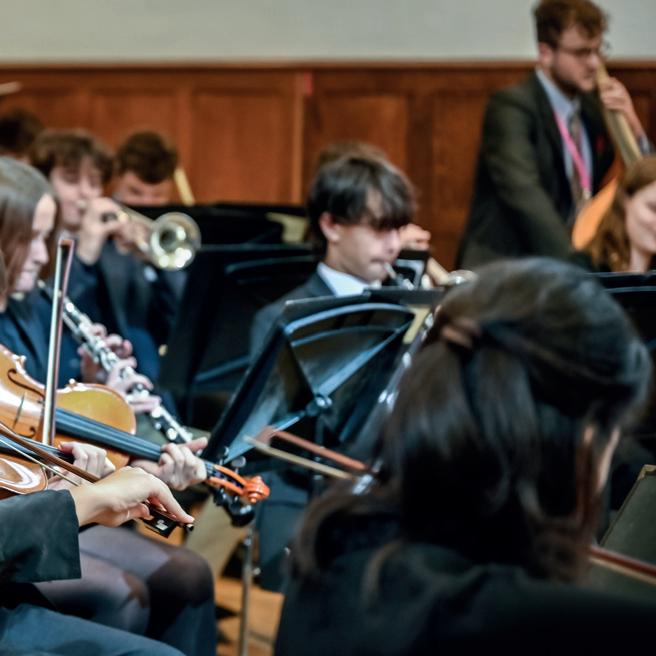
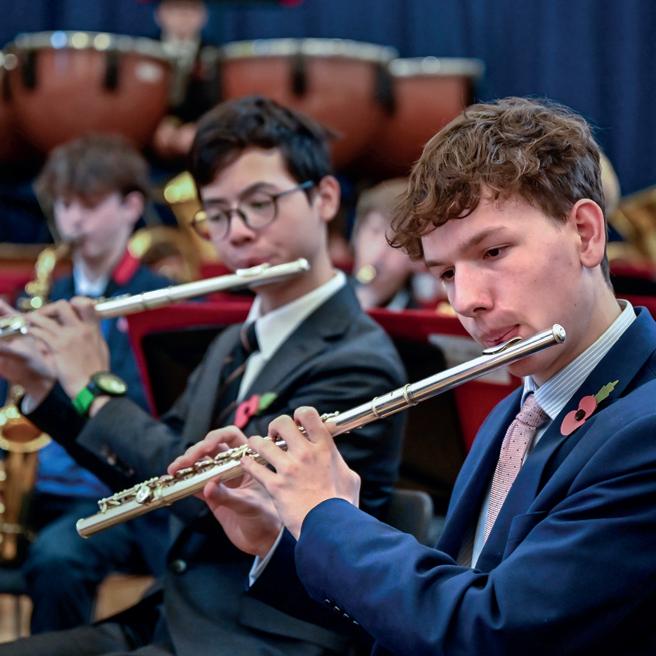
Amongst the many performances from pianists, we heard throughout the year in concerts were those of the two competitions.
The Junior Class of the Halliday Cup Competition, which took place in November, opened with Henry Ferguson’s Sch. Mus (3e) piano debut at Sherborne with Schumann’s First Loss, followed by Zeeshan Mahmud Sch. Mus (4f) playing the first movement of Beethoven’s Sonata Op. 49, No. 2. Louis Rippon Sch. Mus (4e) then galloped his way through another Schumann favourite, Knight Rupert, before Austin Lai (4c) demonstrated his intricate fingerwork in the extended first movement of Haydn’s Sonata No. 46 in A flat. William Lewis Sch. Mus (5d) gave a heart-felt account of Pamela Wedgwood’s Pink Lady and Samuel Rippon Sch. Mus (5e) captured Beethoven’s wit perfectly in the second movement of his Sonata Op. 14, No. 2. Benji Rimington Sch. Mus (4c) treated us to vivid picture of Debussy’s Little Shepherd with its evocation of a mountain landscape filled with the mournful sound of pipes. Sotaro Matsui Exh. Mus (5b) ended the class with Ile’s arrangement of Danny Boy. The adjudicator, Paul Drayton, awarded the class prize to Benji Rimington.
The Open Class started with another very accomplished performance of Debussy’s Little Shepherd, given this time by Joseph Harris (U6d). Toby Bemand (U6a) then gave a very commanding performance of Rachmaninoff’s famous C sharp minor prelude with its long, melancholic phrases, noble chordal textures, and its tempestuous middle section. Byron Yang (U6d) presented the only Bach offering of the day with the Toccata in E minor. This takes an extended form ending with a fugue
and Byron gave an extremely enjoyable performance with his expressive and clear playing, and an exciting momentum building towards the climax of the fugue.
James Coleman Sch. Mus (U6a) then played the first movement of Beethoven’s Sonata Op. 14, No. 1, successfully communicating its lyrical nature, as well as its more passionate moments. The audience were on the edge of their seats during Ian Liu’s Sch. Mus (4d) performance of Prokofiev’s virtuosic, one-movement Sonata No. 3; in this short, yet wideranging work, Ian was in his element, from the most intimate pianissimo passages to the most ferocious.
Orlando Tavener’s Sch. Mus (U6b) playing of the second movement of Beethoven’s Pathétique Sonata was notable for its warmth and lyricism, as well as his ability to convey the moments of drama. Sammy O’Brien Sch. Mus (U6e) then played Piazzolla’s Milonga del ángel; his performance was stylistically convincing and conveyed its sultry mood effectively. It was for Gareth Kwong Sch. Mus (U6e) to end the class with two contrasting Sonatas by Scarlatti, K.208 and K.209. These sonatas were written for the harpsichord, of course, but are gems of the piano repertoire and Gareth bought colour to both with his expressive playing in the first and light, dextrous playing in the second. The adjudicator awarded the class prize to Toby Bemand and the overall cup winner was Ian Liu.
The piano class of the Patrick Shelley Competition in June was surely one of the best in the competition’s history; the adjudicator was
impressed by the command of the instrument and compelling musicianship from all the pianists. Samuel Rippon started the class with Chopin’s E minor Nocturne, Op. 72, No.1, capturing its mournful mood and florid decoration eloquently, and was followed by Toby Bemand’s beautifully played Claire du Lune by Debussy. Frazer Fielding thrilled with his rhythmical characterisation in Grieg’s Wedding day at Troldhaugen, as well as the romantic duet in the middle section. Louis Rippon returned us to the expressionist sound world of Debussy with a sensitive and well-shaped performance of the composer’s Reverie. Gareth Kwong drew upon some very nimble fingers to give a classically spirited account of Mozart’s 12 Variations on “Ah, vous dirai-je maman” and this was followed by an equally romantically spirited performance of Liszt’s Consolation No. 5 by Benji Rimington. Ian Liu then enticed us into the mystical first movement of Scriabin’s Fourth Sonata leading into the climactic second movement which Ian played with impressive technical and emotional command. James Coleman was praised for his understanding of the jazz style of Iles’ arrangement of Danny Boy but, more than that, it had a real sense of poetry. Byron Yang bought the class to a reposeful end with another of Grieg’s Lyric Pieces, Notturno. The adjudicator awarded the prize to Ian Liu with Gareth Kwong as runner-up.
Benjamin Davey Head of Keyboard Studies
The brass department has had an exceptional year, marked by strong examination results, outstanding performances, and significant achievements by our talented pupils. Under the guidance of our dedicated teaching team, our Brass musicians have excelled in various aspects, showcasing their skills and enthusiasm for music. Shirburnians have achieved impressive results in both ABRSM and Trinity examinations, reflecting their hard work and dedication. Notably, Karl Ng Sch.Mus (U6b) gained a Distinction in his ATCL diploma, an outstanding accomplishment, and Oscar Boswall Sch.Mus (L6f) achieved a Grade 8 Distinction on the tuba.
The Brass Band and Brass Quintet delivered exceptional performances, particularly during the Onyx Brass Day. Lunchtime concerts featured notable solo performances, including the debut of Jack Maltby Sch.Mus (3a) on the trombone. Another highlight was the Brass Band performing an arrangement of Ernesto Lecuona’s Malaguena during a lunchtime concert.They also provided exceptional musical accompaniment for the CCF Inspection, enhancing the ceremonial atmosphere whilst maintaining their regular performance slot at the Sherborne Festive Shopping Day, adding festive cheer to the event. Their stirring fanfares enriched the Christmas services and the Commemoration Service, adding to these important school traditions.
The Brass Quintet achieved a significant milestone by reaching the semi-finals of the Pro Corda Festival. Although they were unable to attend the semi-finals due to the absence of a player, this achievement highlights their excellence and competitive spirit. Our success is underpinned by the excellent support and instruction provided by our dedicated brass teaching team: Miss Whitemore, Mr Nordin, Mr Harris, and Mr Arkwright. Their expertise and commitment have been instrumental in nurturing the talents of our pupils and driving the department’s success.
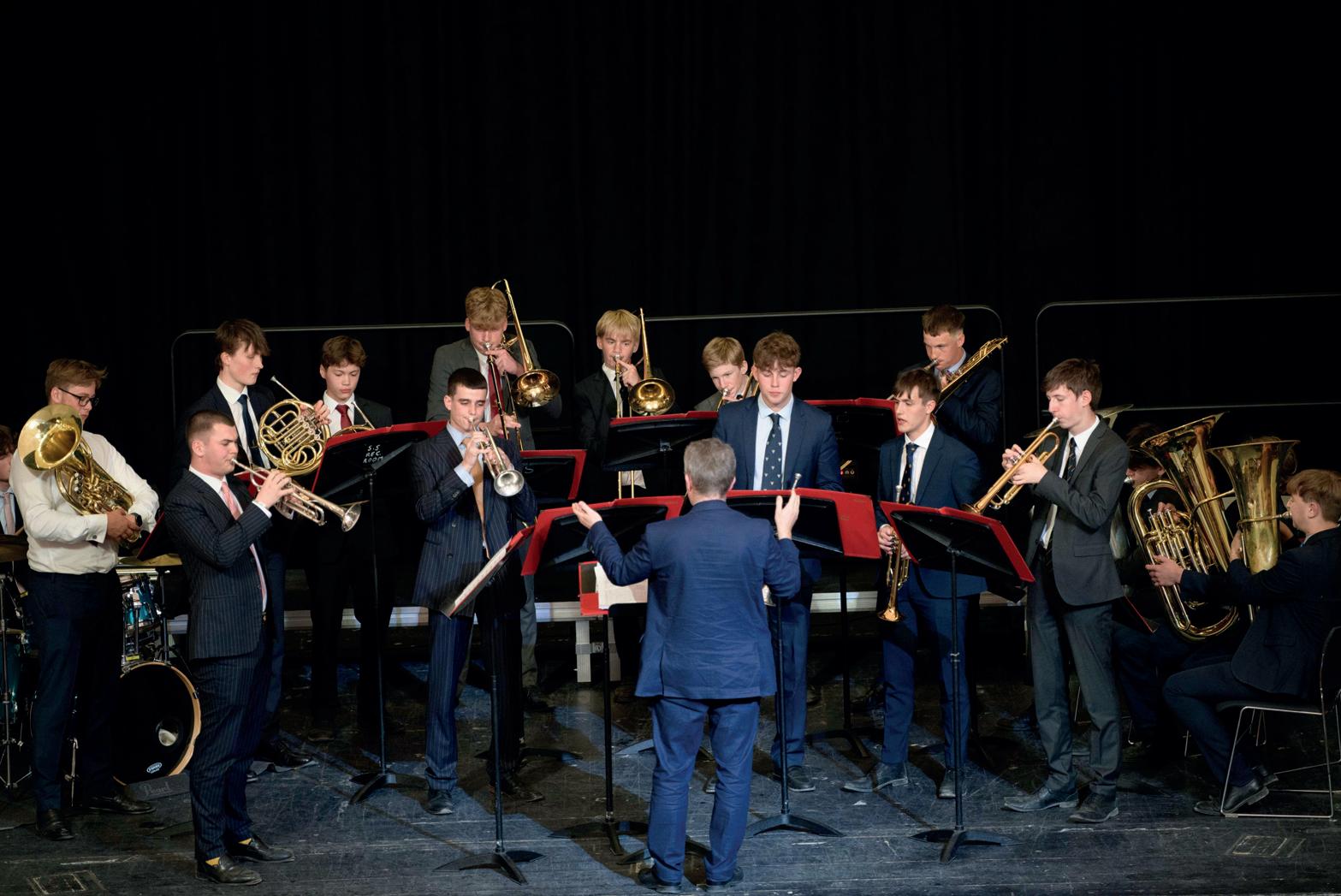
Robert Costin Head of Academic Music and Acting Head of Brass
The year commenced with the Joint Schools’ Unplugged event in the Merritt Centre, where we were treated to several new acts from various year groups. Hector Sheldrick Sch.Mus (3m) amazed the audience by accompanying himself on the piano—by ear—and with his stunning Elton-like vocal performance. In the upper school, Cassius Hammick (U6m) and Alex Biddulph (L6d) performed exceptionally well, with Alex showcasing his talents on looping pedals.
In November, the RocSoc bands and DJs displayed their talents to their peers in the BSR. It was particularly great to see so many bands forming with Sherborne Girls. Hound St (Jim Harrison (U6d), Charlie Money (U6d), Byron Yang Sch.Mus (U6d), Alex O’Sullivan (L6d), and William Norton (L6b)) covered “Superstition” extremely well. Another Upper Sixth band, consisting of Bamber Mauleverer Sch.Mus (U6b) and Freddie Hamilton (U6g), joined forces with the girls from SG to play “Don’t Look Back into the Sun” by The Libertines. This event marked the debut performance of the Lower Sixth band featuring Simon Aggett (L6c), William Ashworth (L6b), Alex O’Sullivan, and William Norton performing “Chasing Cars,” which was one of the many highlights of the night. George Wight (L6f) was behind the decks, DJing to a full crowd, which was great to see.
In the Lent Term, Unplugged was arranged for the Upper School in the Tindall Recital Hall, with over eighty pupils in attendance. Alongside the bands that played at RocSoc, Hector Kennerley Sch.Mus (U6g) started off the night on the piano, followed by Cassius Hammick and Alex Swann Exh.Mus (U6m) performing some original music.
The Trinity Term featured two concerts: the annual CourtsFest in April and the Unplugged event in May. George Wight opened the night, performing twice and impressing everyone with his DJ skills and mixing prowess. Alex Biddulph again wowed the audience with his looping ability, while Cassius Hammick, Alex Swann, and Alex O’Sullivan delivered one of the highlights of the night with an energetic and powerful set of popular songs from various bands. Hound St showcased the remarkable talents of Charlie Money on lead guitar and Jim Harrison on lead vocals, maintaining high energy levels. Bamber Mauleverer and Freddie Hamilton followed with an excellent set, preparing the audience for the final act of the night: the amazing Lower School Band featuring Simon Aggett, William Ashworth, Alex O’Sullivan, and William Norton.
The Unplugged event, while calmer than RocSoc, maintained its momentum with performances by Hector Sheldrick, Freddie Lowe (3m), and Kevin Geng (3c), who played music by Coldplay. Alex Biddulph captivated the audience with his guitar and vocals. The evening also marked the final performance of one of the school’s great performers, Cassius Hammick, who delivered an outstanding set of songs.
Michael Lehnert Music
ASMusic School Manager at Sherborne, supporting such a busy and vibrant department of exceptional musicians (both staff and pupils!) is hugely rewarding and it’s a role I take great pleasure in fulfilling. The Music School is well-known for being a hive of activity from morning ‘til night, and this academic year has been no exception. On a daily basis I am surrounded by the sound of music-making, whether it’s an instrumental lesson, a musician practising for an upcoming grade exam or Diploma or rehearsing with one of our inspirational accompanists for a Friday Lunchtime Recital or competition performance; the list goes on and I am regularly reminded of the superb quality of music our Shirburnians present. A vast number of pupils have been entered for instrumental exams and diplomas this year, from which we’ve seen eight Grade 8 Distinctions and five Performance Diplomas being achieved, with more to come at the end of the Trinity term.
The Music Diary contains details of the many concerts, competitions and exams taking place, and it is when an event is initially confirmed that this area of my job begins. I am responsible for the events from the very early stages of designing and producing promotional materials, right through to hosting on the day. What happens in between depends on the event but usually requires a certain amount of plate-spinning! Since September our fantastic musicians have performed in no fewer than 28 Friday Lunchtime Recitals, played
some festive favourites at Sherborne’s annual Festive Shopping Day, sung in Choral Evensongs—joint with Sherborne Girls—at Salisbury and Exeter Cathedrals, competed against their peers in the Woodwind and Halliday Competitions, attended a Brass Day with the renowned Onyx Brass, performed in Organ Recitals, a Musical Showcase, Diploma Evenings, Joint Schools’ Unplugged—which this year has been expanded to include pupil performers from all years, once again contributed magnificent performances to the annual
Sherborne Abbey Festival, and given a remarkable performance of Handel’s Messiah with the Sherborne Schools’ Choral Society in the magnificent Abbey, whilst the Sherborne Schools’ Symphony and Sinfonia Orchestras have given their own concerts and offered Open Rehearsals, the Choirs have sung beautifully in three Abbey services a week and various Advent and Christmas Carol services, and the ever-popular Swing Band have delighted their audiences in All Stars, Dinner & Jazz, and most recently OS Day.
Laura McCormick Music School Manager
Before the end of term, musicians will have also participated in the busy Commem week which kicks off with the annual Patrick Shelley Competition and follows with a jazz night, Battle of the Organs, a Leavers’ Concert and, of course, The Big Gala Concert to round off a phenomenal year. This is quite apart from the regular ensemble rehearsals our musicians enjoy each week such as Choir, Chamber Choir, Wind Band, Swing Band, Jazz Ensemble, Brass Quintet, Brass Band, Orchestra and Symphonic Strings. Each and every event requires efficient organisation from the start, be it liaison with the various exam boards to ensure all pupils are entered accurately and exam days run smoothly; designing and producing promotional materials; creating online booking pages and monitoring numbers attending; inviting parents, staff and members of the local community; liaising with our fabulous catering team to arrange refreshments; liaising with performers and their teachers to create programmes (allowing time for any inevitable last-minute changes!); creating table plans; organising photography…once
again the list is endless, and this is all before the event takes place. On the day itself I will usually be found “front of house” welcoming our guests and being the point of contact for staff and guests alike. It’s hugely rewarding watching the result of months of work come to fruition—not just hearing and watching our musicians who are so clearly and justifiably proud of the performance they have just given, but also as we welcome back so many members of the local community time after time who, judging by the tremendously positive feedback they give, enjoy Sherborne’s music just as much as we do.
But my role isn’t simply eventsbased. Over the last academic year, we have been growing the Music School’s social media platform, posting regular highlights from many of the concerts on Instagram instead of ‘broadcasting’ entire concerts on YouTube. Keep watching and follow us
@SherborneMusicSchool
In the Michaelmas Term, the Third Form studied poems based around the theme of identity. The following poem was written in response to our anthology and entered for the Young Writers national poetry competition ‘This Is Me’. We are delighted that it was selected to be printed in the anthology.)
}Confident, kind, Sporty, popular, Academic, studious, Good looking, strong.
Whilst this could be me, It really isn’t…
Really, under thick layers of denial Eventually you would find, An anxious, worried, homesick, Unsettled thirteen year old boy, Lost in an abyss of exams and tests and Worries, just searching for solutions to The endless thoughts and pressures of Everyday life.
Alexander Hayes (3d)
But that isn’t all, because this isn’t Supposed to be a depressing poem. In fact there are thousands of things, That pull out a smile anytime, anywhere. Such as rugby, mountain biking, dogs, and Friends and family.
These are the things that that bring joy to my everyday life, Shielding me from all of my own worries, And my anxiousness, all of the things That could suck me into a barrage, Of things in my head constantly reminding Me of the things that I just have to drag myself through And hope that in the end everything will be OK.
Sometimes I make mental charts, To remind me that it’s not so bad at all, In fact it’s really good. because when the tough gets going, You have to help yourself and, Choose to put a smile on for all of the things that make you happy, And for all of the people you love, And for the people who might be going through the same thing.
So really in the end it will l be OK, And if it isn’t, then it’s not the end.
You used to hold that mirror up to me, Reflecting my faults and flaws, my quirks and qualities.
Now it sits there, tucked away in the corner,
Shattered and broken, but holding on to the love it once felt.
The days have not aged the memories held within its bronze frame.
The reflections stored in the shards, buried deep in our heads,
Forgotten for the moment, but never lost, Are kept safe and whole, unlike the glass that stores them.
Occasionally, I gaze into the abyss, Staring at the shattered image looking back at me.
Hopes and apologies fill my head, yet along the way,
The words get lost, typed but never sent.
One day my words will reach you, mending that bronze frame, Restoring the mirror and ridding me of this pain.
Will Tatham (L6d)
Basic arithmetic is
Counting the pimples on my chin
Between blocked pores. Hard
Shelled capsules (prescribed diplomats)
Chemically balance
Cultural aggression in the biome.
This facial map was just renewed,
Scar tissue added to the archive,
Growing the data base.
A new layer of damage to redefine
My little Pompeii.
Eyes visit the excavation site
Free of charge but not of feeling.
They are sort of numb the craters
In my skin, pits
From stress pressed blackheads
That I dug out: ‘All foreign bodies
To be exhumed’.
When the hot water is turned off
I wash in the cold
And the old blemishes go blue, Like how a cheap tattoo ink leaks
Out of the dermis.
Freddie Fineman (L6e)
Sunburnt.
Their touch is tender on my skin; It is warm and it burns.
I flinch
But barely
As they softly press their fingertips
Deeper into my neck.
Red, the mark embeds itself, Cauterized like an open wound.
One week later
And they are slowly leaving me, Peeling away, their heat all dried up. Charred skin floating like embers, From a dying fire.
Edward Brooke (U6b)
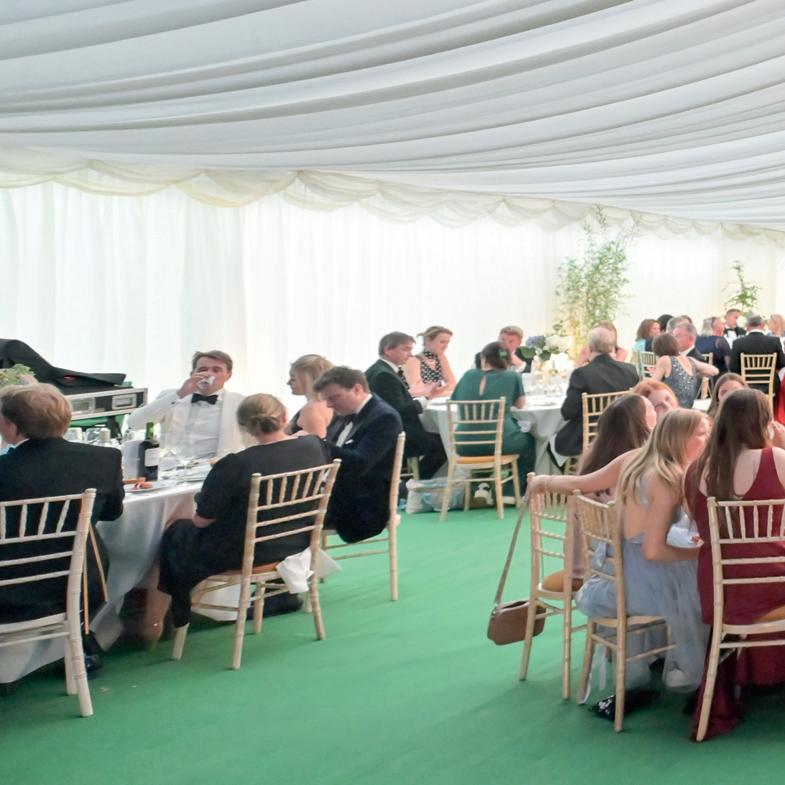
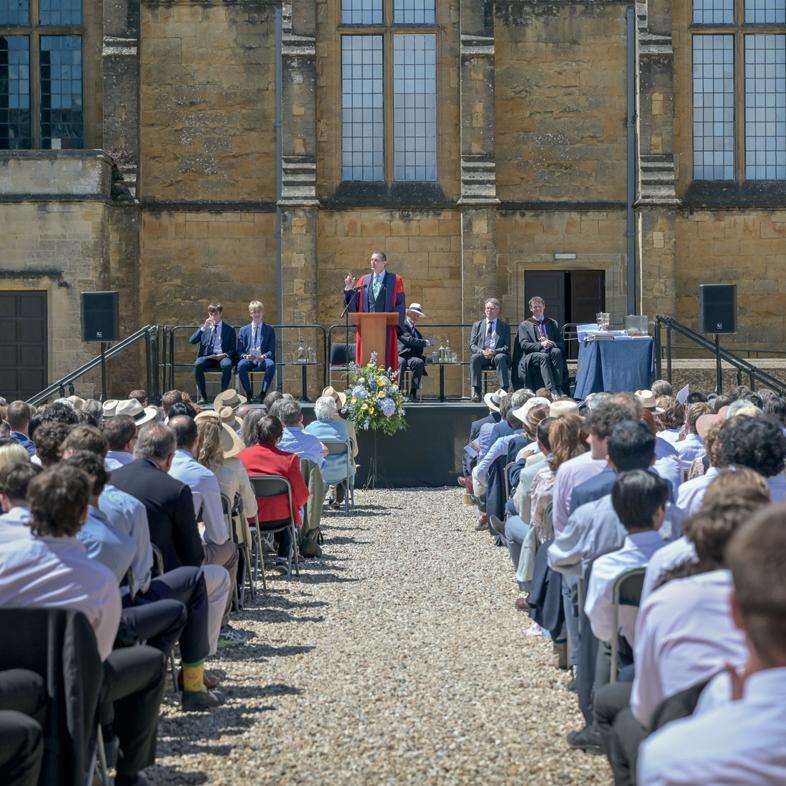
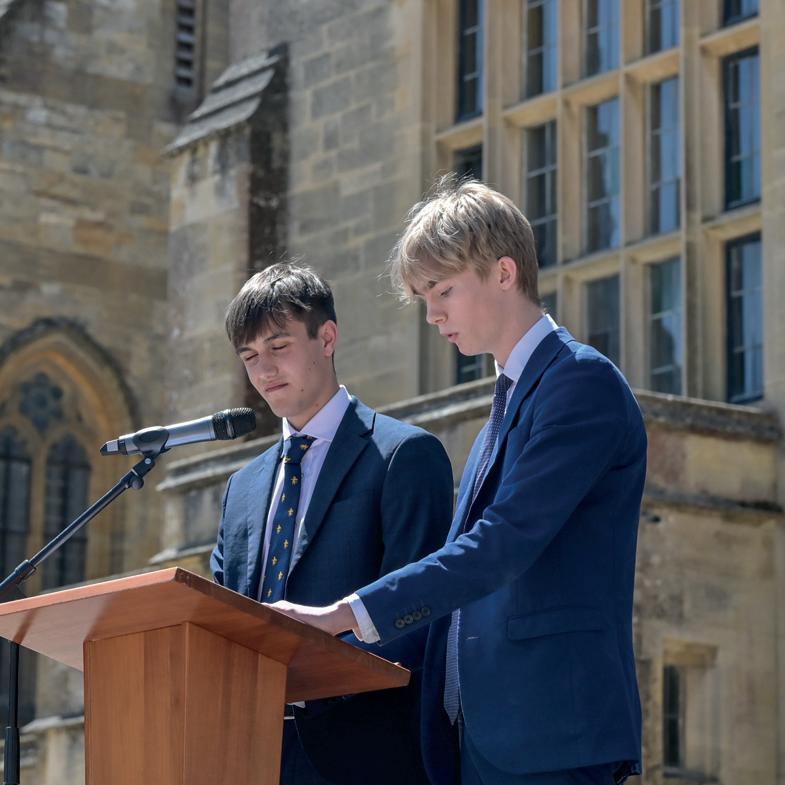


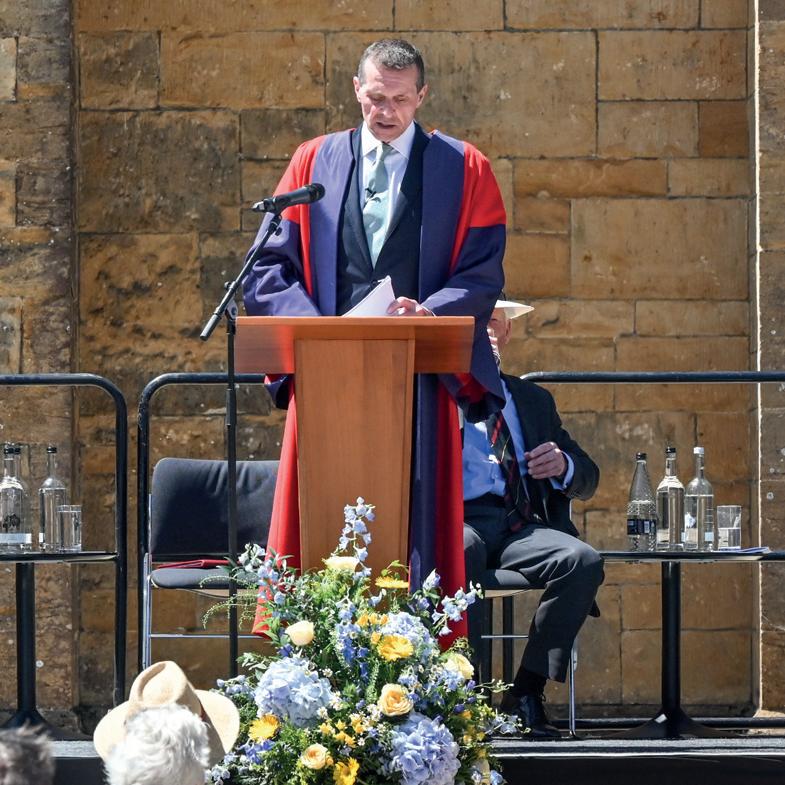
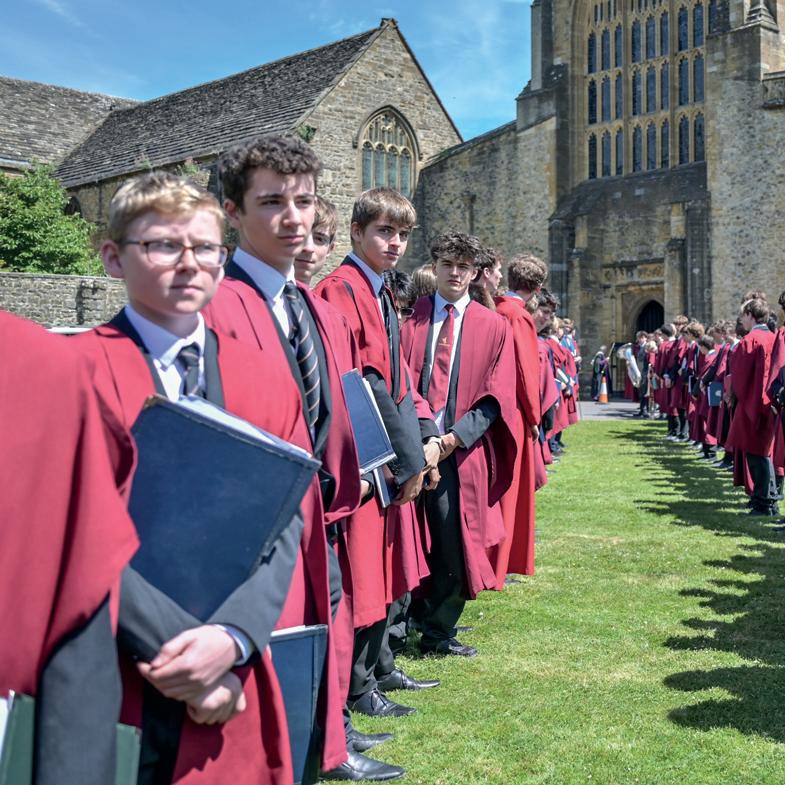
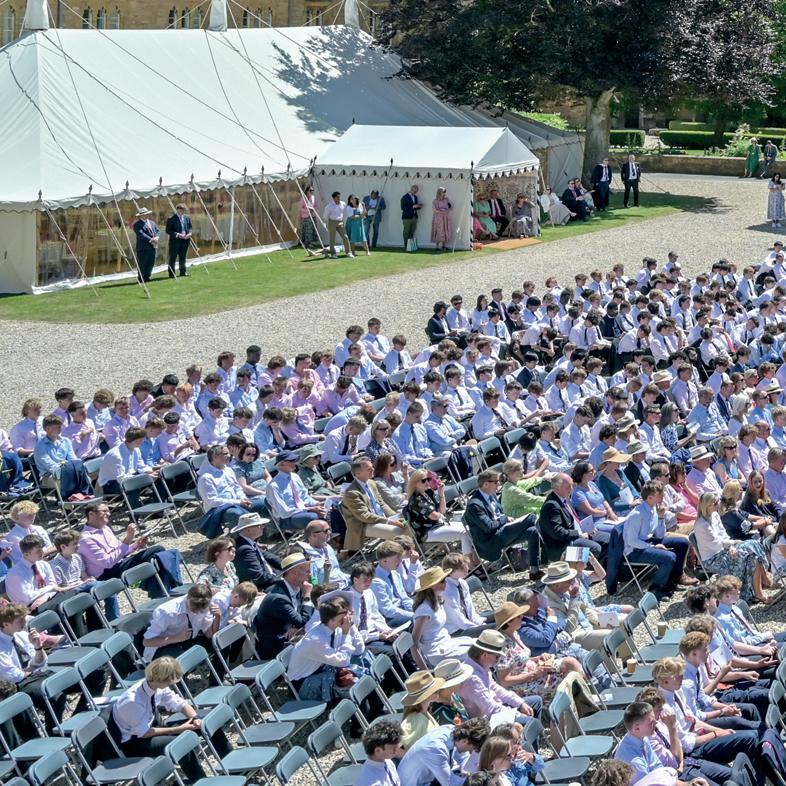
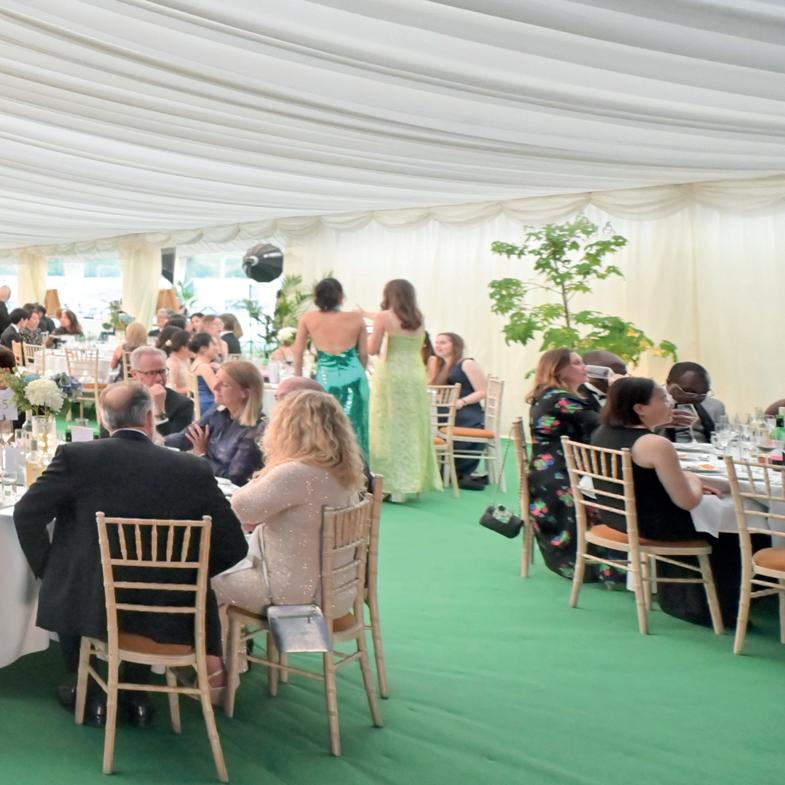
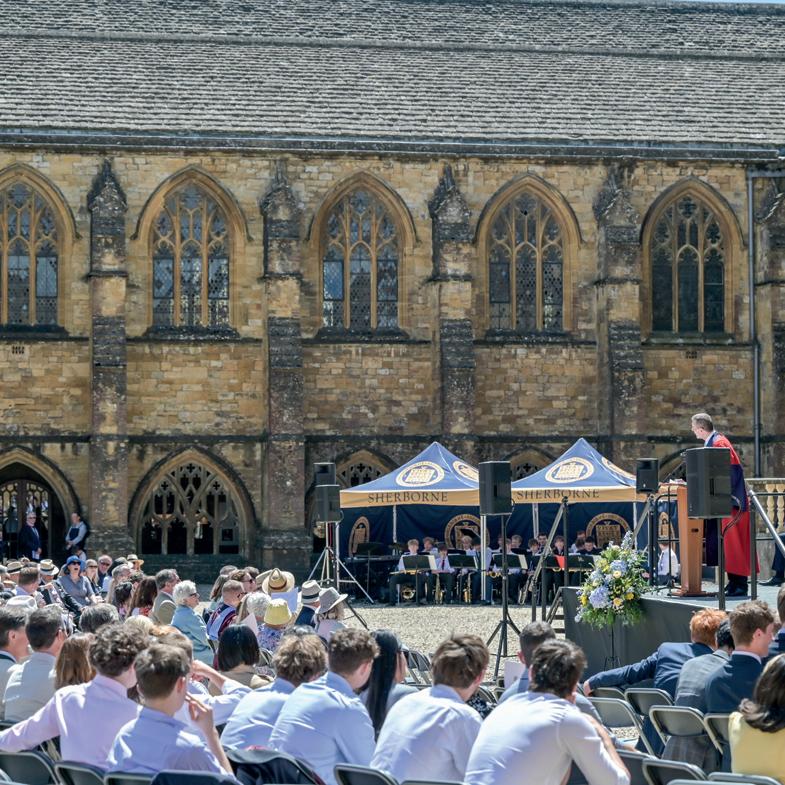

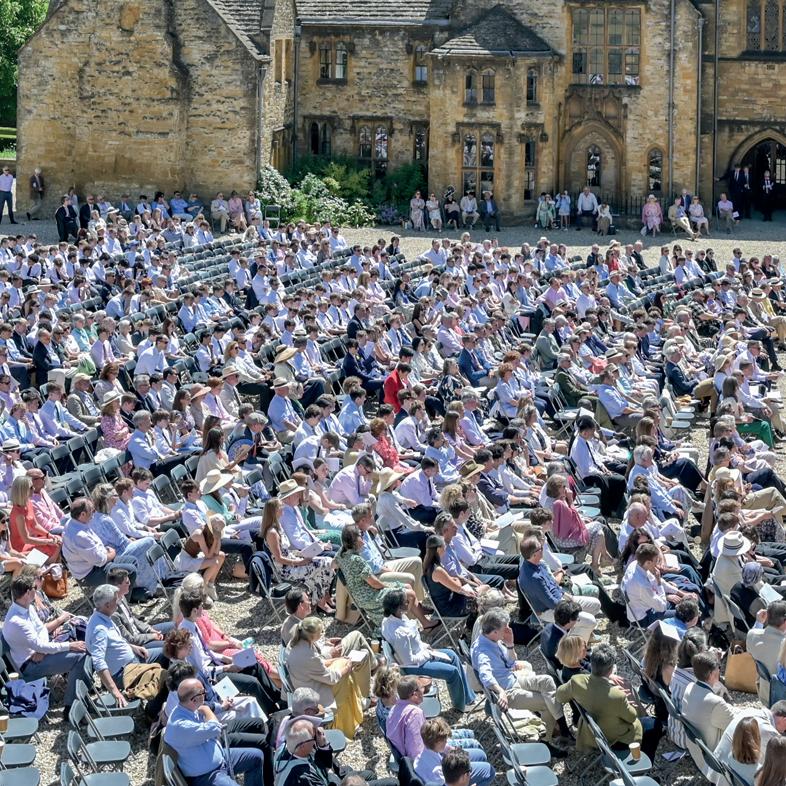

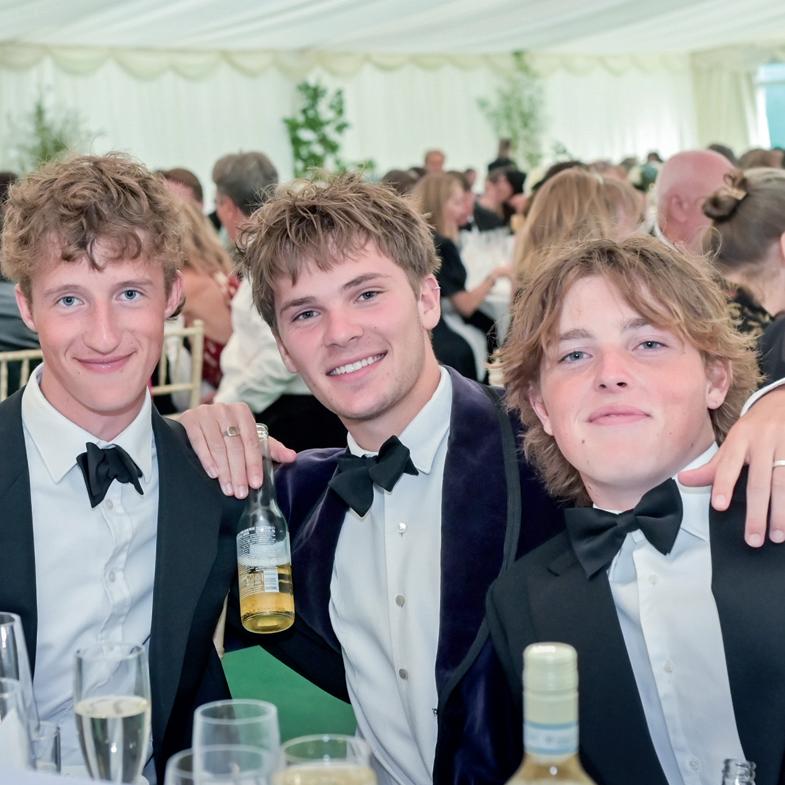
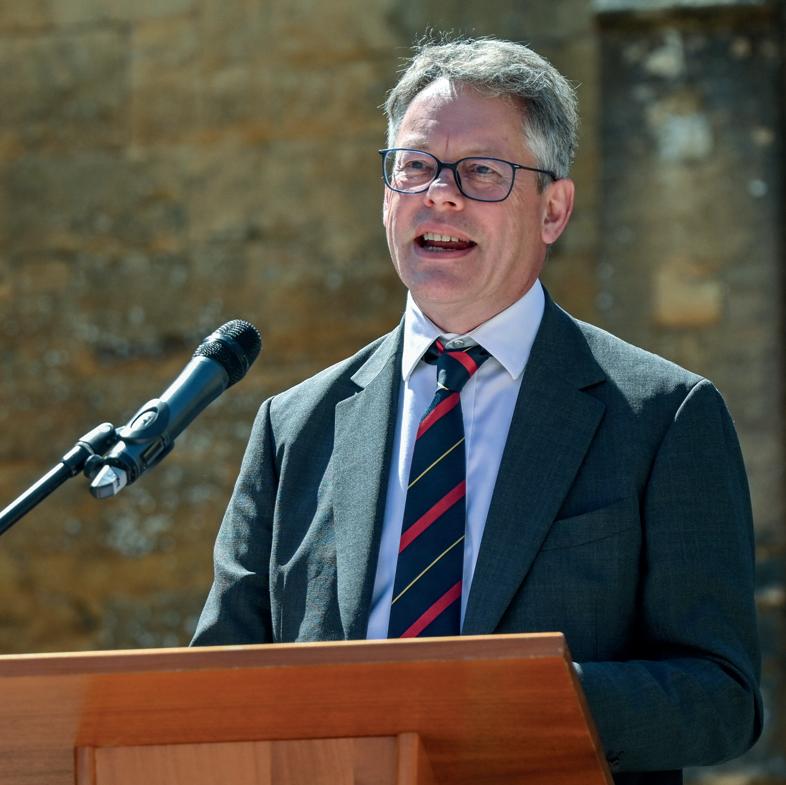
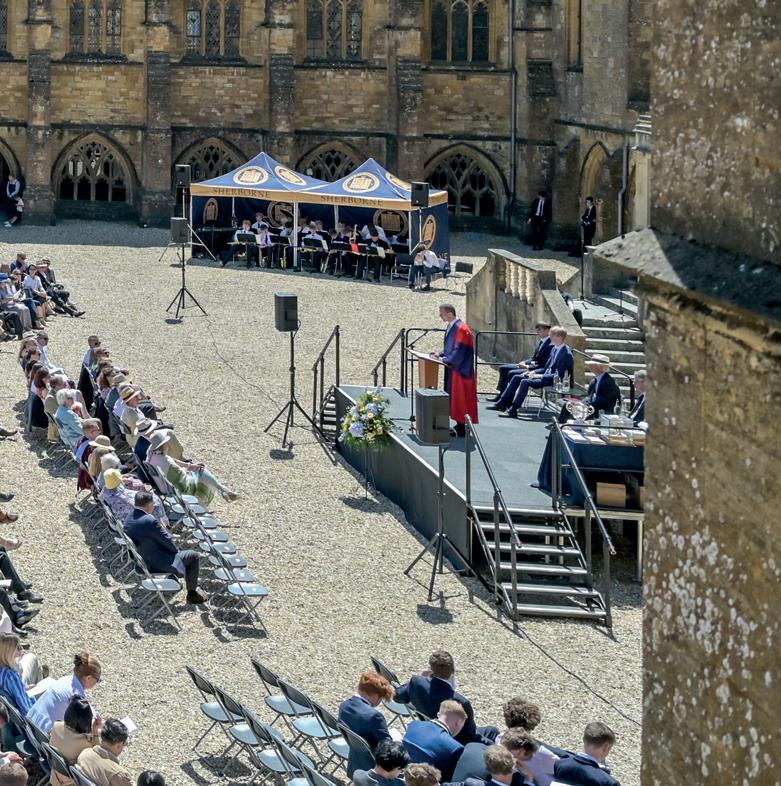
How wonderful to welcome so many parents and grandparents to this year’s Commem. Following a moving service in the Abbey, prize-giving and lists took place in the Courts. This year’s Guest of Honour was Old Shirburnian Sir Dermot Turing (h 78), nephew of our greatest alumni, Alan Turing.
Well done to all the boys whose hard work, talent and commitment were recognised, and particular congratulations go to Rocco Taylor (U6b), the recipient of this year’s Bow Award. This is presented each year to the pupil considered to have shown the most care, concern, and kindness to others.
The day came to an end with a stunning ball at Sherborne Girls.
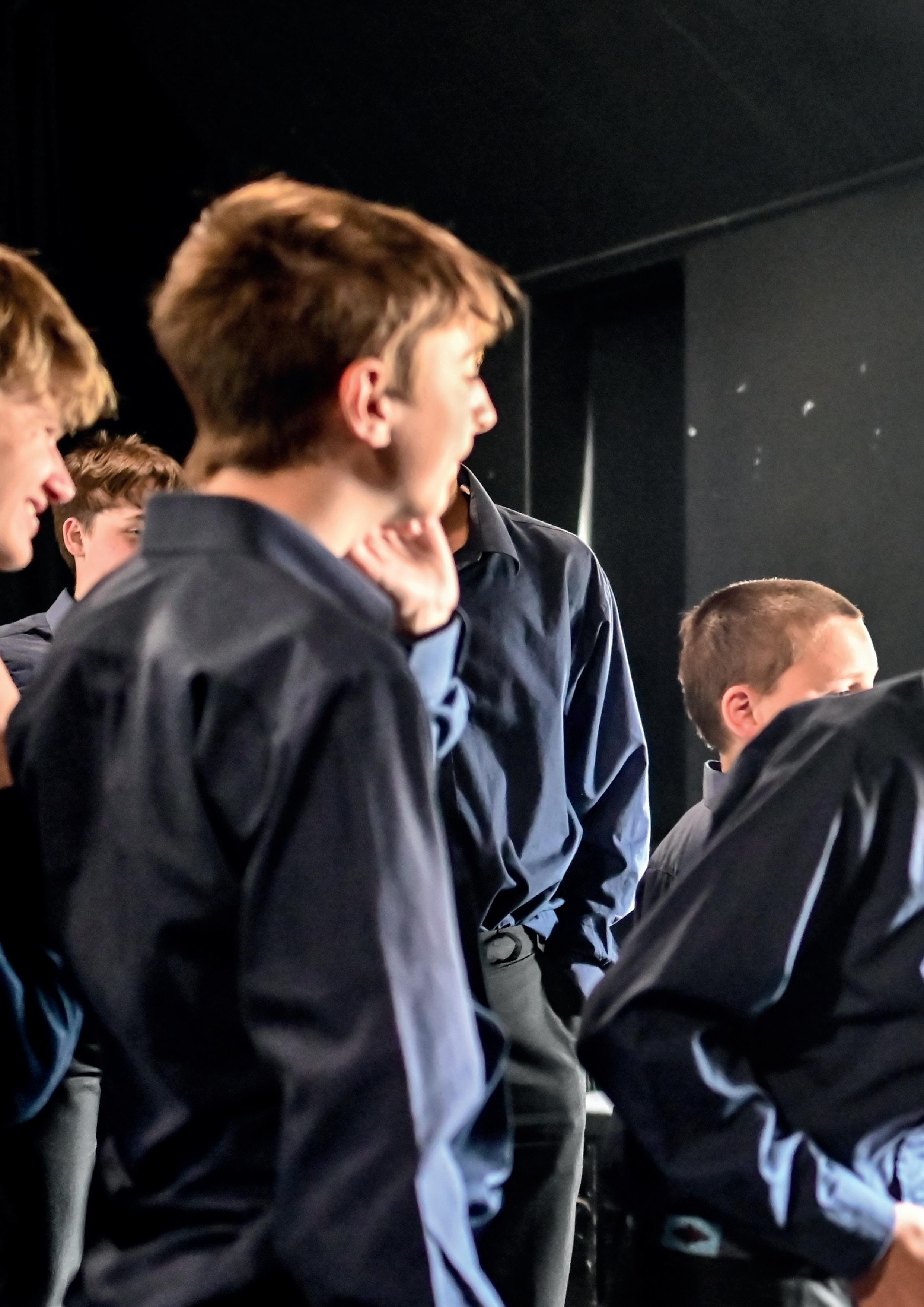
The benefits of reading are legion (studies show it improves concentration; promotes curiosity; expands vocabulary; improves grammar and other literacy skills; develops reasoning etc); however, the great appeal for me is in the thrill of immersion, the awe of worlds lush and puissant with imagination. Pure wonder. Anyhow, as my particular proclivity runs to Science Fiction (yes, I know - sorry), I have encountered more than few stories involving AI. Whilst Asimov may have poured the foundation (ha ha), tales of machine intelligence have become a virtual trope. Many will recall Arthur C Clarke’s infamous ‘Hal-9000’ (a psychotic computer who, faced with conflicting orders, opts to kill his crew - “open the pod bay doors, Hal…”). However, Alastair Reynold’s treacherous ‘Clockmaker’ is just as compelling; the replicants Philip K Dick’s Do Androids Dream of Electronic Sheep (from which the Bladerunner films were spawned) are similarly menacing; and the ever-evolving ‘Penny Royal’ of Neal Asher’s fertile imagination is as malevolent as it is potent. Wicked stuff.
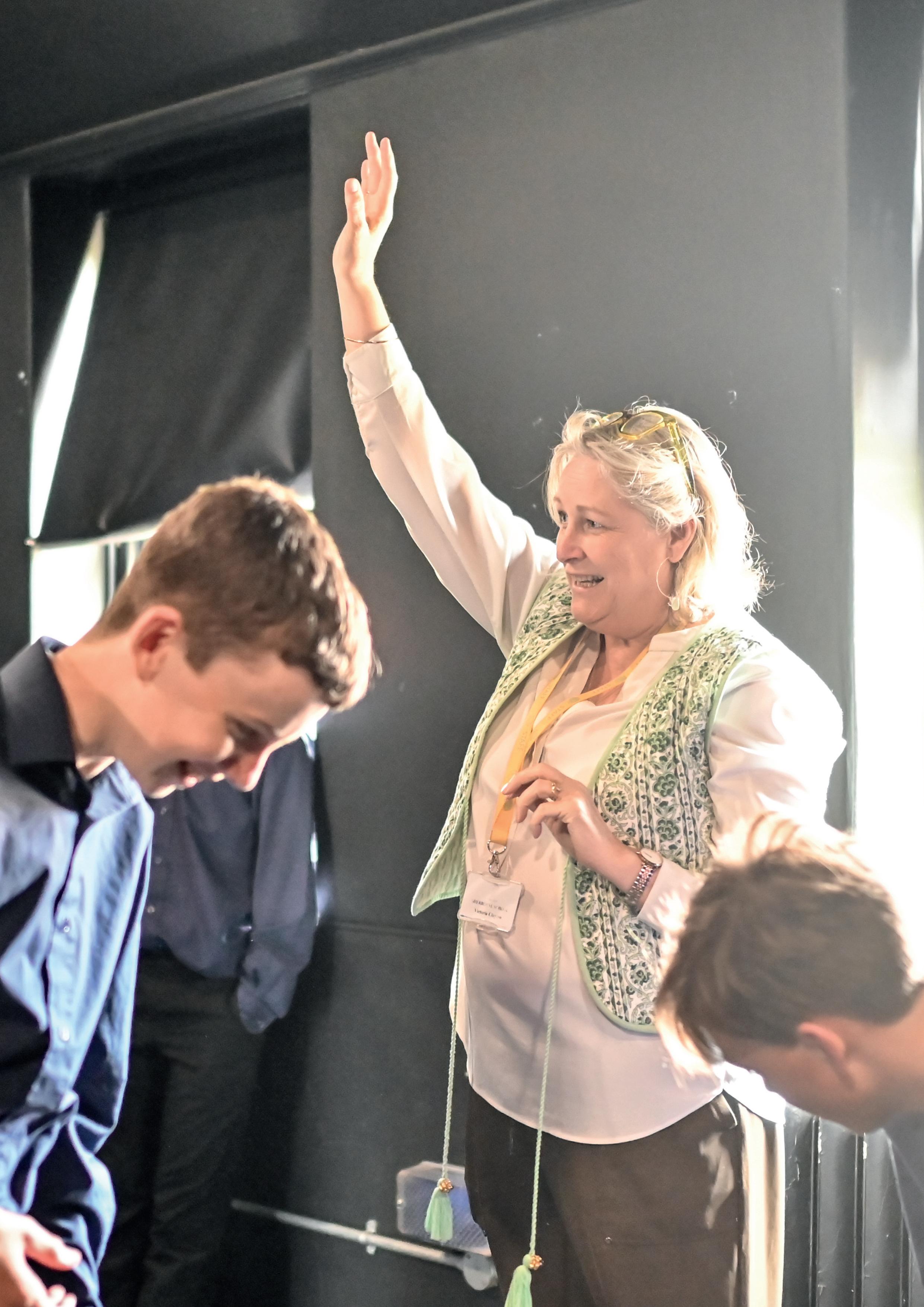
But not all fictional AI are evil. Asimov explores the humanity imbued in robots in many of his books and both Ken Macleod’s The Night Sessions (a gritty account of computer religion) and Ted Chiang’s sublime book The Lifecycle of Software Objects are similarly philosophical. Indeed, the nascent internetbased intelligence of Robert Sawyer’s WWW:Wake trilogy turns out to be rather nice.
By similar note, though AI is often envisaged at massive scale (e.g., Scott Westerfeld’s planetary AI; the inscrutable, city-spanning ‘aeai’ of Ian McDonald’s River of Gods; or the apotheotic construct of William Gibson’s infamous Neuromancer), others are relatively lowly. Kazuro Ishiguro’s ‘Klara’ is good example of both - a child’s companion who turns out to be good - and the ersatz protagonists of Robert Cargill’s novels struggle with some very human concerns.
AI, it seems, are also funny. Douglas Adams had a good go at this back in the late 70s, though I think Martha Wells landed it rather better: her ‘murderbot’ character is positively hilarious (so much so, it won the Hugo in 2018). Add to this list John Scalzi’s artificial characters, who seem always to have the best lines, and Dennis Taylor’s Bobiverse (a series of novels following a middle-aged man reified within a Von Newman probe) and the list becomes uproarious.
Less common within stories is the power of AI to enrich learning. Though Peter F Hamilton dabbles with the idea in his ‘Commonwealth’ novels, I suspect even he could learn a thing of two from Sherbot. If you’re unfamiliar, Sherbot is a homespun software package that tracks prompts and interfaces with Chat-GPT. It is versatile, searchable, and integrates totally with MS Office apps. It is also free (though only because Dr Wild, its architect, is very generous with his time). With Sherbot on side,
this year has seen a move to incorporate AI into teaching, not only by streamlining the administrative aspects of our jobs (setting tests, collating questions, marking multi-choice assignments, automatic grading, generating resources, tracking and other data analysis etc) but also to train the boys with the skills they need to use AI to drive their own learning. That’s a fearsome tool. Used well, AI is not only a source of rapid, nearinfinite assistance, but
it’s able to differentiate for us as individuals by adapting to our unique learning style, strengths, and areas of additional support. That’s all provided in real time and with the option of ‘more’ ever present at the touch of a button.
It’s an immensely powerful resource and, I’m sure, a source of inspiration for the next generation of SF authors!
TTeenage boys love Shakespeare. They may not think so, but they do. When they take English Literature GCSE, and start studying him, they start writing better, as if by magic. They start thinking harder, too; not just about language, but about themselves, and their place in the world. What would they do if they were in a character’s shoes – if “time cohered with place, and place with wishing”? As teachers, we can see, hear, feel, the early stirring of real empathy, when, for example, an adolescent boy comes to understand the full meaning of Macbeth’s “I dare do all that may become a man; / Who dares do more, is none.” And we know it, when they tell us how moved they are by Shylock’s “Hath not a Jew hands, organs, dimensions, senses, affections, passions?” Shakespeare enables people to grow up imagining what it’s like to be somebody different – often totally different, and in a totally different age.
Or is the age so different? I find this the toughest question of all, and perhaps the most important. Yes, we do have to immerse ourselves in the world as it was when the 16th century became the
17th. And yet, part of Shakespeare’s genius is to envisage and inhabit different ages, and that includes the future – looking into the seeds of time. So, what would Shakespeare have to say to a generation of TikTokers and instagrammers, so often caricatured as superficial, modish, and distracted?
Lots. The teenage boys who know this the best study Hamlet at A Level. For one thing, Hamlet understands how fickle the world’s love is: “It is not very strange; for my uncle is King of Denmark, and those that would make mouths at him while my father lived give twenty, forty, fifty, a hundred ducats apiece for his picture in little.” For another, he could articulate the questions mass media can pose for an individual, and a society. Do we know who we are? Does the face we project to the world at all resemble our own? Does the world demand certain roles of us? I think one of the play’s most revealing moments is when Ophelia observes that “The courtier’s, soldier’s, scholars, eye, tongue, sword” are “quite, quite down”. It’s striking that Hamlet’s roles, and the things that represent them, become jumbled in that
sentence. She also calls him, “Th’observed of all observers.” He watches, and is watched; he’s conscious of it, and it robs him of his ability to act, and even to live.
When Dominic Dromgoole ran the Globe Theatre, he sent a production of Hamlet around the world. He writes of the play’s enduring relevance, “The internet … often appears to be one big forum for bullying people into shapes. Personality itself sometimes seems to be little more than a fashion, an aggregation which changes daily of what it is to be cool and in the moment…” He concludes that Hamlet is “a young man, under pressure, frantically trying to forge a new identity in opposition to the context that surrounds him.”
How true this feels. At times, Hamlet can feel like he’s Rihanna –“the only [boy] in the world” – and not in a good way. But his insights, his character, and the writer who created him, can reassure us that we’re not on our own; and for teenage boys, they can have this experience when they need it most.
Tom Payne Teacher of English
One book, two eyes, three friends, four cups….
Counting is an innate feature of life. From very simple tasks such as buying bottles of milk from Waitrose to selecting the leaders of worlds and nations, most things involve some sort of counting.
Counting is significant as we use it to order things. Let’s say we are to count the number of people in a crowd, and we don’t know any of them. As we count, there is the first person, second, and so on. As we do not know them, we would not be able to identify someone by name and make him come up to the stage. However, by counting, we allocate a unique position in the list to each person. So, if we want to call the 15th person up to the stage, we can identify them by their number. We can also count them in different ways such as counting them in height order, or by their eye colours in reference to the rainbow spectrum. The power of counting is that it naturally enables us to order things and the order allows us to locate exactly what we want to find in a list.
If we cannot count things, we cannot order them. Without counting, we would not be able to identify an exact thing from a list other than to go through the whole list, a tough task when the list is long. Just imagine finding a word
in a dictionary that is not alphabetically ordered. Now, is there anything that we cannot count?
It turns out that we cannot even count all the numbers between 1 and 2. Give me any list containing an array of numbers between 1 and 2. I am able to instantly create a number that is not part of the list. For example, for a list such as [1.1, 1.2, 1.3….1.9] I can ask “what about numbers like 1.11, 1.12, 1.235, 1.7369587239?”. Even if you give me an infinitely long list, I can create a new number that is not in the list because there are infinitely many numbers between 1 and 2 in the literal sense. Even in the seemingly small leap between 1 and 2 there are uncountably many numbers. This means that we cannot order the numbers between 1 and 2. So if you ask me what is the 15th smallest number between 1 and 2, I would not be able to answer the question.
Georg Cantor was the first mathematician to think about counting infinities. He discovered that a power set of any set always has a greater cardinality than the original set. To explain: a set is just a group of things. A power set is a set that contains all the subsets of the original set. A subset of an original set is just a group that is part of a bigger group. For example, if we have England’s
population as our original set, the group of people in Sherborne can be a subset of the original set.
Cantor says that the power set always contains more things, has greater cardinality, than the original set.
There are infinitely many basic ideas in this world like life, love, meaning, words. By grouping some of these ideas we create bigger ideas like family, nation, culture, language, academia, competition, and vocation. There is a set of infinitely many basic ideas and the power set contains all the things that are built by grouping things within the original set. As Cantor said, this power set is always bigger than the original set. So, there are more than infinitely many ideas in this world, so we cannot count them or order them.
This means that it is impossible for us to identify a single idea out of the list unless we empirically go through all the items in the list. It is more impossible for us to find an idea that we truly enjoy and dedicate our lives to than to save Private Ryan. This world is like a seashore full of sand. We are only children who play in this shore. But if God allows and we do not stop looking for it, before sunset, we will find the pearl.
As is customary at this time of year, I asked the boys for some Chemistry-related thoughts for the Shirburnian. This year I received a deluge, some of which I have included below. Independence of thought and a spirit of inquiry truly are alive and well in the school!
Will Buckley Head of Chemistry
Love, whether it be love for your family, friends, partner, or shepherd’s pie is one of the great emotions, irrespective of whether you have an abundance of it or whether it is lacking. However, to the scientists, love and attraction, and other similar emotions, are just chemical interactions and cannot be viewed as a spiritual feeling from one person to another.
Roxy Music famously sang “Love is the Drug” which it technically is or as NewSong opined “Love is the Medicine” although more accurately perhaps, it is a medicine as it has a beneficial effect when introduced to the body.
Oxytocin, C43H66N12O12S2, is a hormone which is linked to attachment and is released when you feel love for someone creating an attachment to whomever you are near when it is released. Along with Oxytocin, Vasopressin, C46H65N15O12S2, is also released which compounds the sensation
of attachment. Alongside attachment, another emotion quite closely linked to love is attraction. Hormones released because of this feeling are dopamine (C8H11NO2), norepinephrine (C8H11NO3) and serotonin (C10H12N2O). Dopamine and Serotonin are essentially “feel good” hormones.
Overall, it’s confusing because according to science the only reason you have this urge to protect your little sister or miss your mother when she leaves for work is because of a chemical in your body which just dictates who you get close to or consider a loved one. Love feels like a greater entity than just a chemical and long may that remain the case.
Ashraf
Kachemad (L6f)
Early on in “Breaking Bad,” Walter White throws methamphetamine crystals on the ground while negotiating with some hoodlums. To their surprise, the “meth” explodes with devastating effect, as Walter forcefully declares: “this is not meth!” The dramatic explosion left the mobsters stunned and sparks audience curiosity: how did that small crystal cause such a powerful blast?
Well, firstly explosions are rapid reactions resulting in the precipitous release of energy caused by the brisk oxidation of a
substance, which produces large volumes of gas. This sudden gas expansion generates high pressure resulting in an explosive force. A prime example is TNT (trinitrotoluene), which decomposes into stale gases like nitrogen (N2) and carbon dioxide (CO2), accompanied by the release of lots of energy.
The secret to an explosive’s power lies in its chemical structure. Mercury (II) fulminate (aka Hg(CNO)2) exemplifies the principles behind chemical explosions. Its structure contains the fulminate ion CNO- (or nitroxylmethanide in modern parlance) which is very unstable (prone to breaking down). When triggered by heat, shock, or friction, it decomposes rapidly, producing nitrogen and carbon monoxide gases (yes, this is what Mr. White used instead of “Meth”).
This rapid gas production creates a high-pressure shock wave (a sudden forceful wave of pressure), causing an explosion
The chemistry behind explosions is a combination of molecular instability, rapid gas production, and energy release. Understanding these reactions not only explains the dramatic scenes in movies but also underscores the importance of safety and control in handling explosive materials.
Dog ownership emerged as a staple of middle-class domestic life during the mid-19th century as mass industrialisation transformed the face of British society. Two centuries later, this legacy persists, with more than 30 percent of households here in the UK owning at least one dog. Other domestic animals like cats, although gaining in popularity, have never managed to reach the same level of nearuniversal affection in most highincome countries for the simple reason that they lack one of this canine’s most important powers: the ability to detect and decipher human emotions. By studying these powers, scientists have been able to uncover the secrets of this canine’s impressive olfactory system, putting dogs at the forefront of the everdeveloping science of cancer detection.
The canine olfactory system is a network of ‘nasal cavities, olfactory receptors, bulbs, and olfactory nerves’ that enable the dog to smell and analyse odours from its surroundings. While very similar to that of the human, the dog’s olfactory system has significant structural modifications that allow it to optimise the
amount of odour detection occurring to the air breathed in. The most significant of these modifications is the presence of a bone called Lamina Traversa, which separates the dog’s olfactory region (nose) from its respiratory tract. This bone is not found in humans as air inhaled through the nostrils undergoes olfaction on its way down the respiratory tract. In dogs, 12 percent of inhaled air is directed towards a recess called the olfactory region, where it is then passed through turbinates –bones with a large collective surface area containing olfactory receptors. This air builds up in this region and is not exhaled, allowing the odours particles to be analysed. The remaining 88 percent of inhaled air goes through the respiratory epithelium, where more olfactory receptors are present. All in all, a typical dog has about 300 million
olfactory receptors while a human has 50 million at most, a huge leap.
Additionally, another structure called the vomeronasal organ can be found above the dog’s oral cavity. Also known as Jacobson’s organ, its purpose is to detect pheromones - odours that cannot be detected by humans. These are hormones secreted by a living organism that facilitate chemosignalling. According to a study carried out by D’Aniello, dogs can recognise human emotions, with the reaction time for stress signals being generally longer than happiness chemo-signals. This has allowed for the use of dogs in psychiatric wards to detect any potential aggressive outbursts by the patients. Equally useful is the dog’s ability to use olfaction to sniff out diseases, including cancer. Earlier last year, a woman called Trisha Allison from

Nottinghamshire was alarmed by her two-year-old collie cross Luna, who incessantly sniffed her right breast; After visiting the hospital, she was diagnosed with breast cancer, which was in its early stages. This revelation allowed her to address the tumour early on, further illustrating the sheer power of canine olfaction. What makes dogs able to recognise cancerous cells from healthy body cells are compounds known as Volatile Organic Compounds. These are produced by cells during biochemical processes and are different depending on cell type. This difference in composition can be easily detected by a dog, especially if the person it’s sniffing is its owner. Although this opens new possibilities in the world of cancer detection, there are certain logistical challenges that would make the use of dogs more difficult: a dog must spend months on end sniffing a
“ “
30 percent of households here in the UK owning at least one dog. Other domestic animals like cats, although gaining in popularity, have never managed to reach the same level of near-universal affection in most highincome countries for the simple reason that they lack one of this canine’s most important powers.
minimum of 300 biological molecules before it’s considered a legitimate cancer sniffer. Despite these challenges, there is no denying that dogs will continue to play a role in this field, revolutionising the science of cancer detection.
Animal Cognition. 2018 Jan; 21(1):67-78. Interspecies transmission of emotional information via chemosignals: from humans to dogs (Canis lupus familiaris). B. D’Aniello et al.
https://www.bbc.co.uk/news/ukengland-nottinghamshire65930992
Ali Ali (L6m)
When Telemachus was shorter than a two-year-old vine and Odysseus had not yet made his way to Ilium, there was this night.
The stars reflect brightly upon the waves of rocky Ithaca.
Telemachus is dreaming about Atlas, the bearer of the skies; the biggest, the strongest and the mightiest amongst giants.
Pointing at the boy’s human hands Atlas derides him for his size, but Telemachus can do nothing but blush. The giant throws him a boulder, small to him, but huge to any mortal. It is the size of the palace of Odysseus. The giant peers down on Telemachus and condescendingly tells him to lift the boulder if he can. Telemachus takes off his tunic. His whole-body flushes with the effort but he cannot lift the boulder. After hours of trying, Telemachus collapses in tears.
Just then, Odysseus returns from the sea, runs to his son, and embraces him. Looking to Atlas with blazing eyes, Odysseus exclaims thunderingly, “Can’t you see giant? The little boy bears with you your heaviest burden.”
Every time I am invited to a swimming gala, I feel a strange sense of excitement and despair. Excitement as I am again invited
and hence am facing a new opportunity. Despair for I have never won a gala so far (I have been in the swim team for about 4 years). There comes a strange feeling when you have done your best (drunk a lot of pool water), and you realise that all your opponents have been waiting for you at the end, with their eyes reflecting the fact that they aren’t impressed. So, I feel a sense of ‘pressure’ that I may find myself in the same place - again.
This sense of ‘pressure’ literally makes you feel that you are under some weight, that you might let yourself and others down. The funny thing is that the definition of ‘pressure’ in Physics is not so dissimilar. ‘Pressure’ in Physics is defined to be the force applied to a given area. So, the object under ‘pressure’ is literally being pushed by a force. Which is effectively the same as being under some weight.
All things can apply ‘pressure’ onto something else. It can be super giant stars exerting some pressure as they crash electrons (which are 10000000000000000ten quadrillion times smaller than a centimetre) into each other, or two hands meeting in a high five. This means that even air (yes, the transparent stuff that we breath in)
that is all around us exerts some pressure on us.
So, exactly how heavy is the air? It turns out that the pressure that is exerted due to air is about 101 kilo pascals. This is the pressure you would experience if you had 1.72 African elephants (each has a mass of about 6000kg) on your back.
The Greeks believed that Atlas (the greatest giant) was holding up the skies, and Hercules was the only man who successfully held up the skies other than Atlas. The Greeks correctly guessed that the sky was heavier than it looks, but they were wrong to say that the sky was being held up by one giant.
All things that live on Earth under the skies experience the same pressure from the moment of birth. We hold up the skies together. We do not have to feel ‘pressured’ when we are doing badly or even feel a sense of despair. These things are too minor to be considered ‘pressure’ - we bear the skies.
We are, each of us, an Atlas
It has been another busy term in the Geography Department. The Geography Society saw the introduction of a range of thoughtprovoking discussion seminars, focussed on the theme: ‘Maps to make you think’ and ‘Facts to make you Think.’ Multiple geographers, notably many Lower Sixth, entered the Royal Geographical Society’s Young Geographer of the Year competition.
This is one of the most prestigious competitions available to young geographers and this year’s competition required candidates to propose ‘A blueprint for the future.’ Several Sherborne Geographers also entered Cambridge University’s Fitzwilliam College Land Economy Essay Competition, a unique competition merging geography, land, and economics.
This year has also seen fieldtrips to Christchurch Bay and Southampton for the Fourth Form and Fifth Form respectively to undertake fieldwork investigations for their GCSE.
The Third Form have enjoyed studying a new curriculum comprising three exciting topics; Seven Ways to Save the Planet, Africa and Development, and Social Inequality in the UK. They
also undertook their own mini fieldwork, investigating varying micro-climates in the Courts of Sherborne School.
The contemporary nature of Geography as a subject and the role it plays in fostering inquisitive minds about the world around us is an underlying reason why Geography continues to go from strength to strength at Sherborne School, with over sixty pupils opting to study Geography at GCSE and a healthy proportion of pupils pursuing Geography (or an associated subject) at University.
Christopher Foyle Head of Geography
TThe new year began once more on a high with some exceptional examination results (75% A*-A at A level and 68% Grade 7-9 at GCSE) including almost 20% of boys achieving the highest grade at each level. With a return to full specification papers and the addition of higher-grade boundaries, this was a significant achievement for the boys, all of whom had to deal with the disruption of COVID during the previous stage of their education: we are very proud of them all. We were also delighted that around half of the new Upper Sixth historians decided to pursue a history related course at University, and, in February, that the numbers of boys opting for A level History had also increased. Changes to the Third Form curriculum meant that, for the first time, History will be optional for the Third form but, as we suspected, there wasn’t much to worry about, and an extra set had to be added for September 2025 as it was so popular. The future seems bright for history at Sherborne!
We have planned a trip to Munich and Berlin for October 2024, and this was very popular and oversubscribed – we hope it will be even better than the successful trip in October 2022! We also had the first set of coursework from the new ‘Changing Nature of Warfare’ course, which proved popular and will, we hope, bring the boys great success. Mr Mackenzie-Green is the lead on this course and, along with Mr Jamieson, they have been inspiring the boys with their love of this topic, and a fair few personal anecdotes from their time in service!
The most notable event of this year, though, was saying farewell to the legend that is our very own ‘Crouchy’ as he moves on to teach at Millfield School in September. As sad as we are to see him go, we move onwards and upwards, and we are excited to be welcoming the very experienced Jonathan Herod (previously of Malvern School) and Zeb Micic (recently graduated from St Andrew’s) as teachers in the department from
September. We are also excited to be providing A level Politics from September 2024, which is already proving a popular option. All in all, 2023-24 was a year of change and transition for the department, but, as it often the case, the result has been that we face 2024-25 with some great results, good numbers, fully staffed and with a real sense of excitement about what the year will bring!
Charlotte Allen Head of History
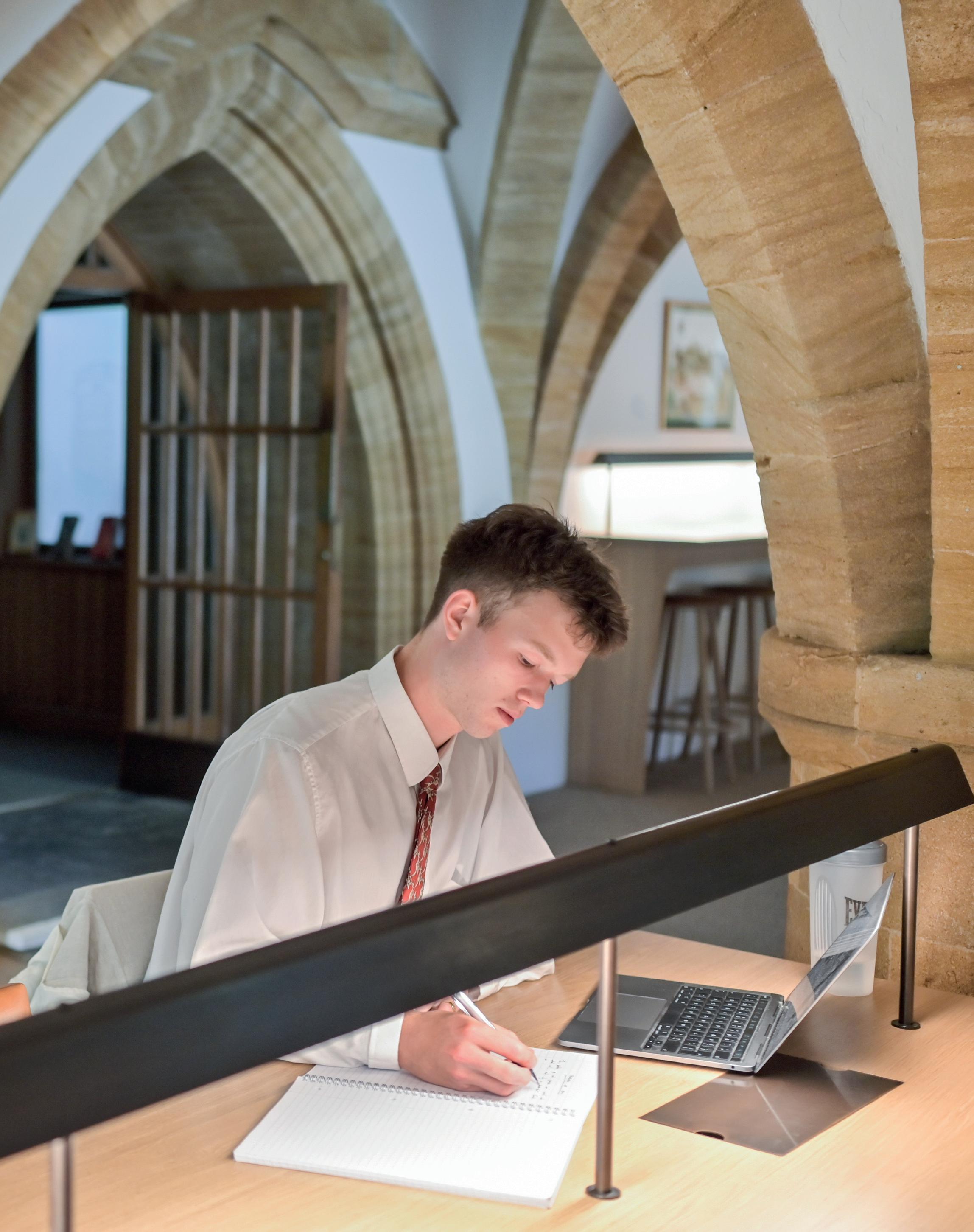
For the second year running, the MFL department is delighted to be offering alternative qualifications for Sixth Form pupils who wish to continue learning a language in the Lower and Upper Sixth alongside their A levels in other subject areas. These are the Spanish Diploma (DELE), French Diploma (DELF) and the German Certificate (Goethe Zertifikat). Unlike language A levels, these diplomas assess language skills using the Common European Framework of Reference for Languages (CEFR) which grades language skills on a series of levels from A1 (beginner) to C2 (proficiency). This system of standardised levels is recognised by employers and Universities across Europe and beyond. It can thus enhance international mobility and employability by providing transparent qualifications recognised across borders. Over the course of this academic year, we have had pupils working on French, German and Spanish B1 (intermediate)
qualifications as well as the HSK Chinese exam, which can be taken at beginner or intermediate level.
The advantage of these exams is that language proficiency and communication is at the heart of the success criteria. For example, while at A level, pupils focus intensely on how to write just one kind of text, an academic essay on a book or a film, on the diploma courses, they learn how to write a variety of texts like emails, speeches, and letters which they would encounter in real life situations. They also allow pupils to increase their linguistic fluency alongside studying three other A levels. The increasing demand for these diplomas mirrors interest among pupils in degree courses at UK universities who combine a subject with a language. In an increasingly globalised world, language skills are becoming a real determiner of success in the workplace. Allowing pupils to have their skills and competencies in a language rewarded alongside
other A levels prepares them for this world. Alex Trinkler (L6m) is studying the German Goethe Zertifikat alongside A levels in History, Economics and Geography.
“I have chosen this programme because it will be incredibly useful in my future prospects, as the certificates earned by completing this course will allow me to work and study abroad. I feel that when I enter the workplace, I will have sufficient knowledge and cultural understanding, while having a certified certificate. I enjoy furthering my knowledge of German with little time pressure. Learning and furthering your skills in language is incredibly useful, and by doing an enrichment program you can make it fun as well. “
Philip Morrow Deputy Head of Modern Foreign Languages
TThe academic music department has had an out-standing year, marked by strong academic results and significant achievements. Results in 2022-23 were strong, with Angus Williams (c 23) securing his place at Oxford, a testament to his hard work and the support he received from the department. The 2023-24 academic year is set to be equally busy for those taking public exams, with twenty-three candidates for GCSE Music and Music Technology and fifteen candidates for A level Music and Music Technology. In addition to their regular academic lessons, students have benefited from a number of academic support clinics designed to enhance their understanding and performance.
Our students have been particularly active in composition, often utilising technology to create original works. Both GCSE and A level students have composed pieces using software such as Ableton, Logic Pro and Sibelius, demonstrating their creativity and technical skills. This integration of technology in composition has allowed students to explore new musical ideas and produce highquality coursework.
We have four students aspiring to study music at university, with offers from prestigious institutions such as Bristol, Durham, Edinburgh, and Manchester. The
Oxbridge Music Club has continued to meet regularly, providing valuable preparation and support for several potential candidates for next year.
The Academic Music Club has focused on Grade 8 Theory preparation, helping students to achieve the highest standards in their theoretical knowledge. Additionally, we are excited to be developing a new curriculum for the Third Form, set to be introduced in September 2024. This new curriculum aims to further enrich our students’ musical education and foster a deeper understanding and appreciation of music, including the latest music technology.
Our success would not be possible without the dedication and hard work of our excellent music staff: Mr Marks, Mr Davey, and Mr Lehnert. Their commitment to providing high-quality education and support to our students has been instrumental in our achievements this year.
Robert Costin Head of Academic Music
TThose who are about to die salute you! The gladiators’ cry that reverberated around the arena before their death offers a fitting farewell to this year’s cohort of Upper Sixth Classical Civilisation boys, who have reached the end of a journey through Greek and Roman history and literature that one described to me as ‘engaging, inspiring and enlightening’ and another as ‘the zenith of his school career’, a journey that has enthused some, as it always does, to go on to study Classics at university.
All who have embarked on the A level course have found Classical Civilisation fascinating, appreciating its huge breadth, its interesting subject matter, and the myriad opportunities to hold a mirror up to our own world. We have studied Homer’s Odyssey, an epic poem about war, gods and goddesses, individual combat, and heroism, about the hairyheaded Achaeans, rosy-fingered
dawn and swift-footed Achilles; alongside this, Virgil’s Aeneid, a cornerstone of western literature, in which we have explored what it was to be a hero in the Roman world. As part of the Greek Theatre component, we have read Sophocles’ psychological thriller, Oedipus the King, Euripides’ sparagmatic and harrowing Bacchae and Aristophanes’ hilariously blasphemous, Monty Python-esque comedy, Frogs, and through these dramatic masterpieces have studied such theatrical conventions as catharsis and peripeteia, the clash between fate and free will, and the exploration of profound human dilemmas, all of which continue to shape drama to this day. But it is their final component, the Politics of the Late Roman Republic, that has offered the boys, and myself, the greatest exhilaration, examining a period of immense upheaval and conflict through the eyes and words of three contemporary political figures, the stoic conservative Cato, the
dangerously charismatic Julius Caesar, and the famously upright Cicero. War in the Middle East and Eastern Europe, political turmoil at home, corruption, and sex scandals… it is very easy to see our own world as a reflection of the Roman world.
After the war with Hannibal at the beginning of the second century BC, Rome became the Mediterranean superpower, which led to an influx of wealth into the city and gave rise to a class of super-wealthy aristocrats that were able to use their money to influence politics and forward their own ambitions. The general Marius reformed the army and removed the requirement of land ownership for military service. As a result, soldiers looked to their commanders for money and land, and the loyalty of the Roman legions shifted from the senate to their generals. A new type of politics was born that saw politicians whipping up the resentments of the poor and using
bands of thugs to threaten political rivals.
Provincial corruption was rife, our prescribed text Cicero’s masterpiece in the prosecution of the blatantly rapacious Verres for his plunder of Sicily, leading to endless, and largely unsuccessful, legislation aimed at preventing officials lining their own pockets.
We have followed the lives and ambitions of Pompey, the ‘teenage-butcher’, amongst whose achievements was the eradication of pirates from the Mediterranean in only three months, Cato, whose uncompromising opposition to Julius Caesar was one of the key factors in the collapse of the Roman Republic, and Crassus, whose cognomen ‘fat’ references not his girth, but his vast wealth, who gambled on a high risk invasion of Parthia, modern day Iran, in a futile attempt to gain the
military glory that had eluded him throughout his career and in 53BC suffered one of Rome’s worst military defeats, his decapitated head supposedly used as a prop in a performance of Euripides’ play, the Bacchae.
And we have considered the motivations behind the assassination of Julius Caesar on the Ides of March, 44BC, in reality a bungled operation headed by an underprepared Brutus, who, in failing to consider what might happen after the assassination, allowed a far more ruthless Antony to take over and did more to bring about one-man rule in Rome than to eradicate it as he had hoped.
Class discussions abound and by the end of this rip-roaring course, I think the whole class agreed that the Roman Republic was torn to shreds not by one man or event, but by a number of contributory factors: violent rhetoric, personal ambition, a disregard for political
norms and the stubborn recalcitrance of the senate, to name a few. Toga-clad, gladiatorthrilling, dormice-eating pagans, with a horrifying tolerance for everyday violence and a concerning reliance on the entrails of sheep, the Romans might be, but the complexity of this period and the thrill of unravelling and interpreting the motives and ambitions of their leading magistrates has been fascinating, intriguing and exciting.
Stephen Heath Head of Classics
By the time you read this article, the Election will have taken place and - if the polls at the time of writing are accurate - Labour will be the party of government. The Labour Party has proposed a package of policies to remove tax exemptions from private schoolsmost importantly, for readers of the Shirburnian - it has proposed levying VAT on private school fees.
As Head of Business and Economics - it is the obvious topic for discussion. How will VAT impact fees? Class sizes? Quality of teaching? Extra-curricular activities? The purpose of this article is not to discuss the merits of taxing independent school fees (turkeys don’t vote for Christmas)but the topic provides an opportunity to discuss much of the content of the A level Economics syllabus.
Firstly, VAT is an indirect tax - a tax charged to the producer (in this case, independent schools) on a good or service. Will charging 20% VAT on school fees lead to a 20% increase in School fees? The answer is No - because VAT is paid by the producer (independent schools) - not the
consumer (parent). For simplicity, if an independent school were to charge £10,000 per term, it would be required to give 20% of this fee to the taxman - reducing its income to £8,000 per term (ouch!). Even if the school raised fees by 20% to £12,000 per term, the taxman would take 20% of £12,000 (£2,400), so the producer (independent school) would receive £9600. Before the Bursar sends me my P45 - fees will not increase by more than 20%. The impact of the tax will depend upon ... elasticity.
Elasticity (price elasticity of demand, to be more precise) measures how ‘responsive’ demand is to a change in price. Firms with price elastic (responsive) demand are unlikely to pass indirect taxes onto the consumer for fear of a fall in demand - this explains why McDonald’s charges low prices for their burgers - they don’t want you to go to Burger King. Firms with price inelastic (unresponsive) demand are likely to pass price increases directly onto the consumer - this explains why petrol prices ‘rise like a rocket’ and ‘fall like a feather’.
But ‘price’ elasticity of demand is not the only elasticity we discuss in economics. ‘Cross price’ elasticity of demand measures how the demand for good A (say ... state education) responds to a change in the price of good B (say ... a change in independent school fees). If independent schools raise fees - the impact on demand will depend upon the quality of
education in the local state school. Should the allocation of resources be left to free markets? When, or should, the government intervene? A big theme in Economics A level! A common argument for government intervention is when externalities occur (when the consumption/ production of a good result external costs to third parties). Raise taxes on tobacco - why should non-smokers suffer the effects of passive smoking? Raise taxes on Petrol - why should nondrivers suffer the effects of diesel fumes? Raise taxes on independent schools, why should ... errr ...
The final topic we love to discuss is government failure - when government intervention leads to unintended consequences. Will there be unintended consequences of charging VAT on independent school fees? The government currently spends £8,000 per pupil in state schoolsis the government likely to see a significant increase in tax revenue, or will this be offset by increased government spending to support extra students in the state sector?
What will be the impact of VAT on independent schools? Ask an economist - they will say ‘on the one hand’ ... and ... ‘on the other hand’ ... which reminds me of one of my favourite quotes from Harry Truman, who, as President of the United States said - ‘All I want is a one-armed economist’.
Chris O’Donnell Head of Business & Economics

John le Carré once said, presumably after he had left Sherborne, ‘I am still making order out of chaos by reinvention.’ Next year the Theology department will be taking a leaf out of his book by reinventing itself in two ways.
Firstly, we will be changing our name. This is not unusual for a department that teaches our subject: in the schools across the country there is a multiplicity of names for the same department –Religious Studies, Religious Education, Divinity, Scripture, TPE (Theology, Philosophy and Ethics), and most recently Religion and Worldviews. When le Carré was at the school there was a much greater emphasis on the scripture and theology side of the subject, teaching mostly about Christianity from a theistic point of view. Nowadays the subject is much more comparative and so we have decided to go with a name that
demonstrates the breadth of the teaching. We’ve chosen the acronym RPE (Religion, Philosophy and Ethics) with the hope that it will help the boys understand all the complex and exciting ideas that we look at from the Third Form to the A Level, from learning about the Five Pillars of Islam to studying the Wittgenstinian approach to the meaning of language.
There is also a marketing angle here: Religious Studies summons up images of Bible Studies, mainly for people who want to be vicars or enter into academic life. The inclusion of philosophy and ethics into the name is meant to demonstrate the higher-level thinking that’s included in the discipline that leads people to many different careers from directing films to running the country.
At the same time there has been a similar reinvention of the Third Form curriculum. As part of wider changes across the whole of the year we have transformed ourselves into a subject called Wellbeing and Worldviews. Every new entrant to the School will be given an education in some of the important personal skills they will need after school, such as curating their digital identities and building
relationships with other people, alongside developing their religious literacy. In the past this would have meant being introduced to the key beliefs of the five main religions one after the other; this year we will be attempting a more themed approach, for instance by looking at religious identity through food, texts, or clothing.
While this may seem like a revolution it is really an evolution. All the RPE teachers have a lot of experience teaching Wellbeing, and our skills are very suited to delivering it: we’re skilled at handling debates and teaching controversial issues and through building a relationship with the classes we teach, we will be able to discuss tricky subjects in a serious manner.
There is inevitably a certain amount of chaos when teaching Third Formers. Hopefully by embracing the reinvention of the department we will bring order as well.
James Crawford Head of Theology
In the age where technology influences every facet of our lives, education stands as no exception. At Sherborne, we take immense pride in embracing innovative tools that enhance learning and better prepare our students for the future. It is only fitting that a school with such a rich heritage— boasting Prof. Alan Turing, the father of modern Computing and Artificial Intelligence, as an alum— would be at the forefront of an AI revolution in education. Since joining Sherborne as Head of Computer Science in 2019, I have been driven by the mission to honour Turing’s legacy by integrating cutting-edge technology into our curriculum.
Our most ambitious project to date, Sherbot, serves as a testament to this commitment. This AI platform is not just a tool; it is a transformative experience designed to enrich both teaching and learning. As classrooms evolve, Sherbot exemplifies how technology can be harnessed to provide equal opportunities, foster critical thinking, and ensure every student can thrive. It represents a significant leap forward in how we approach education, making the learning process more engaging, inclusive, and effective.
By delving into the story of Sherbot, we witness the blend of historical excellence and modern innovation that makes Sherborne unique. Through this article, I invite you to explore how AI is reshaping our educational landscape and why Sherbot is a pivotal part of that transformation.

The role of a classroom teacher constantly evolves, but true revolutions in our profession are rare. Significant shifts like the advent of the Internet, the arrival of the first computers, and the replacement of logbooks with calculators have marked previous eras in education. The Artificial Intelligence (AI) revolution, however, is different—it has been swift, relatively inexpensive, and is now a ubiquitous tool utilized by most Sherborne pupils.
Early in this academic year, boys were asked to complete a questionnaire on their use of AI. Out of 281 responses, around 190 pupils reported that they regularly use AI for their work.
Throughout the year, our boys have been guided on how best to use AI to positively impact their education. They have attended assemblies and worked through specially created materials that highlight both the dangers of irresponsible AI use and the benefits it undoubtedly brings. Class teachers have been using Sherbot and guiding boys on how it can be used to enhance their subjects, stimulate the boys, and enhance student learning.
An AI policy for staff and boys was established to guide teachers and students alike. Our teachers participated in a series of dedicated INSET sessions on the educational benefits and pitfalls of AI. As Digital Lead at Sherborne, this has been a gargantuan task due to the rapidly changing AI landscape. There’s no doubt that this task will not get any easier, but we’re convinced that we’ve made a terrific start in getting to grips with it.
To assist in this ever-evolving task, we created our own AI platform, Sherbot. Recognizing the limitations of widely available AI tools like ChatGPT, which often come with free and paid tiers and can present a blank canvas without guidance, Sherbot was designed with specific educational needs in mind. Our goals for Sherbot include:
• Free at the Point of Use: Ensuring all students have equal access.
• Consistent Experience: Providing the same experience for all pupils and teachers.
• Educationally-Rich Features: Going beyond a blank canvas to support and enrich the learning process.
• Teacher Empowerment: Enabling teachers to create and distribute pedagogicallysound content effectively.
• Rich Library of Prompts: Offering prompts that promote critical thinking.
• System Integration: Seamlessly integrating with our classes and Management Information System.
Ofqual regulations describe and dictate how AI may be used in coursework. Sherbot supports compliance by enabling students to create a catalogue of the prompts they used and to publish that information along with their coursework submissions, thus avoiding examination regulation issues.
All boys submitting coursework to exam boards this year received explicit training on how AI can or should be used. A questionnaire was devised to guide them in identifying ways to leverage AI while staying within the rules.
Students were given the opportunity to submit their own novel uses of Sherbot. Oscar Revell (U6c) and Ian Ho (3g) won Sherbot Mugs for their exceptional applications. Ian received a Headmaster’s Commendation for his insightful use of a Sherbot feature (Variables), which contributed to his mastery of Third Form Computer Science, earning him a platinum certificate in the Sherborne Programming Challenges—one of only four boys to do so.
Sherbot is equipped with Voiceto-Text and Text-to-Voice capabilities. Oscar Revell used Sherbot extensively to understand how to pronounce German text and improve his pronunciation and grammar. He described Sherbot as “revolutionizing how my peers and I revise and learn,” and noted that “Sherbot has made learning much more enjoyable by enabling students to input texts in a foreign language and then read them aloud with accurate pronunciation.”
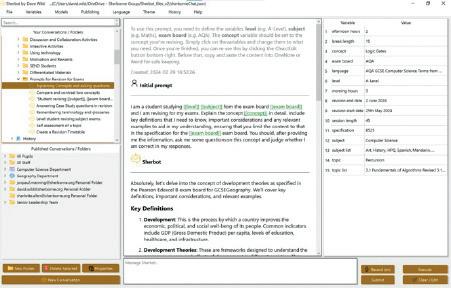
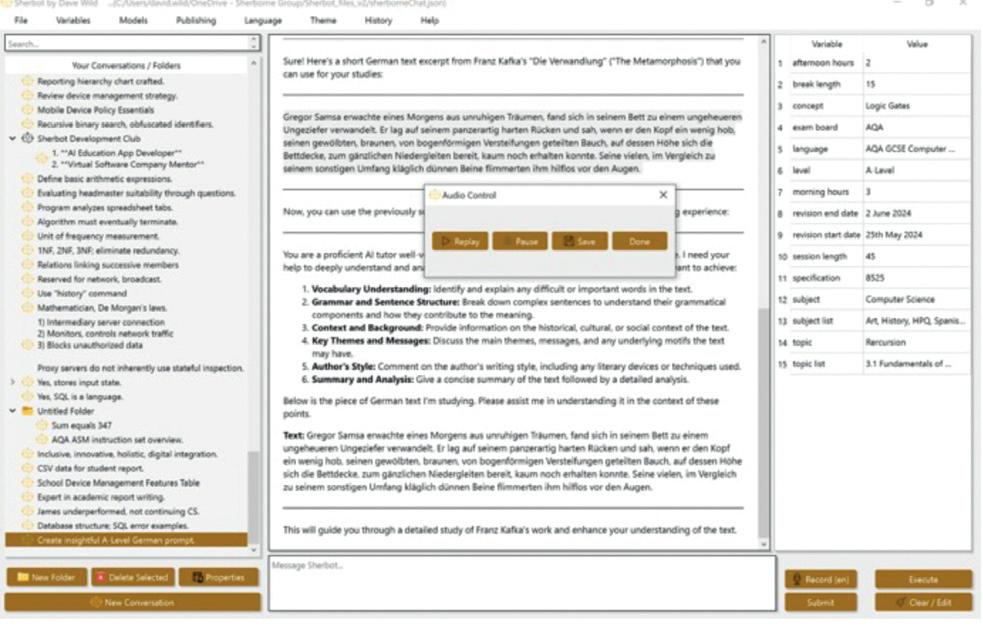
Looking ahead, the code I’ve written will be donated to a new virtual software company called Sherbot.org! Students have been invited to submit their CVs to work in various departments within the company, including programming, marketing, project management, User Interface Design, Social Media, AI, and Quality Assurance. This initiative is designed to give boys experience in understanding how a software company operates and how to manage software releases, make incremental improvements to the software and engage with teachers in making those improvements.
Boys are expected to create a CV and provide a cover letter explaining their suitability for the roles. I encourage your sons to get involved with this innovative initiative and prepare their CVs and cover letters over the summer holidays. Interviews for key positions will take place in the first few weeks of the Michaelmas term. Stay tuned, as the commercial leads may be offering you a license to use Sherbot in the next few months—watch this space!
Sherbot is more than an AI tool; it represents a mechanism for students to feel ownership of their education journey with AI. By combining our rich historical legacy with modern technological innovations, we are ensuring that our students are well-equipped for the challenges of tomorrow.
Dr David Wild Head of Computer Science and
Digital Lead on SLT
DDrama, the art of storytelling through performance, holds a unique place in the realm of education. As an educator, my passion for teaching drama runs deep, fuelled by the belief in its transformative power and its ability to nurture invaluable life skills in pupils. In what will be my final article for the Shirburnian, I aim to delve into the essence of drama education and elucidate why I find it not just compelling but essential in today’s educational landscape.
At its core, drama provides a platform for self-expression. In a world where individual voices often get lost in the cacophony of noise, drama empowers pupils to find and articulate their own narratives. Through acting, pupils can explore different characters, perspectives, and emotions, fostering empathy and understanding.
Whether they’re portraying a Shakespearean protagonist or a modern-day persona, pupils learn to inhabit roles, embody experiences, and communicate ideas effectively.
Two of our Drama Scholars Ed Brooke (U6b) and Freddie Fineman (L6e) have done just this. Not only have they excelled in this subject and performed in numerous plays they launched their own education podcast last year ‘Talking to the Top.’ This podcast is a platform for students to encourage thought
about their future and consider opportunities that lie ahead for them. They have secured thought provoking interviews from numerous leaders of industry and professions: from Hugh Bonneville to Preet Chandi MBE. These inspirational people share their wisdom for success, but linked to this and Freddie’s and Ed’s entrepreneurism and interview technique has also developed and their curiosity and enthusiasm to voice their own opinions and thinking has been a true power of expression.
Drama is a playground for the imagination. It encourages pupils to think outside the box, to envision worlds beyond the confines of reality, and to create something entirely new. From improvisation exercises to scriptwriting sessions, drama cultivates creativity in myriad forms. Pupils learn to embrace ambiguity, to embrace uncertainty, and to embrace failure as an integral part of the creative process. In doing so, they develop resilience and adaptability, crucial skills for navigating an everchanging world. These skills we all know are needed in the world of business and workplace and when I observe pupils sharing their ideas, such as the scholars who recently devised their own production for visiting prep schools, I am not only impressed with the diversity of ideas when creating a performance, but how they think about the performance from the audience’s perspective. What will make the piece engaging, is it fit for the target audience, rehearsing a key element in the piece, until a performance can be produced. The premier of said piece ‘It’s up to the jury’ (an immersive piece of theatre with multi-roling and physical theatre), drew in the audience as they acted as the jury and based on evidence, decided the outcome of the young juvenile accused of breaking and entering with the intention to steal. The creativity and perseverance these boys demonstrated was laudable and I have no doubt that the experience will aid them as they move forward in life.
One of the most profound impacts of drama education is its ability to boost confidence and communication skills. Stepping onto the stage, whether in front of an audience of peers or a packed auditorium, requires courage. It demands self-assurance and a willingness to take risks. Through drama, pupils learn to project their voices, to command attention, and to engage with others in meaningful ways. They discover the power of body language, facial expressions, and vocal modulation in conveying ideas and emotions. These skills not only serve them well in theatrical performances but also in everyday interactions, from public speaking to job interviews. Every year I carefully watch the development of the new Third form and I’m always amazed at the willingness of boys who volunteer to perform in lessons or lead an activity. Some may be timid to start, but as the academic year progresses, everyone is keen to volunteer to demonstrate, take to the stage or lead. If you could see the fun boys have when developing improvisation skills, whilst talking gibberish with one boy’s acting as an interpreter you would see why I have enjoyed the job I do, and a perfect example of confidence and communication skills personified.
Drama is inherently collaborative. It brings together individuals with diverse backgrounds, talents, and perspectives to work towards a common goal: creating a compelling narrative. In the rehearsal room, pupils learn the importance of cooperation, compromise, and collective problem-solving. They discover that every role, whether onstage or behind the scenes, is vital to the success of the production. As they collaborate with their peers, they develop empathy, respect, and appreciation for the contributions of others. This is especially apparent when devising a GCSE or A level practical performance in groups. Psychologist Bruce Truckman Stages of development (Forming, Storming, Norming, Performing) are beautifully illustrated during these times and for some boys it is the first time they have been faced with this prolonged period of working and collaborating in a group. I hear myself reminding the pupils to ensure they are a crew member and not a passenger or don’t forget in the workplace you may not necessarily choose those you have to work closely to. The art of listening and contributing and being respectful is a lesson which initially is slow to develop and its always interesting to observe those who lack stickability but are encouraged by others to move forward. The outcome is, of course aimed at a good examination grade, but the boys learn so much more during a term of working closely together, a skill which they can take with them and beyond the Drama Studio setting.
In today’s interconnected world, fostering empathy and cultural awareness is more critical than ever. Drama provides a lens through which pupils can explore different cultures, histories, and social issues. By inhabiting characters from diverse backgrounds, pupils gain insights into the lived experiences of others. They learn to challenge stereotypes, to confront prejudice, and to embrace diversity. Through performances and discussions, drama creates opportunities for meaningful dialogue about topics ranging from race and gender to class and identity. The current GCSE set text includes a moment when a character reveals he is transgender and wishes to be associated as a female. The discussion drawn from this with pupils was initially immature, but as they began to empathise with the character and truly understood what it was to be transgender, the more informed the class were, the better they were able to understand social inclusion and equality. Similarly, working with The Paper Birds Theatre Company on their project ‘Feel Me,’ which asked the boys to consider what it might feel like to be a transient teenager in search of safety, acceptance, and a new place to call home. We asked ourselves what makes us ‘feel’ for another person, especially if faced with a journey through different landscapes, borders, through weather storms and paperwork, changing seasons and endless paperwork. The impact on the boy’s empathy levels was astounding and culturally we were able to explore different worlds, cultures for the boys to begin to look beyond the walls of school and consider the wider world.
In the tapestry of education, drama is a vibrant thread, weaving together creativity, communication, collaboration, and empathy. As an educator, I have been committed to harnessing the power of drama to inspire, empower, and enrich the lives of my pupils. I have taught drama not merely as an academic subject but as a catalyst for personal growth and social change. Through this approach, my aim has been to cultivate a new generation of artists, thinkers, and leaders unafraid to amplify their voices, share their narratives, and contribute to shaping a brighter future for all.
As I bid farewell to Sherborne this year, after 26 years of service, I reflect on the impact I hope to have made in shaping the character of a few outstanding young men. While I will undoubtedly miss the rewarding experience of working closely with pupils, I am confident that the subject will continue to flourish under the leadership of the incoming Director of Drama, Mr Alastair Kirby, who will assume his role in September 2024.
Victoria Clayton Head of Drama
THEdepartment has continued to thrive as the number of boys studying with us steadily increases. The fourteen ambitious boys who sat A level D&T this year demonstrated their ambition and dedication throughout the Michaelmas Term. While working on design projects for external clients, they honed their communication, analytical, and empathetic skills to guide the development of their product prototypes. The goal was to create practical solutions that met their clients’ needs.
Whilst our D&T scholar, Alfie Hunter-Inglis (U6a), worked on a substantial tailored piece of gym equipment to exercise muscle groups in his client’s back, he was also preparing for interview to study a degree in Horology (the study of clocks, watches and timekeeping). Alfie had a watchmaker’s bench which he would set up in his study and worked with great precision under magnifying lenses in the evening. During the day his prototype demanded he precisely machine and weld large components in
mild steel tube and rod in the department. Alfie effectively utilised Computer-Aided Design to virtually model his design proposal, facilitating clearer communication with his client. Precise 3D printing also helped his client visualise different aspects of the design as they collaborated. Alfie’s hard work and dedication earned him an offer from the top Horology course in the UK and an A* in the subject, adding to the top grade he achieved at GCSE for the work he did to develop a device to help combat drink spiking in clubs and bars.
GCSE students are developing their design capabilities by researching various design contexts set by the exam board. One of our students, Archie Spenlove-Brown (5f), chose to focus on how products can raise awareness of charitable work. During his summer break, Archie interviewed a trustee of Pennyhooks Farm Trust, a charity that supports students with Autism Spectrum Condition.
Archie designed and built a prototype of tiered hanging baskets that Pennyhooks students
could learn to construct and assemble themselves. The baskets were made from sustainably grown timber and marine-grade stainless steel components, ensuring durability and ease of construction. Their form enabled them to stack tightly together for storage and transportation. Archie intended for the baskets to be branded and used to promote the charity’s work.
As the new year approaches, the department aims to focus on further strengthening skill development among the new Third Form intake. The school has restructured the curriculum to allocate an additional period per week, providing the necessary time for in-depth skill development. It will be exciting to observe the impact this has on the students’ work as they progress through the school.
Peter Chillingworth Head of Design & Technology



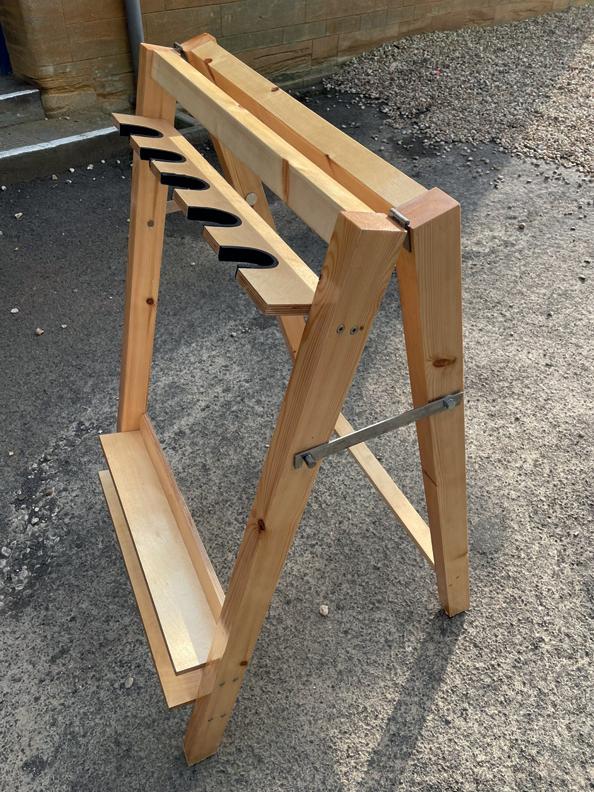

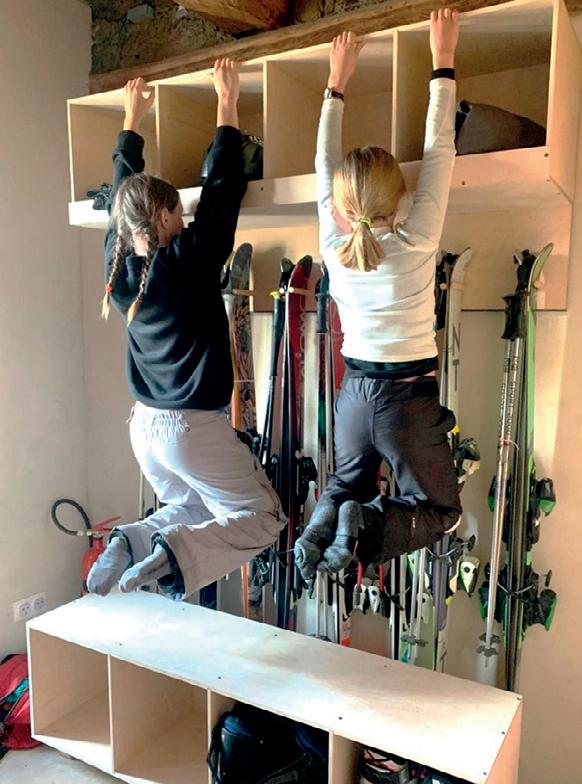
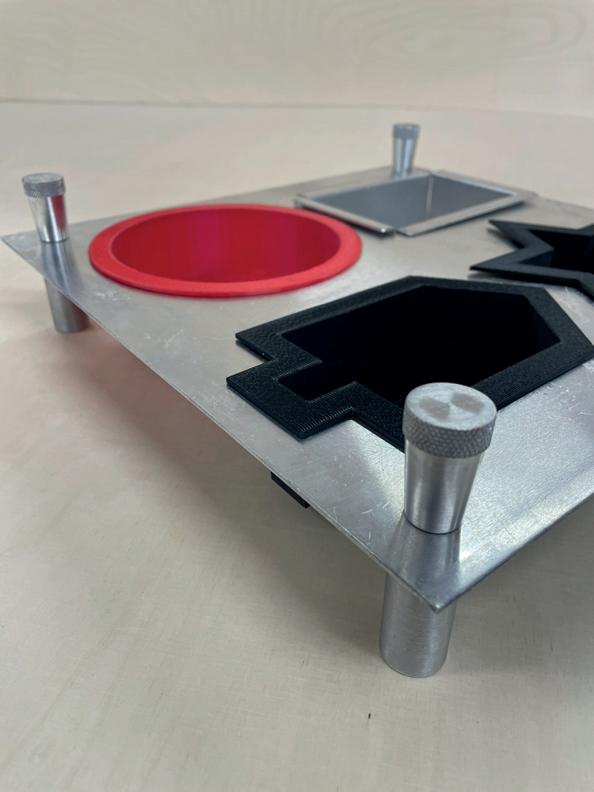


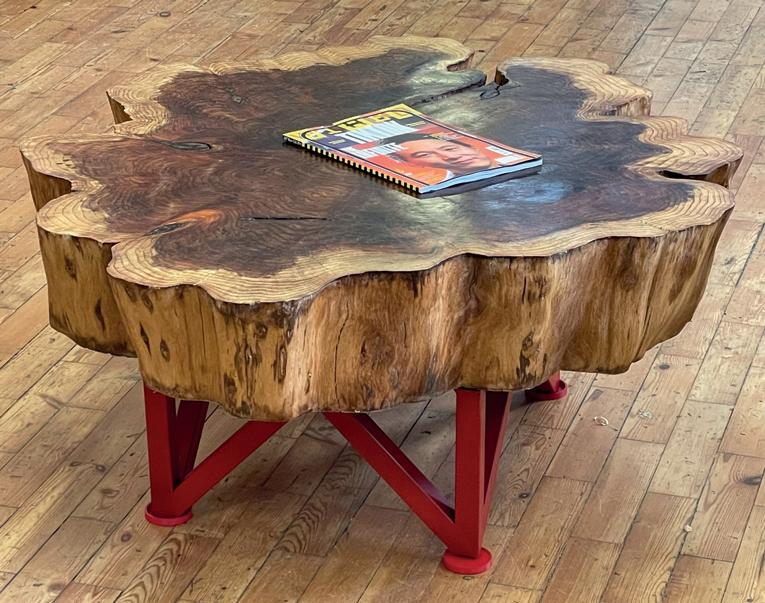
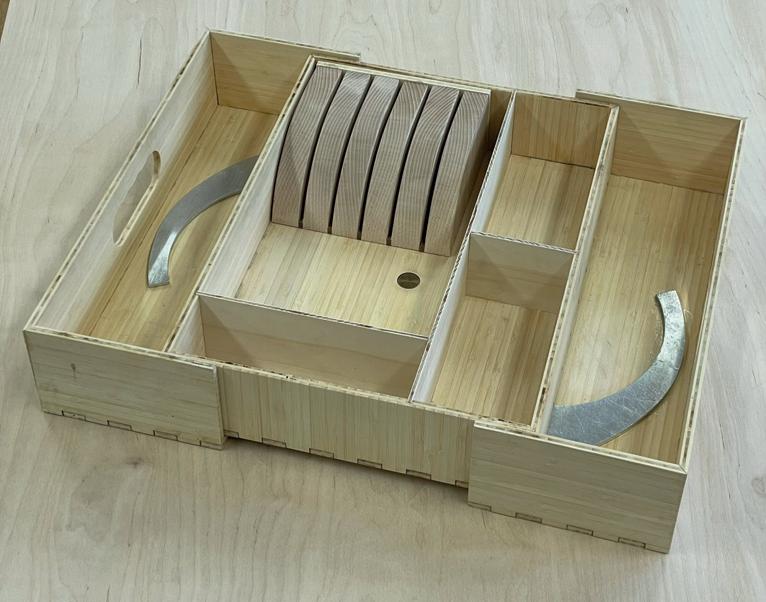

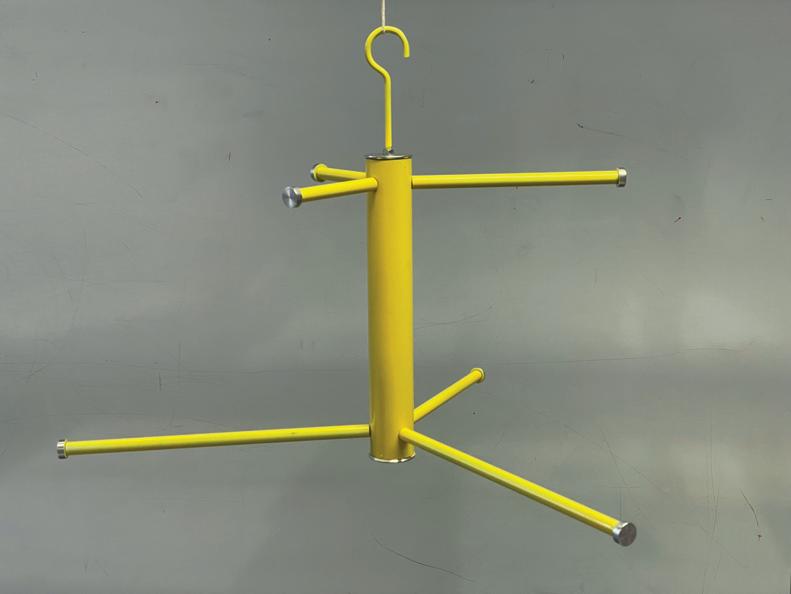
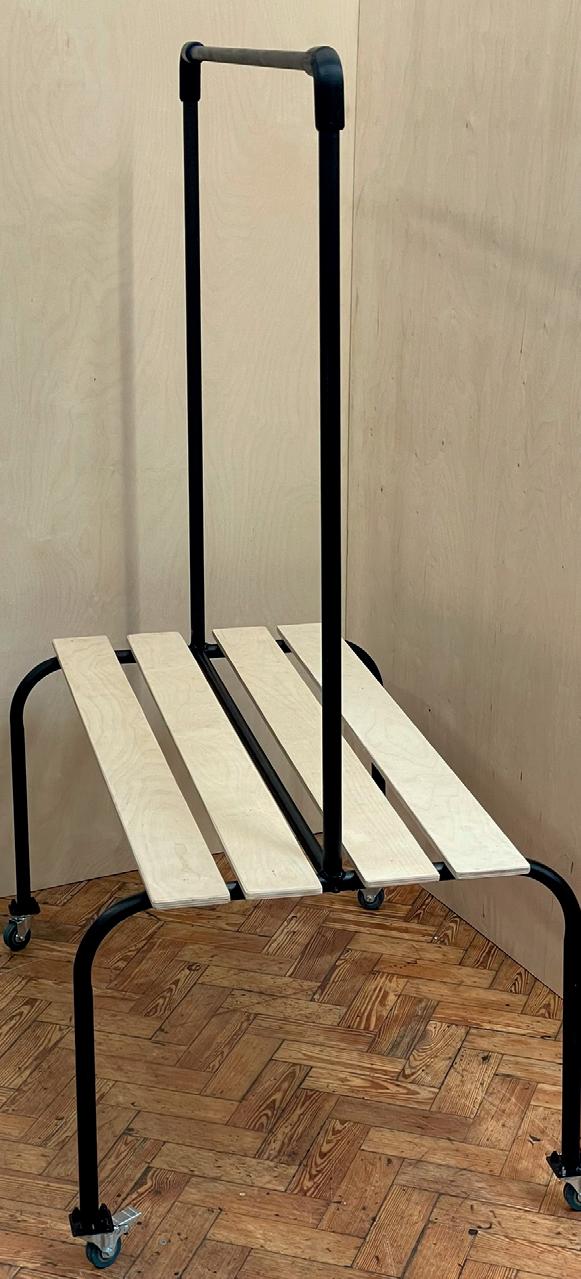

AAs we reflect on another remarkable year in our Sixth Form, it is with great pride that we share the myriad of opportunities and experiences that continue to shape our students into tomorrow’s leaders.
Our Careers and Pathways department has been working tirelessly to support each pupil in finding their most inspiring individual pathway. Whether it is a traditional academic route at a UK university, the vibrant experience of a US college, direct entry into employment, or an apprenticeship, we recognize and celebrate the diverse aspirations of our students.
This year has seen an enriching array of events and initiatives that exemplify our commitment to holistic education:
1. Our weekly assemblies in The Powell Theatre have hosted an impressive range of speakers, broadening our students’ perspectives and nurturing a global mindset.
2. The introduction of monthly Business Breakfasts has been a resounding success. These events, featuring guest speakers from various sectors, have provided invaluable insights into entrepreneurship and career development.
3. Our annual Gap Year Fair and Global University Roadshow continue to open doors to exciting opportunities worldwide, showcasing the breadth of pathways available to our students.
4. The Sixth Form Leadership Conference, held in collaboration with Sherborne Girls, focused on our four guiding leadership principles: serving others, pursuing lifelong learning, building successful teams, and communicating with skill. This event epitomises our dedication to developing wellrounded, principled leaders.
5. As our Upper Sixth received university offers, we turned our attention to supporting the next cohort. The UCAS Discovery Day at Exeter University, followed by talks from university admissions teams and personalised guidance, ensured our Lower Sixth are well-prepared for their next steps.
6. The Lower Sixth Careers Convention was a highlight, bringing together over 40 Old Shirburnians, parents, and local entrepreneurs. The keynote panel discussion on AI’s role in shaping the future, hosted by our own students Ed Brooke (U6b) and Freddie Fineman (L6c), demonstrated our commitment to staying at the forefront of technological advancements.
Beyond academic and career preparation, our Sixth Form has been bustling with extra-curricular and social activities. The ongoing collaboration with Sherborne Girls has created memorable experiences, fostering a sense of community and shared purpose.
As we look to the future, we can be immensely proud of the comprehensive and forward-thinking Sixth Form experience we offer. Our students are not just preparing for exams; they are developing the skills, knowledge, and character to thrive in an everchanging world.
The success of our Sixth Form is a testament to the dedication of our staff, the support of our community, and most importantly, the enthusiasm and potential of our students. Together, we are building on Sherborne’s rich heritage while embracing innovation and excellence.
As we continue to evolve and enhance our Sixth Form offerings, we remain committed to our core mission: nurturing each student’s unique talents and aspirations, and preparing them for lives of purpose, positivity, and impact.
Alex Boyd-Williams Deputy Head (Sixth Form)
OOne of the great joys of running the Extended Project Qualification is seeing the impressive diversity of the projects upon which Shirburnians embark. An openended coursework project completed largely over the course of the Lower Sixth and into the early part of the Upper Sixth, the EPQ is unique among the boys’ studies insofar as they have control over both what they investigate and how they conduct their investigation. Boys draw upon their personal and academic passions, their aspirations, and their imaginations in crafting questions which send them on deep, evaluative research journeys to arrive at finely-judged conclusions.
As a result, the staff involved in the EPQ often get to see a different side of the boys than when they are engaged in the regular discourse of the
classroom. The boys who take on the challenge of the EPQ find themselves ‘extended’ beyond the scope of familiar school subjects, exploring contemporary academic fields as they complete a long-form piece of work of their own design.
The projects completed this year have, as always, been of high quality, and topics have run the gamut from salmon farming to psychology, from architecture to asteroid mining, from ethical machine intelligence to EU migration policy. Indeed, every EPQ project is unique, and even those which tackle topics popular among the Shirburnian milieu –the changing laws of rugby have been addressed by at least one project for each of the past three years – see boys finding original areas of focus and insight around which to base their final reports, rather than re-treading old
ground. The ancient philosopher Heraclitus is reported to have said that ‘it is not possible to step into the same river twice’, and this seems to be true of the EPQ both for those undertaking the qualification and for those assisting them on their journeys: the investigations they plan, the interests they develop, and the inferences they draw are all unique to a particular project at a particular moment in time, even if they follow a similar course to those coming before and after them.
Following the varied journeys of this year’s projects has involved assessing end goals ranging from writing in-depth research reports, to designing and building a sawhorse, to performing illusions for a live audience. Boys have collected data by interviewing industry experts including fishermen and criminal barristers.
“ “
An open-ended coursework project completed largely over the course of the Lower Sixth and into the early part of the Upper Sixth, the EPQ is unique among the boys’ studies insofar as they have control over both what they investigate and how they conduct their investigation.
One project even involved surveying locals during a field trip to Malta. However, where the qualification’s diversity is perhaps most keenly evident is in the final presentation events, at which the combinations of boys, topics, presentations, and audiences are truly unique to the EPQ. It is not just the boys’ supervisors who have come to support them, but the Headmaster, their teachers and tutors, their friends, and their parents, as well as younger boys possessing a curiosity to see what elder Shirburnians are capable of. The hard work, heart, and humour on display when boys recount what they have discovered about their topics, and what they have learned about themselves, are always fantastic to see.
I remain ever thankful to the supervisors of the EPQ, members of staff who support the boys throughout their journeys with
tremendous patience and understanding to enable them to perform at their best while thoroughly evidencing their detailed planning, careful execution, and thoughtful reflections.
Nicholas Hall Head of EPQ
Matt Bone, Director of
Confession time… I didn’t study Art at school or university. Why not? Because my Dad wouldn’t let me, killing my fine art aspirations with a throwaway comment of “Why do you want to study Art? How are you going to make a living by being an Artist?” Harsh, but perhaps somewhat true of the mid-eighties before the digital boom. If I were asked the same question today, my answer may be quite different…
Tech has transformed almost every area of our lives, and to a large degree, the interaction with everyday devices is heavily based on creative visual design. The tech industry is the fastestchanging and fastest-growing career sector. Having the essential skills to access of some of the most exciting career pathways currently available start at school in the Art classroom as we foster creativity and inquiry in our pupils. But all too often, Art is overlooked for more traditional ‘academic’ subjects for both GCSE and A level. Studying Art at school has wider-reaching benefits of shaping well-rounded individuals, through academic attributes which nurture creativity,
enhance cognitive abilities, promote emotional well-being, and foster cultural awareness.
Creativity is the cornerstone of progress and innovation in any society. Art education encourages students to think outside the box, to explore unconventional ideas, and to express themselves in unique ways. Through activities such as painting, sculpting, and drawing, students learn to view the world from different perspectives. This creative thinking is not confined to the art room; it spills over into other subjects and everyday problemsolving. For instance, a student who regularly engages in artistic activities is likely to approach a
scientific problem with innovative solutions. The ability to envision multiple outcomes and explore various approaches is a direct result of the creative thinking fostered by art education. Furthermore, creativity cultivated through art is essential in fields such as engineering, technology, and entrepreneurship, where novel ideas and solutions are the driving forces behind advancements.
Art education significantly contributes to the development of cognitive skills. Engaging in art requires critical thinking, decisionmaking, and spatial awareness.





When students plan a composition, mix colours, or manipulate materials, they are simultaneously refining their problem-solving abilities and hand-eye coordination. Research has shown that these activities stimulate brain regions associated with fine motor skills, visual processing, and cognitive development. Moreover, art education improves memory and attention to detail. The process of creating art often involves recalling visual elements and meticulous observation. These practices enhance students’ ability to concentrate and retain information, which is beneficial across all academic disciplines. For example, the observational
skills honed in art can improve scientific drawing in biology or geometric visualization in mathematics.
Art serves as a powerful medium for emotional expression and mental health. The act of creating art allows students to process their feelings, release stress, and find joy in their achievements. This emotional outlet is particularly crucial in today’s fastpaced and often stressful academic environment. Art provides a safe space for students to explore their emotions, develop self-awareness, and build resilience. Furthermore, the therapeutic benefits of art cannot be overstated. Schools that
incorporate art into their curriculum often see a reduction in behavioural issues and an improvement in overall student well-being. Art activities can help students navigate personal challenges, fostering a sense of accomplishment and boosting their self-esteem. For students struggling with mental health issues, art can be a vital tool for healing and self-expression.
Art education plays a significant role in promoting cultural awareness and appreciation. Through the study of various art forms, students are exposed to the rich tapestry of global cultures and histories. This exposure fosters empathy, tolerance, and a
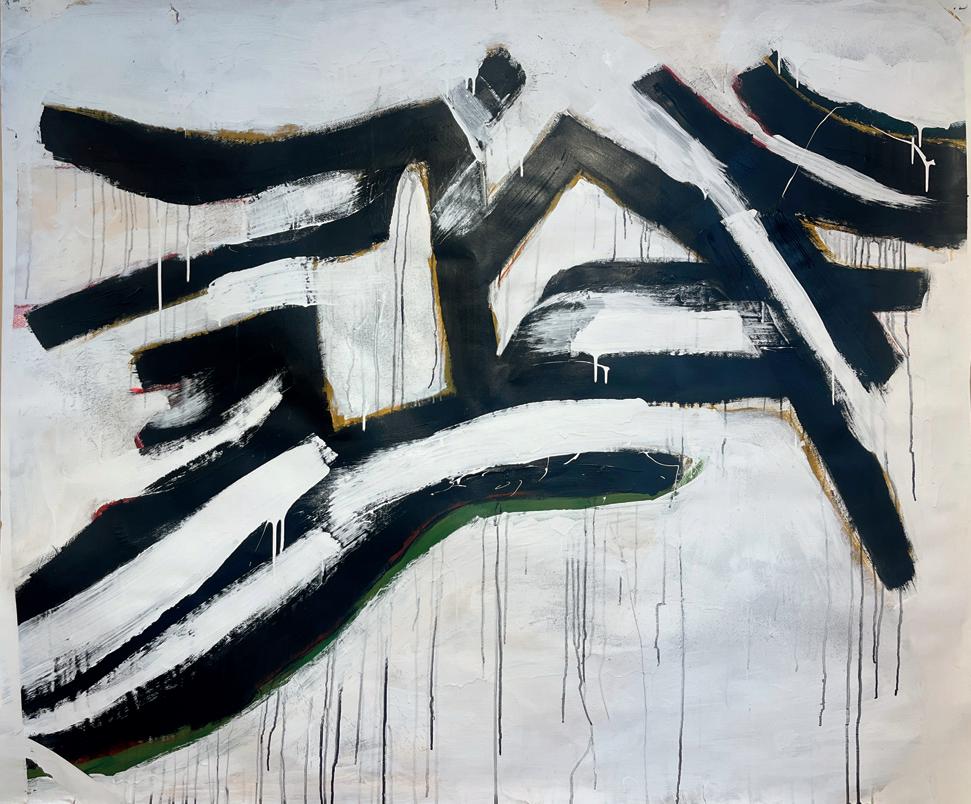


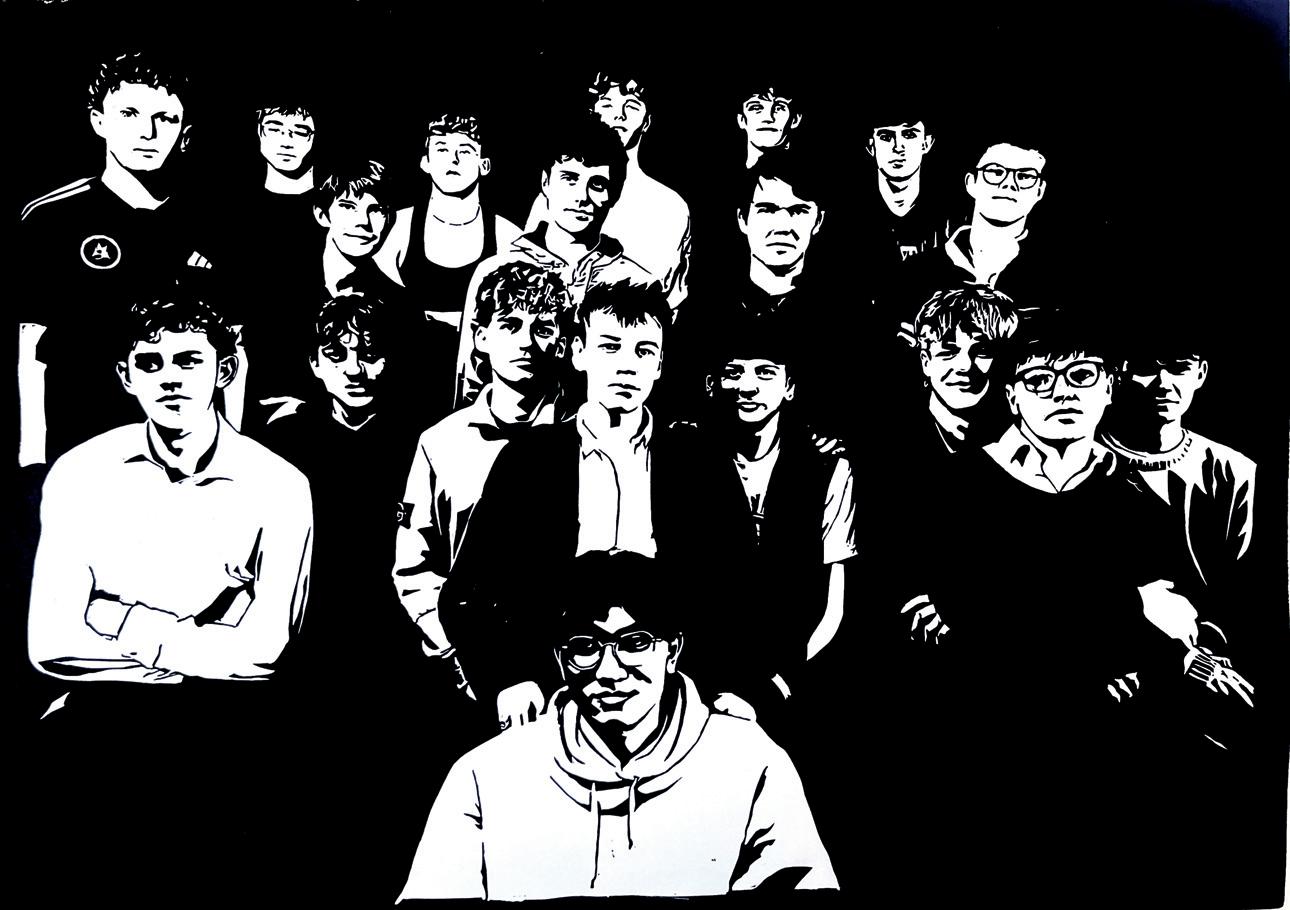


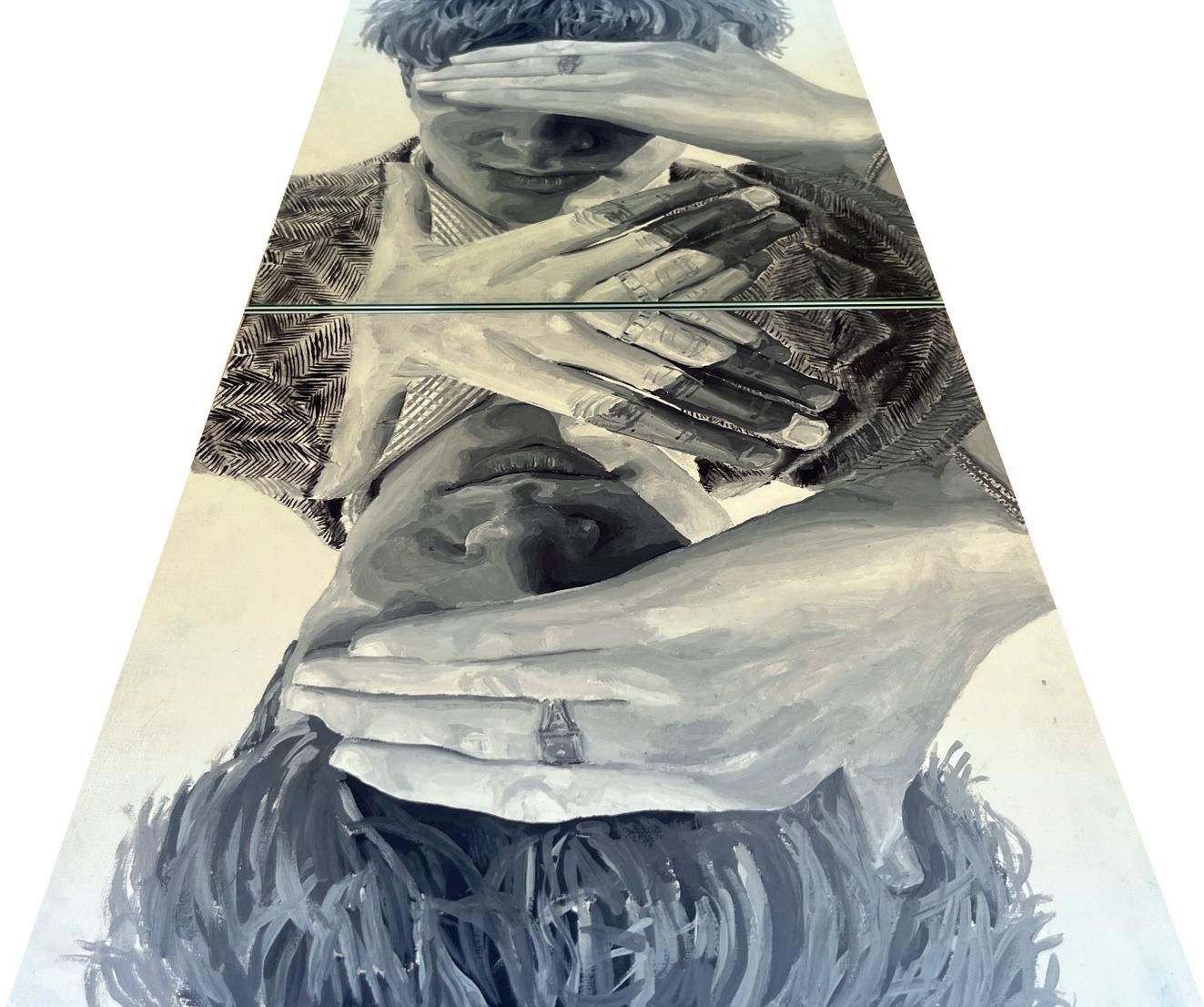
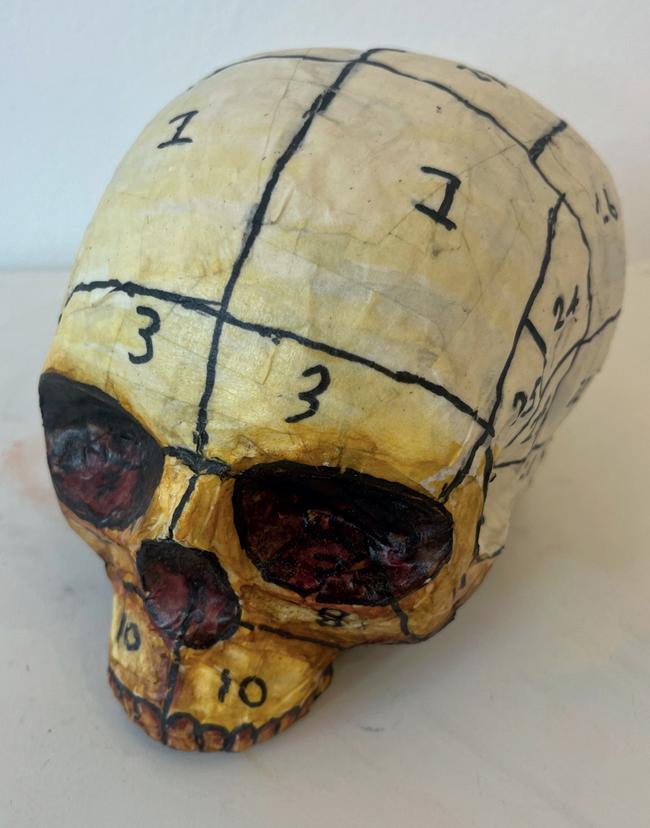
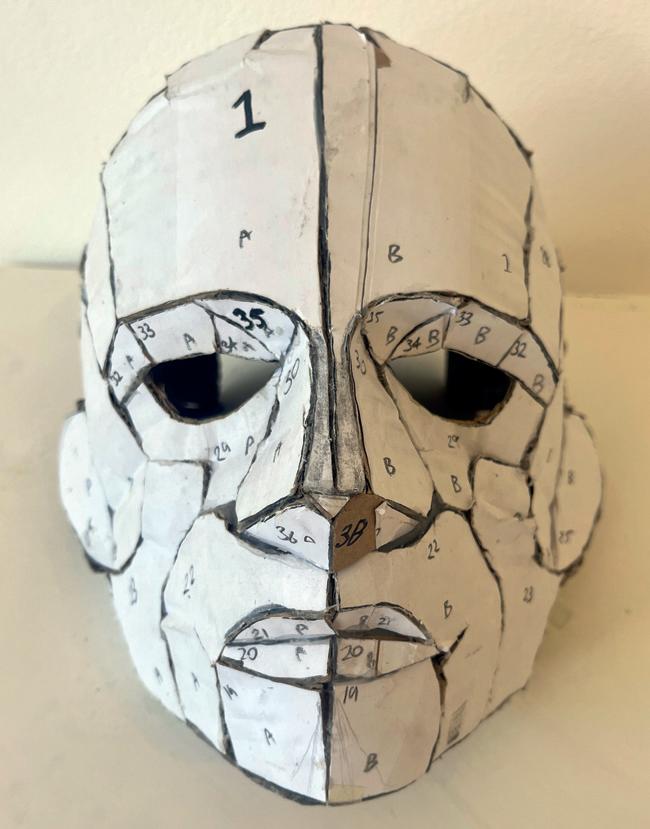

broader understanding of the world. When students learn about the artistic traditions of different cultures, they develop an appreciation for diversity and a deeper respect for cultural heritage. Additionally, art education encourages students to explore their own cultural identities and heritage. By expressing their cultural backgrounds through art, students can connect with their roots and share their unique perspectives with others. This exchange of cultural experiences enriches the school community, promoting a more inclusive and harmonious environment.
Art education also promotes collaboration and communication skills. Many art projects require group work, where students must collaborate, share ideas, and negotiate to create a cohesive piece. This collaborative process teaches students the value of teamwork, cooperation, and effective communication. These skills are essential not only in academic settings but also in future workplaces and personal relationships.

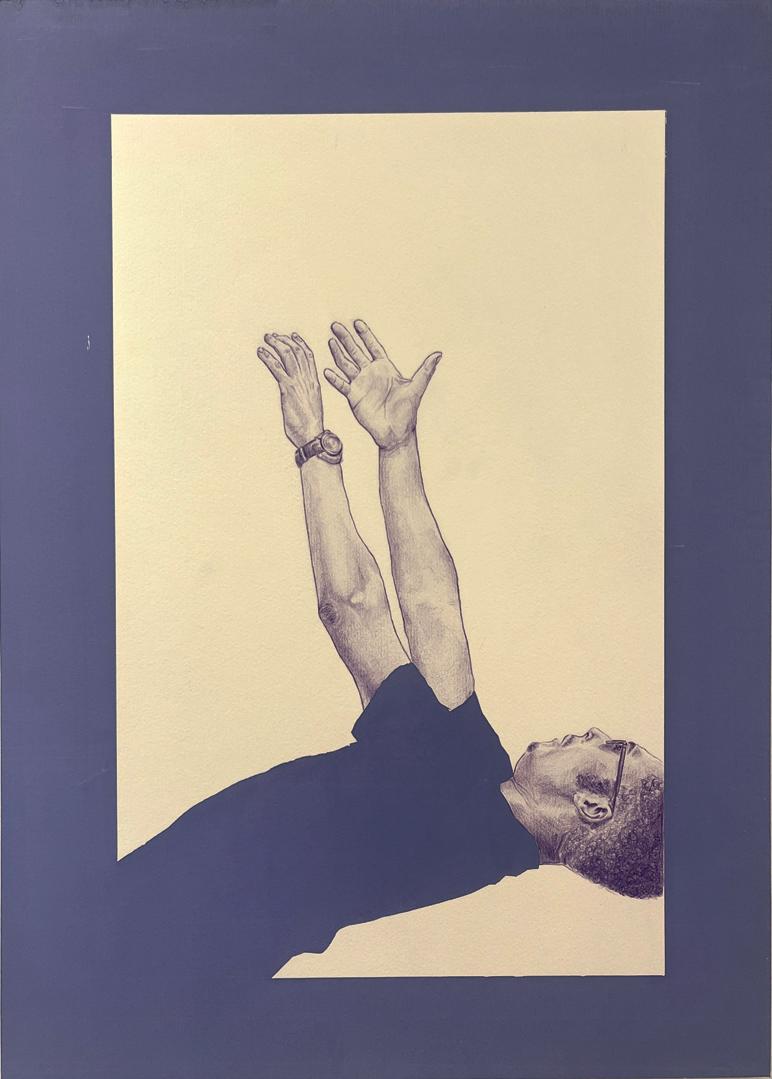
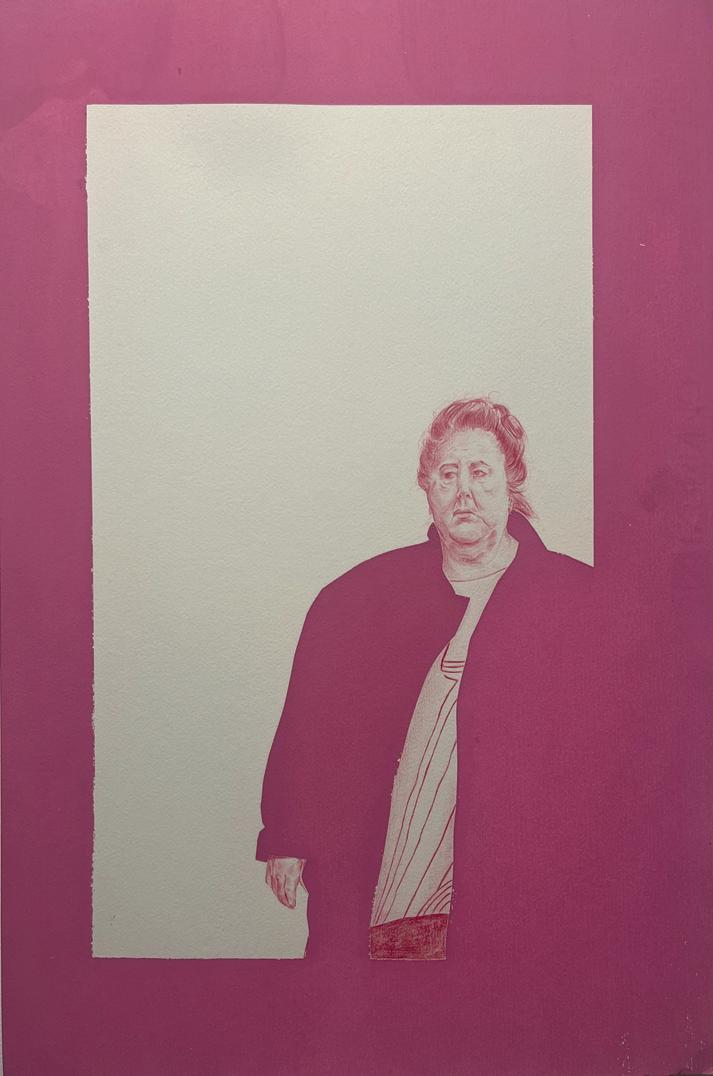
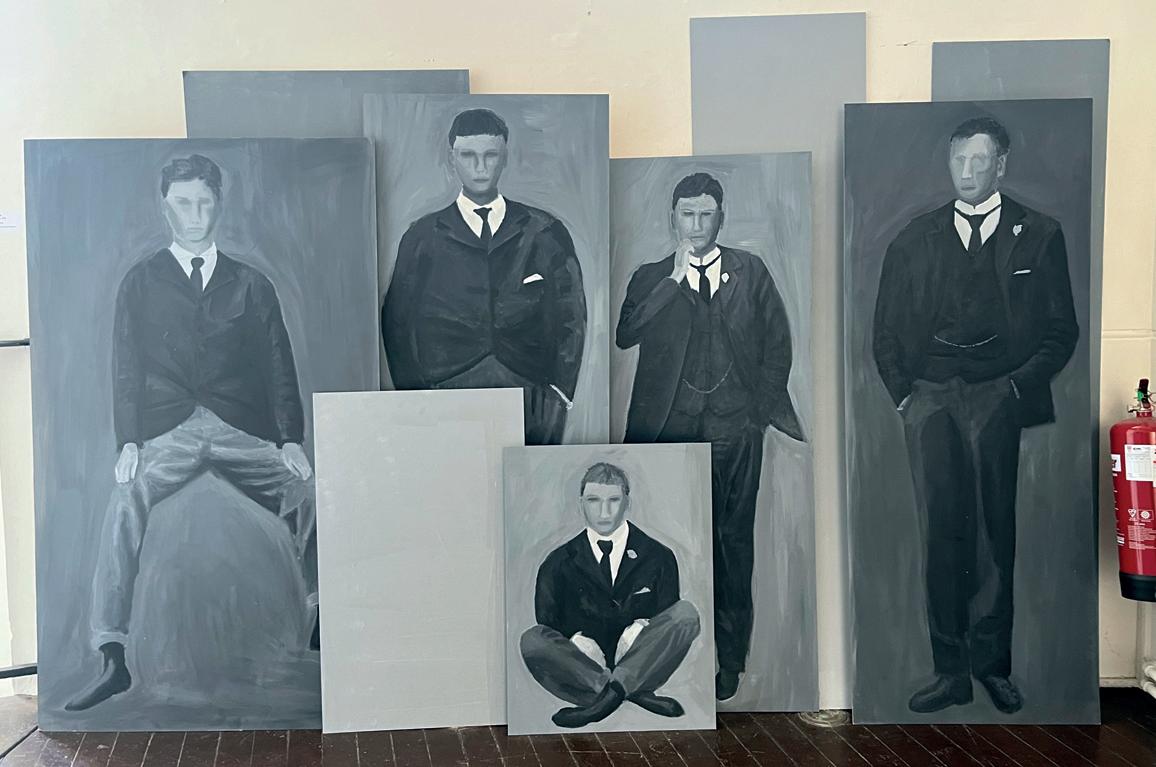

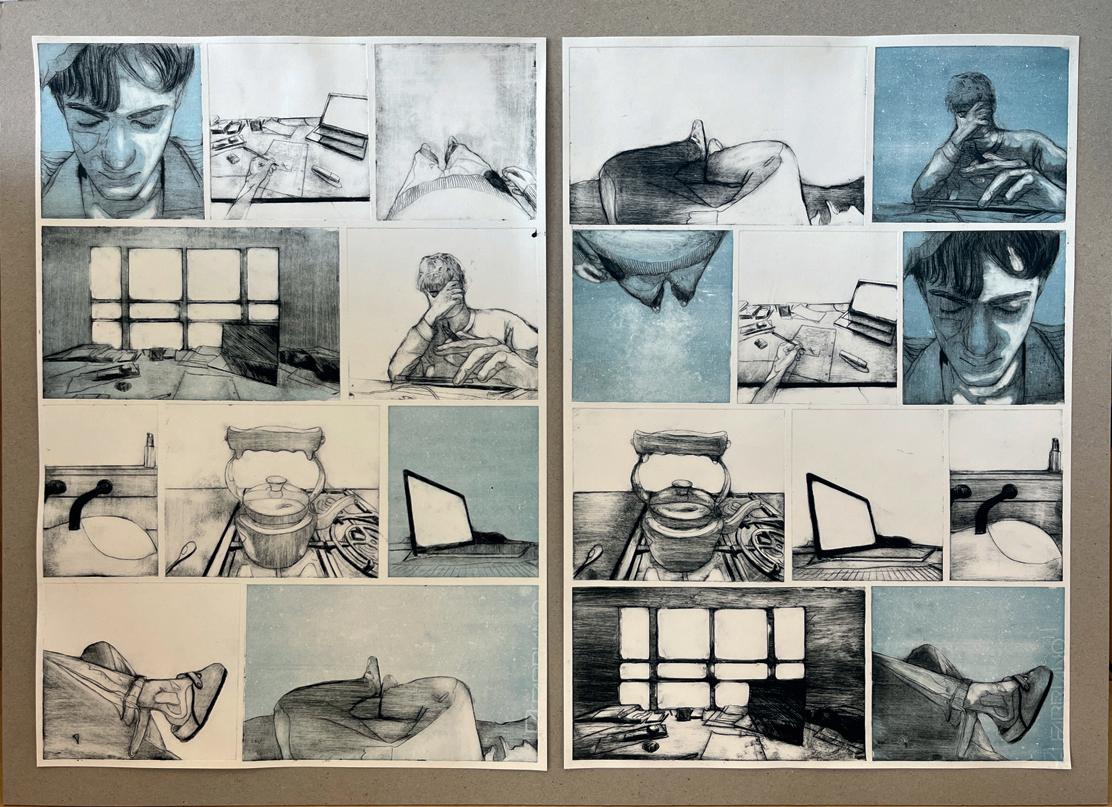





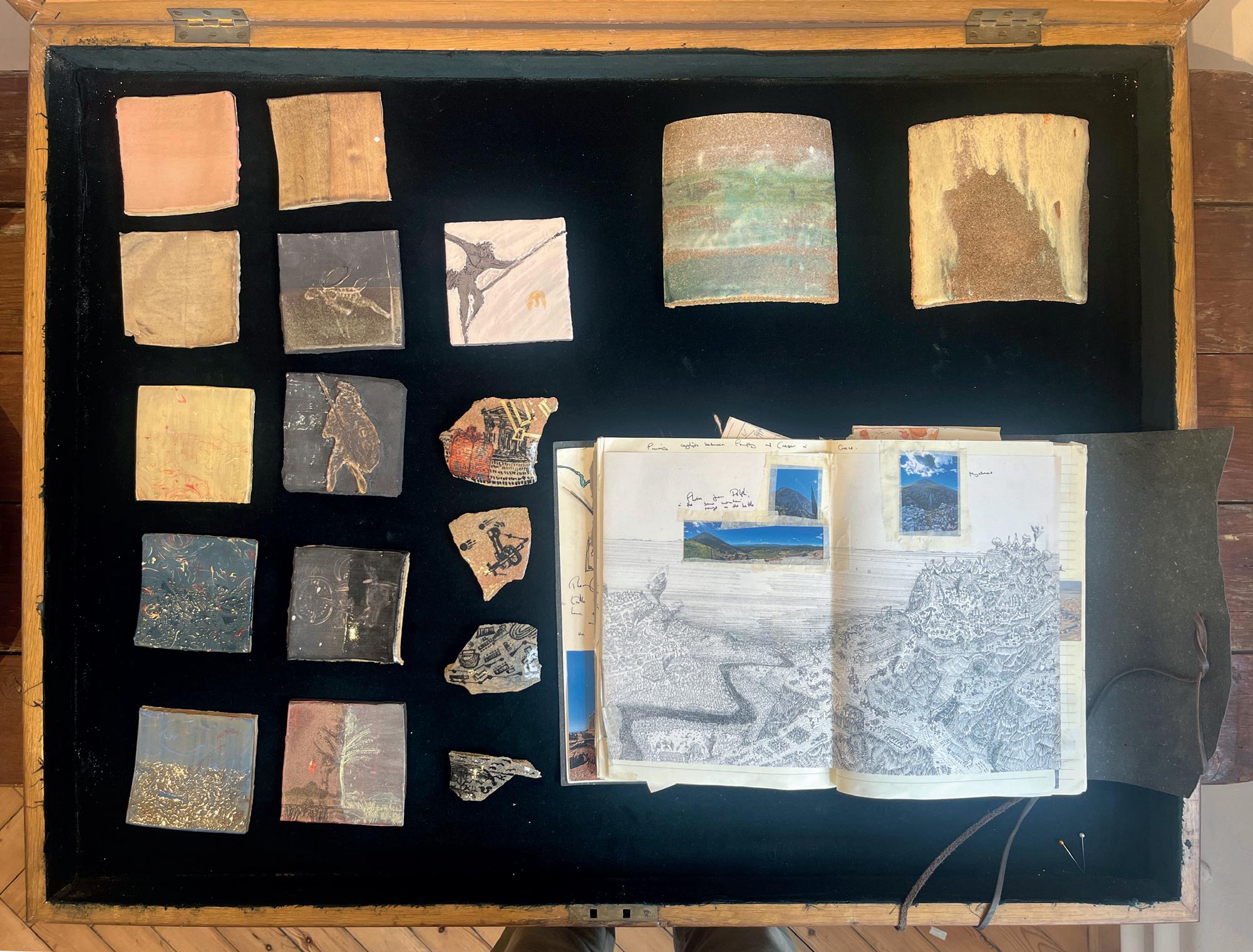
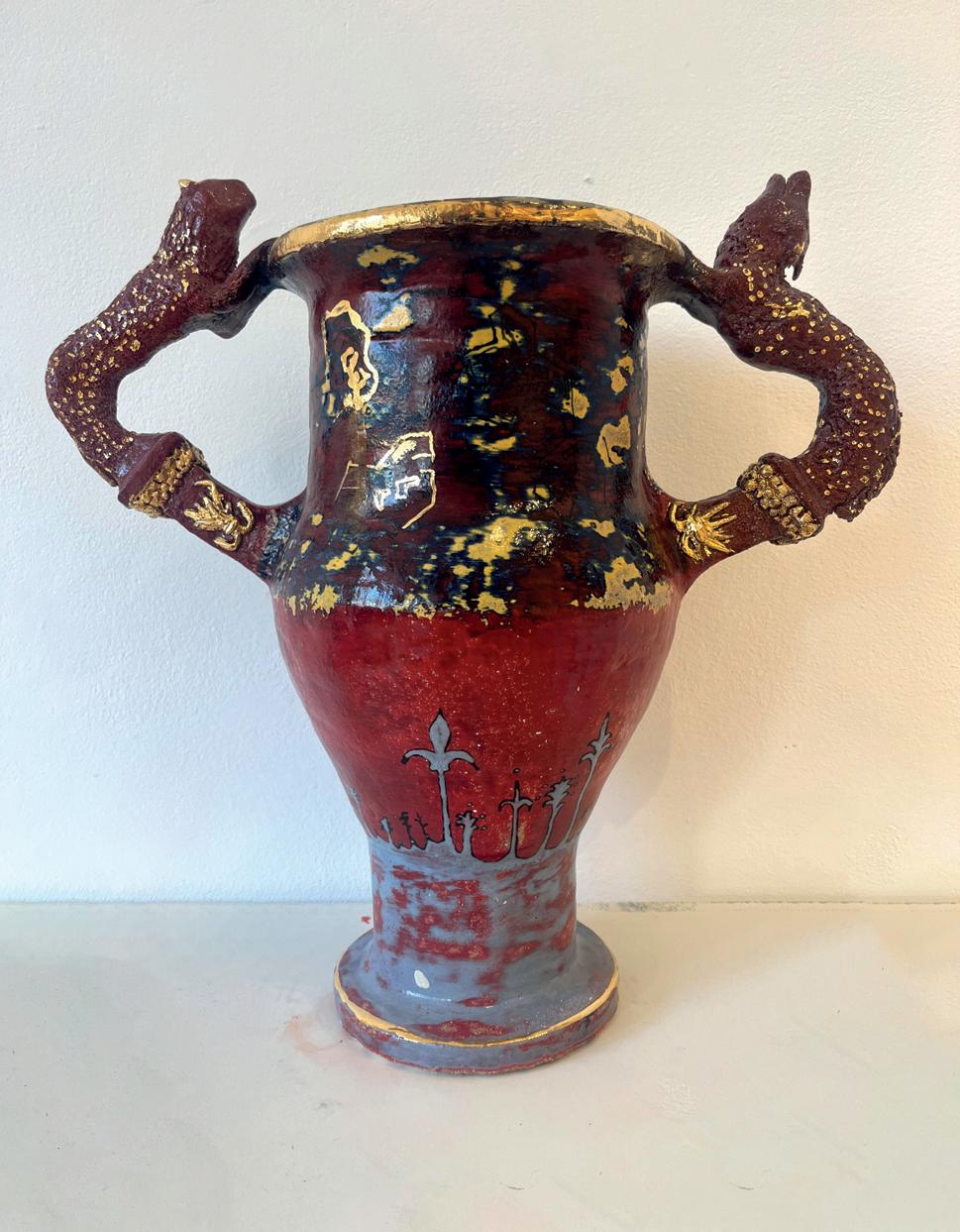

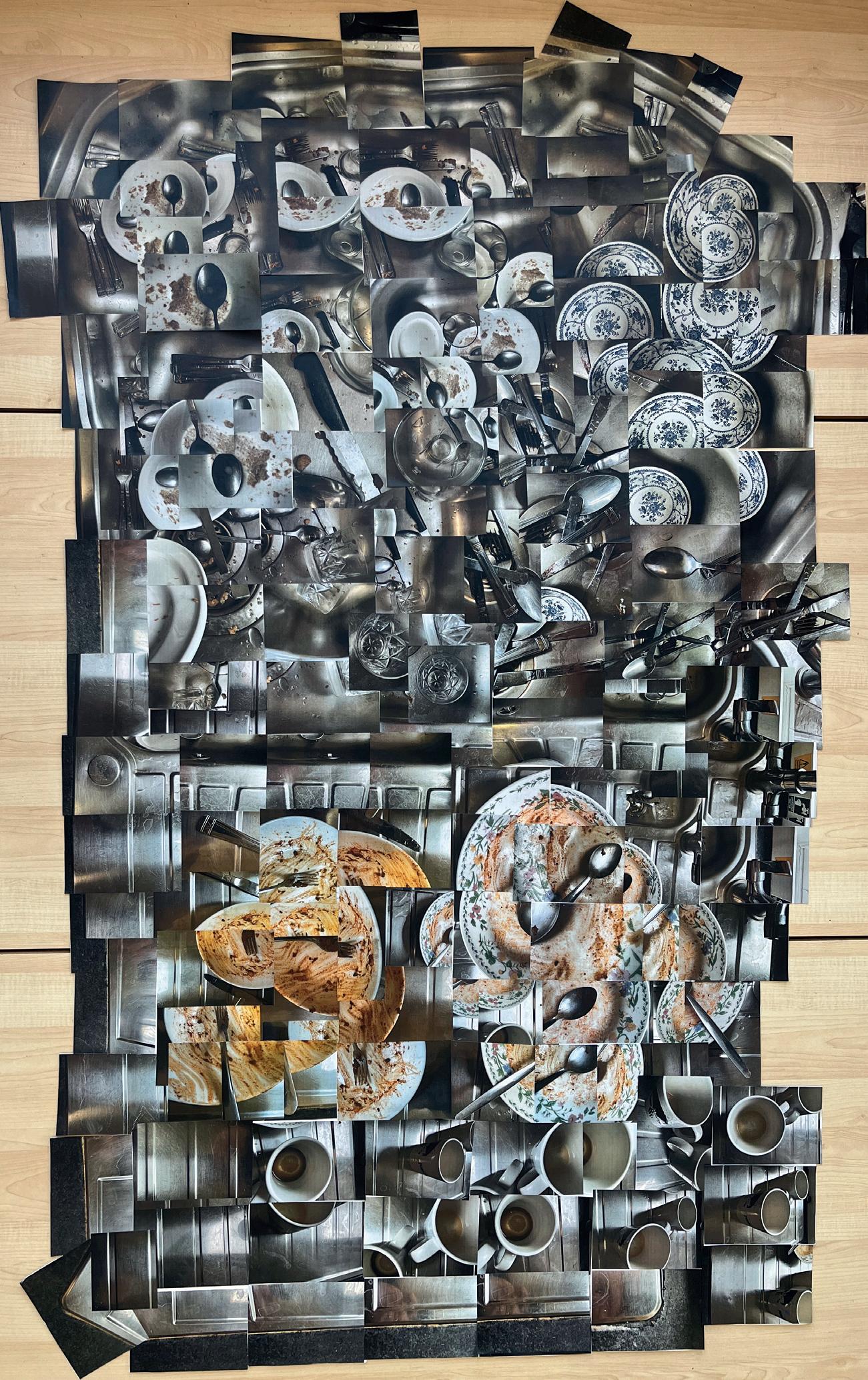
Developing the ability to discuss and critique art helps students develop articulate communication and constructive feedback skills. By learning to express their thoughts and feelings about art, students become more confident in verbal and written communication. This ability to articulate ideas clearly and persuasively is a critical skill that benefits students in all areas of their education and beyond.
So, why study Art? It is an indispensable component of education, offering myriad benefits
that extend beyond the creation of aesthetically pleasing objects. It nurtures creativity, enhances cognitive abilities, promotes emotional well-being, and fosters cultural awareness and appreciation. Additionally, art supports academic achievement, encourages collaboration, and strengthens communication skills. By integrating art into the educational curriculum, schools can cultivate wellrounded individuals who are equipped with the creative, cognitive, and emotional tools necessary for success in all aspects of life…
…AND WHO KNOWS, IT MAY EVEN LEAD TO A GREAT JOB DAD.
Matt Bone Director of Art
This year, the Drama Department launched several events for prep schools, from drama competitions to a fantastic drama festival, which seventy pupils attended, including our own Third Form drama students. The theme of the Drama Festival was ‘Joy’ and that’s what the participants experienced as they attended various workshops, from puppet making to musical theatre, a hilarious improvisation session, and a thoughtprovoking devising workshop on the theme of the conference. The day concluded with an original piece of drama created by our drama scholars titled “It’s Up to the Jury.” This immersive piece of theatre with numerous multi-roles and elements of physical theatre drew in the audience of youngsters as they decided, based on the evidence, the outcome of a young juvenile accused of breaking and entering with the intention to steal.
LAMDA continues to flourish, with forty boys being entered for various grades this year. While we are still awaiting the Trinity Term results, the previous batch of twelve entrants achieved exceptional outcomes, with ten boys receiving distinctions and two earning a merit. Mention should go to Francis Keeping (U6e), who has a distinction in speaking verse and prose, having already obtained a distinction in speaking in public. Siegfred Johnsen (L6a) has also taken his PCertLAM Diploma, which is a fantastic achievement, and we eagerly await his result. If the examination result is as wonderful as his four-piece performance recital in May, he will do very well indeed.
The Joint School Production of “Legally Blonde” proved to be an absolute delight, seamlessly blending humour, heart-warming moments, and a keen understanding of today’s multigenerational issues. In the role of Warner, Forest Purvis (5b) delivered a brilliant performance as the love interest, embodying the character with the perfect mix of charm and complexity. Arthur Macdonald (U6a), portraying Emmett, showcased a wonderful blend of sensitivity and playfulness in his approach to the role.
The Green play “Cancelled” went ahead with a diverse cast. Despite a tight deadline of less than a month, it was a rewarding experience for all. Edward Elwell (U6c) surprised as Constance Figg, showcasing versatility. Henry Cannon (U6c) as Betty Wilkes complemented Edward’s performance. Will Newell (U6c) and Alfie Reynolds (U6c) improvised lines, receiving laughter, and Tom Alers-Hankey’s (U6c) Sargent Donovan also added humour.
Victoria Clayton Head of Drama
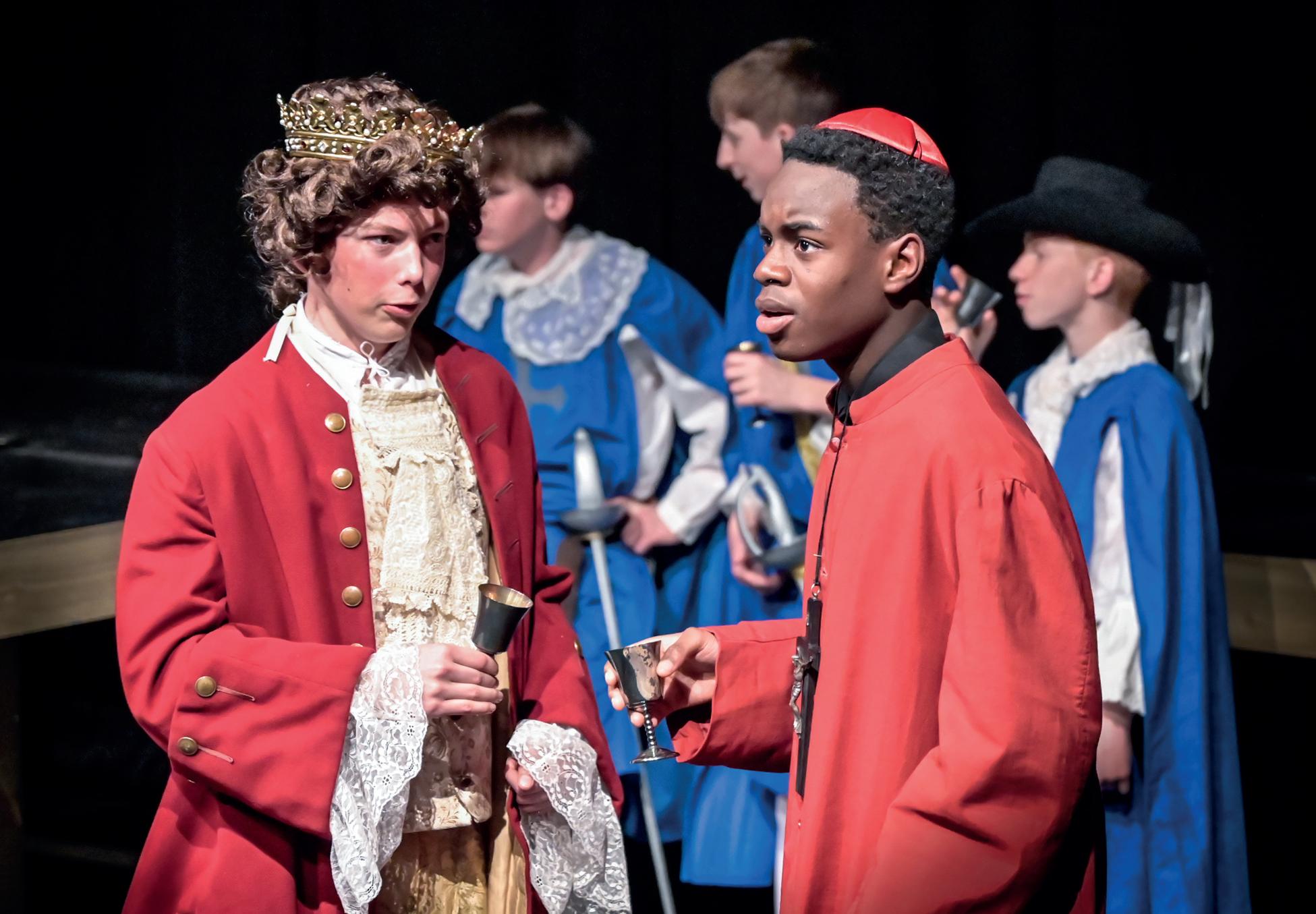
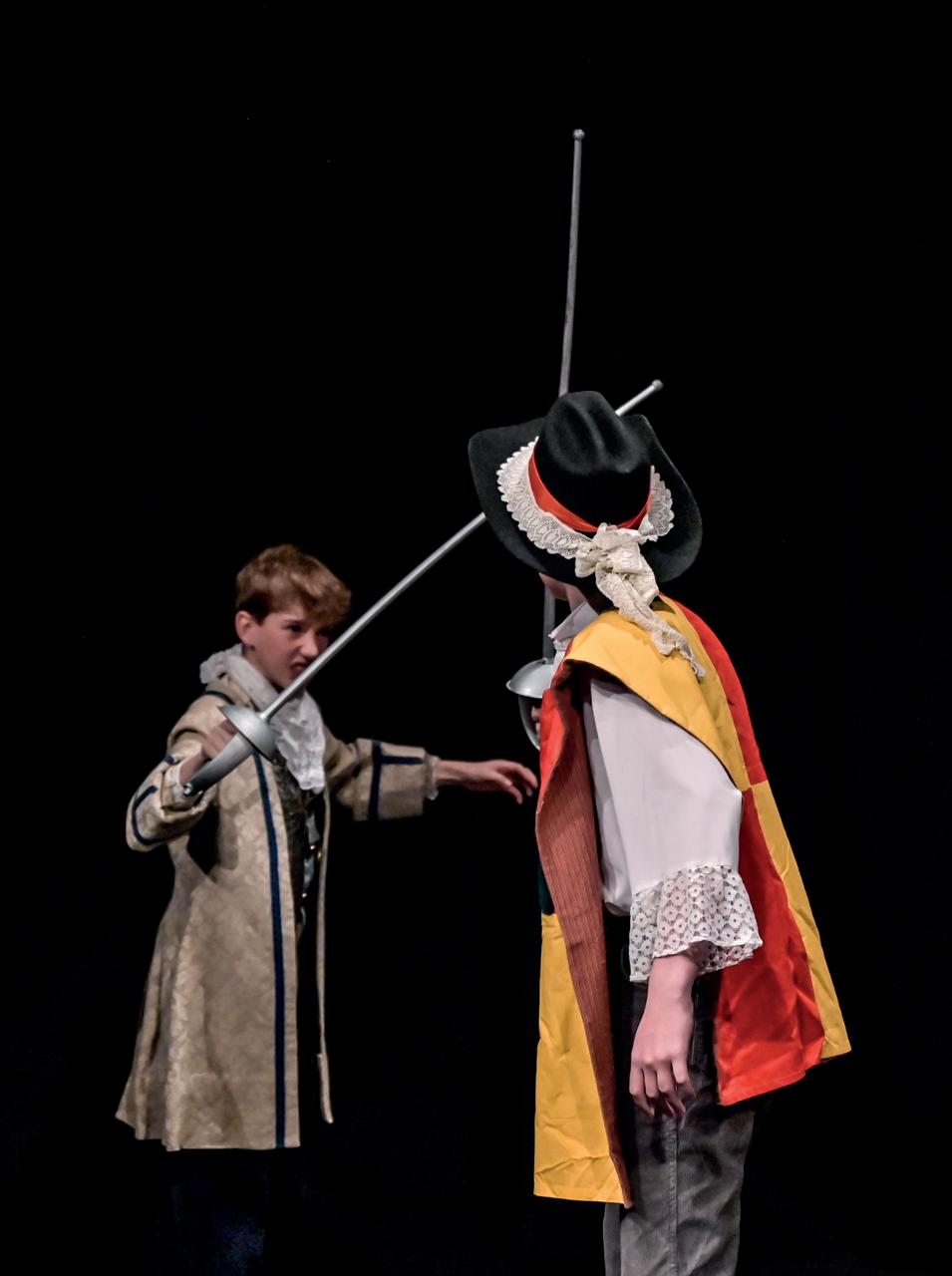
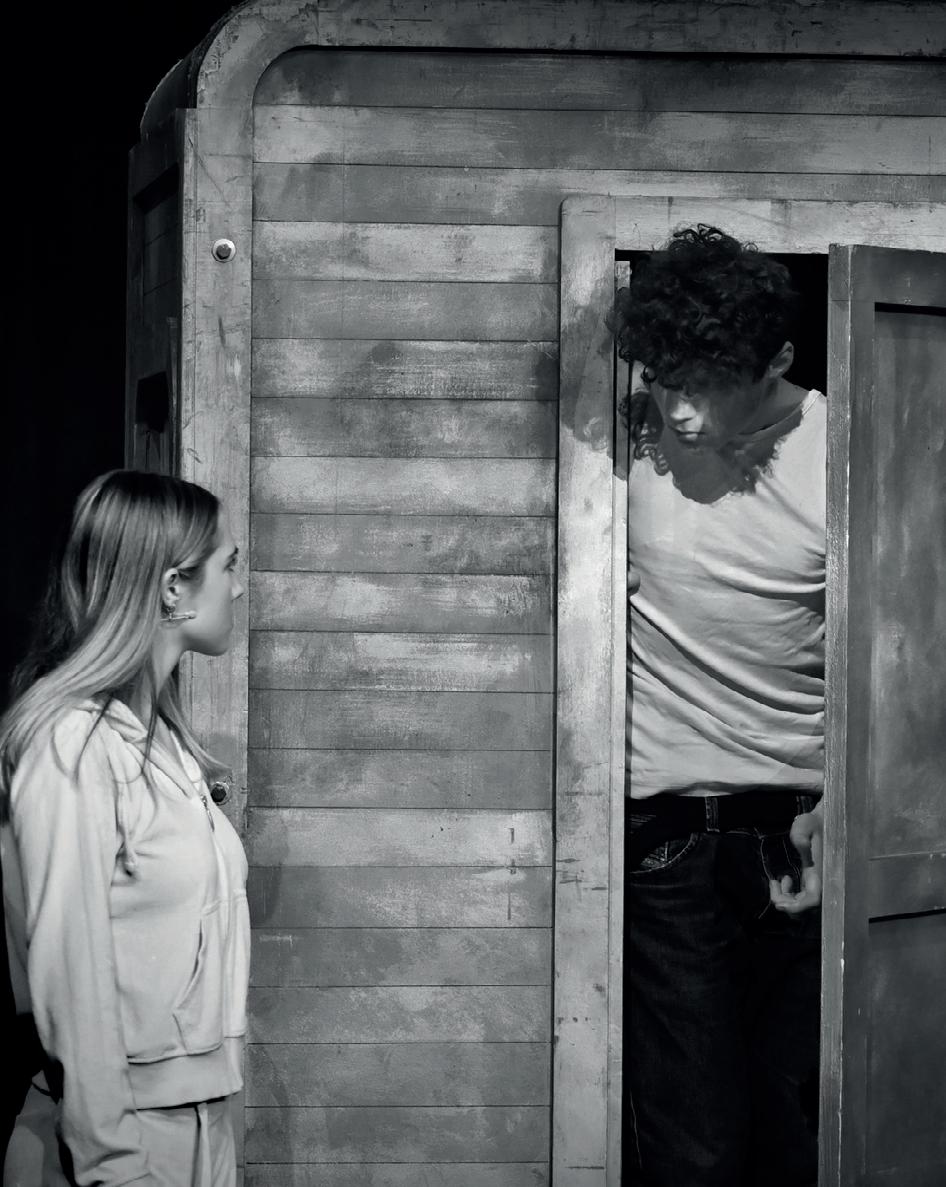
Abbeylands performed two excerpts from Alan Ayckbourn’s Confusions: Between Mouthfuls and Gosforth’s Fete. Unlike previous productions, which were more somber, this year’s plays brought light-hearted comedy. Between Mouthfuls showcased chaotic romantic evenings ruined by past events with notable performances from Archie Osborne (5f) as Martin, the alluring Charlie Scammell (4f) as Polly, and the ever-patient waiter performed by Yan Taborov (U6f). Henry Carvosso (5f) and Milo Fairman (5f) depicted Mr and Mrs Pearce with superb timing and mirth. In Gosforth’s Fete, Yasha Malikov (U6f) played PubLandlord Gosforth, and Lucas Tavares (L6f) portrayed the tea lady. Despite their best efforts and those of Ollie Thompson (U6f) as the Reverend, chaos ensued, resulting in broken engagements, a drunk scoutmaster played by Charlie Ricketts (U6f), and an electrocuted politician portrayed by Milo Fairman. Special thanks to the director, Mr Robinson, for his brilliant direction and patience.
Wallace House presented “Blue Remembered Hills” by Dennis Potter, adapted by drama scholar Freddie Fineman (L6e). The play explores childhood innocence against the backdrop of World War II, following seven children in the Forest of Dean. Rupert Dorey (3e) portrayed Willie with control and sensitivity, while Oliver Bibbey’s (4e) emotional portrayal of Donald revealed the potential
“ “Cassius Hammick’s portrayal of Kit was unnerving, and William Perry’s (5m) performance was described as “Oscarworthy,” conveying betrayal even in silence.
for cruelty in children. Jack Stebbings (3e) made a charismatic thespian debut as John, adding a light-hearted atmosphere. Under Freddie and Miss Thurman’s guidance, this lower-school cast shows promising talent for future productions.
The Digby House play, based on “DNA” by Dennis Kelly, began in late September, with Miss Cant, Archie Eadie (U6m), and Cassius Hammick (U6m) directing. Albi Robinson’s (5m) portrayal of Adam left the audience in shock, while Harry Sykes’s (5m) witty lines delighted the audience. Cassius Hammick’s portrayal of Kit was unnerving, and William Perry’s (5m) performance was described as “Oscar-worthy,” conveying betrayal even in silence. It is not surprising considering he is a drama scholar and a stalwart in the drama department.
The Junior School Production of “The Three Musketeers” was a delightful mix of humour, drama, adventure, and romance. The lively and convincing acting left a lasting impression on the audience. Solomon Macaulay (4a) was well-suited as Richelieu, with his sinister sidekick, and Drama
Scholar Wilf Willmott (3g) as Rochefort. Anton Krnc (3a) as D’Artagnan showed maturity as his character developed and was ably supported by magnificent performances from the three musketeers: Archie Fairman (3f) as Porthos, Hugh Ferrier (3c) as Athos, and Drama Scholar, George Johnstone (3d) as Aramis. Olly Macdonald (4a) as Treville led his troops with precision. Arthur Wilson (3f) was superbly cast as the King of France, and Tom Shaw (3g) as the Duke of Buckingham. The entire cast of over 20 boys and girls contributed to the success of the play, which was evident from the audience’s laughter and applause. Congratulations to the Director-in-Residence, Miss Romilly Swingler, and the Drama Department for a truly memorable performance.
The Drama Department has enjoyed a remarkable year filled with creative endeavours, outstanding performances, and valuable collaborations. We say goodbye to the Head of Department, Victoria Clayton, and LAMDA teachers Barbara Darnley and Hilary Earle, who have worked so hard to ensure outstanding results for the department. Romilly Swingler, who was only here for a year, now moves on to study an MA Musical Theatre . We look forward to welcoming a new drama team in September and have no doubt that the foundations built by the current team will continue to develop and thrive well into the future.
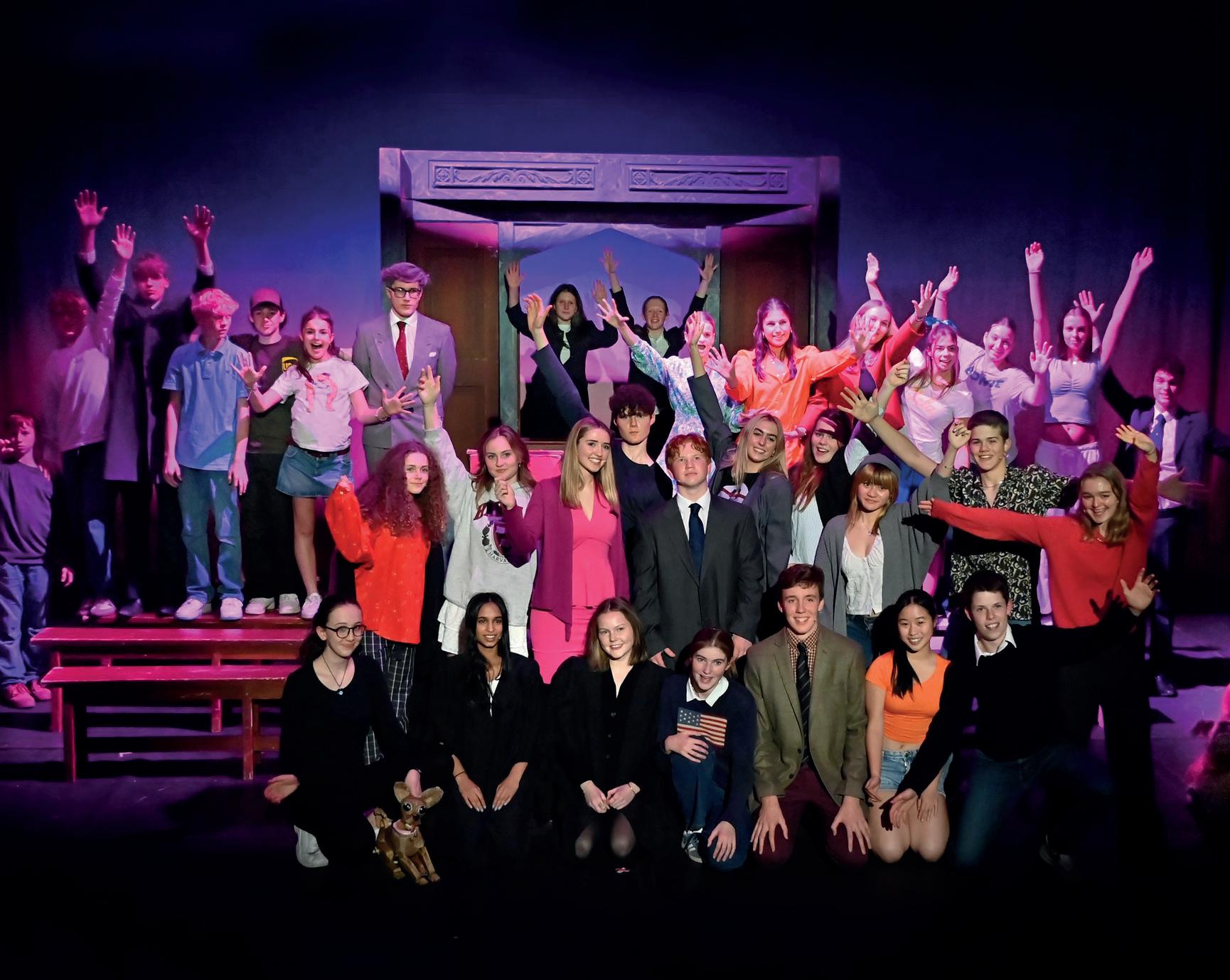

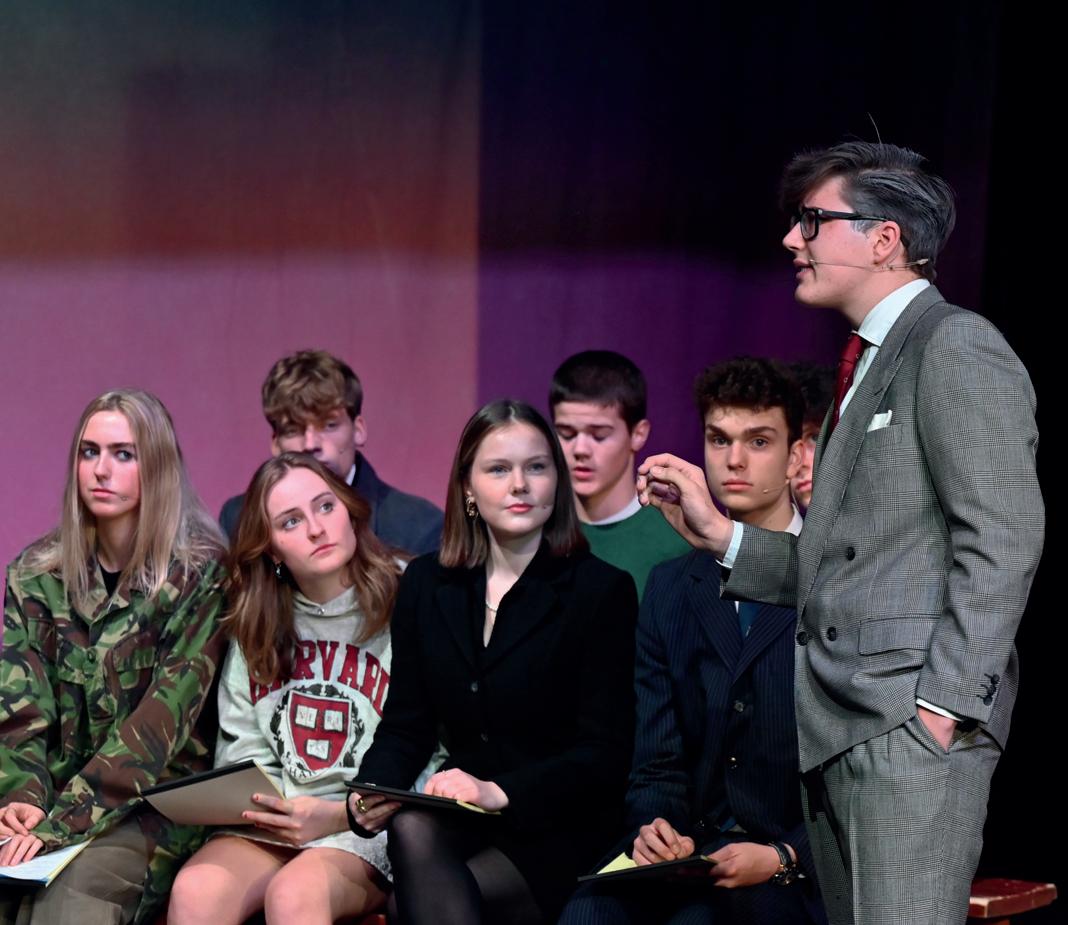
“ “
The Joint School Production of “Legally Blonde” was a resounding success, leaving the audience thoroughly entertained and undoubtedly proud of the remarkable performances showcased by the entire cast.
The Joint School Production of “Legally Blonde” proved to be an absolute delight, seamlessly blending humour, heartwarming moments, and a keen understanding of today’s multigenerational issues. The cast’s collective talent and dedication were evident throughout the performance, making it impossible for the audience not to have a thoroughly enjoyable time.
In the role of Warner, Forest Purvis (5b) delivered a brilliant performance as the love interest, embodying the character with the perfect mix of charm and complexity. His portrayal added depth to the narrative, and his on-stage chemistry with the leading lady was captivating.
Professor Callaghan, played by the talented Siegfred Johnsen (L6a) surprised and delighted the audience with impeccable timing and an unexpected singing ability. The character came to life under his skilful interpretation, adding an extra layer of entertainment to the production.
Arthur Macdonald (U6a), portraying Emmett, showcased a wonderful blend of sensitivity and playfulness in his approach to the role. His nuanced performance contributed significantly to the overall emotional resonance of the production, earning him welldeserved applause.
The character of Kyle, brought to life by Teddy Gadeke (5a), stole the spotlight with swagger and
humour, making a memorable entrance that resonated with the audience. His confident stage presence and comedic timing brought an extra dose of levity to the performance.
Special recognition is due to Henry Cole (L6g), who flawlessly juggled the roles of Aaron and Nikos, demonstrating an impressive range and versatility as an actor. The seamless transition between these two distinct characters showcased his talent and added a layer of richness to the ensemble.
A heartfelt congratulations for all the boys involved in the production. Their dedication and passion were palpable, and the school can take pride in the exceptional talents displayed on stage. The Joint School Production of “Legally Blonde” was a resounding success, leaving the audience thoroughly entertained and undoubtedly proud of the remarkable performances showcased by the entire cast.
Victoria Clayton Head of Drama
Back in September 2019, when I first joined the School, I was immediately envious of the year above me partaking in incredible experiences and competitions such as the Pringle Trophy, Rifles Cadet Cup, Sherborne’s Iron Cadet Cup, and Ten Tors.
One year later, in September 2020, I joined CCF with a vague idea of what to expect, but the reality far surpassed my expectations. My first Wednesday session began with Mr Le Poidevin’s inspiring speech, "The more you put in, the more you will get out!" From then on, I was determined to seize every opportunity.
Over the next four years, as a Royal Marine cadet, I participated in the Pringle Trophy three times, had three live fire trips to Straight Point ranges, attended two summer camps, and numerous termly field trips to places like Salisbury Plain, Scraesdon Fort, and Tidworth. During my time, I
fired well over a thousand blank rounds and spent at least fourteen nights under a basha! These experiences, alongside my friends, taught us invaluable skills like leadership, discipline, communication, and organisation. My most challenging and enjoyable experience was participating in the Pringle team twice and leading it with my brother on our third attempt. We achieved the School’s highest score of 1039/1200, winning half of the stances and beating sixteen other national teams, but narrowly missing first place, by only eleven points. The success of the past three years, unseen since 2004, is largely due to Mr MackenzieGreen’s (himself a former Royal Marine) steadfast inspirational leadership and motivation. We are all incredibly grateful for his guidance and time.
In my last year, I taught and supported the Cadre cadets alongside my friends from Sherborne Girls, further developing my teaching,
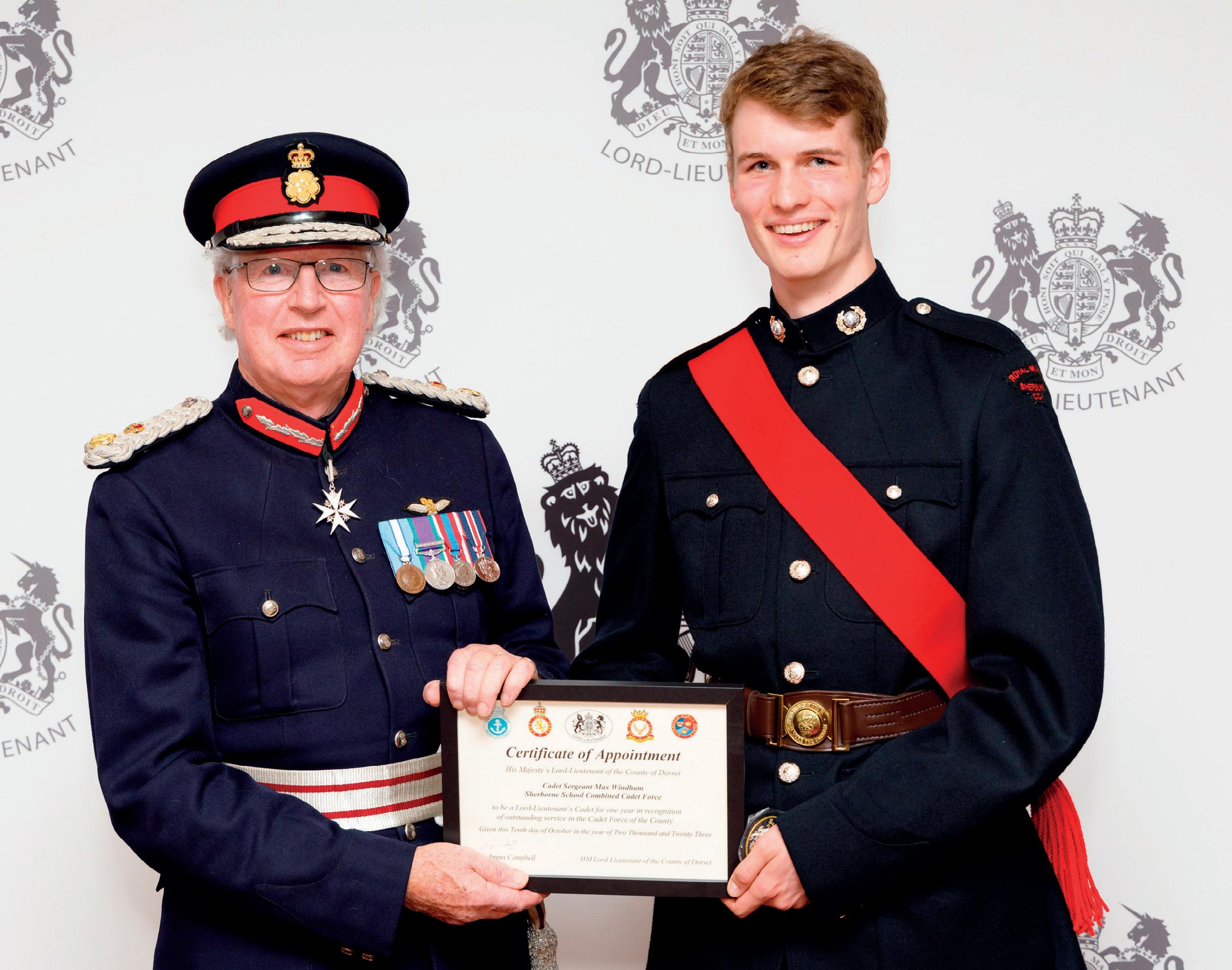
leadership, organisational, and social skills. The highlight was being appointed as His Majesty’s Lord Lieutenant’s Cadet for Dorset in Autumn 2023. I had the opportunity to meet and work with other Cadets across the South-West and serving the Lord Lieutenant at public duties like Remembrance Sunday. This has been a true honour.
The skills learned in CCF, such as communication, leadership, and teamwork, have been invaluable. They helped me secure an Army
Officer Scholarship at AOSB (Army Officer Selection Board) Westbury last year, drawing on CCF experiences during interviews and physical assessments.
For all the above and more, I want to thank the CCF staff, especially Mr Le Poidevin and Mr Wilson who tirelessly organise a full calendar of unique events and experiences for all the cadets.
Max Windham (U6c)
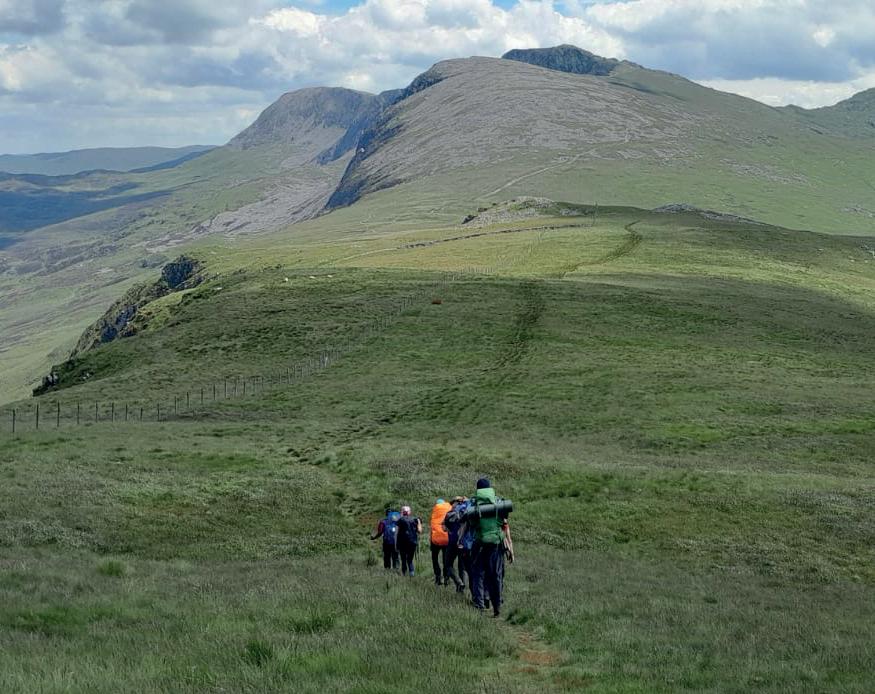
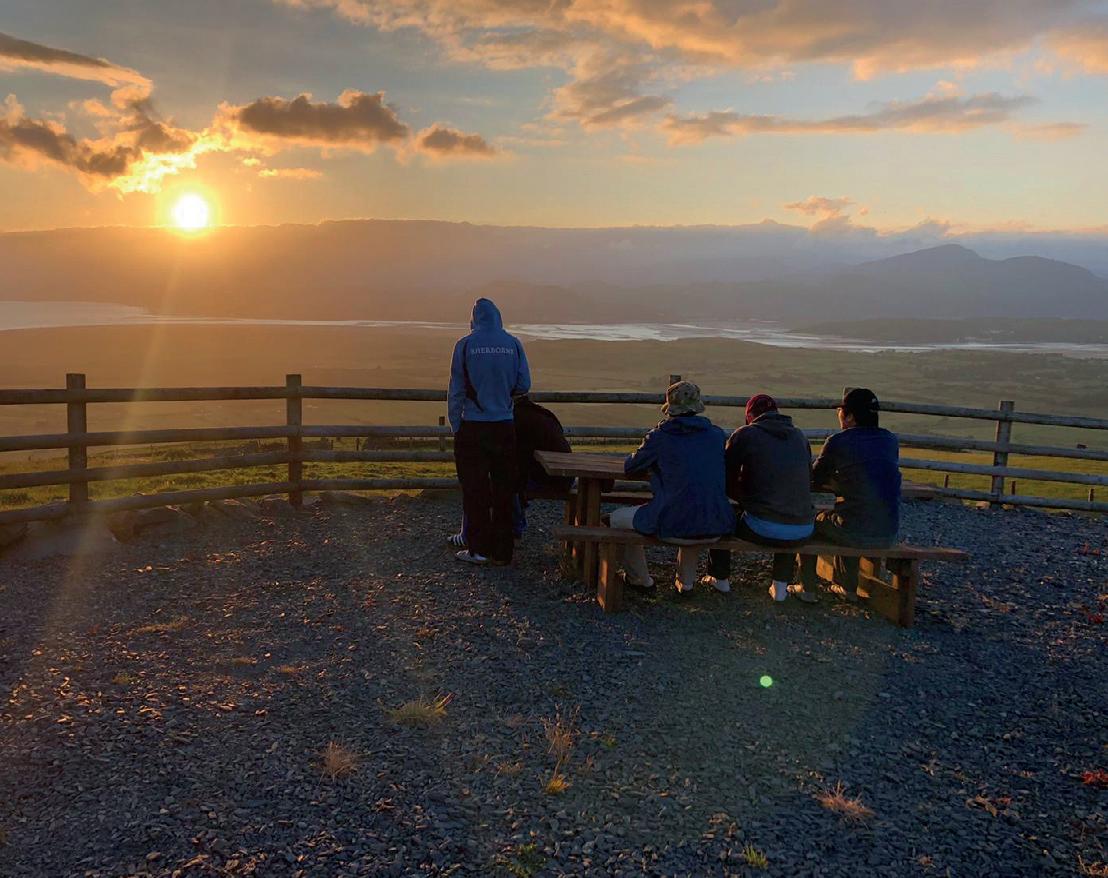


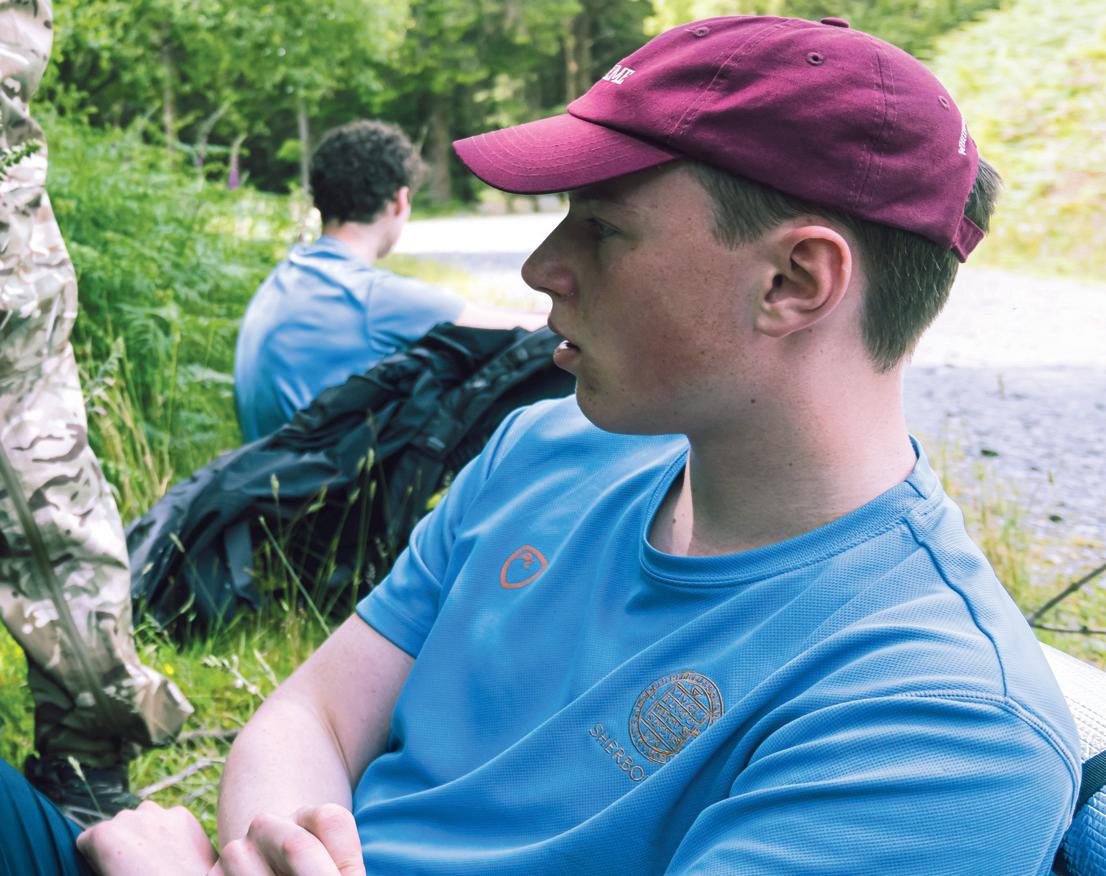
The Duke of Edinburgh’s Award (DofE) continues to be a core part of the flourishing co-curricular programme at Sherborne. Encouraging students to explore new horizons, challenge themselves, and develop essential life skills, this year 160 new participants signed up to the Award. Founded in 1956 by The Duke of Edinburgh, Prince Philip, the award has three levels: Gold, Silver, and Bronze. Each level requires participants to excel in four areas: Volunteering, Physical, Skills, and Expedition, with Gold participants also completing a fifth, Residential section.
The expeditions are the highlight of each award, and this year, our students have journeyed by foot and canoe across the UK, from Wales and Scotland to Exmoor and beyond. However, the DofE programme is about more than just physical challenges; it promotes personal growth and excellence in all aspects of life, as participants pick up new hobbies and excel in activities for the other sections of the award. Beyond expeditions, our students have engaged in the many activities that Sherborne has to offer, as well as activities beyond the School. From community volunteering through the many House Charities, to supporting the Sherborne Abbey in the Choir or in services. From heading up a section in the CCF, serving on the Junior Town Council, and to supporting environmental projects abroad online, this year’s participants have made a massive impact with their
Volunteering sections, proving their commitment to charity, and learning the value of giving back. To complete the Physical and Skills sections, students make the most of the variety of sport, clubs, and activities on offer at Sherborne, excelling on the sports pitches, on stage, and in the Music School, proving that DofE really is for everyone regardless of their strengths and interests. We also witnessed many of our Gold participants making the most of the Residential section this year. Some chose to travel abroad, engaging in activities such as helping at turtle sanctuaries in Mexico and participating in surf trips to Portugal. Others opted for local opportunities, earning qualifications as sailing instructors and amateur chefs.
The Lower Sixth Gold participants enjoy joint expeditions with Sherborne Girls’ participants, and this year marked the third successful running of our Scotland Canoeing Expedition. In preparation for the trip, thirty-two students navigated the Thames River, honing their paddling skills and bonding as a group before tackling the Scottish lochs and canals in October. Despite the chilly weather, the groups were fortunate to have dry conditions as they paddled 100 kilometres along the Great Glen Way from Fort William to Inverness over four days taking in the magnificent Scottish countryside and wild camping on the shores of Loch Lochy and Loch Ness.
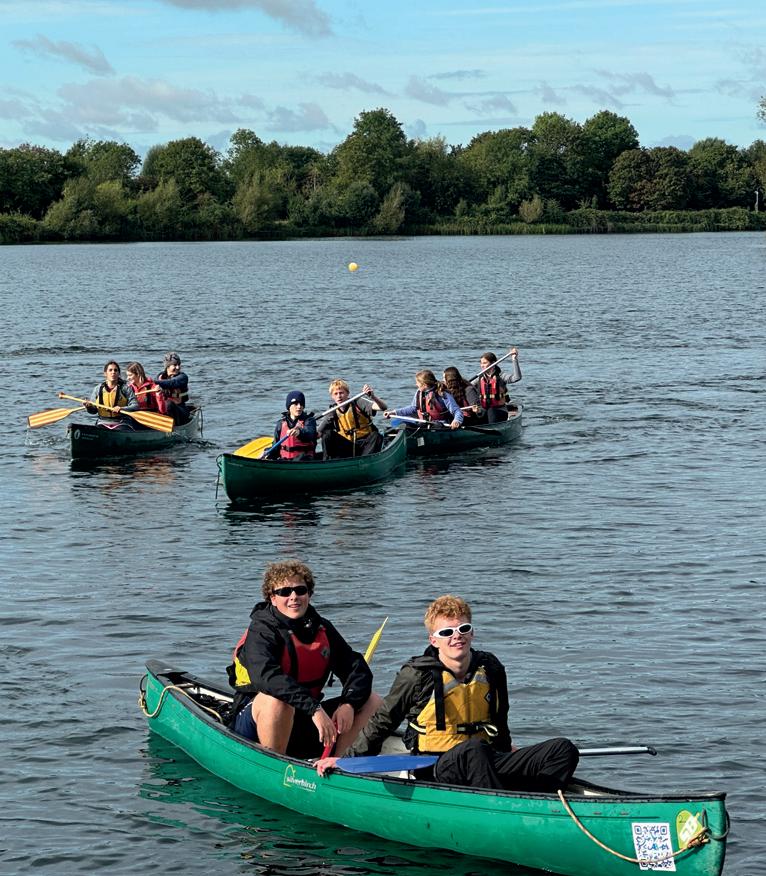
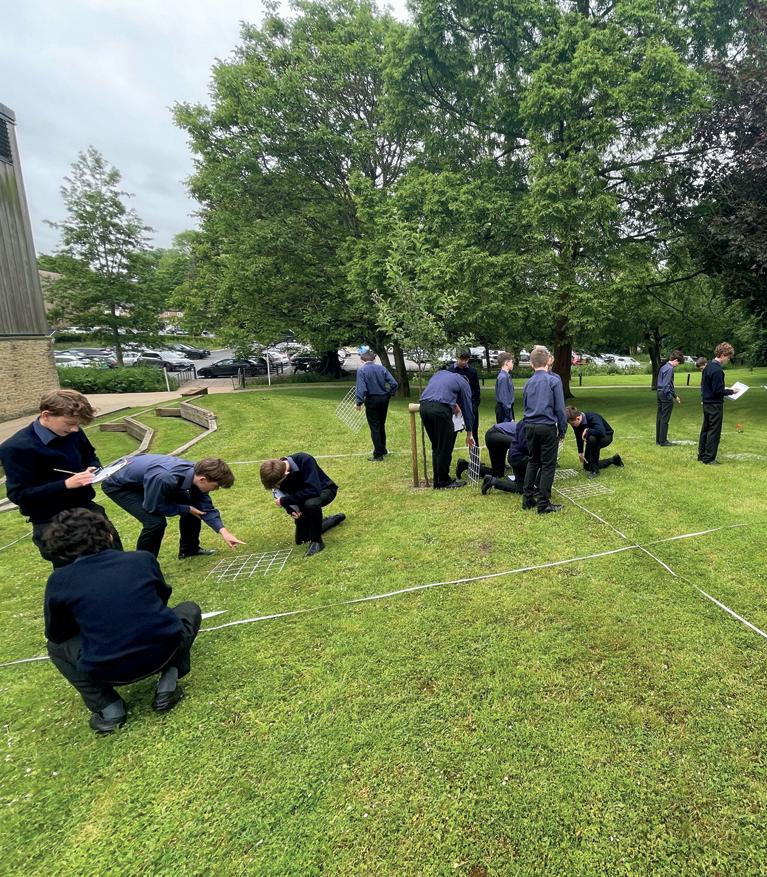
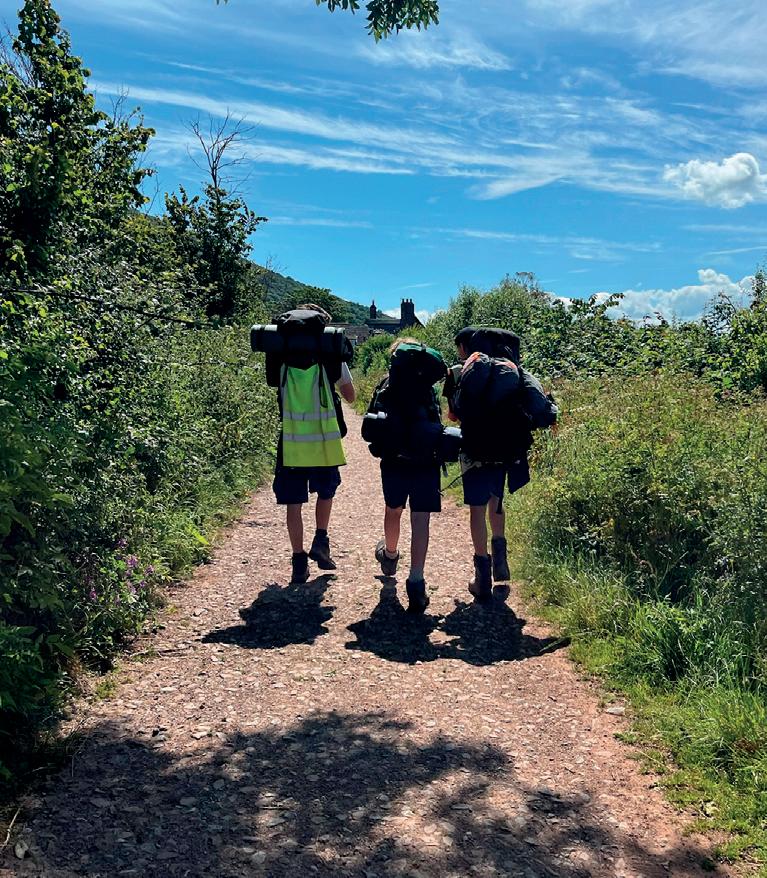
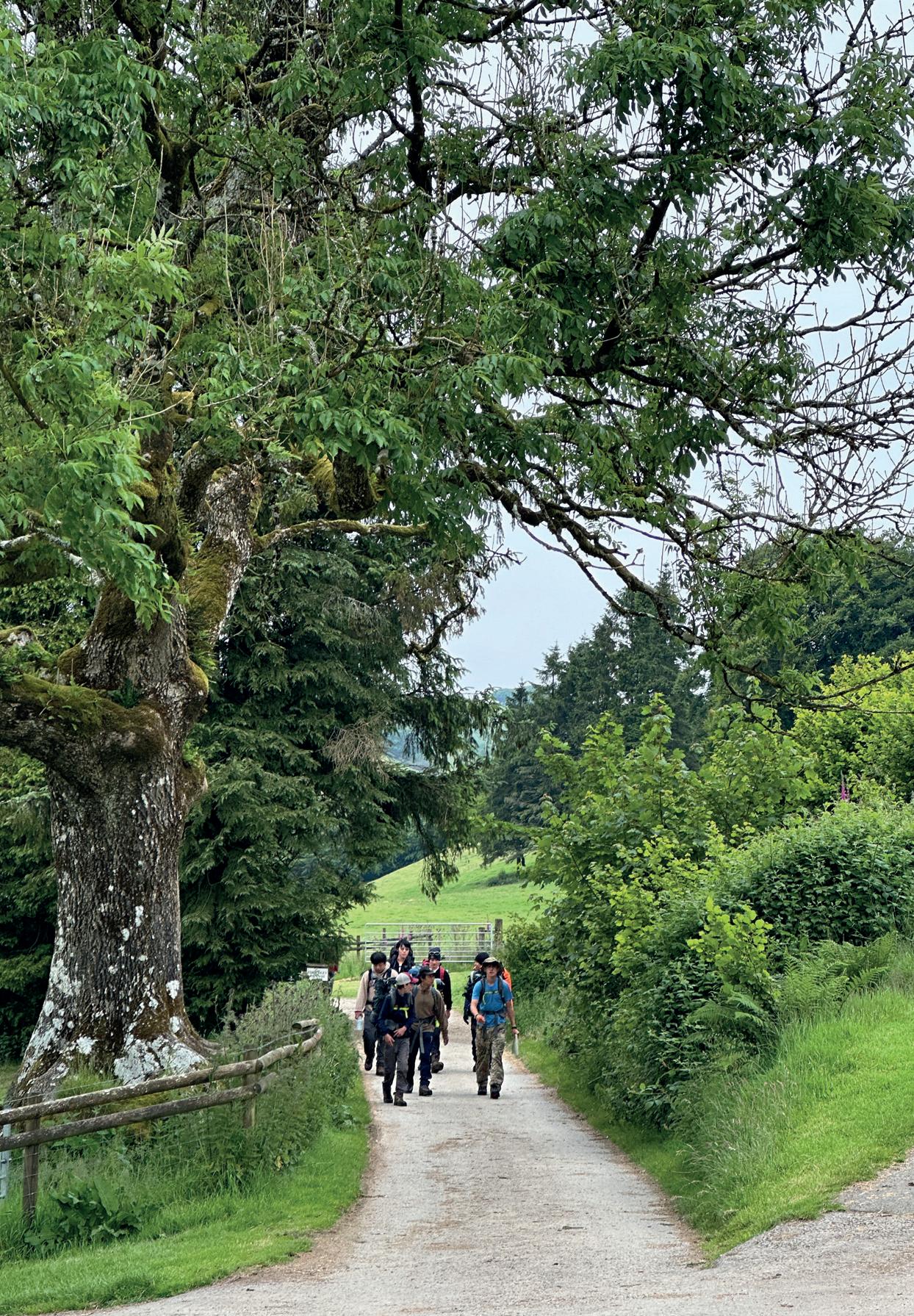
Eighteen Lower Sixth boys and six girls endured a very wet induction to the Welsh countryside on their Walking Practice Expedition in the Brecon Beacons in March. Tough training conditions paid off as they triumphed in the challenging Rhinog Mountains for their Qualifying Expedition, walking through spectacular scenery that made them appreciate the wealth of beauty found in the UK even more.
Thirty-four Fourth Formers took on Silver this year, starting out with a wet and cold Training and Practice Expedition on Bodmin Moor in March. In June they traversed the Exmoor Wild Country for their Qualifying Expedition. Camping at some of Somerset’s most beautiful campsites, the boys successfully completed a three-day expedition that brought them closer together and allowed them to overcome many challenges brought on by the unfamiliar terrain and greater distances. Their perseverance and endurance prevailed as they
showed incredible camaraderie and behaviour that reflected the values that DofE stands for.
With ninety-two Third Form boys signed up for Bronze this year, the expeditions proved to be a herculean task for our dedicated School staff, as well as the qualified assessors and instructors we hire. Over two weekends in May, the boys, organized into 13 groups, first enjoyed a supervised campout at Carey’s, where they received training in preparation for their self-sufficient expedition across the Dorset countryside the following weekend. The groups were blessed with glorious weather as they navigated footpaths using maps and compasses, dodged cows, and camped out at a local campsite. They took pride in cooking for themselves, mastering the challenges of navigation, and successfully completing their first taste of the Duke of Edinburgh Award at Sherborne.
The Trinity Term also saw many of our Gold Award achievers attend the Buckingham Palace Gold Award Celebration Event. Hosted by HRH The Duke of Edinburgh, Prince Edward, many of our boys and Old Boys attended the celebration in the Buckingham Palace Garden.
Speeches from Clive Myrie, Alun Wyn Jones and other celebrities were enjoyed by the attendees and the event was a highlight of the year for our boys, and the perfect end to their DofE journeys.
Well done to the sixty-five boys who completed their Bronze Award and to the twenty-eight who completed Silver Award this year. Congratulations to Robert Chitty (U6d), Toby Davies (e 22), Archie Eadie (U6m), Henry Cole (L6g), Lars Ropeid (U6g), Caspar Bridge (U6f), Alfie Hunter-Inglis (U6a), Thomas Guy (e 23), Marcus Hinde (f 23), Oscar Revell (U6c),

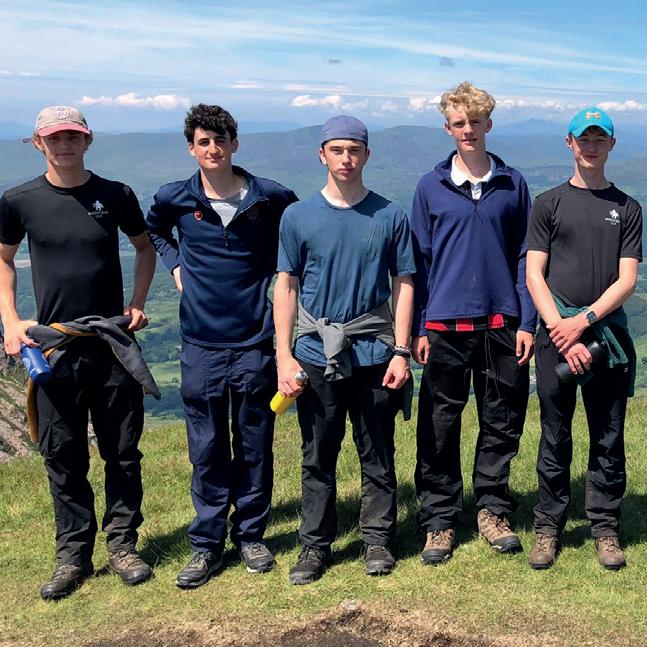
Cassius Hammick (U6m), Freddie Hamilton (U6g), Jake Windham (U6c), Max Windham (U6c), Veljko Kosijer (U6b), Angus Bushby (m 22), Otis Hillenbrand (U6d), Thomas Langley (L6e), Arthur Macdonald (U6a), Freddie May (U6a), Tom Alers-Hankey (U6c), Max Dangerfield (U6m) and Kiptala Kiptoo (U6g) for completing their Gold Award this year – an immense achievement!
We extend our gratitude to all the staff who dedicate their time to support our expeditions, ensuring their continued success and enjoyment. Thank you also to the parents for supporting their boys throughout their DofE journeys. As we enter another year of The Duke of Edinburgh’s Award at Sherborne, we look forward to
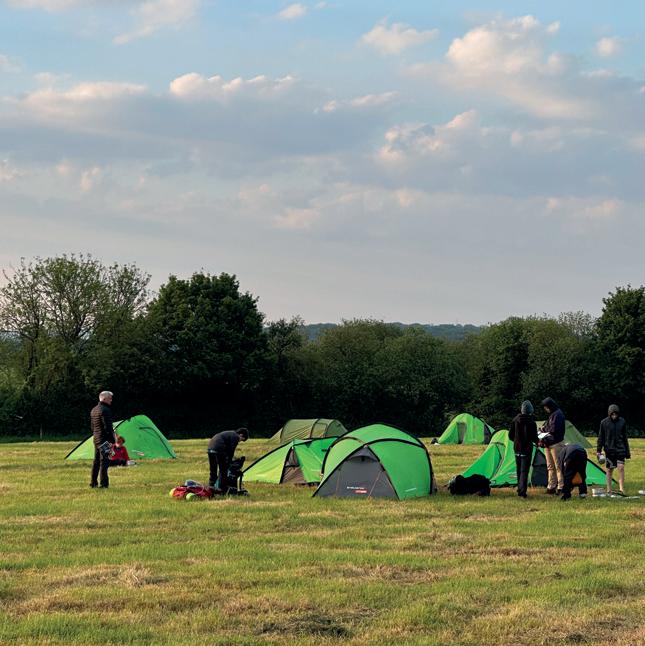
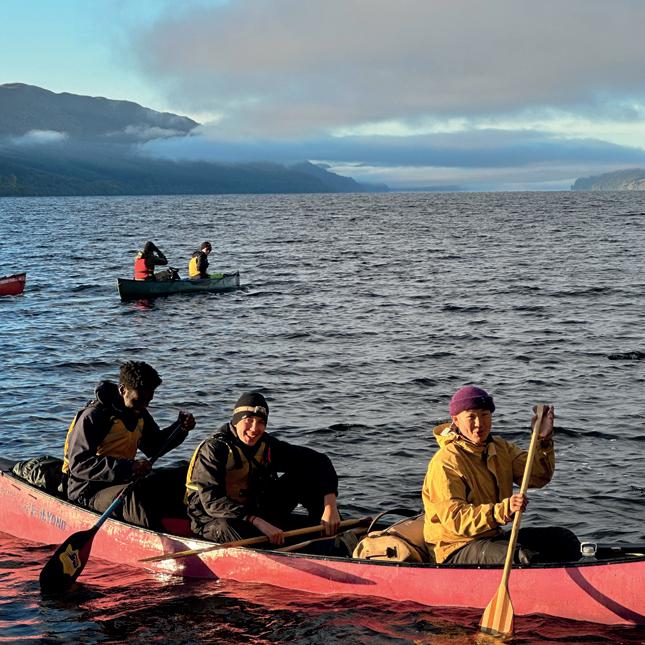
seeing the award continue to grow, allowing our boys the opportunity to explore the UK and beyond, and challenge themselves not only academically, but also physically, and foster a spirit of independence and eagerness to get out of their comfort zones!
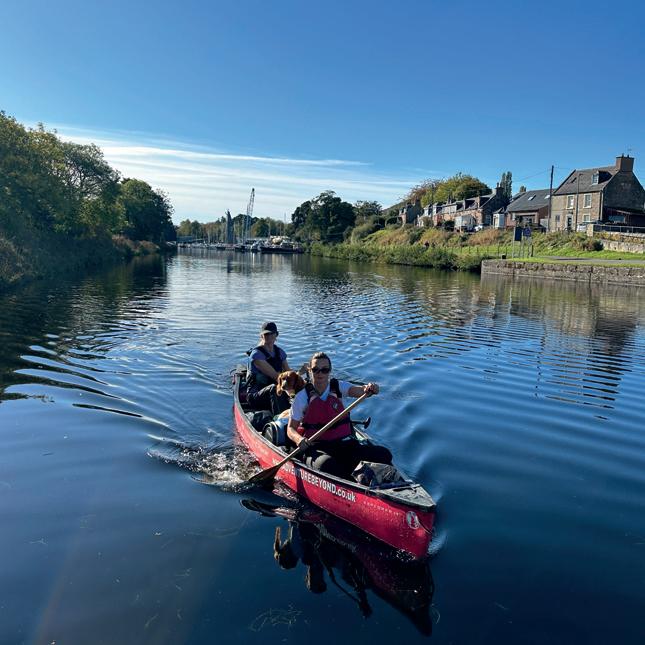
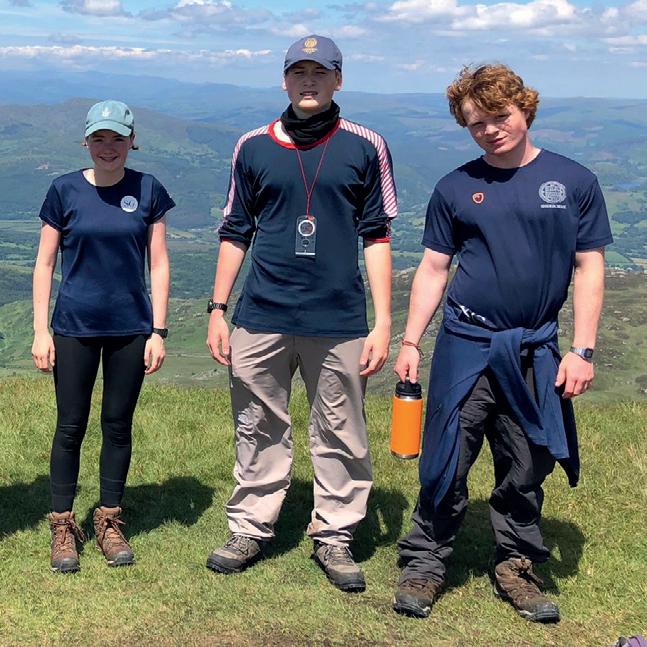

Participating in the Gold Duke of Edinburgh’s Award Canoeing Expedition in Scotland was an unforgettable experience. Being surrounded by my friends from both the boys and the girls school made the 100km journey painless and full of humour. We paddled through stunning scenery whilst we were up in Scotland, seeing some unforgettable landscapes. The 100km voyage allowed me to build upon my current friendships as well as develop new ones; the memories we shared whilst in our canoes will be long lived! – James Thorne (L6f)
Volunteering for the Gold Duke of Edinburgh’s Award at Sherborne Prep has been a rewarding experience. Every Monday evening from 5-6pm for twelve months, my housemate and I assist in the library with various activities, helping the younger students with their studies. This commitment has significantly boosted my character development and leadership skills, teaching me responsibility, patience, and the value of giving back to the community. – George Wight (L6f)
Throughout the whole DofE experience, we were lucky to have amazing weather, with nearly every day being sunny with clear skies. This meant that despite the tough climbs such as Cadair Idris and the hilly terrain, we were met with some stunning views along our coastal walk. However, the heat was a great challenge throughout our walk as much of the group tried to stay cool in the scorching weather. Although this taught us a lesson in perseverance. If I were to give one highlight, it would be the amazing views and features we met along our walk. Overall, I found the walk tough, yet challenging, and a real characterbuilding experience. – Barnaby Hatton (L6e)

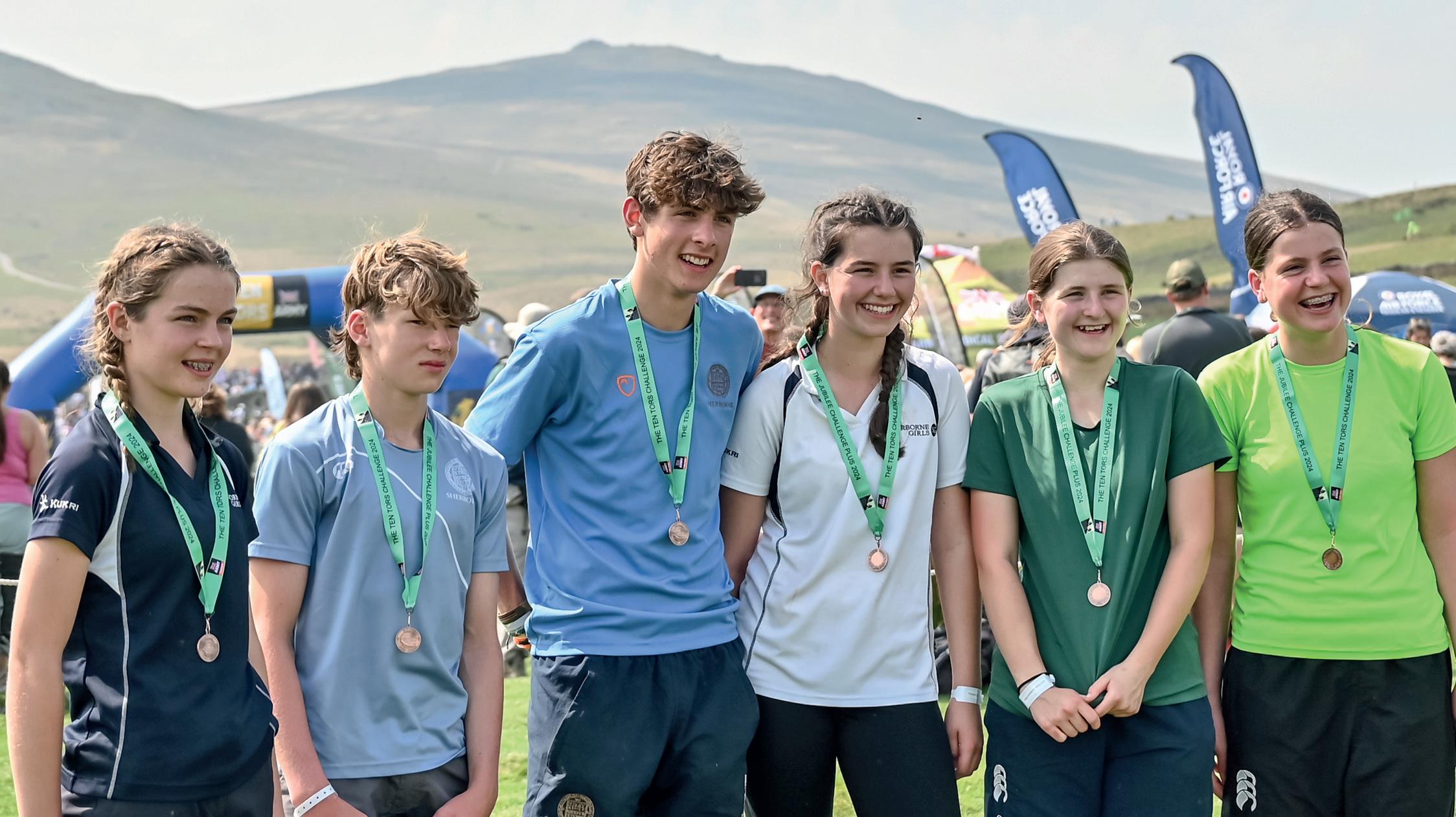
After much anticipation, excitement, and lastminute dashes to Waitrose, we set off on our first training weekend. Our team was six strong - half of us, including me, were lastminute sign-ups.
Having struggled to complete the Bronze Duke of Edinburgh award, I knew this would be incredibly challenging, and so I came well prepared with enough Haribos to last the trip. Dartmoor decided to give us the full weather spectrum - enough rain to rehydrate the Sahara, the visibility you would expect from a snowstorm, and enough sunburn to make me appear like the cloth swung by matadors. The variety proved challenging and instilled doubts about my capabilities. Thankfully,
a pit stop at the Exeter services and a quick Burger King suddenly made the whole concept of Ten Tors much more appealing.
The second training was more about the distance, although thankfully, the weather was more forgiving. With a scenic route, thanks to the ability to see more than a few feet in front of us - we embarked on our final test. With better music and more Haribo, we reached the last few kilometres that the day demanded before heading in for the night, with the following day being equally as successful.
Now came the final weekend, the real deal. After an evening of trying to nab QEH’s rugby ball and a makeshift game of volleyball, we were ready to take on Dartmoor. Woken by Chariots
of Fire and greeted with Wendy’s bacon sarnies - we had the perfect start to our day. At the starting line, the British Army provided Paratroopers and Merlin helicopters to put on a proper show. After a quick speech from Ray Mears, the artillery fired, and off we went on the long winding road to our first Tor.
Spirits were high - we made good time, cracking through our early checkpoints on time. However, Dartmoor has a way of catching you off guard. We had trained in high winds, zero visibility and torrential rain - but the weather was ... hot - perfect for sunbathing in Polzeath - not so good for walking forty-five miles with heavy rucksacks. Water was drunk by the gallon - Haribo by the tonne. The sugar high got us through the morning unscathed - however, the
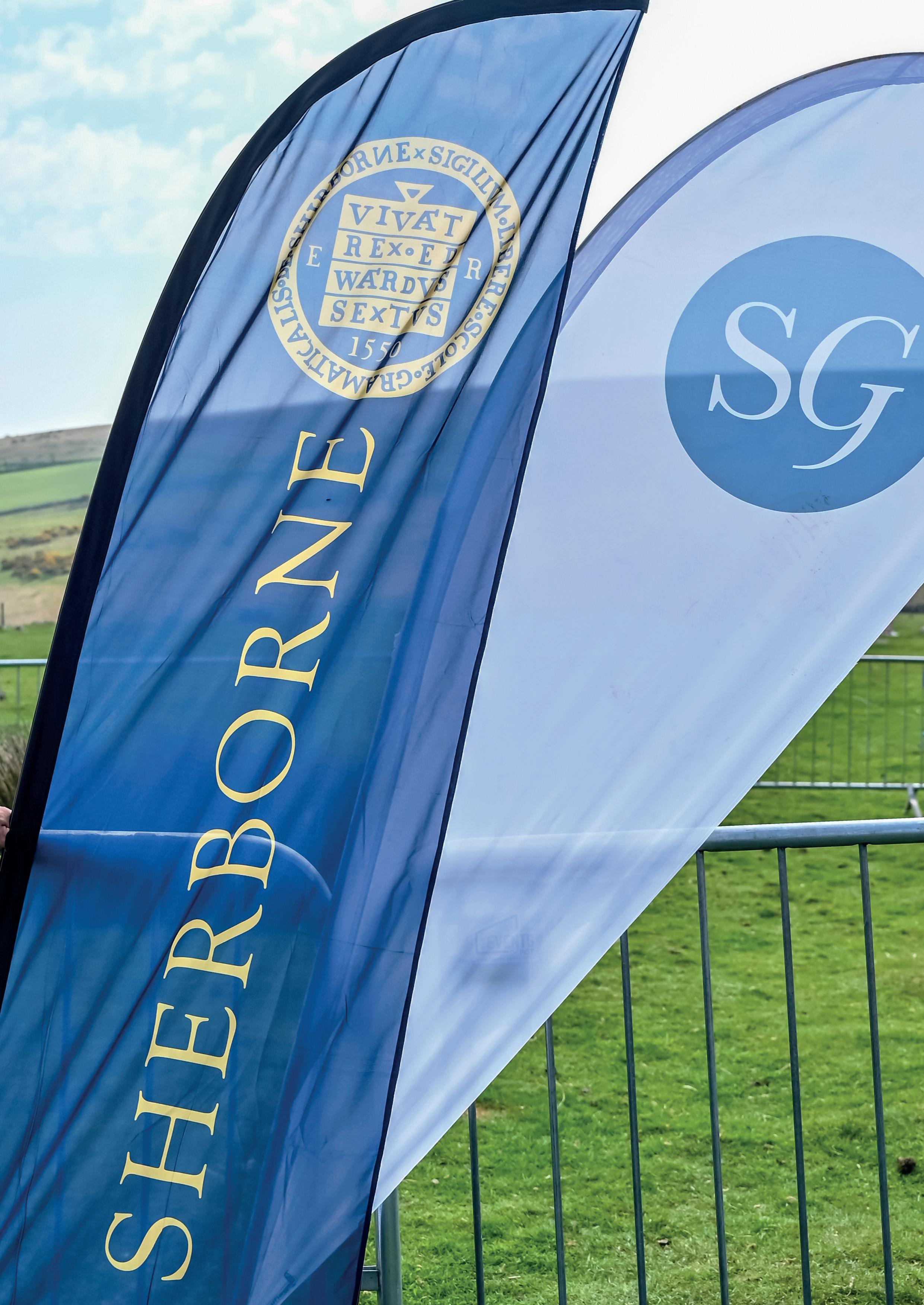
energy crash at Checkpoint 5 proved difficult for a couple of the team, thankfully some Haribo-induced hallucinations got me to our next checkpoint.
After a team pep-talk and another caffeine tablet, we hastily pursued our target of hitting Checkpoint 8 before the end of the day. However, a poorly timed mandatory stop proved to be a troublesome delay - by the time we had left the checkpoint, it was almost pitch black, and navigation became extremely difficult. Having stumbled over what felt like moguls in the pitch black for over an hour, we made it to a small ford just a few hundred metres from our goal. A four-thirty start, and vindaloo-flavoured ration-pack breakfast was our start for the Sunday.
With the finish line in sight, we approached the mass of spectators gathered to watch and cheer on each team to reach the end, regardless of which school their sons and daughters were in. I experienced an overwhelming feeling of pride and fulfilment when crossing that finish line, carrying the Sherborne flag. Looking back - Ten Tors was perhaps the most physically and mentally challenging event I have endured - but it is also something I look back on with a great sense of accomplishment and find myself revisiting quite often in memory.
Jack Duignan (L6c)
Tom Langley (L6e) has set himself a goal of running seven ultra-marathons in seven days in aid of Children in Need. Here’s his story so far...
It is a murky dawn, the first of 2024. Through the low mist that grips the Devon countryside, a figure stretches and breathes deeply of the cool, fresh air.
His name is Thomas Langley – a pupil in the Lower Sixth Form of Sherborne School. Not yet old enough to vote, he’s preparing for a massive physical challenge. Shortly, he’ll step out for his first ultra-marathon, aiming to cover 100km over the next 15 hours.
He has a team of supporters around him. They busy themselves applying blister plasters to his already calloused feet, lining up spare trainers, and making sure his stock of energy gels is readily to hand.
But everyone knows that Tom will soon be alone, with nothing but the barren beauty of a wintry Dartmoor for company on his long journey to the finish line.
Fortunately, Tom feels ready. He’s done the hours of training required to complete such a feat. That hasn’t just involved running seemingly endless distances. He’s also been wild swimming, building his ability to withstand discomfort by spending as long as possible up to his neck in ice-cold water.
And there’s another thing that makes this 100km seem eminently achievable. Compared to the distances Tom intends running over the next 12 months, it’s a trifle. A drop in the ocean.
In March, he’ll double his distance, going 200km over two consecutive days. Then, in September, he’ll double it again –400km in four days. Both of which are a mere prelude to his ultimate goal: 700km over seven days in November, emulating his hero and inspiration, Kevin Sinfield, whose famous “7 in 7” sparked Tom’s interest in ultra distance running.
In short, it’s lucky Tom has a good supply of plasters. Because, by the year’s end, his feet are going to have taken quite the battering.
“You can’t really train for these sorts of distances,” Tom muses when we meet in the weeks before his June four-in-four challenge. “Sure, it helps to build running fitness. But it’s really about mental strength to keep going when simply putting one foot in front of the other feels impossible. That’s what I’ve been working on over the last couple of years.”
Let’s wind back the clock, then, to the moment Tom first felt an urge to set himself this Herculean challenge. It was during the Christmas vac of 2022, when he was reading about Sinfield’s epic accomplishment.
“I instantly felt that I would like to have a go at running an ultra,” Tom reports. “Pretty soon, the idea took shape to do my own seven in seven, using the 12 months of 2024 to build endurance with some smaller challenges.”
Everything’s relative, of course. For many, even one 100km run would seem plenty to be going on with. So how did it shape Tom’s perception of that first event, knowing it was merely the hors d’oeuvre to a far larger meal?
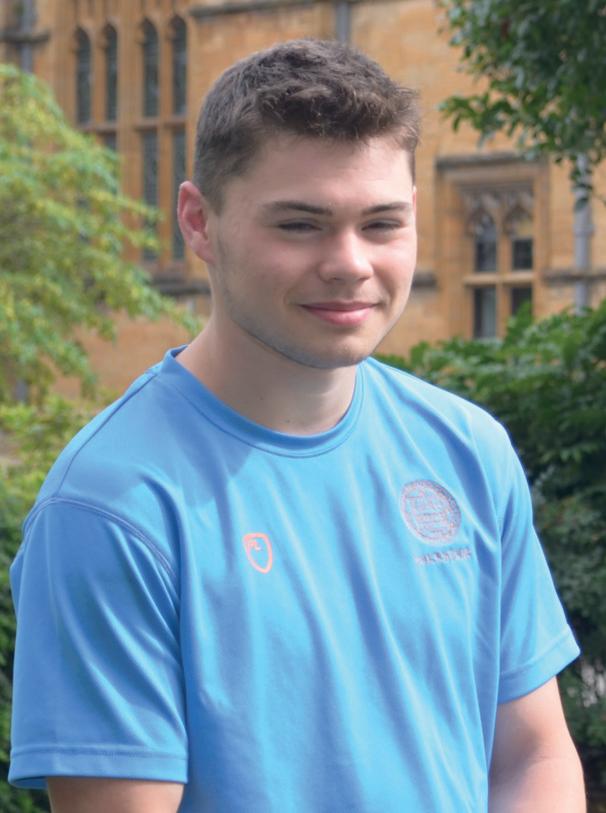
“It didn’t make the pain any less,” he laughs. “But I think it did help me dig in and see it through, because I knew completing it was part of the process I’d set myself. Likewise, when I did the 200km over consecutive days in March, I viewed it as much as a training exercise as a challenge in its own right.”
That’s not to say Tom has been unaware of the scale of his achievements so far. Indeed, he’s leveraged it for the good of others, raising more than £4,000 for Children in Need in the process.
determination,” he says.
“Whether it’s a rugby match, the Ten Tors, or an exam, you have to prepare appropriately and give it your all. That’s what I’m doing with every step of my ultra challenges: giving it my all and digging deep.”
Everything’s gone according to plan so far,” he says, “but the 700km over seven days is a whole new level for me. I’ll need every ounce of mental strength to get through that.
“I watched Children in Need in 2023 and knew that was the charity I wanted to support through my challenge,” he says. “I’m pleased to have been able to give something back through my efforts. That’s a real encouragement through the tough miles.”
So impressed has Just Giving been by Tom’s fundraising efforts, the organisation has nominated him for its “Fundraiser of the Year” award. Children in Need has also written to him in celebration of his efforts – something that Tom finds hugely motivating as he prepares for his final challenges. Remember that Tom is undertaking these massive physical feats while studying for A Levels and playing an active part in Sherborne’s busy full-boarding life, and you’ll get a sense of his tenacious spirit.
“Sherborne has taught me the importance of self-discipline and
With an attitude like that, it’s no surprise that Tom’s long-term plan is to become a professional adventurer. He hopes to build his profile via YouTube and social media, undertaking physical challenges and raising money for charity in the process.
“I have loved the last 12 months,” he reflects. “The runs themselves have been fantastic – especially in hindsight! But I’ve also enjoyed talking about them with younger boys, including at the prep school, and drawing on my experience to share life lessons. That’s what I’d like to do for my career, so I’m working towards that goal.”
Given Tom’s track record of achieving his targets, you’d bank on him nailing this one, too. And to think it all begins on a miststrewn moor on New Year’s Day. One step of many towards his future.
This year it has been a pleasure to really delve into the clubs and activities Sherborne has to offer. The provision is impressive, with 127 different clubs and activities on offer throughout the year (but not all run in the same term). These are not to be confused with musical ensembles which are separate to this list! The options for boys fall into the broad categories of sports-based activity, developing skills, the ‘super’curricular – offering opportunities to extend their interest in an academic sphere, and then clubs and societies.
Whilst the stats look good, it is easy to overlook the gift the clubs and activities offer the boys; in a highly structured environment with their time scheduled from 7.30am until 8.45pm having the autonomy to pick exactly what they want to do simply because it is something that interests them is gold dust. It provides nourishment for an evolving passion that helps fuel their day.
I was struck, when popping into various clubs and societies, how important it is to allow the boys to have a time and space to share a common interest. It is, sometimes, the smaller clubs that provide disproportionate reward for their endeavours and the opportunity for the boys to find their tribe. Board games, Bell-ringing, Chess, Coding, Cooking, Crossfire (the school’s Christian Union) and Lego Club are all fantastic
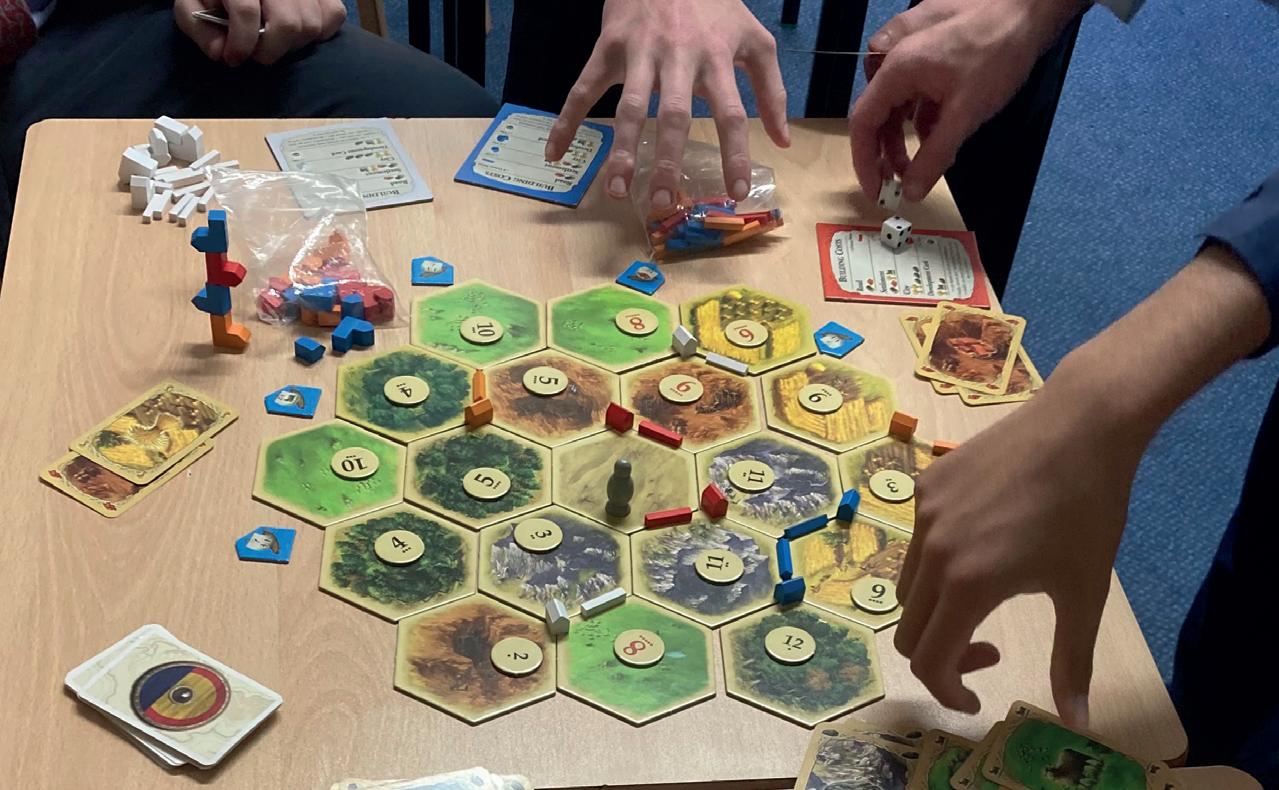
examples of boys from all years, and Houses, coming together with a common purpose to reinvigorate themselves ready for the next challenge.
The future for this area of the school is looking extremely exciting, with an even greater offering possible due to the collaboration with Sherborne Girls next year.
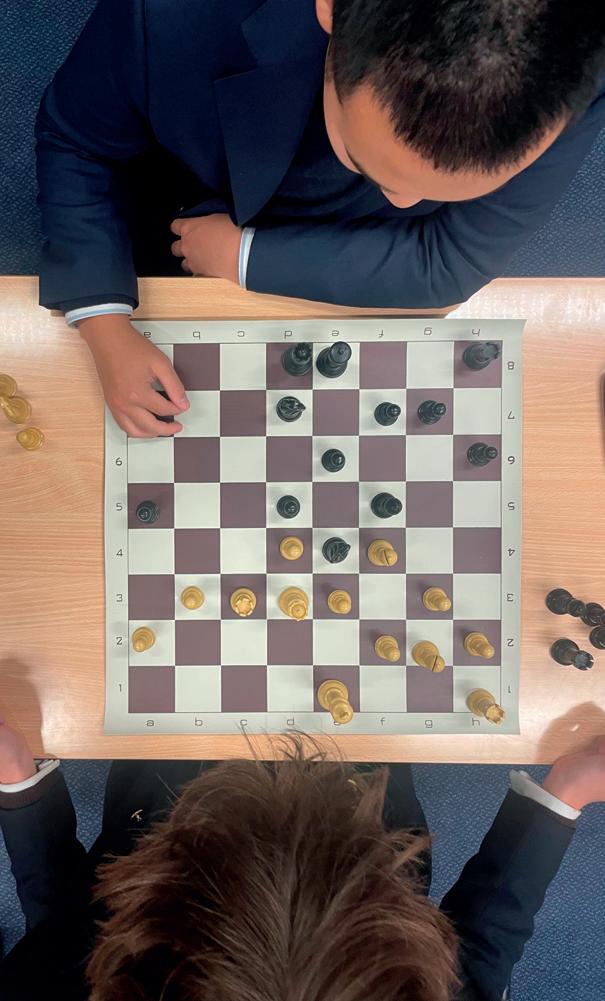
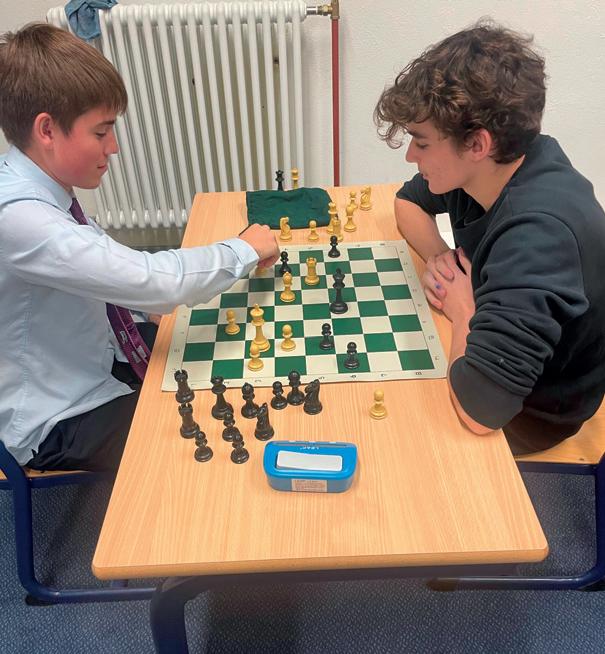
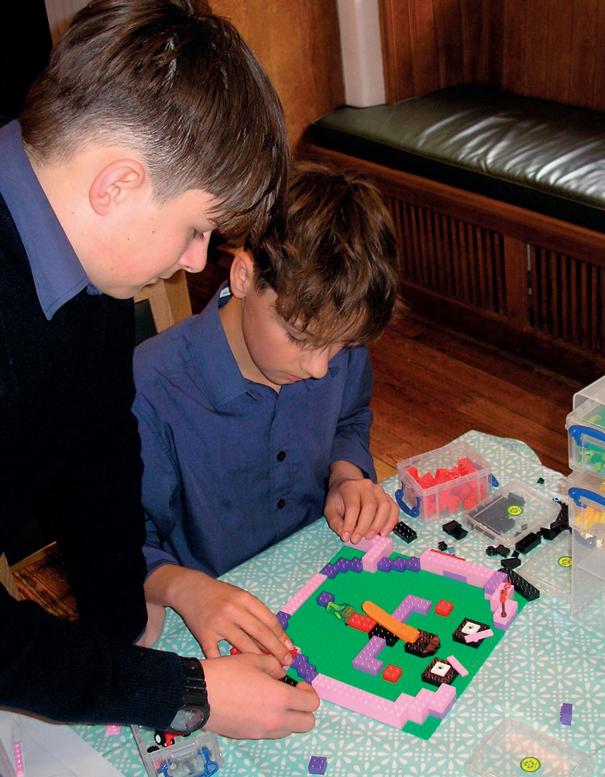
It has been another busy year of outreach and charitable endeavours at Sherborne School, both in boarding houses, academic departments and on the sports fields. In the Houses, Harper, The Digby, and The Green have all hosted Garden Parties providing a wonderful opportunity to raise money for their respective house charities, Sherborne Primary School, School in a Bag and The Yeatman Hospital.
Meanwhile, Lyon House boys completed a sponsored bicycle ride in the sports hall, raising money for their charity, Prodigal Bikes. This fabulous charity provides bicycles to Low Income Countries in Africa offering a much-needed form of transportation. School House have money pledged for their chosen charity, Cancer Research, and the boys are deciding on a suitable challenge befitting the funds raised.
Looking ahead to next term, plans are taking shape for the Turing Bike Ride in which Wallace will be raising money for their house charity, The Sherborne Voluntary Ambulance. The bike ride is inspired by Alan Turing who, somewhat auspiciously, made the papers on his first day of School when he found himself stranded in Southampton due the General Strike. Not one to let obstacles get in the way, he bought a map,
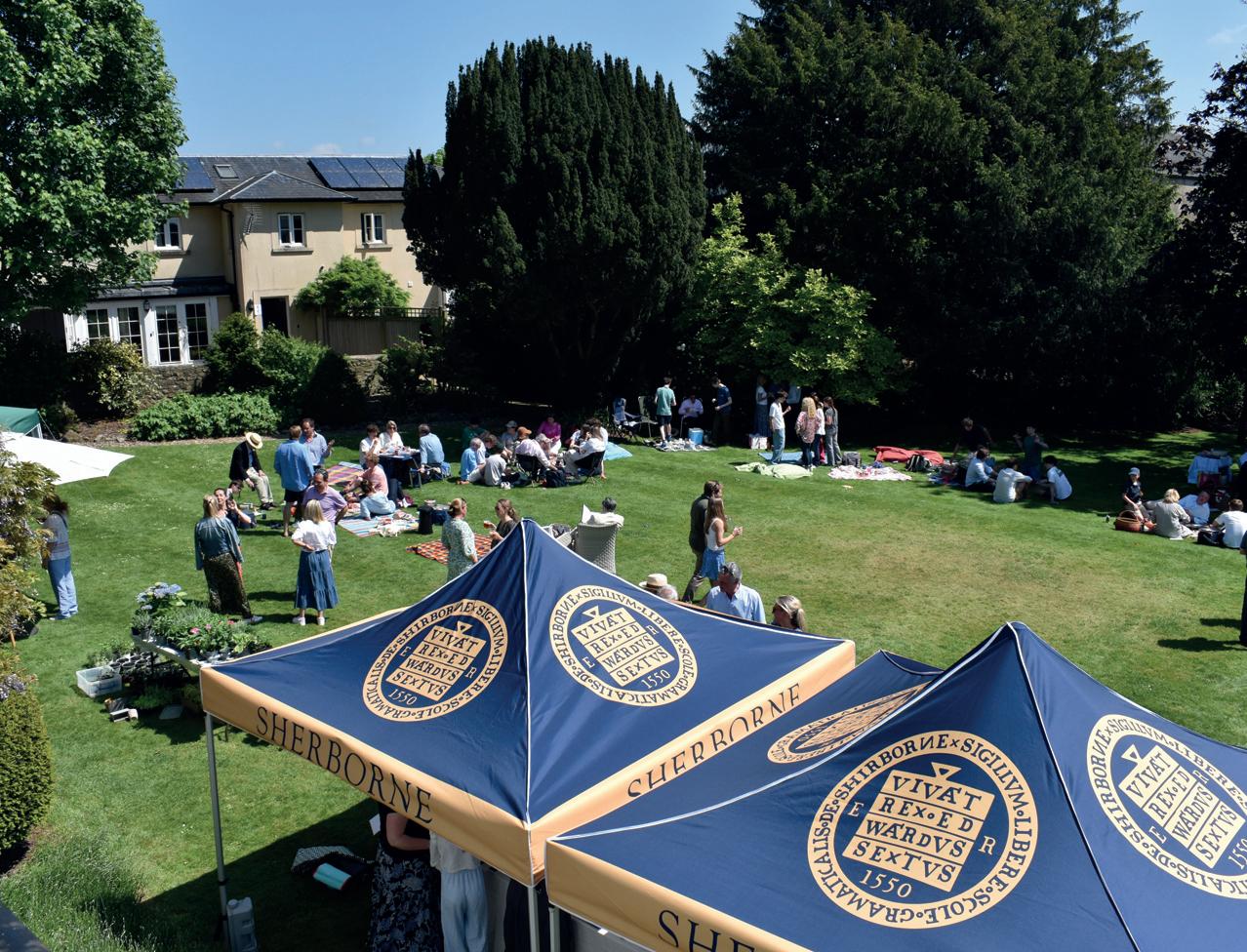
hopped on a bike, and set off for the final sixty-three miles on two wheels.
In Departments, the Classics Department continue their relationship with the Gryphon School with Mr Payne and Mr Pyman (from Sherborne Prep) visiting the school to teach classics and the Art Department continue to support Art Life, a local community initiative to support people experiencing mental health challenges. On the sports fields,
The Ruth Strauss Foundation cricket week in June was a standout feature of the Sherborne summer sporting calendar. Spearheaded by Mr Tatham, the expanded event saw twenty-five matches against thirteen different opponents, with players ranging from Sherborne Prep up to the 1st XI, and even the staff team!
Christopher Foyle Head of Charities and Outreach
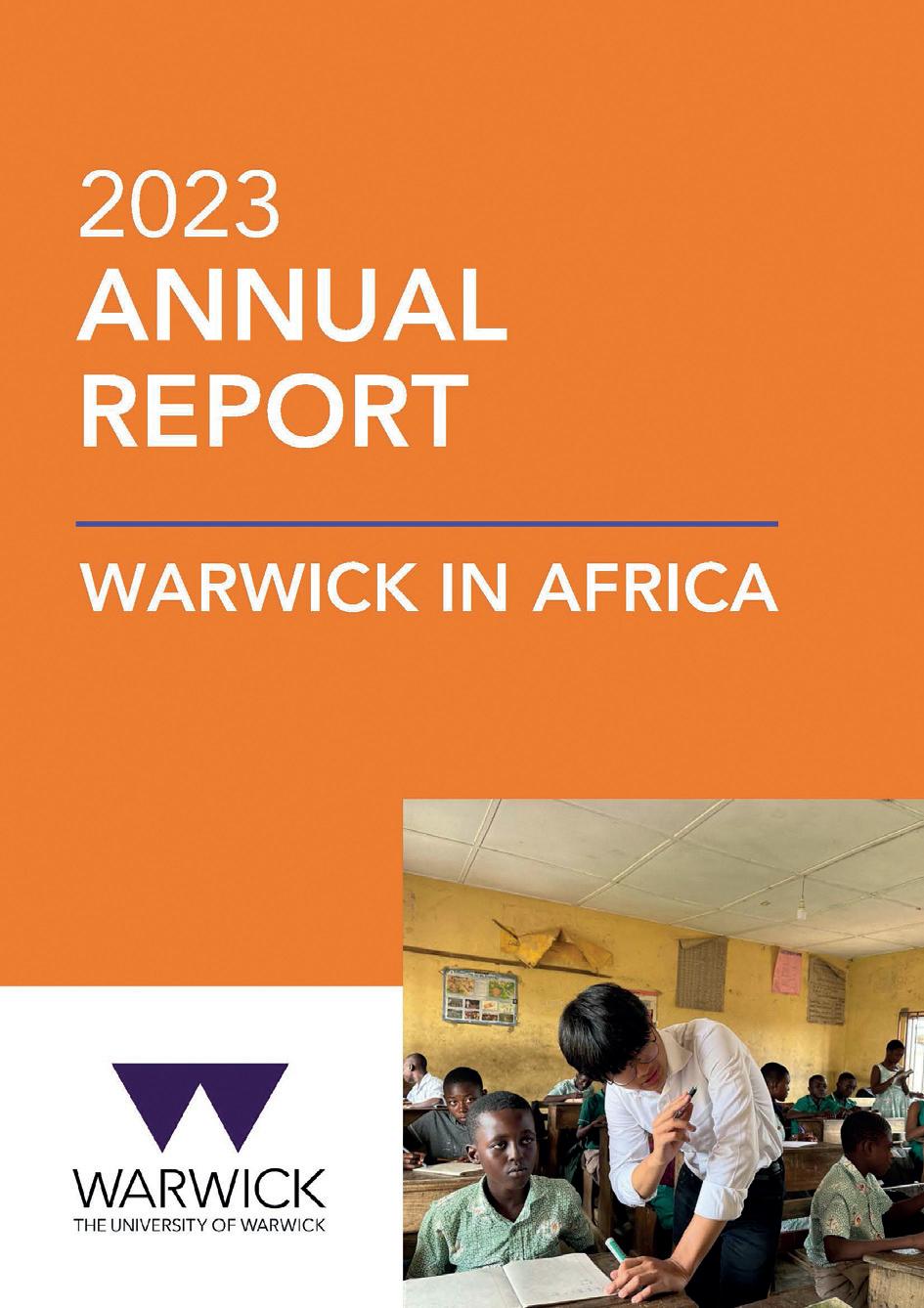
Sherborne’s Head of English, Harriet Cant reflects on her time spent volunteering with Warwick in Africa, a philanthropic program that partners with schools in Ghana, South Africa, and Tanzania to support the teaching of English and Mathematics.
When one is fortunate enough to work a school like Sherborne, it can be easy to forget that there are places in the world where young people do not have access to the same quality of education. According to the UNESCO Institute for Statistics, more than half of the world’s children that have not enrolled in school live in sub-Saharan Africa, and more than 85 per cent of children in this region do not reach minimum proficiency levels in reading and mathematics. This was something I saw first-hand when, in the summer of 2012, I travelled to Soweto in South Africa to teach English through the Warwick in Africa programme, a charitable initiative that endeavours to utilise the skills of current students and alumni of The University of Warwick to promote and support
My time at Phefeni Senior Secondary School was, for a young teacher fresh out of training, eye opening. In my first week I found myself asking questions about education that I’d never considered before, including “how do you teach Animal Farm to a class of forty when you have nine copies of the text?” Aside from working alongside the teachers to embed new strategies into the curriculum, the money I and my fellow volunteers raised before flying out was used to ensure that all pupils in the school had a functioning desk and chair, removing one of the hurdles that they faced daily.
Harriet Cant Head of English
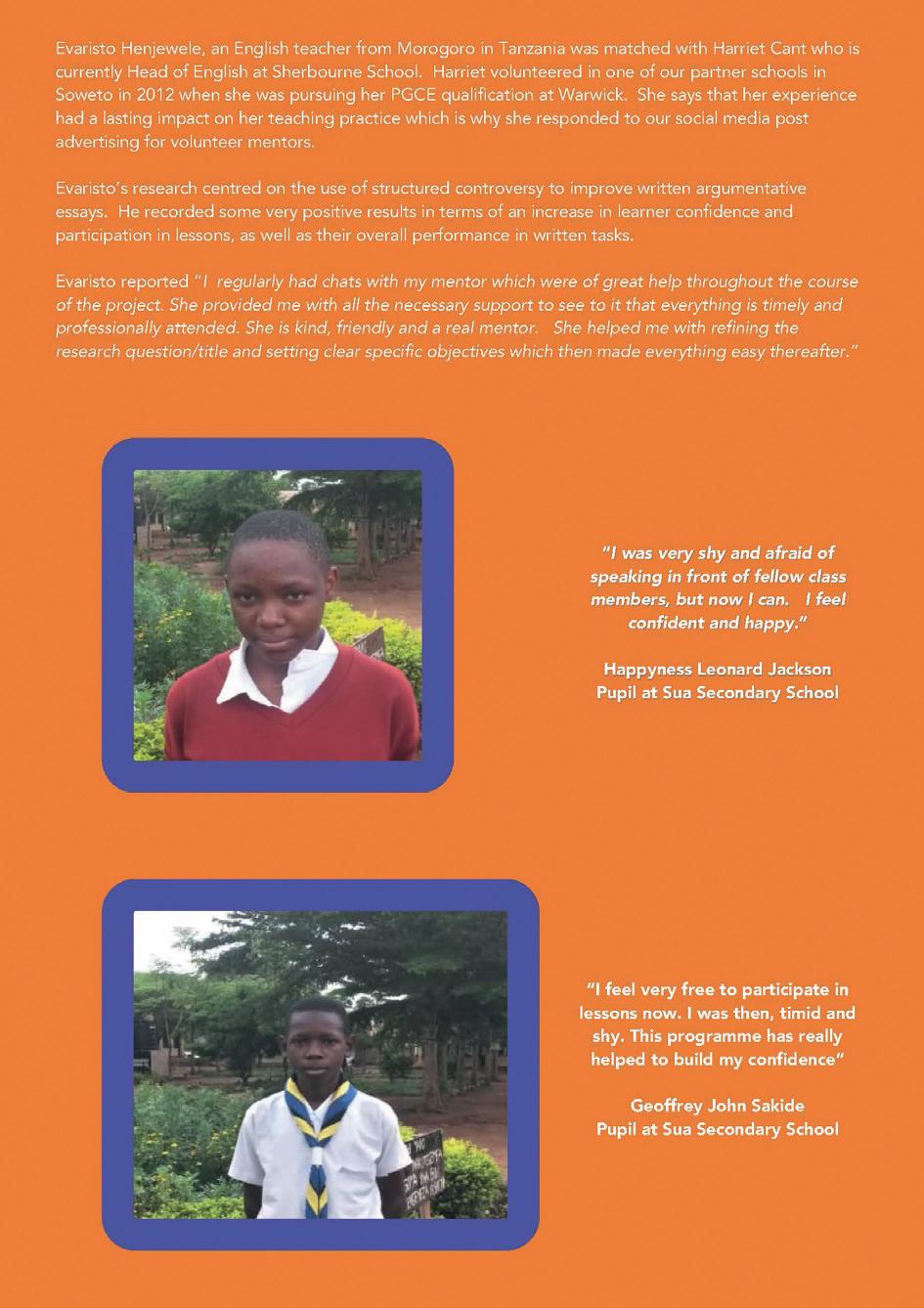
The summer I spent in Soweto was transformative for me. So, in the spring of 2023 when Warwick in Africa reached out looking for volunteers for their virtual mentoring scheme, I jumped at the chance. This part of the programme, introduced in 2022, offers teachers in partner schools the opportunity to undertake a piece of exploratory action research in the classroom whilst receiving regular support from their mentor. Research by the British Council suggests that this form of enquiry is effective at helping teachers to better understand their situation and take action for improvement.
I found myself partnered with Evaristo, an English teacher from Morogoro in Tanzania, who was looking to improve his pupils’
ability to deliver and write argumentative essays. Our regular WhatsApp calls quickly became a highlight of my day and although we have never met in person, Evaristo became a colleague and friend. We spent hours discussing teaching strategies, possible resources, and ways to measure progress effectively. His passion for teaching and his joy when his pupils found new confidence because of his project was palpable. Perhaps the best moment of the project came, however, when he announced that he was sharing his new teaching strategies with other teachers in his school. For me, this is the true value of Warwick in Africa: it provides a small spark that can grow into something greater for the benefit of young people.
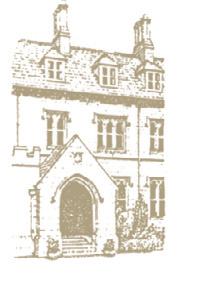

Nestling in the shadow of Sherborne Abbey, School House is a place that rings with history. The oldest of Sherborne’s Houses, it bears witness to the School’s illustrious heritage.
All of which makes it doubly surprising that time passes so quickly amid its honeyed walls. It just goes to show the truth of the old epithet: tempus fugit
Speaking of epithets, here’s another one School House embodies, in the form of its motto: “School House is what you are.” For Housemaster Robert Harris, that’s the perfect expression of the culture his pupils live, every day.
“There’s a great sense of community in School House, which is seen in all sorts of ways,” he says. “For example, when we welcomed six new boys to the Lower Sixth at the start of the year, they quickly integrated – as did the new Third Formers. Our boys are very good at making people feel completely at home.”
Much of this spirit of welcome comes without premeditation: it is simply what the boys do. But Robert believes it can be traced back to the School’s emphasis on kindness and compassion, and to the wealth of activities in which pupils participate during their 24-7 full-boarding lives.
“We’re always well-represented in activities like the Duke of Edinburgh’s Award and Ten Tors,” he says. “Boys enjoy events that involve working together for a common purpose. And older pupils always rise to the challenge of modelling good behaviour for their young contemporaries.”
On that theme, Robert says the outgoing Upper Sixth have been great exemplars for the whole House. “They’re a talented, dedicated bunch of boys. They absolutely bear out Sherborne’s emphasis on creating ‘good blokes’, who will do anything for anyone.”
With such firm foundations, it is no wonder School House residents throw themselves into every facet of Sherborne’s busy schedule. Among its number are music scholars, outstanding sportsmen, and academic high-fliers. More than that, the boys are inclusive, forwardthinking and inquisitive.
As a case in point, consider that thanks to School House the school now has Sherborne’s first multi-faith prayer room – an initiative led by pupils with Assistant Housemaster James Crawford. “This was set up so Muslim pupils could observe Ramadan,” says Robert. “The whole House enjoyed a Ramadan feast and learned a huge amount about the
traditions around this period. It was a great experience for us all, and the prayer room feels like a fantastic addition to the School.”
It shows, too, how Sherborne’s traditions have evolved over time, as the School embraces the future while honouring its past. “We rely on the boys to help in this process, and I’ve been really pleased with the leadership shown by our pupils this year,” Robert says. “We’re giving the Prefects more responsibility for setting House priorities. I look forward to that continuing with next year’s cohort.”
Ample support will come from the wider House staff team, of course, whom Robert is quick to commend. “With our resident and non-resident staff, we have a brilliant group of reliable and thoughtful people. I’m incredibly lucky to work with them.”
As one year ends and another begins, life in School House shows no signs of slowing down. But that’s just how Robert likes it: “Time flies, but so do our pupils. That’s the way it should be.”
@sherborneschhou
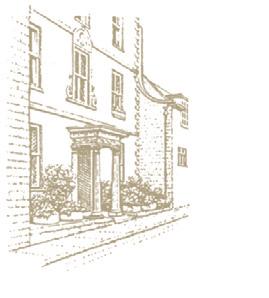
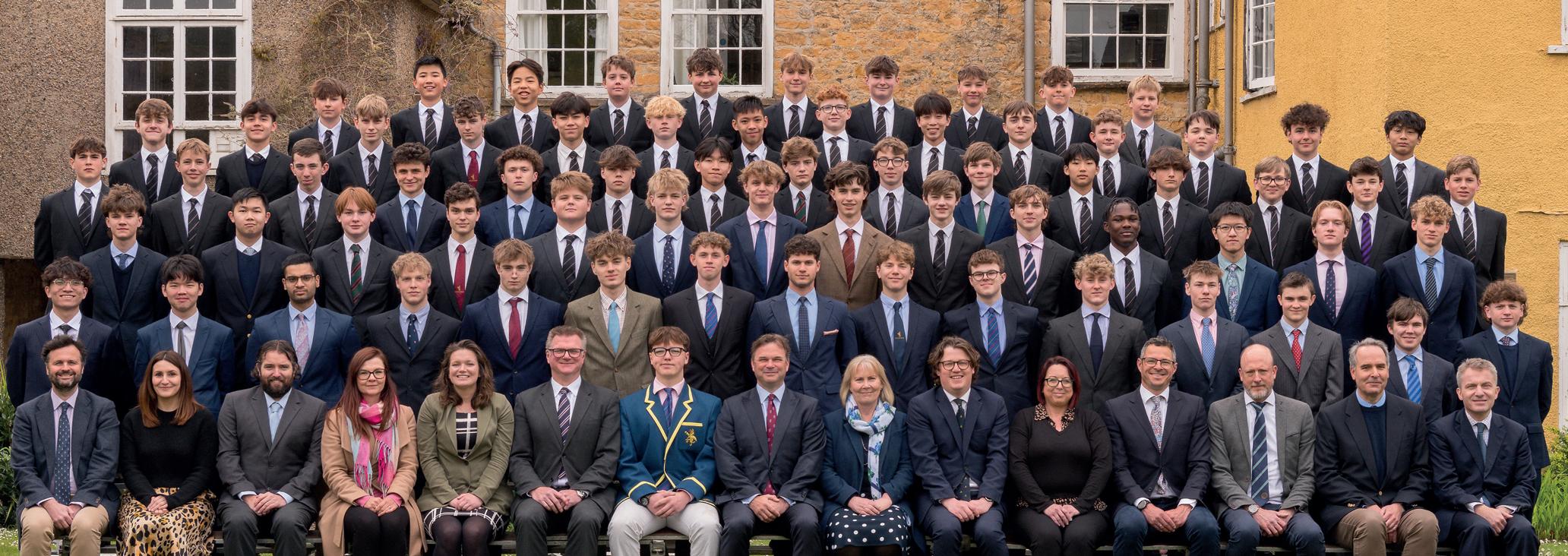
Framed by substantial stone pillars, the front door of Abbey House opens into a community characterised by warmth, aspiration and vibrancy. Its residents thrive in all areas of Sherborne life, showing a diversity of talent in sport, music, drama, and academic study.
Presiding over this warm and welcoming community is Hugh Tatham, a Housemaster of some years’ standing whose regular letters to parents are revered for the deep knowledge he has of the boys in his care.
Hugh celebrates their achievements in all spheres, offering words of encouragement that inspire the whole House community to get stuck into all Sherborne has on offer.
The outworking of his efforts is clear. A House that has produced four Heads of School since 2020 –including next year’s appointee. A House that scores notable success in public examinations, both at GCSE and A level. A House that contains individual high-achievers who nonetheless take pride in belonging to a warm community of mutuality and care.
“It is this diversity that gives Abbey House its character,” says Hugh. “The House team and I are pleased that everyone is celebrated,
regardless of their distinctive gifts. There is as much shared joy in an ATCL or LAMDA Diploma as a good showing on the rugby pitch, in a Maths Merit as a stirring performance in the School Play. Everyone is given their chance to shine, and everyone is held in the highest regard for all they achieve.”
To some highlights of the year, therefore. Fifteen new boys arrived in September and were instantly welcomed into the House community. An early weekend visit to the Dorset Waterpark certainly helped, establishing a pattern of trips that would continue throughout the year.
As the months rolled by, the boys of Abbey House had much to relish. They got stuck into the Rugby World Cup and were especially excited to learn that OS Will Parry had gone to France to train with the England team. Could he one day be the eighth former Abbey House resident to win an international cap?
Talking of rugby, Abbey House was pleased to see Fifth Former Alistair Darko (5b) make his debut in the First XV – a significant achievement for someone not yet in the Sixth Form. Other notable individual achievements included Hussain Ali (U6b) reaching the final of the John Locke Institute Global Essay
Competition, Sotaro Matsui (5b) and Orlando Tavener (U6b) playing in the final of the Halliday Piano Competition, and Forest Purvis (5b), William Pittman (4b) and Oscar Thornton (4b) strutting their stuff in the Joint Schools’ production of Legally Blonde
“Alongside the many individual achievements, the boys collectively delivered plenty of memorable moments,” says Hugh. “We were beaten finalists in Inter-House Chess, and enthusiastic participants in the Turing Bicycle Ride that commemorates Alan Turing’s twowheeled arrival in Sherborne during the General Strike of 1926. Then, of course, you have the annual rituals such as Remembrance Day, the Christmas party, Confirmation, and the Leavers’ Dinner, which serve to punctuate the year so effectively.”
Among the activity, the House community said farewell to longserving Assistant Matron Sandra Fox, who retired in October, and welcomed Joe Arkwright as second Resident Tutor.
A busy year in Abbey House, therefore, and only to be expected. After all, behind those pillars dwells a lively community, helping every member grow more fully towards their future.
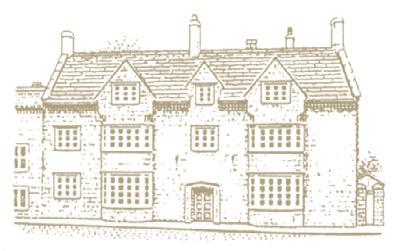
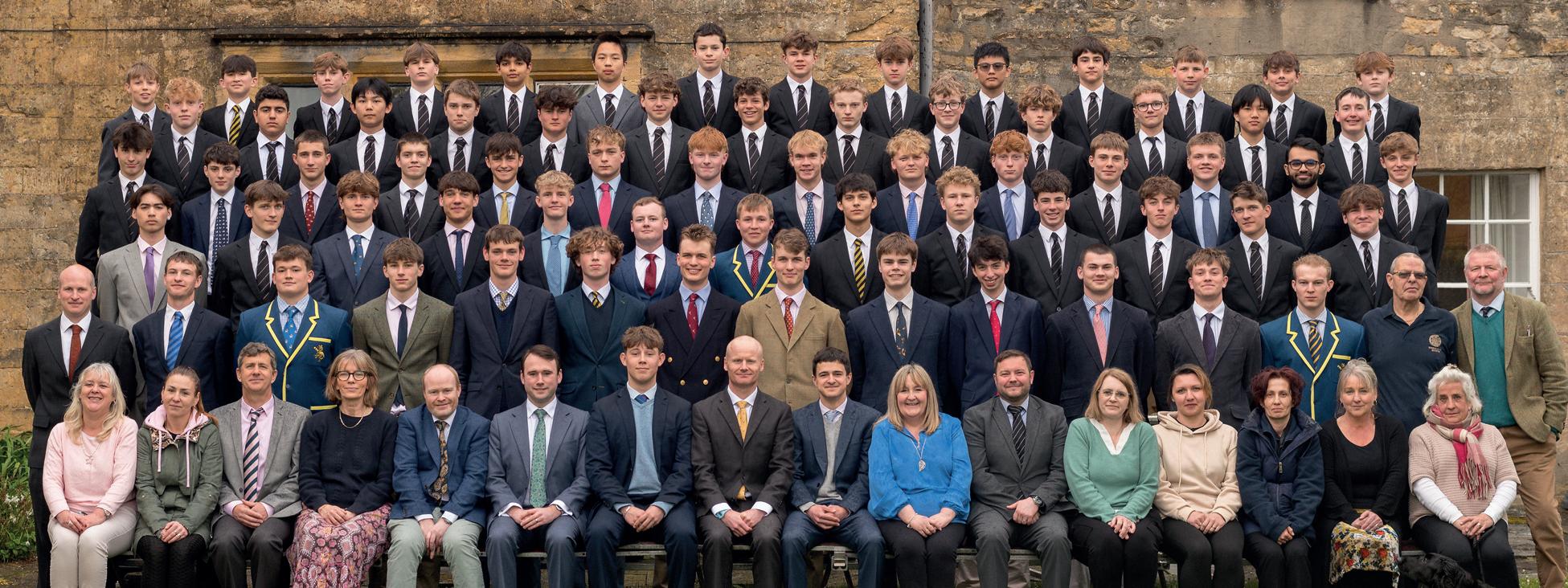
“It’s the best job I’ve ever had.”
That is Will Mackenzie-Green’s verdict on life as The Green’s Housemaster. Now ending his second year, his enthusiasm for the role is undimmed. If anything, he’s enjoying it more than ever. “A big emphasis for me is on helping the boys be kind, considerate people who look out for each other,” he says. “They’re a lovely group, and I can think of no higher goal than ensuring they leave Sherborne as ‘good blokes’ who people can rely on to do the right thing.”
Gratifyingly, Will sees such a spirit of kindness among the boys in the way they live their daily lives. “I’ve been really struck this year by the way boys mix across year groups,” he says. “During free time, all ages play happily together, enjoying each other’s company.”
That spirit comes as much from the older pupils as it does from Will and his team. “The Sixth Formers are a great example to their young peers,” Will says. “I recently interviewed the Lower Sixth for next year’s Prefect positions and I was impressed by their attitude. To a person, they strive to be compassionate and considerate.”
As part of this culture, Will has encouraged all The Green’s residents to take ownership of their House activities. For example, he handed over the task of organising House sports to the boys themselves. The result has been increased participation, enhanced enthusiasm, and a string of impressive victories.
“The junior boys won pretty much every major Inter-House competition,” Will says, with only minor hyperbole. “But the most important thing is they all had a good time competing, because they were doing it for each other.”
This speaks of the focus on leadership that is key to Will’s philosophy. “We instil a sense that everyone is a leader, regardless of age or role,” he reports.
“Leadership is about being ready to step up and help others, to set a course and pursue it.”
Of course, it helps if those at the top of the House are prepared to lead by example, which is why Will and his team thoroughly embraced Movember. “The House made a big event of this, with a moustache-themed fun run to raise extra money,” he says. “It’s part of our wider charity work, which this year has seen us fully
adopt our House Charity, Friends of the Yeatman Hospital.”
At the heart of this partnership is a commitment to give time as well as money. So, as well as using the House Garden Party as a fundraiser, the boys created a video for the charity’s website, cleared leaves from the hospital grounds, and swept the car park. It’s a partnership Will looks forward to seeing grow further in the coming year.
Other priorities include giving the boys even more responsibility for House life, and embedding the new “family” system of mutual support across year groups. As ever, Will knows his brilliant staff team will be invaluable, and pays particular tribute to Nicky Tayler, who has been Matron for 12 years. “Nicky is the heart and soul of The Green,” he says. “Along with the rest of the team, she keeps me in line. They all make a brilliant job even more enjoyable.”
@sherbornethegreen
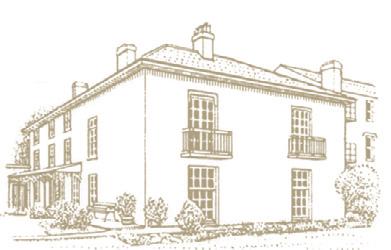
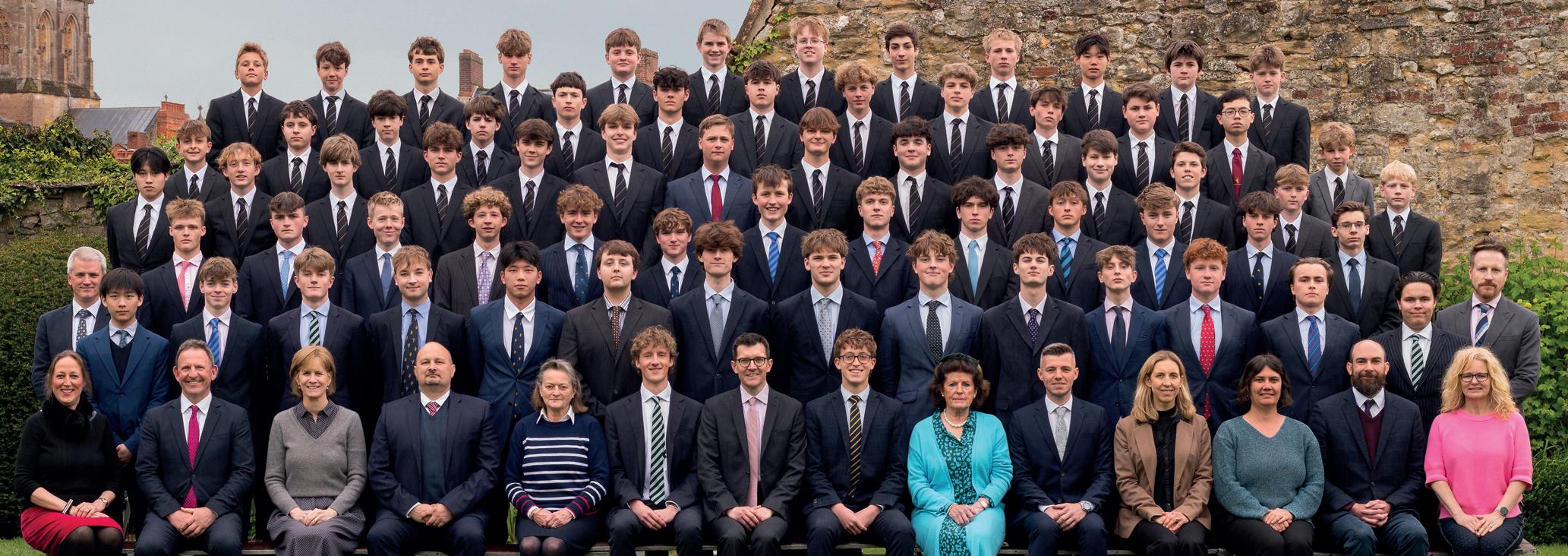
“Every boy must take a cold bath before dressing in the morning, and following games.”
Rest assured, this isn’t a new rule introduced by Harper’s Housemaster, Nick Scorer, as part of a draconian approach to discipline. It is instead an extract from a 1940s and 1950s book of House Rules he dug out in advance of Harper’s 150th anniversary and shared with guests at a celebratory dinner.
In place of cold baths, “Harpoons” now enjoy House barbecues, the fruits of a House pizza oven, and regular opportunities to socialise with pupils from Sherborne Girls. It is certainly a different world – but, as Nick points out, some things remain constant. “Our 150th anniversary supper brought OS from across the generations to Sherborne, including some who were here in the 1950s. It is clear they have the same values as our current pupils. They prize courtesy and kindness, and have a profound spirit of public service.”
These values have been given expression time and again in Harper House over the last year. The highest accolade for pupils is the “Bon Oeuf Boater”, awarded each half term to a pupil who makes a special contribution to the pastoral care of
others. It rewards the small acts of kindness that make Harper such a nurturing place to live.
“I have been greatly encouraged by the amount of positive feedback I’ve received about our boys,” adds Nick. “Those who conduct tour mornings for prospective pupils and parents clearly make a great impression, and I’m often contacted by people who live in the town to commend our boys on their conduct.”
Nick is quick to pay tribute to his House staff team, including Matron Ursula Grundy-Wheeler and Housekeeper Priscilla Horsey. “As I mentioned at the 150th supper, they’ve given nearly half a century’s service between them,” Nick remarks. “They are lynchpins of the House!”
With such encouragement, it is small wonder that Harper House is so well represented in School life –including as the recipient of the Effort Merit Plate during Lent Term. “We usually have at least half our number involved in School sports fixtures,” Nick says, “and sometimes it’s more like two thirds. In addition, they get stuck into activities like the Joint Schools’ Musical, School Choir, Duke of Edinburgh’s Award, CCF, and Ten Tors.”
There are also moments of contemplation, including the Remembrance Day ceremonies for the whole School and House. Nick says these are moments for the community to “turn aside” – a vital part of growing into the altruistic and empathic people Harper has long valued.
That spirit is expressed in other ways, too. One of Nick’s highlights was victory in all categories of the House Cross Country competition –something that’s only achieved by every entrant giving their all. He’s also been pleased to see the relationship with Sherborne Primary School develop. “The school is our House charity and we raised money for it with our Garden Party,” he says. “More importantly, we have 12 or so boys going up each week to run activities for Years 3 and 4 during their lunchbreak. It is lovely to see the boys serving others.”
It is all a long way from cold baths, though Nick did say he rather liked a later stipulation in the Rulebook: “Boys must change into their House slippers before Hall.” Either way, 150 years on from its founding, Harper remains a place of service, compassion and, above all, flourishing young people.
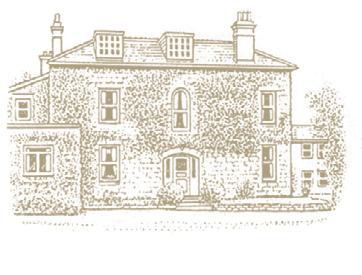
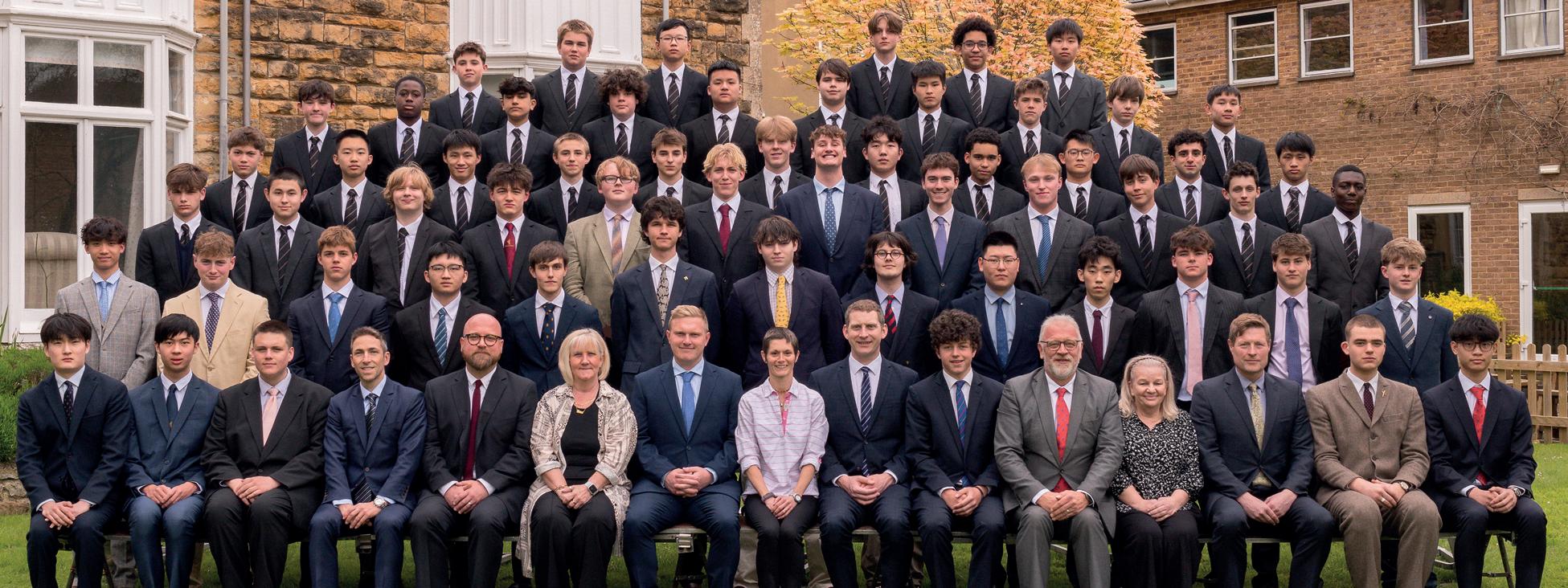
“Much as there are many highlights of life in Wallace House, including individual and collective achievements, our real strength is seen in our everyday routines. It is the way these boys live alongside each other that I find really inspiring.”
That is the view of James Hull, now at the end of his second year as Housemaster of Wallace House. While he is quick to celebrate the many outstanding achievements of boys in his care, he points to the little features of House life as the beating heart of Wallace’s culture.
“Take the first few days of the academic year as a case in point,” he says. “We welcomed the Third Formers with a barbecue in our beautiful gardens. But it was the warmth of the older boys that really made them feel at home. I took great delight in looking out over the barge yard and gardens and seeing all year groups playing brilliantly together.”
Such inter-year mingling has long been a feature of Wallace House. It is perhaps partly a result of its location – as much a part of the town as it is of the School. In consequence, boys commute together, and their House feels
very much like home at the end of a busy day.
That’s no accident, of course. James and his team work hard to make Wallace a place of welcome. Take the way Min, the Matron, helps the boys decorate the lounge for occasions like Christmas and New Year. She gets the boys involved, so they can share the excitement of these celebrations. More importantly, our team makes the House look and feel beautiful, creating an atmosphere that shapes interactions among its residents. “We certainly hope Wallace House has a home-from-home feel to it,” says James. “We’re very lucky to have such lovely grounds, of course. That makes a big difference when the evenings are light enough for boys to get outside and play. Come spring, there’s always a game of football or cricket taking place somewhere!”
Thanks to its lively atmosphere, Wallace House is much loved by others in the Sherborne community. Pupils from other boarding houses and from Sherborne Girls are regular visitors for joint socials, including formal dinners, themed evenings (the neon party was a favourite this
year), and informal hangouts by the House firepit. The boys enjoy spending time in their own company, too, with Halloween and Christmas proving particular highlights. The post-Christmassupper karaoke will live long in the mind!
So, too, will the achievements of several members of the Wallace House community. For example, Freddie Hope-Hawkins (L6e) was part of the Sherborne CCF team that came second in the Pringle Trophy, while Dylan Carr (4e) put in a brilliant performance with his team in the Ten Tors.
“These are just two examples of Wallace House boys getting stuck into all that Sherborne has to offer,” says James. “Others include our brilliant House play, the Sixth Formers taking on Extended Project Qualifications, and no end of sporting, music and academic accomplishments.”
For James, these are all expressions of the Wallace House way of being. “We get involved, and give our best to everything,” he concludes. “It’s a great place to grow up.”
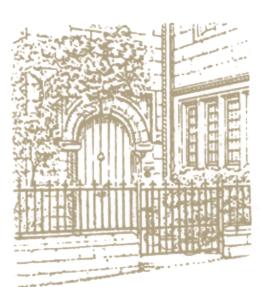
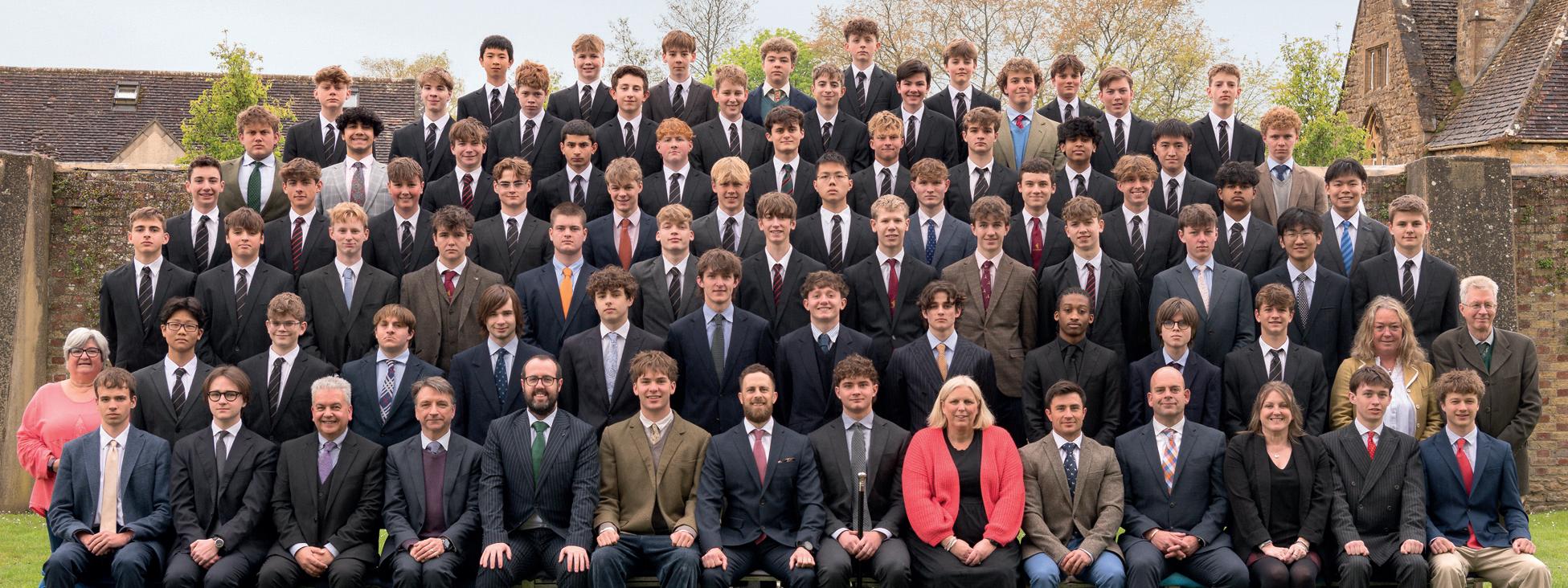
Sometimes, it’s the little things that make a big difference to life in a Boarding House.
That’s the view of Rhidian McGuire, who has been Housemaster of Abbeylands for five years. This year, he’s been encouraging boys to pay attention to the small aspects of House life that build community, create memories, and give everyone the best opportunity to thrive.
The regular parade of birthday celebrations, complete with lusty all-House renditions of Happy Birthday to You. Or the Instagram feed chock full of fancy dress activities, trips out, and House socials.
These all speak of a House fully living up to its reputation as a place in which everyone feels welcome. A place where boys know they can be fully themselves in each other’s company, secure in the knowledge their individual skills and talents will be celebrated by all.
“That’s the essence of the culture we inhabit in Abbeylands,” says Rhidian. “I’m always pleased to see it in action, and this year has been no exception. For example, older boys have taken responsibility for supporting younger boys, helping
them navigate their way through School life and find their niche.” The result is a tangible House spirit that has created no end of special memories for Abbeylands dwellers in the past year.
“Christmas was a definite highlight for many of us,” says Rhidian. “We had a lovely carol-singing session by the firepit that will live long in the mind. It was atmospheric and built anticipation for Christmas. But its main feature was the strong camaraderie between the boys.”
Such camaraderie was in evidence in November when Abbeylands put on a critically acclaimed performance of Alan Ayckborn’s Between Mouthfuls and Gosforth’s Fete. “It was lovely to see some boys who hadn’t ever performed in a House Play before get stuck in with this production,” says Rhidian. “It showed us all that you can still try new things, even as you reach the more senior years of Sherborne. Everyone is on a journey of growth, throughout their time at School.”
The growth is seen in other ways, too. Rhidian is proud of the fact that, during Michaelmas, Abbeylands received more CoCurricular Merits than any other House has in a single term. “This speaks of the boys’ attitude to
School life,” he reports. “They throw themselves into every opportunity and give their all. It’s wonderful to see.”
Examples of the activities in which Abbeylands’ residents have thrived include CCF, Duke of Edinburgh, the Ten Tors and a full suite of cocurricular pursuits like music, drama and sport.
Attention now turns to October 2024, when the Abbeylands boys undertake the West Dorset Three Peaks Challenge in aid of Young Minds, a mental health charity for children and young people.
Which, of course, brings us back to where we started, with the philosophy that underpins life in Abbeylands. Small things make a difference. Or, as Rhidian concludes: “There’s not one thing I can pinpoint as the standout moment this year. It’s the combination of moments, building to a sense of a House community that’s working for everyone’s benefit. Long may it continue.”
@sherbornealands
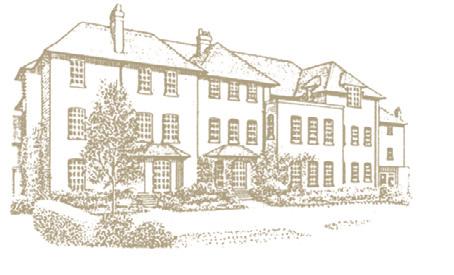
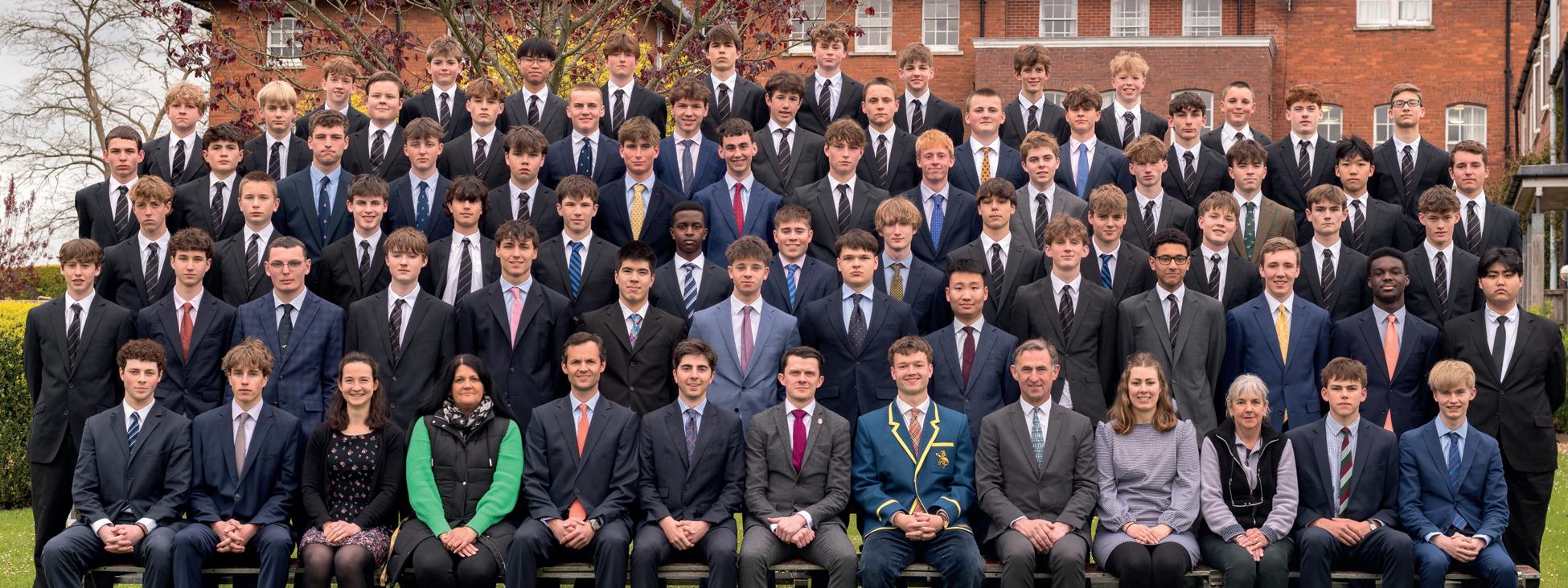
Spend time with the Lyon House Instagram feed and you’ll get a very clear sense of the House’s identity. There are photos of delicious hot snacks, plentiful trips out, lots of socialising, and a significant amount of physical activity.
Boys in Lyon certainly enjoy a full schedule, as Housemaster David Murray explains: “It’s been my first year in post and I’ve been struck by how busy Lyon House is. The boys are on the go pretty much all the time.”
The same sentiments would undoubtedly ring true from any of Sherborne’s Housemasters. And, as a former Resident Tutor in The Digby, David is no stranger to the full-throttle existence of life in a Boarding House, where friendships are easily formed.
“One of things I’ve noticed is how well Lyon House boys mix across year groups,” he says. “For example, the new Third Formers were integrated into the House community really quickly. That builds fantastic bonds, helping everyone be at their best.”
In consequence, Lyon House tends to perform well in team events. “We’ve secured several of the major inter-house sport trophies this year, including rugby,
football, and sailing,” he says. “We also put in a fantastic showing in the cross country, which relies on the efforts of every single entrant to pull their team up the standings.”
A further example of the excellent culture in Lyon was Inter-house hockey, where teammates come together from across the year groups. As David says, “It’s quite something to see the youngest boys playing on level terms with their older peers. That tells you something about the way they’re used to interacting.”
As much as Lyon life is characterised by its community ethos, there is ample opportunity for individuals to shine, too. Take Amory Hugh-Jones (L6g) as a case in point. He raised money for the victims of the war in Ukraine, then travelled to the nation to deliver supplies. It was an example of service to others of which the whole House felt justifiably proud.
Other individual successes include music scholar Freddie Senior’s (L6g) impressive organ playing, including in whole-school Abbey services, Henry Cole’s (L6g) performance in the Joint Schools’ production of Legally Blonde, and Joey Lye’s (U6g) confident and competent captaincy of the School’s First XI in football. It
would be remiss not to mention Ian Ho (3g), who achieved more academic merits than any other pupil during Lent Term, and Otis Sutherland (U6g), who received a Silver Award in the Physics Olympiad.
“These examples show the breadth of talent in Lyon House,” says David, “as well as the way in which the whole House community celebrates everyone’s achievements and strengths. There’s a tangible spirit of camaraderie here, which makes for a special atmosphere indeed.”
That atmosphere is seen most clearly in the social events that form a part of 24-7 full-boarding life for these pupils. The House barbecue is put into regular service during the warmer months, as is the House sports pitch. There are regular suppers and socials with pupils from Sherborne Girls and, of course, set-piece events like the Christmas party or Leavers’ Dinner are always a highlight.
“There’s too much to list without filling endless pages,” concludes David. Which is why that Instagram feed is so helpful. Check it out, and you’ll get a great insight into Lyon life.
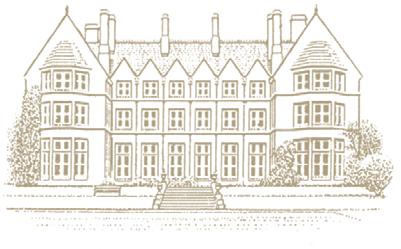
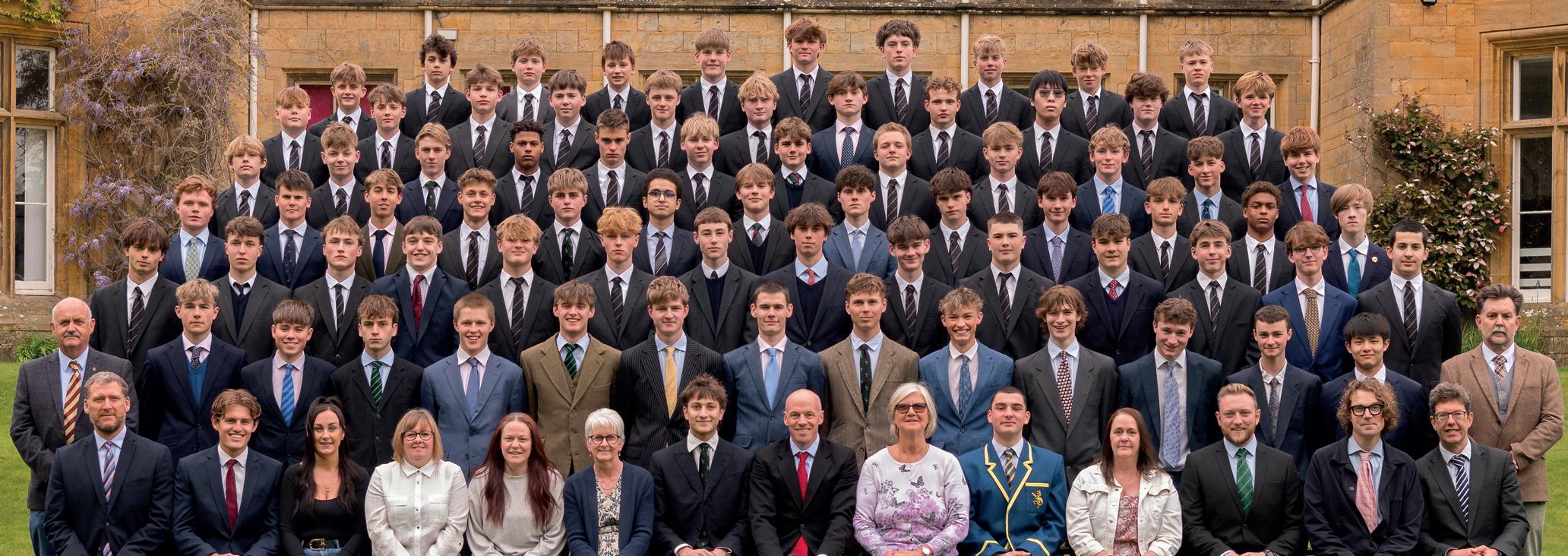
Big news in The Digby: it was Housemaster Rob Le Poidevin’s last year in post as he moves to a new role in the School. For the House community, his presence will be greatly missed – as will his wryly amusing end-of-term letters to parents.
“I’m not sure how I held it together at Commemoration,” says Rob. “Being a Housemaster is a privilege, but also a rollercoaster of emotions. I couldn’t have done it without the support of my family, the boys, their parents, and our brilliant House team.”
On Rob’s watch, The Digby has been a place of humour, discipline, focus and fun. As ever, the highlights of 2023-24 have as much to do with daily routines as they do with standout achievements or big-ticket events.
For example, as The Digby’s Instagram feed evinces, one of the most popular features of the House is its almost constant musical soundtrack. Pupils regularly play their guitars or the House pianos, with some amazing talent on display. That talent was shared with the wider public during the Sherborne Unplugged concert, where Third Former Hector Sheldrick’s (3m) cover of Your Song won rave reviews. “It’s amazing that a younger pupil was
prepared to perform in front of a mainly Sixth-Form audience,” Rob reflects. “Hector was brilliant, rightly receiving plaudits for his rendition.”
Performance is an important feature of life in The Digby. The annual Christmas celebrations include pantomimes from the Lower School. Rob’s favourite this year involved a bald Scotsman leading a staff field trip. “I don’t know where they get their inspiration from,” he laughs. “The boys are amazingly attentive to our verbal tics and idiosyncrasies. No one escapes their notice!”
This exemplifies the camaraderie in The Digby community, as does the brilliant House Play (DNA, by Dennis Kelly) that Head of English Miss Cant directed with support from Archie Eadie (U6m) and Cassius Hammick (U6m). “So many of our pupils gave fantastic performances,” says Rob. “There are too many to name, but let’s just say they leapt at the chance to play roles that involved copious swearing and unruly behaviour!”
Joking aside, Rob declares the production as one of the best he’s seen, and he was pleased to see it so well supported by The Digby community. “This reflects the enthusiasm our boys show for each other’s talent,” he says. “They really do celebrate everyone’s accomplishments.”
The House also enjoyed a good run in inter-house debating and chess, and in the literacy quiz. It had a good showing in School sports teams and in inter-house tournaments, and, as ever, several boys get stuck into CCF, the Ten Tors and D of E.
Charity work also features high in The Digby’s priorities. The boys raised money for Oddballs this year, putting in an order for Digbythemed hats, and began a partnership with School in a Bag as the new House Charity. It received funds from the annual Digby Garden Party, and pupils will begin volunteering in the new academic year.
All of which means The Digby is in a brilliant place as Chris Foyle takes over as Housemaster. “Chris is a great guy, and he’ll be supported by a brilliant team,” concludes Rob. “The Digby is a special community and my family and I have loved our time here. Don’t tell the boys, but we’ll miss them dreadfully.”
@sherbornedigby
DIRECTOR OF SPORT
With the grand opening of the new Sherborne Sports Centre by the Lord-Lieutenant of Dorset in June, this academic year was a significant moment in Sherborne’s sporting life. Boys and staff alike were excited by the new facilities, designed to foster an appreciation of sport among the whole community.
The School’s philosophy is straightforward: give every boy an opportunity to find a sport they love, then help them pursue it to their chosen level. That way, you instil good habits that last a lifetime – helping boys maintain their mental and physical health well into the future.
This diversity of sporting interest is reflected in Sherborne’s results, which span a broad range of disciplines. Moreover, they show our ability to balance sporting excellence with participation, ensuring those with potential to become elite athletes are given the support they need to shine, while the whole community is inspired to get stuck in with their favoured pursuits.
That is the essence of Sherborne sport. And, with stateof-the-art facilities and a School-wide culture of valuing physical activity in all its forms, we have never been in better shape.
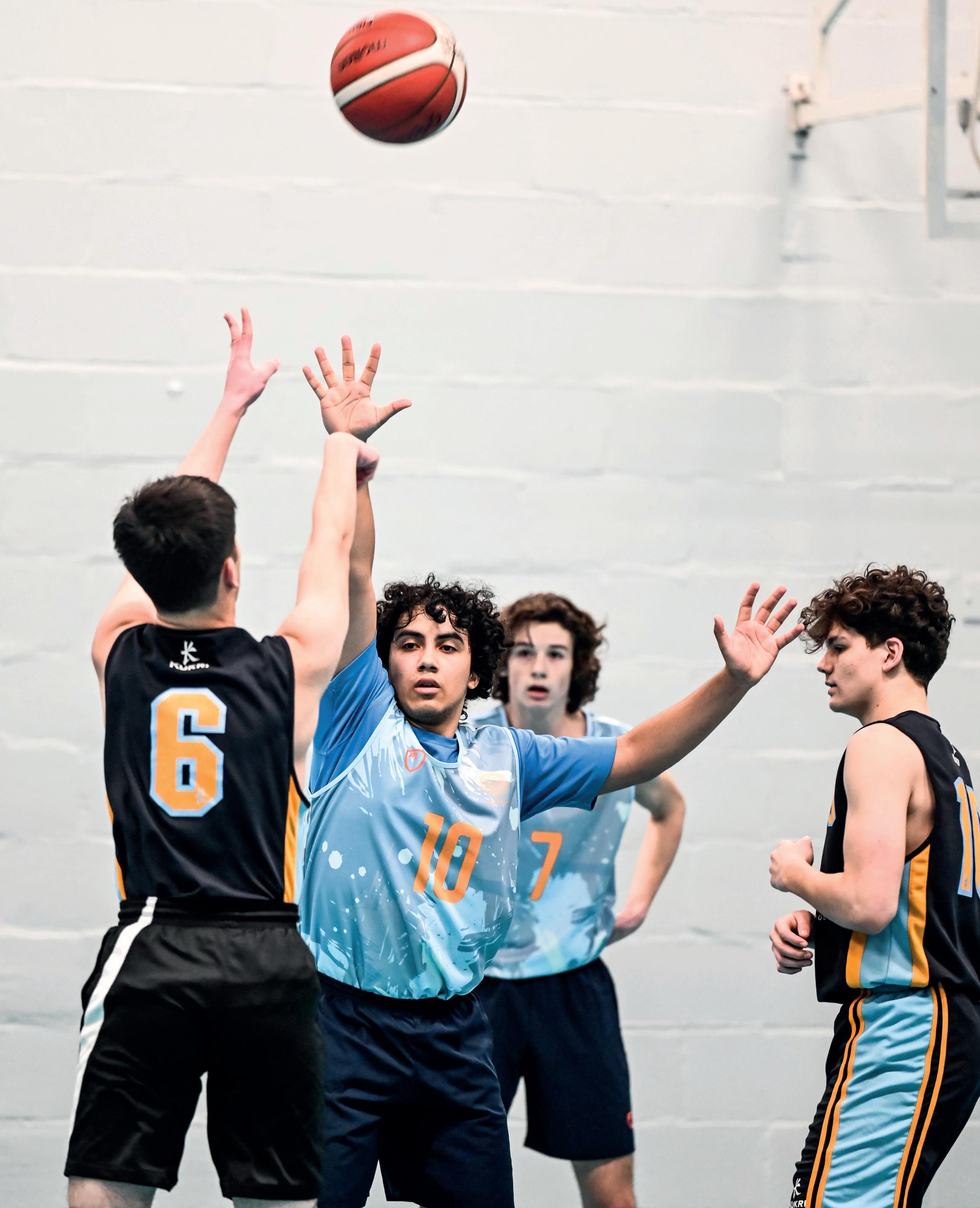
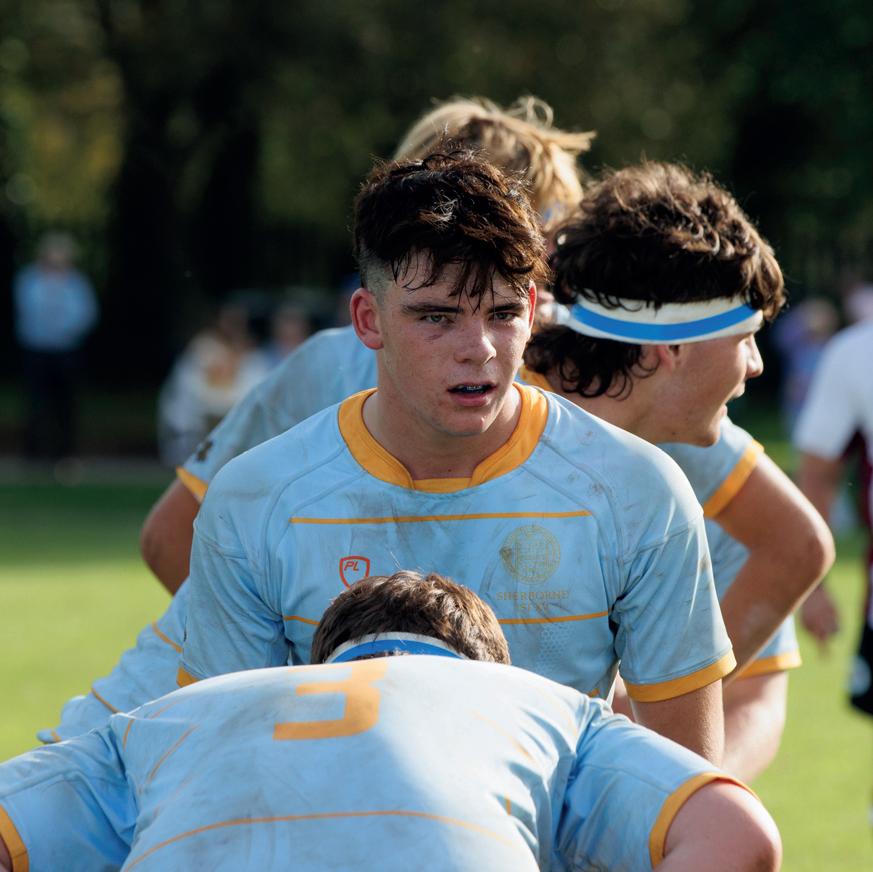
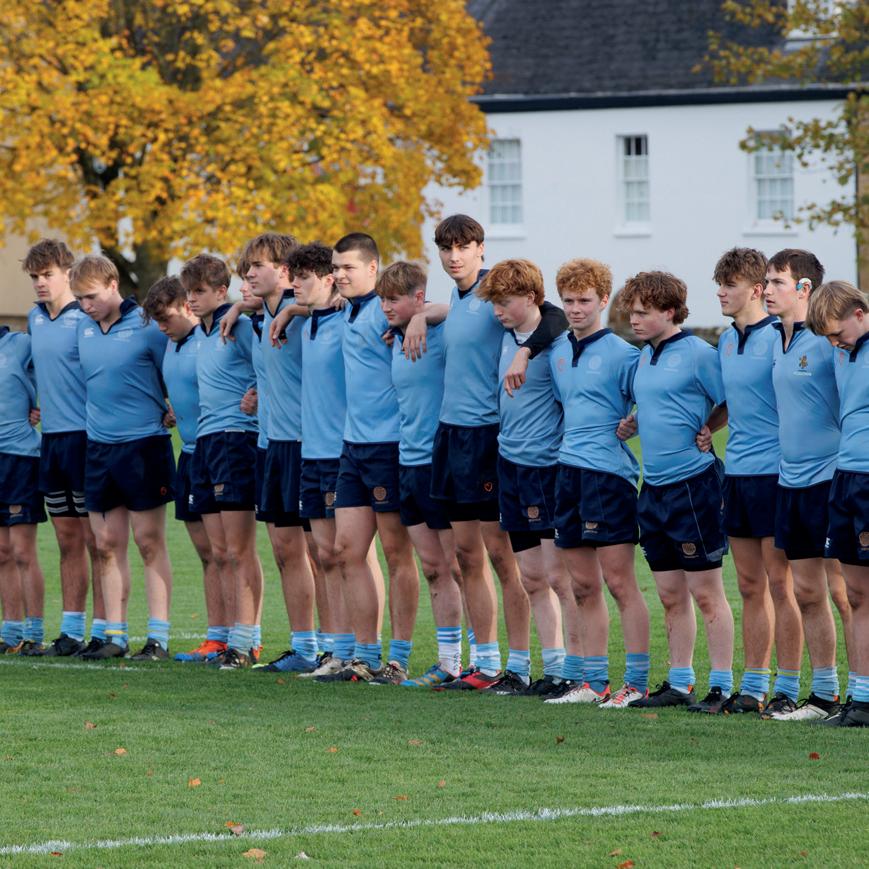
Always a staple of Sherborne’s sporting activities, rugby has been bigger than ever this year. More than 350 players have been involved from across the School, recording some impressive results against stiff opposition along the way.
For the seniors, an excellent preseason training camp was a great chance to build fitness and practise technique. It lasted three days and was held at Loughborough University –
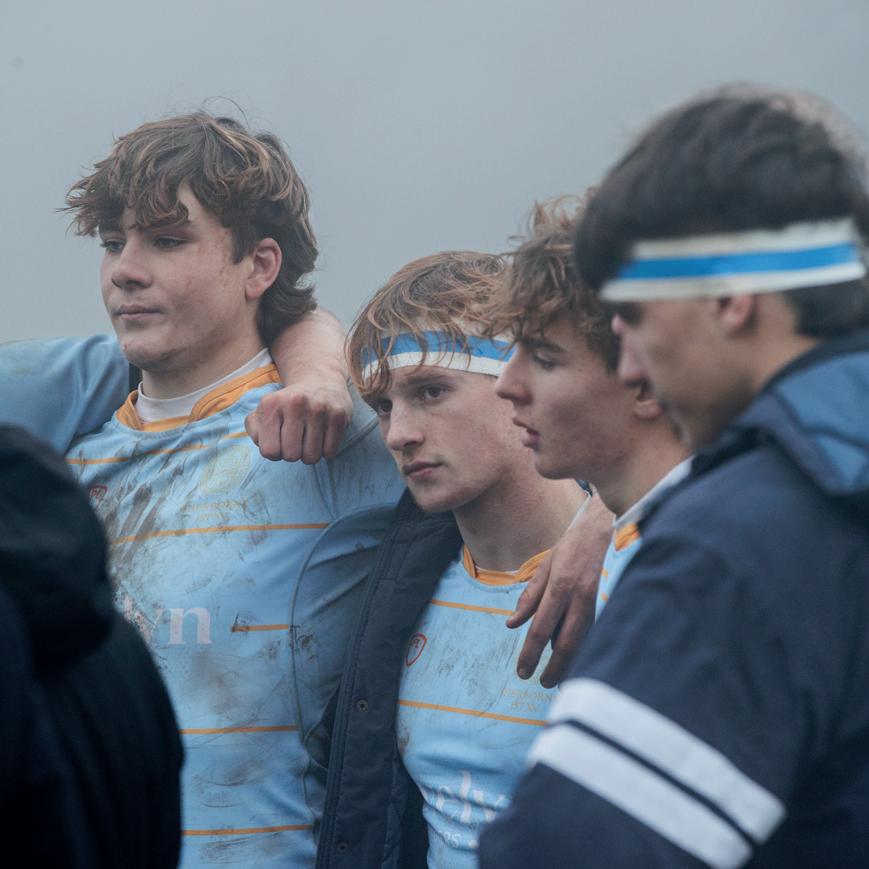
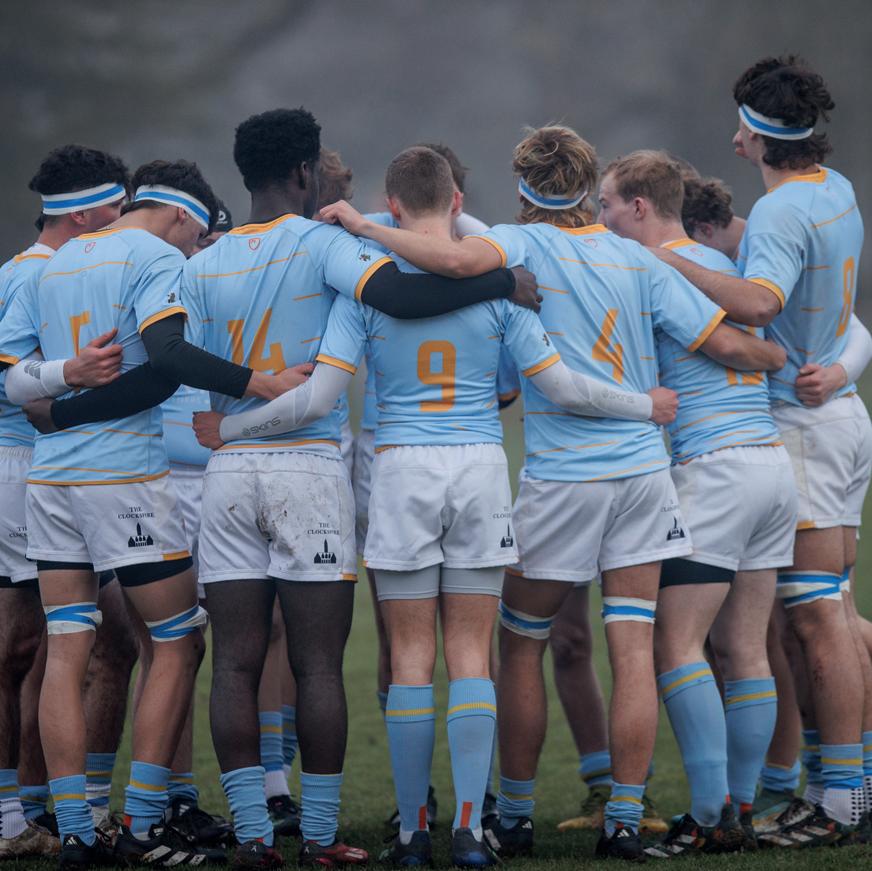
inspiring surroundings for anyone with an interest in sport and performance.
Further inspiration, if it were needed, came from news that OS Arthur Green (g 22) had been called up to train with England’s squad ahead of the Rugby World Cup. Arthur would make his full senior debut for Bath later in the season, playing against Leicester Tigers. Despite their brilliant prep, the First XV lost their opening match in a block fixture
with Radley. This was replicated across many of our teams, with the Colts First XV putting in the strongest performance but falling to a narrow defeat.
Things picked up at Dauntsey’s, with the Mini Colts As notching up a victory, and the Colts As winning a thriller 54-40. Even though subsequent victories in the season were more emphatic (take the 65-17 demolition of
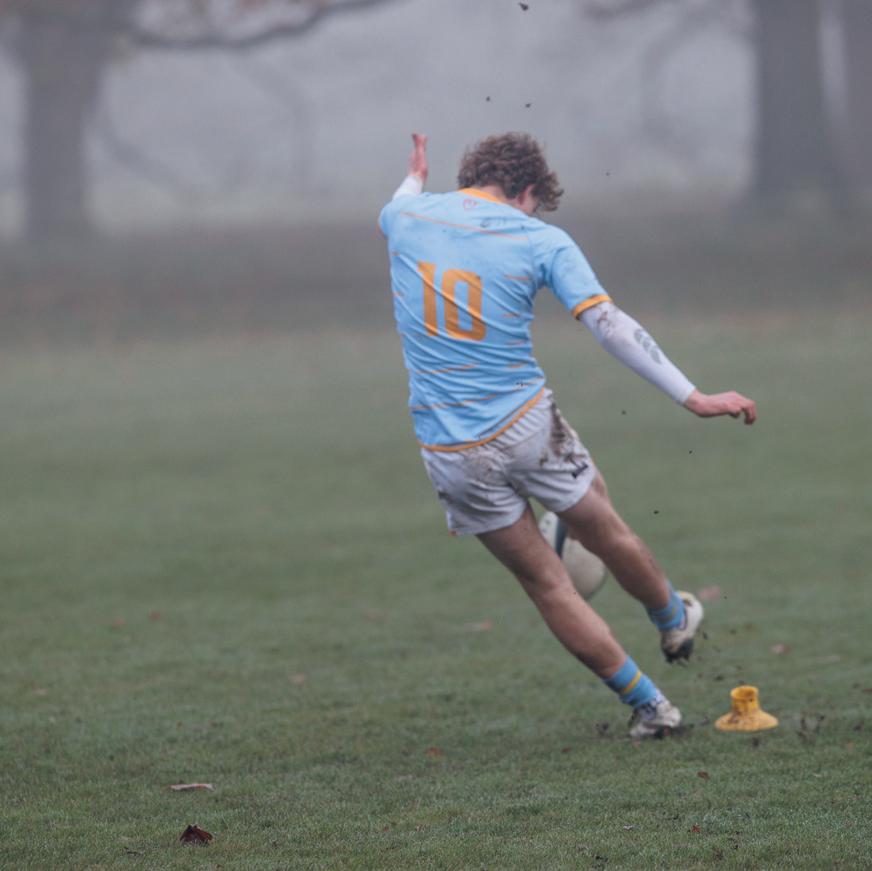
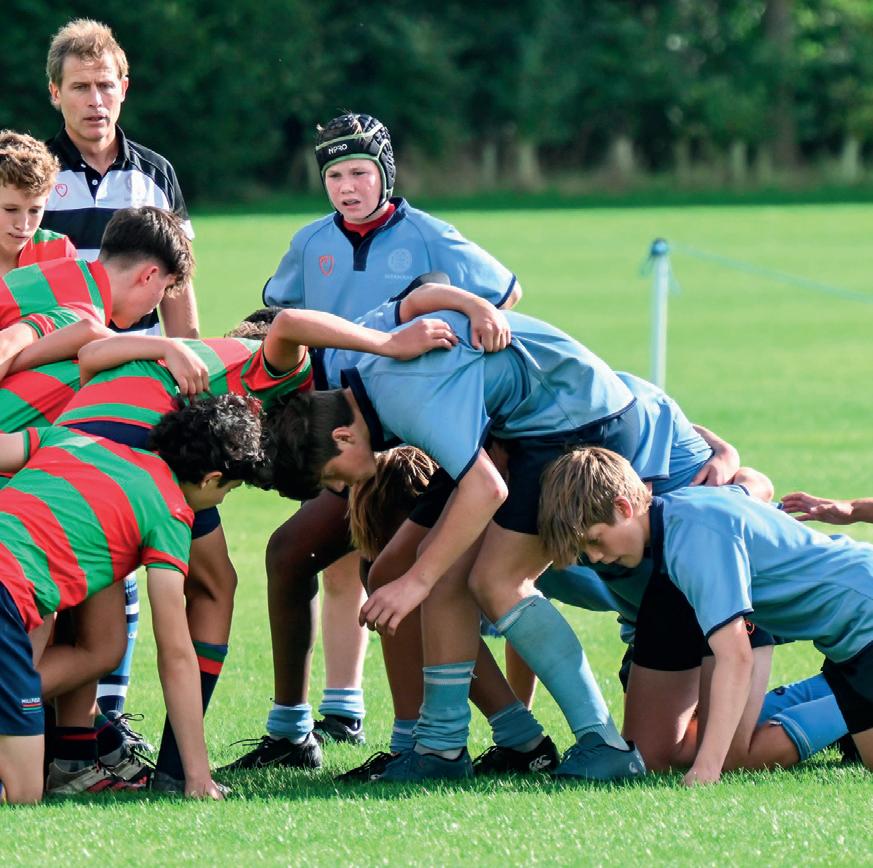
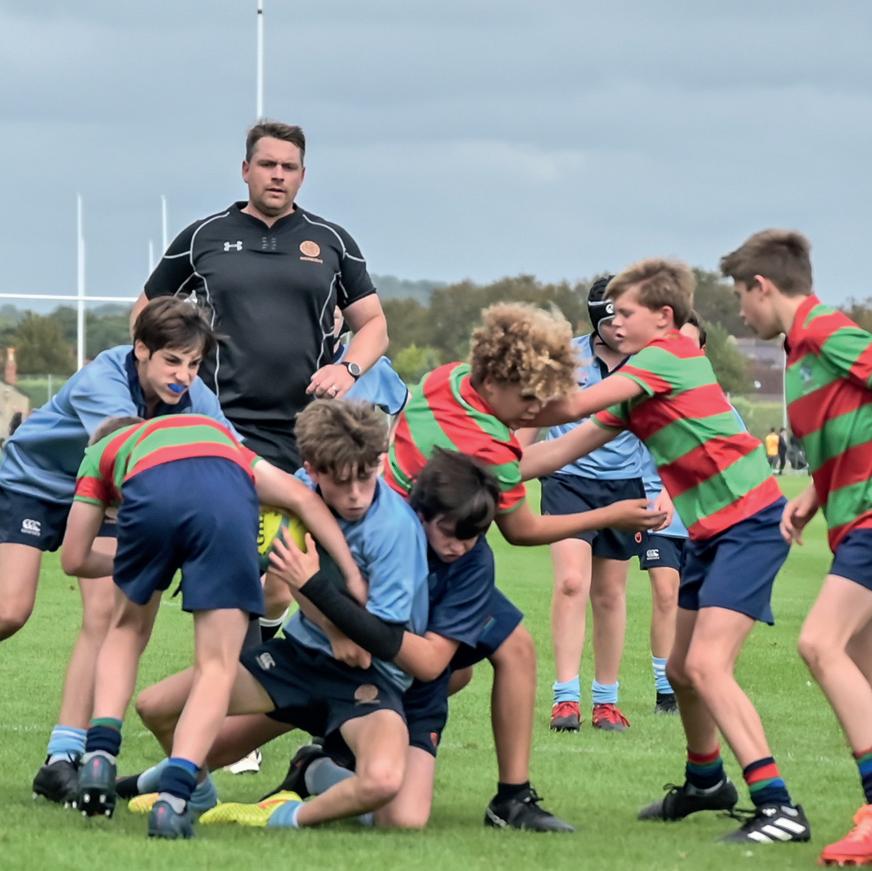
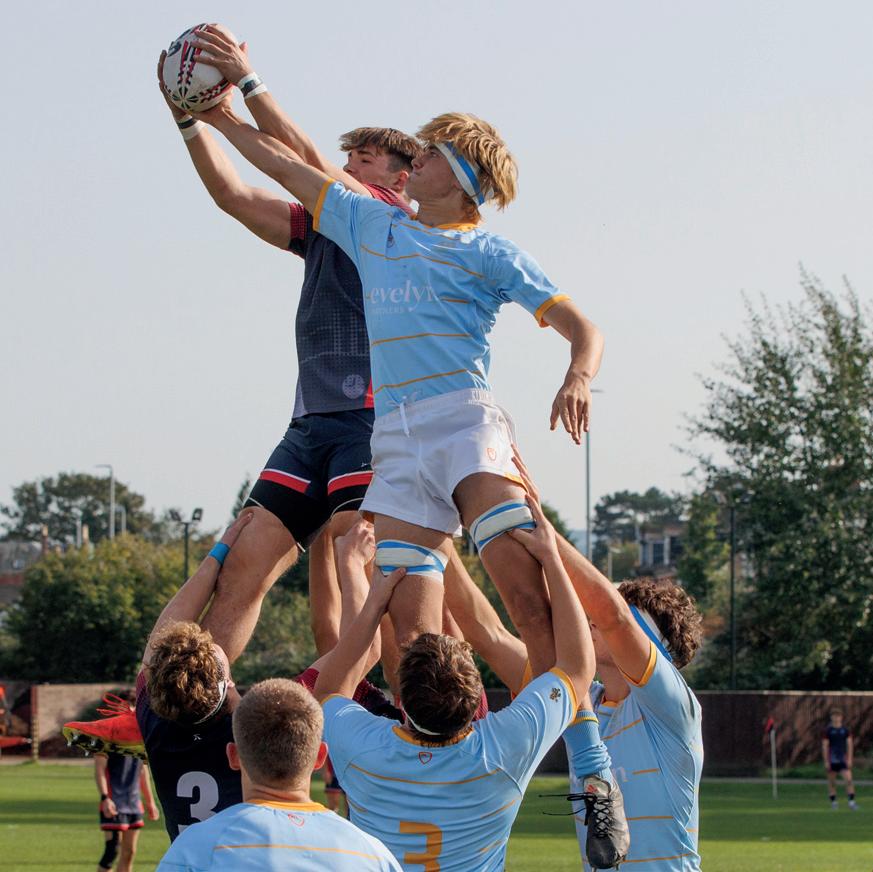
Taunton School as a case in point), this win was held up by many in the team as the highlight of their rugby-playing year.
The First XV weren’t quite as successful as their younger counterparts against Taunton, losing their opening National Cup match 33-35. They had similar misfortune in the Daily Mail Trophy, where they lost to Millfield and Taunton, scored wins against Marlborough College and Bryanston, then fell to defeat at
the hands of Cheltenham College and Canford. They also just missed out in the National Plate Area semi-final, where they were pipped 17-19 by King’s College Taunton.
The Junior Colts As suffered a similarly agonising fate against Canford in the National Cup, losing 25-24 in a closely contested final. The team enjoyed plenty of other high points in the season, though, including a 50-12 win over Clayesmore School, and
an exhilarating 19-17 victory over Taunton School.
In all, then, it was a mixed year for our rugby players, but the boys showed characteristic spirit, determination, and courtesy on the pitch and off it. They are a credit to the School, with many younger boys showing considerable promise. Rugby remains at the heart of Sherborne’s provision, and is in good shape for the future.
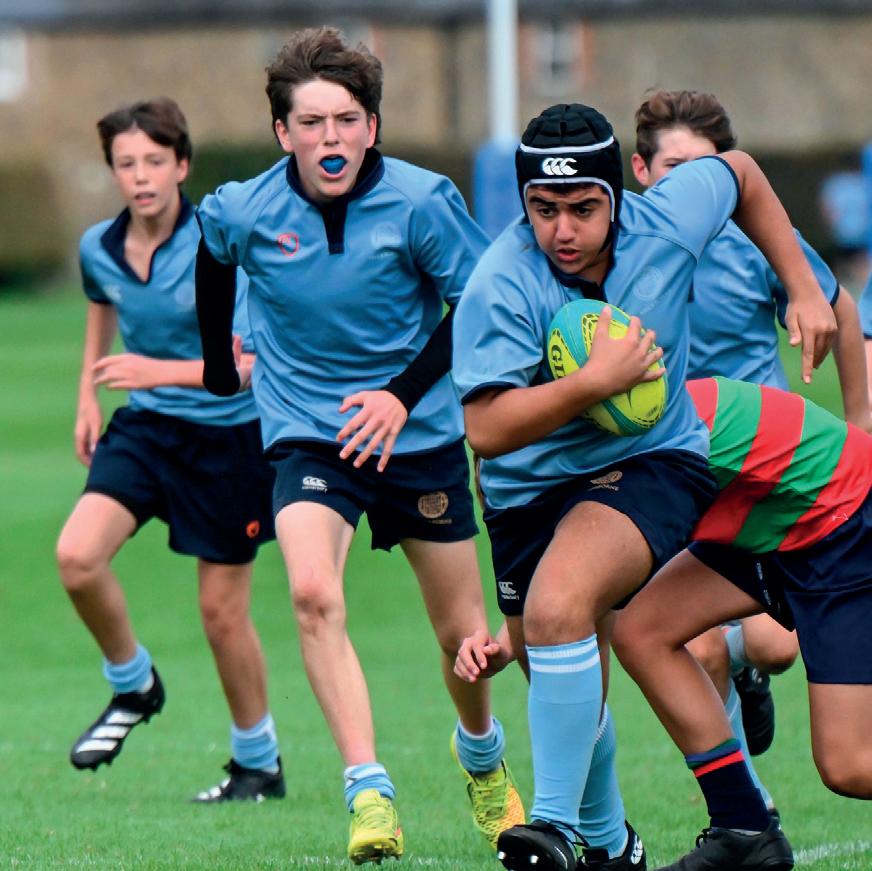
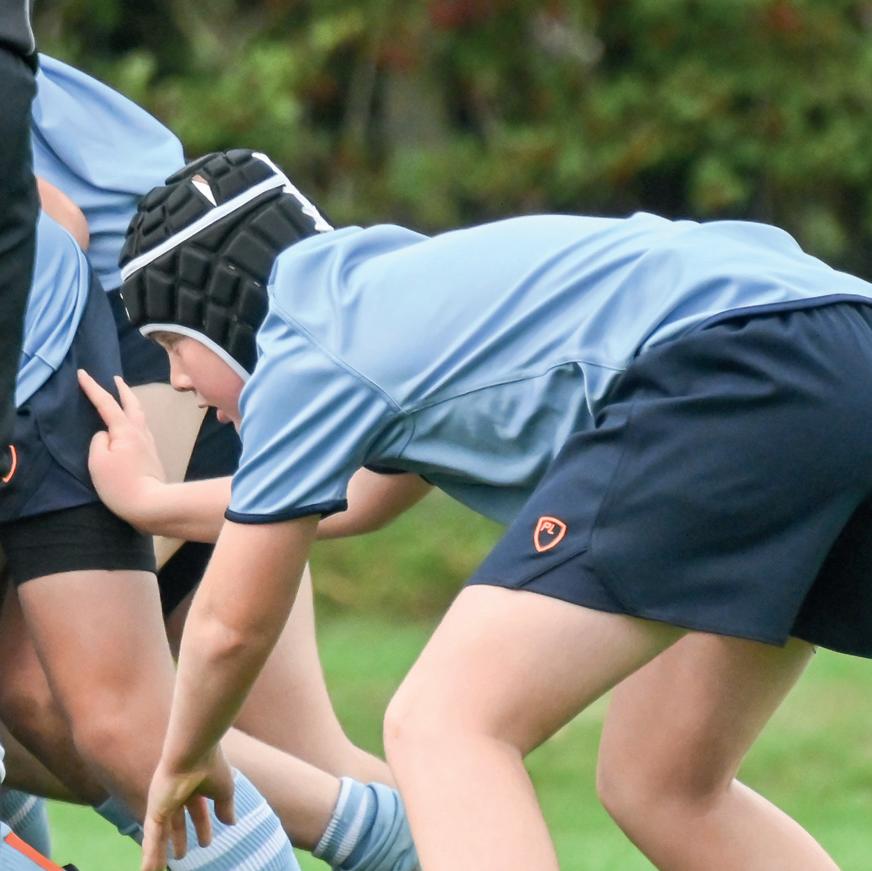
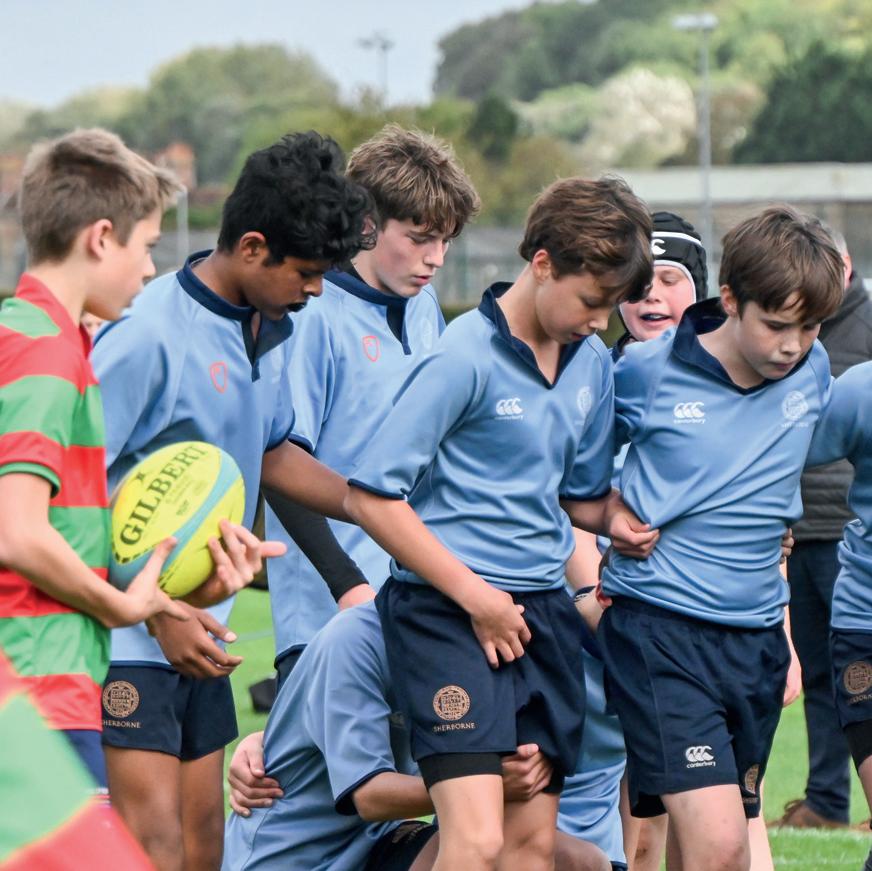
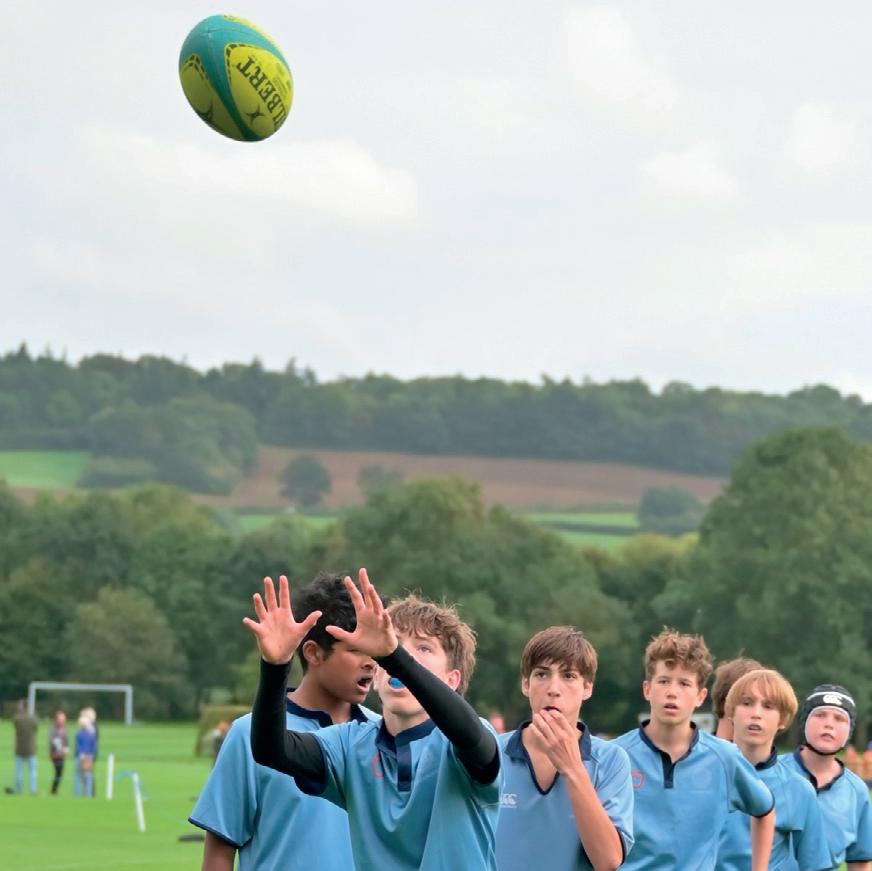
Rugby sevens
Faster-paced than 15-a-side rugby, sevens is a popular sport among Shirburnians. With more room to run, many of our faster players thrive in this environment.
As tradition dictates, the season saw our boys go toe to toe with some of the best sevens-playing schools in the region. Tough fixtures against Millfield tested the grit of all our teams before they threw themselves into tournament rugby with their usual enthusiasm. The U16s came second in a tough
group at the Gordon’s competition, recording tight wins against Finborough School and Wellington College and a 21-21 draw with Ipswich School. They played a plate semi-final against Bishop Wordsworth’s School, losing by seven points in a physically demanding match.
The U18s had a tough time in the same tournament, eventually losing the bowl final to Gordon’s by five points. When you consider they were beaten 0-22 by the
same team earlier in the day, it is clear they made progress as the competition wore on. They had better luck in the West of England tournament, whey they won the plate final 22-19 against Christ College Brecon.
The U14s also enjoyed a victorious final, beating Dean Close in the plate final of a round-robin tournament we hosted at the last minute after a local school’s pitches proved unplayable.
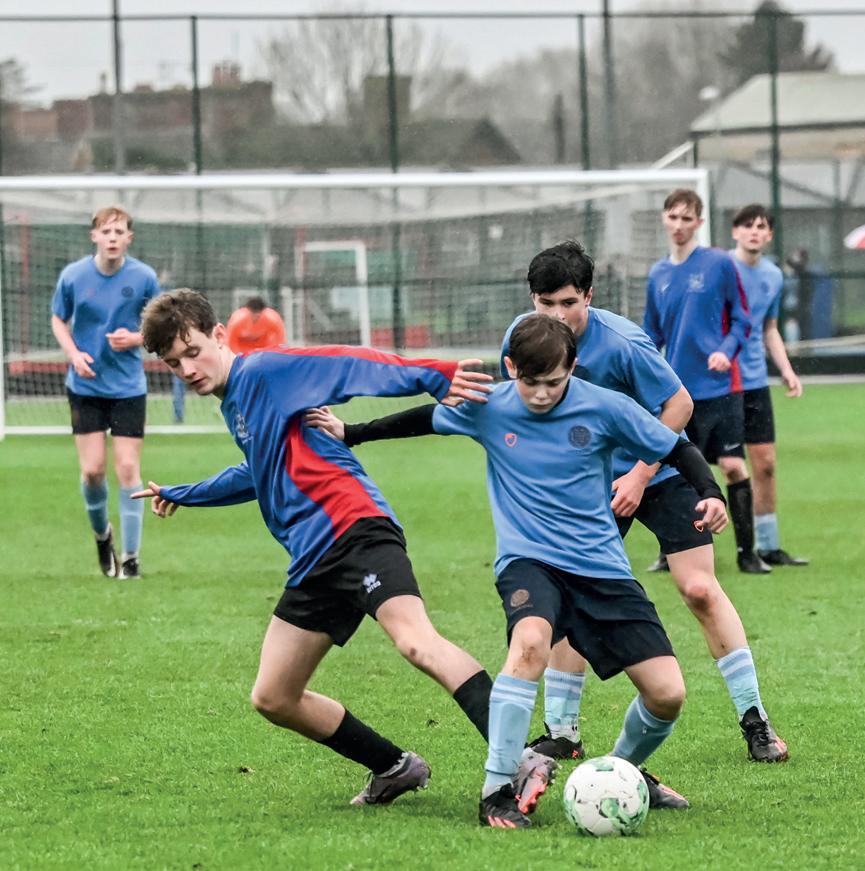
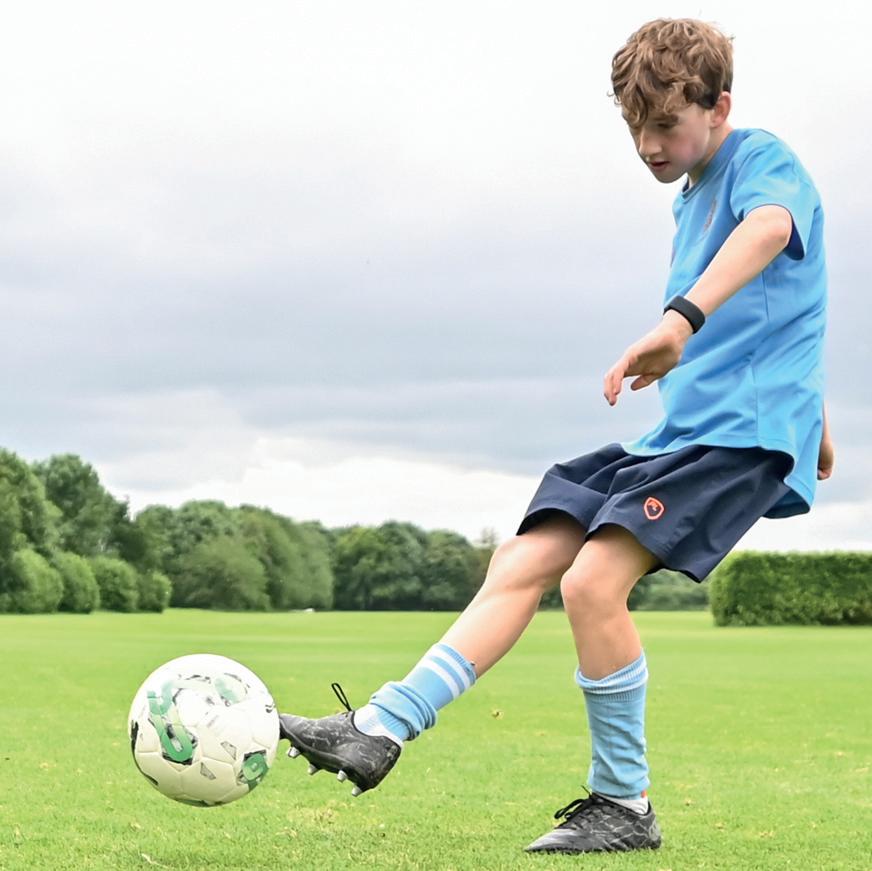
More than 270 boys chose football as their main games option this year, showing the growing popularity and stature of the sport among Shirburnians. It was a season of mixed results, with the First XI winning 16 out of 30 matches and putting in some brilliant performances along the way.
They started the season in some style, winning 4-2 against Taunton School despite falling to a 2-0 lead in the first half. There followed disappointment in the ISFA Cup, when they lost 0-4 to Wellington College, then fell 1-3 to Canford just a couple of days later. They bounced back with a 4-0 friendly win over Dauntsey’s and an emphatic 6-0 win over Wells Cathedral School.
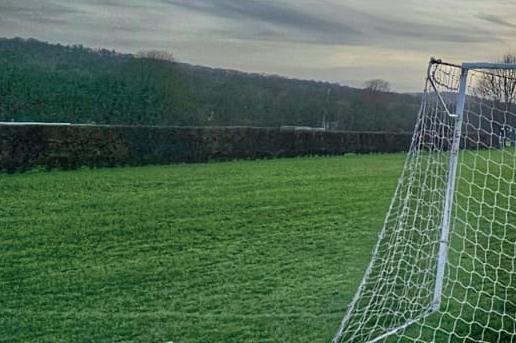
Similarly, confidence-inspiring was the Junior Colts A’s 13-4 victory over Frensham Heights School, with some wondering if this was divine assistance as a corollary of being coached by the School Chaplain. Actually, this team showed impressive mettle throughout the season, with other highlights including a 5-2 win over Bristol Grammar School, 5-0 against Bedales School, and 6-1 over St Edward’s School, Oxford. Sadly, they dropped out of the ISFA Cup after losing to Hampton School in the third round.
The Colts squads put in some good performances, with the Colts B team scoring a wonderful 8-0 win over St Edward’s School, Oxford, and the Colts As proving too strong for St Edward’s and Clifton College alike. Throughout
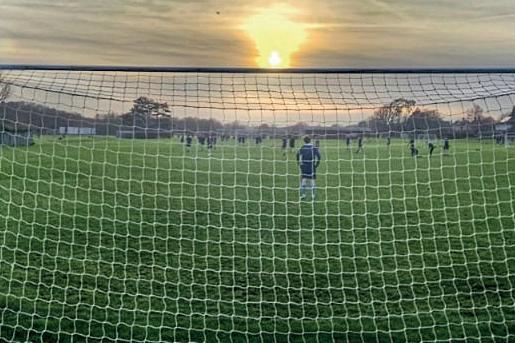
the season, a consistent trend emerged. It wasn’t anything to do with the results or the footballing performances of our boys. It was to do with their courtesy, sportsmanlike conduct, and sheer good manners, both on and off the pitch. Several parents and staff at other schools commented on this feature of the Shirburnian players – showing just what a credit they are to our School.
As a closing vignette to a special season of football at Sherborne, the First XI played beneath the floodlights in a tight 2-1 loss to Bryanston at Sherborne Town’s ground. More than 300 boys turned up to cheer them on from the stands – a sign if any were needed that football at Sherborne is very much alive and kicking.
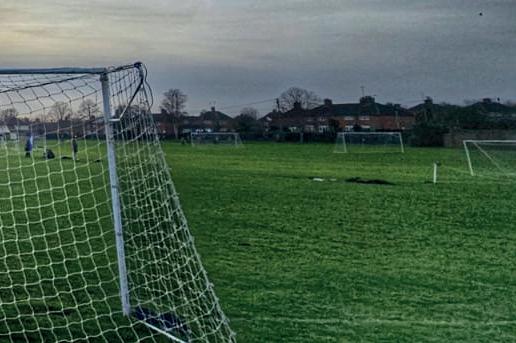
The inclement weather may have disrupted Sherborne’s competitive golf fixtures, but the boys had plenty of opportunity to practise thanks to the GC Hawk Overhead Launch Monitor installed in the new Sports Centre. This simulator gives players access to global courses at the touch of a button, meaning they can perfect technique even when it’s too grim to play outdoors.
That partly explains why golf continues to grow in popularity among our pupils. Who can resist a bit of high tech? But it is also a result of the solidarity among players, who pull together to make the most of every opportunity to play.
With Somerset Golf Team regular Theo Anderson (U6e) captaining, the First VI had some enjoyable wins, including against Taunton School, Clifton College, and Truro School. The last of these was in the HMC Foursomes and proved a highlight of the year for many players.
More chastening was defeat at the hands of the Old Shirburnian Golf Society, whose experienced players gave their younger contemporaries plenty to think about.
For the first time ever, we put together a Second VI in golf. They enjoyed some memorable moments, playing some lovely golf against stiff competition.
With new players coming through the ranks and interest in recreational golf growing among our number, Sherborne looks set to make an even bigger impression on regional tournaments and competitions in the years ahead.
A state-of-the-art Sports Centre brings many benefits to a school like Sherborne – not least, that boys can enjoy an array of indoor sports, so their activity is unaffected by the weather.
An example is badminton, which proved a popular pastime among our pupils in 2023-24. After some early season rustiness, especially in singles, our team enjoyed some impressive victories against the likes of Sherborne Girls, Downside and Millfield. They struggled against stiff competition from Wells Cathedral, Dauntsey’s and King’s College Taunton, but battled through a tough fixture against Canford to emerge victorious.
In all, then a good season, with many more boys making use of the badminton courts throughout the year and taking full advantage of our excellent facilities.
The squash team won more than they lost in a busy season that saw some fantastic individual performances.
Things got underway with a confident victory over Clayesmore, followed by narrower wins against Millfield and Bryanston. The team then fell to a disappointing loss to King’s College Taunton, even though Byron Yang (U6d) put in a fantastic individual performance that wowed all present.
They followed with a loss to Canford, but were able to inflict revenge in the reverse fixture with a 6-0 win. Putting to one side an earlier defeat to a strong Clayesmore side, this rounded off the squash season in some style.
Fives remains a popular activity that boys value for its traditional place in school sports. Outstanding performances by Theo Anderson and Alex Upton (both U6e) made for a great spectacle in several fixtures. But both members of the team deserves credit for the way they represented the School, with many parents and staff from other schools commending their positive behaviour and politeness.
The First IV just pipped Blundell’s to a friendly win, 93-92. They also beat Winchester’s Second IV – a fixture the Colts and Mini Colts lost after some close games.
Two other highlights were matches against the Old Whitgiftians, in which Sherborne was well beaten, and a historic fixture against Malvern – the first for many years. All three age groups triumphed to add to the great memories of a successful year on the fives court.
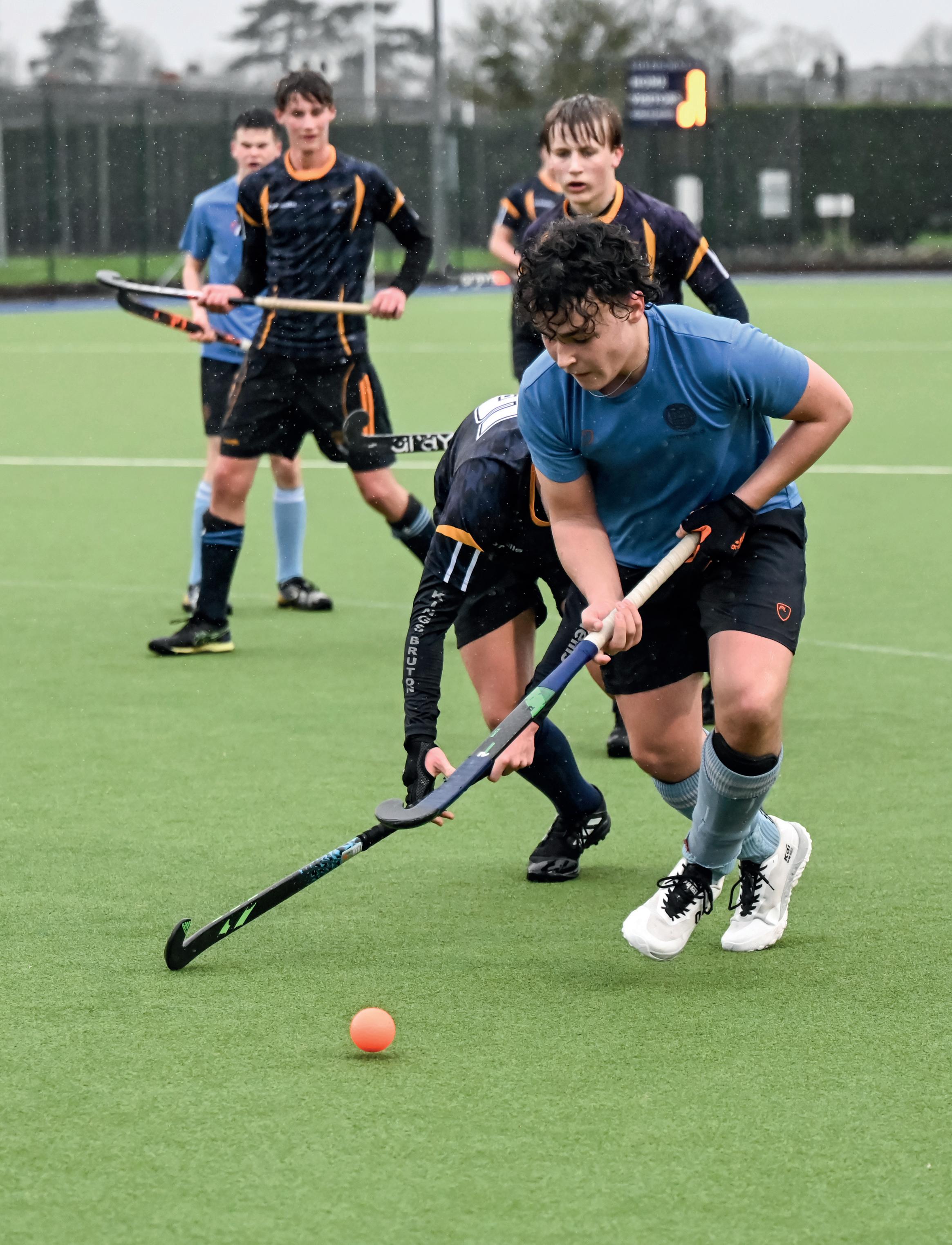
The Second XI stole the headlines in a busy season of hockey at Sherborne, thanks to being unbeaten in all of their twelve matches. It looked as if the record would slip when they went 4-1 down to Millfield, but they clawed back a draw – their only one of the season – to maintain their impressive run. As a result, they ended the season as the best Second XI in the country, with 44 goals to their name. A very impressive performance from a great group of boys.
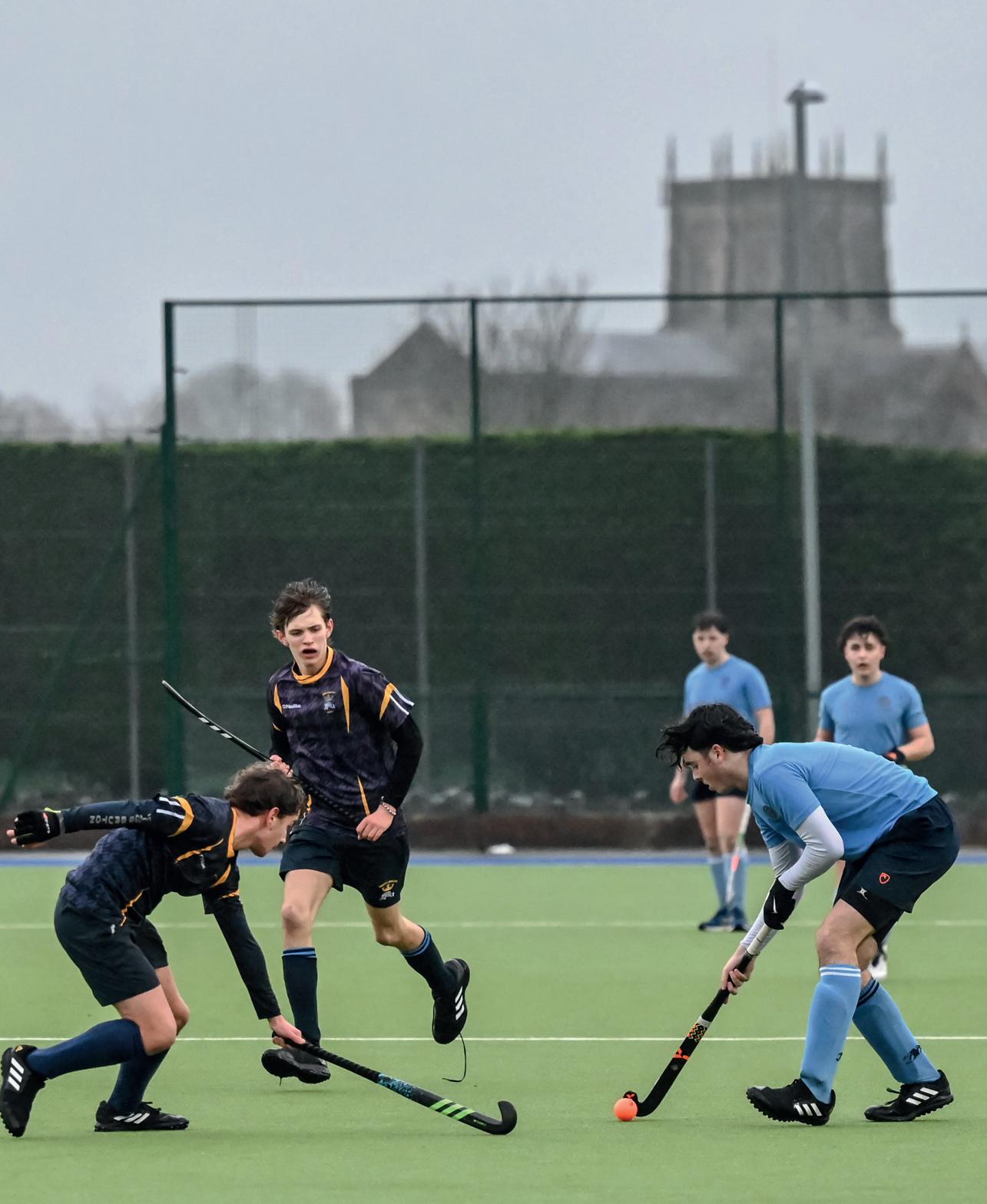
More generally, hockey continued to grow, thanks not least to the leadership of new Director of Hockey, Fraser Henderson. The First XI underwent a huge amount of development against some of the top hockey-playing schools in the country.
They scored an impressive 8-2 win against Queen’s College Taunton but struggled to make an impact in tough matches against the likes of King’s College Taunton. Even so, they reversed a 2-0 deficit to beat Bryanston 4-2, showing the huge potential in their number.
The Colts squads had similarly mixed fortunes, with a good win
against Cheltenham College for the Colts A side, and some real battles among the other teams in this age group. As with the Junior Colts and Mini Colts, they showed brilliant resilience in some challenging matches, often carving out draws through sheer determination.
This speaks of the wider contribution sport makes to a boy’s development. Win, lose or draw, the habits they learn while competing stay with them for life, guiding who they become and steering them on the right course.
The enthusiasm of some Sherborne boys to run long distances in freezing conditions is as celebrated as it is unexpected among the School’s staff. But there are plenty among our number who crave the freedom of the cross-country trail, and they have enjoyed another fantastic year of competing.
You will read elsewhere about Thomas Langley’s astonishing accomplishments in his ultramarathon challenge. He enjoyed a good finish in the cross-country event at Downside, finishing third in the seniors’ race on a morning of Arctic temperatures. Seb Noori (3c) also put in a good showing in that event, coming third in the inters’ and showing his potential.
Seb well and truly delivered in the Dorset Championships, ending as the top-placed finisher. He did the same in the gruelling Studland Stampede, leading a Sherborne one-two with William James (3c) in second. Sam Baring (U6d) took third in the seniors’ class at Studland, in another strong showing for the School.
As the Sherborne Trophy showed, in which Sam once again took top senior honours, we have genuine strength in cross country, and some accomplished runners throughout our community.
Sherborne’s boys have been enjoying our new swimming pool this year. The result of their hours of practice is a good run of results in the swimming galas that punctuate the School Calendar.
The first was in November, at Bryanston, and the boys were pipped to first by a strong Leweston team. Even so, the event was notable for Akila Bakrie’s (5b) record-breaking butterfly performance.
Another close second finish came in the spring, at Sherborne Girls, when the boys were out-swum by an exceptional Taunton School team.
They got the win they deserved just a month later, however –again at Sherborne Girls. This competition saw Sherborne emerge victorious in all age groups, with Josh Burrill (3a) and Basty Tett (5a) proving especially impressive.
A great year of swimming, both competitively and in training, therefore – with much to look forward to next year.
The main challenge facing the water polo team is finding opponents, with only a handful of local schools putting out teams. In consequence, the fixtures list has a repetitive quality, with Millfield and Marlborough featuring heavily.
Sadly, we were unable to carve out a victory against either of these impressive sides, but the experience of playing them throughout the year definitely helped Sherborne’s team to gel. The pay-off was a series of secure wins over Yeovil Spartans, including results like 14-1 and 162. These proved great confidence builders for the boys, who conducted themselves brilliantly throughout the season.
With the new pool proving popular among boys, and some genuine potential among our current ranks, water polo looks set to continue growing at Sherborne.
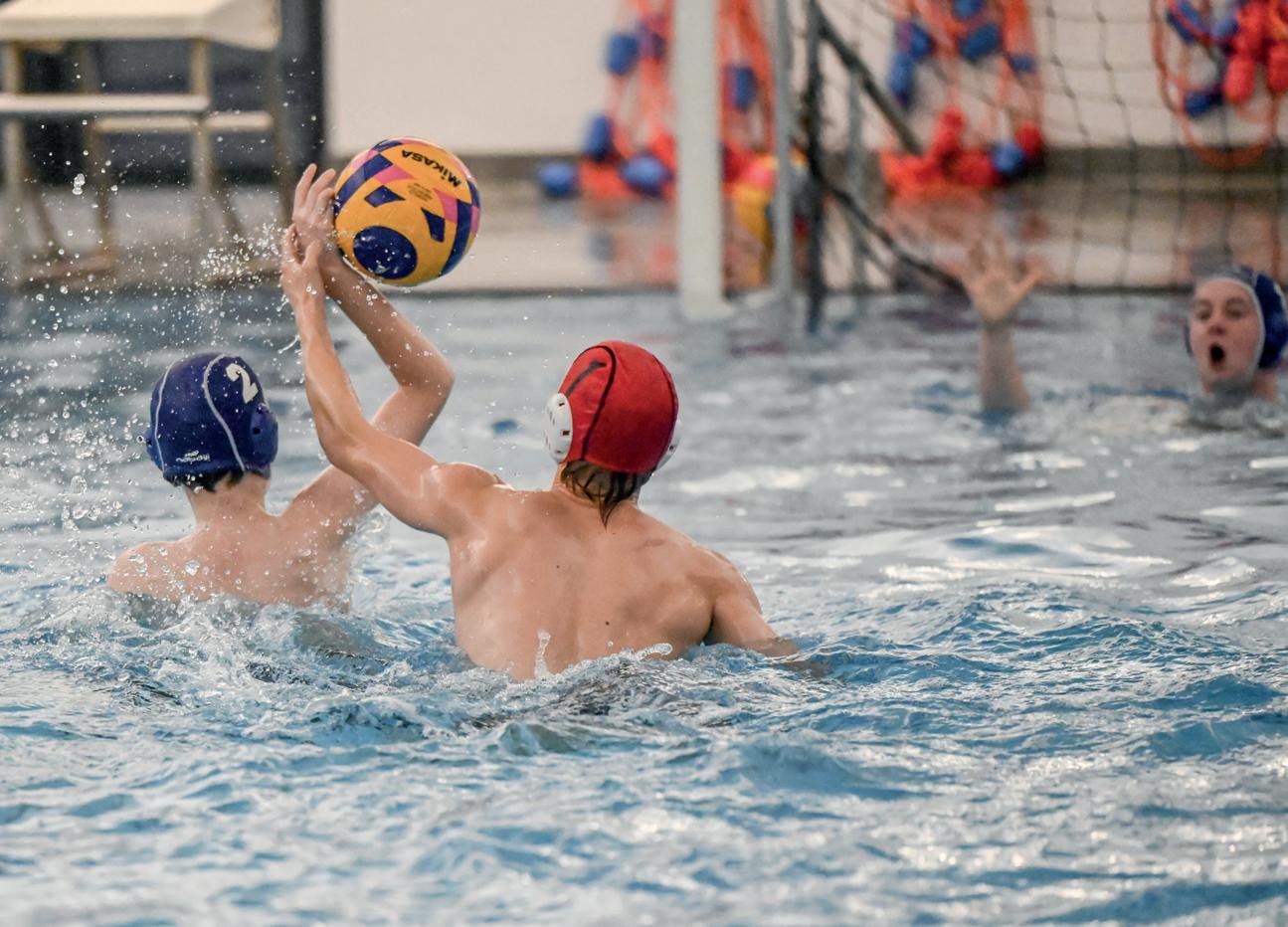
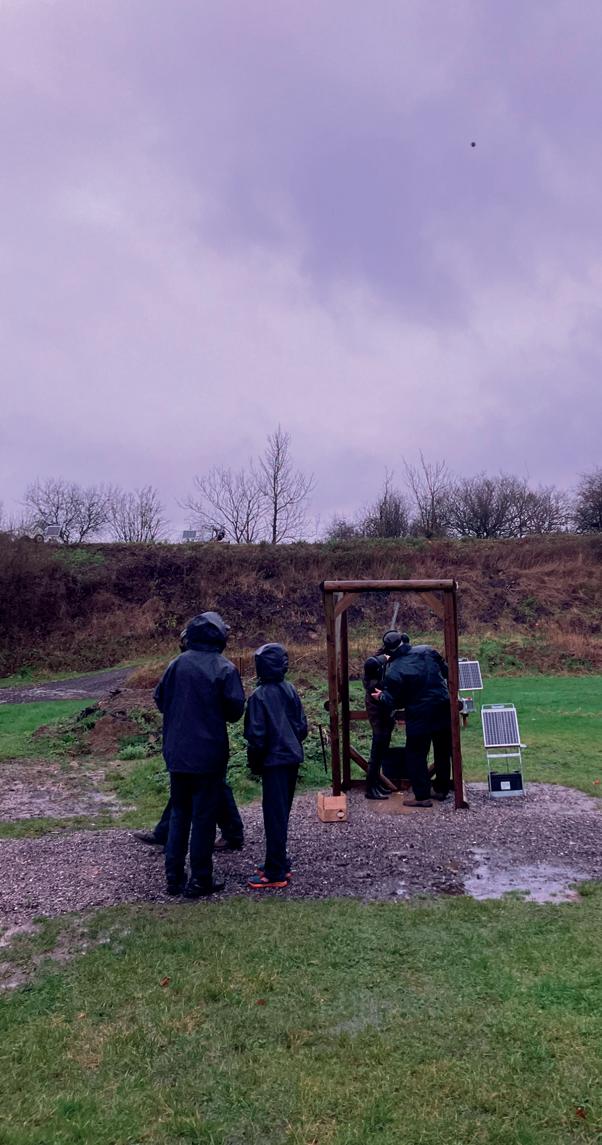
Anyone who watched the Paris Olympics will know how absorbing clay pigeon shooting is as a sport – and how much skill goes into succeeding at it. Sherborne has a long tradition of encouraging boys in this discipline, and we have some talented shots among our number.
Their skill was seen in the seasonopening victory over Milton Abbey, with team stalwart Freddie May (U6e) earning the High Gun.
We put in a solid performance later in the year competing at Millfield, though couldn’t secure the win. Then, at the end of the season, we came third from four in a group fixture at Milton Abbey. To set the performance in context, we were just three points off second place and seven behind the overall winners.
Like any sport, target shooting is an opportunity for boys to stretch themselves and have experiences that shape them for life. This year, we entered five pupils into the English Schools Long Range Challenge at the Lord Roberts Centre in Bisley and they all rose to the occasion.
Despite freezing conditions, all five shot well at 50m – twice the distance they are used to. Because the event was outside, they also had to factor in adjustments for the wind. That makes it all the more impressive that three of the five – Forest Purvis (5b), William Kirkwood (5b) and Austin Lai (4c) finished in the top 100 out of 160 competitors. Particular congratulations to Forest, who was just two points away from a top-20 finish.
Our polo season involves a mix of competitive fixtures and friendlies – though every game is characterised by a desire to win and a commitment to playing in the right spirit.
This was never more in evidence than in a friendly against Marlborough, where we rotated players for each chukka to help build the whole team’s experience. We drew two chukkas and lost two, and the event was a great success.
That practice run may explain the size of our subsequent 21-2 victory over Millfield, with the Shirburnians playing brave and free-flowing polo. Particular credit to Teddy Instone (3c), who was the only Junior School player in a team otherwise consisting of Upper Sixth Formers.
A tournament at Rugby brought mixed results: our A Team beat Winchester but lost to Cheltenham College and Felsted, while the B Team drew with Stowe and Cheltenham, but lost to Marlborough. Even so, the boys played brilliantly, with Josh Spolton (3m) shining for the B Team.
A resounding win against Eton ensured the season ended on a high, with the team showing resilience to hold on despite an Eton comeback in the final chukka. They eventually won 74.5, having dominated for much of the contest.
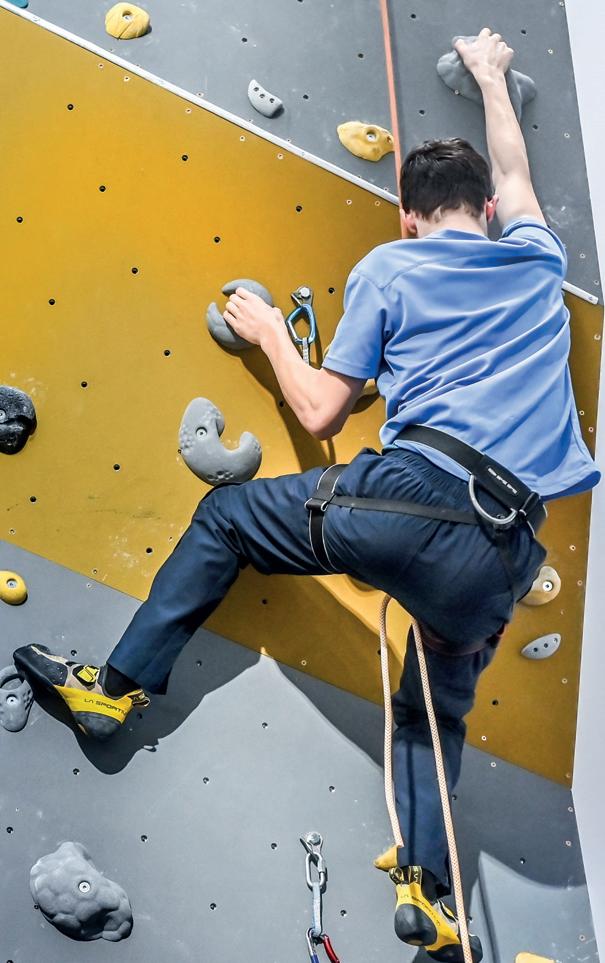
Rock climbing is another breakout sport for Sherborne that has been enhanced by our new Sports Centre. With our own climbing wall, pupils can finesse their skills and build their strength – giving them confidence to enter competitions.
For example, our juniors entered the winter league at the Frome Boulder Rooms, holding their own against stiff competition. Joshua Cheng (5e) and Gabriel Cheng (5e) came seventh and 11th respectively out of 50 in the Men’s Open class, while William Bennett (5e) and Harold Chen (4f) were seventh and eighth out of 28 in the U16s.
Some of these boys then entered the Independent Schools’ Climbing Competition, where the standard was exceptionally high. Gabriel Cheng came second in junior bouldering and third in bouldering overall, while Joshua Cheng came third in junior bouldering and ninth in bouldering overall. Will Bennett was 16th in junior bouldering and 12th in junior top roping.
When their scores were combined, the Sherborne team came a creditable 13th out of 32 teams. With their skills and experience developing by the week, it’s safe to say we expect these young climbers to reach even greater heights next year.
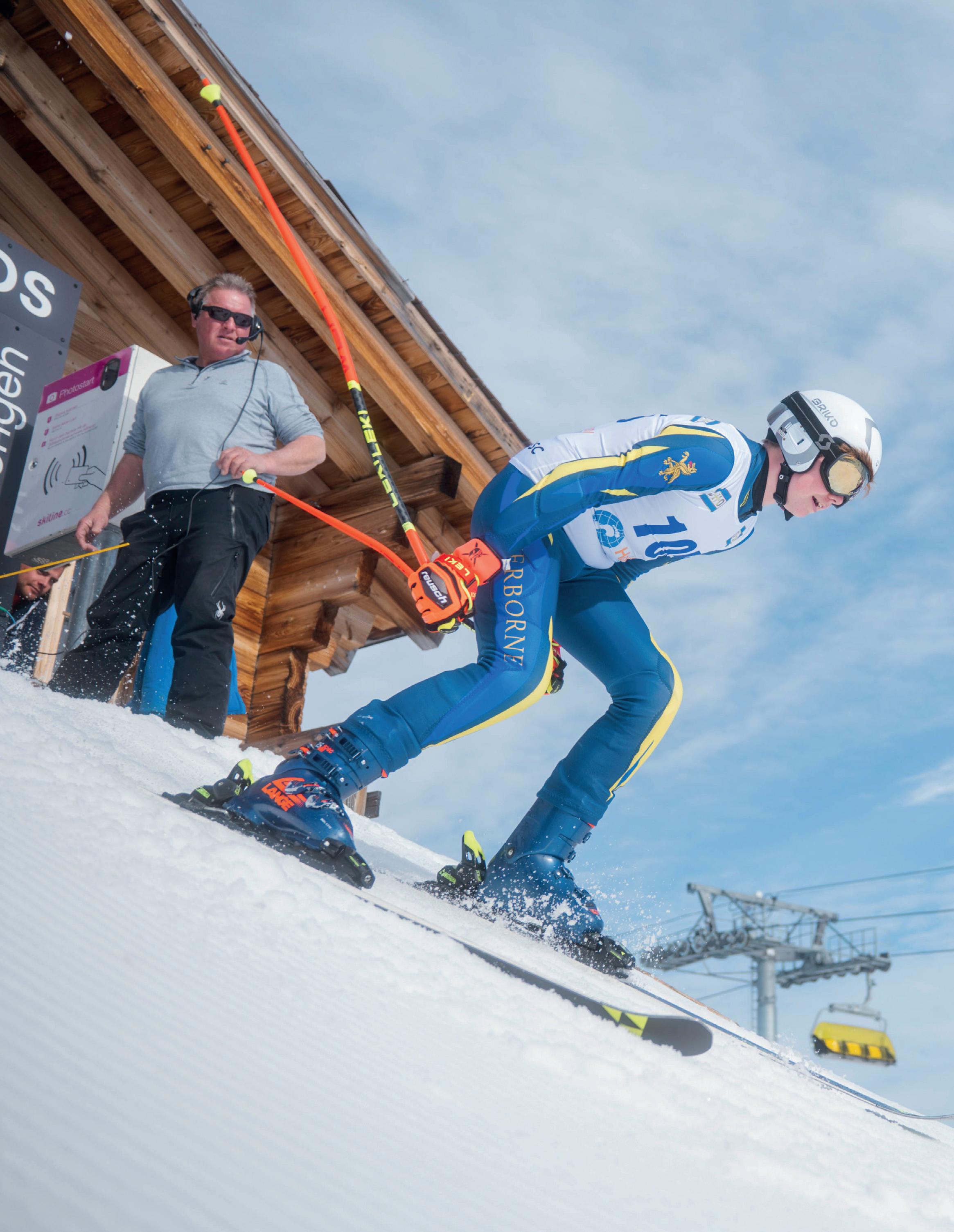
The annual New Year pilgrimage to Wengen to take part in the DHO British Schoolboys’ Ski Racing Championship is a longstanding Sherborne tradition. With the exception of the break enforced by Covid, we have had representation at the event for several years.
To help prepare, we sent our ski racers to Austria for a training camp in October. Conditions were challenging, with lots of ice, but the boys made the most of the opportunity to finesse their skills
and broaden their experience. For some, it was their first taste of slalom and giant slalom, giving them a clearer sense of what to expect in Switzerland come January.
We took more than twenty boys to Wengen, and they all performed brilliantly – both on and off the slope. Their behaviour was
impeccable, and they were fantastic representatives of Sherborne.
Congratulations to William Persse (3m), who won the U14 Unregistered category, and Eli Yu (3d), who came second. A fantastic achievement for these young competitors, who have so much otential to develop in future events.
Sherborne’s basketball players are relishing the new Sports Hall, which has encouraged participation across all year groups. It has also brought some big wins, including a 66-31 win over Wells Cathedral School in which Tom Foster (L6a) and Theo Knott (5m) both scored 20 points.
The team beat Gillingham School 39-28, and secured an impressive 108-72 victory over Winchester, with Tom and Theo again scoring big.
Two games against Canford gave the sides a chance to share the spoils: Canford won the first by three points, with Sherborne taking the second 54-35.
Sailing as ever continues unabated throughout the year and attracts Sherborne’s finest, but I would say that, wouldn’t I? Participation and enthusiasm has been tremendous.
Thirty-five pupils sailed during at least one term in the year and were supplemented by nine girls from Sherborne Girls. By most yardsticks Sherborne is in the top four of UK schools in terms of its competitive sailing programme.
Over thirty boys have represented the School at sailing over the year. Such is the disparity of the standard between Sherborne and the local competition, the first team’s fixtures have been mainly limited to the regional events. Credit must go to the second and indeed junior teams who in many instances have been victorious over the first teams of such opposition as Clifton, Bryanston, Milton Abbey, Radley and Millfield. The notable peaks in performance for the first team during the year were the second, third and fourth places achieved at the Western, Thames Valley and Southern Regional Championships respectively coupled with the second place at the School’s National Keelboat Fleet Racing Championships held in Sonars at Queen Mary Reservoir. The match against a high quality OS team was curtailed by a dying breeze at one race all.
In March the annual parents versus pupils match at Sutton Bingham was huge fun with a
record 26 boats out on the water. Victory again went to the pupils. A week later the inter-house match was contested by six boys houses and two teams from Sherborne Girls. Lyon House inched the victory ahead of Harper.
The departing first team helms of Oliver Thompson (U6f), George Gillespie (U6c) and Sam Nokes (U6g) will leave a big hole to fill, but as ever we have plenty of talent coming up through the ranks, particularly in the third form in which Oscar Fitness (3d) and Olin Rogers (3d) have been raising some eyebrows amongst the fourth and fifth form.
The School continued the building of the fleet of boats such that it now comprises six 420s, seven Fireflies, six Lasers and five Picos.
Michael Ewart-Smith Master i/c Sailing
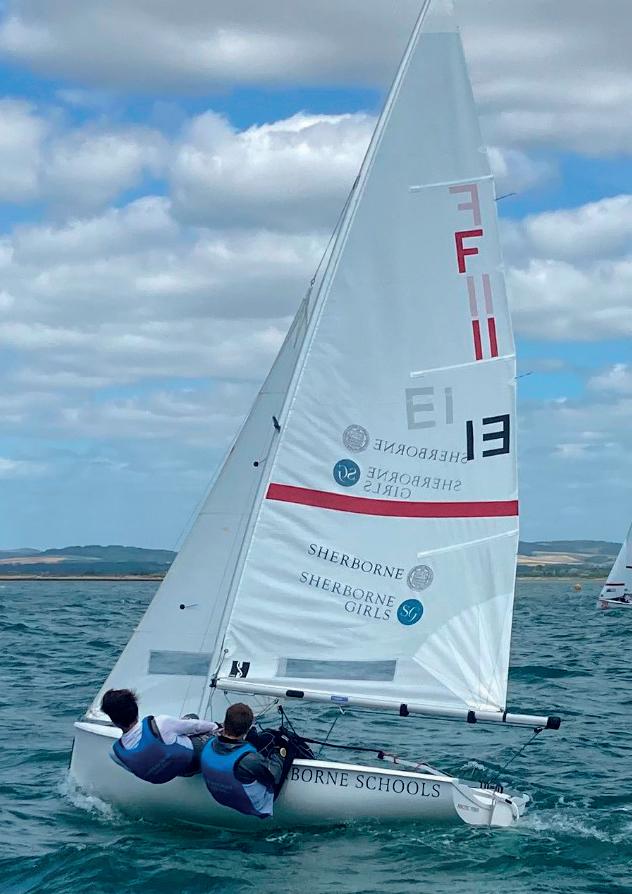
More than 170 Shirburnians selected tennis as their main games option in the summer, and we saw some brilliant performances in tournaments.
While winter matches proved challenging for many of our players, they hit their stride once summer arrived. The First VI and Colts A beat Canford, while the Second VI struggled against Blundell’s First team. Our Third VI avenged the defeat 9-0, mind you – an especially impressive outcome because they were playing Blundell’s Second VI.
A block fixture against Bryanston brought victory in three out of five matches, while the annual First VI contest with the Pilgrims proved challenging as ever. The boys impressed, and were able to win two matches.
An especially engaging match came against the Thomas Hardye School. After ending all square, Rupert Dorey (3e) and Xavier Aparico (3g) stepped into the court for a tiebreak shootout to settle the score. They held their nerve to win 14-12 against a strong pair – causing great celebration among their teammates and supporters.
While played very much as a team sport, tennis inevitably yields individual achievements for our pupils. Notable this year is Fabian Simanjuntak (3e), who won his Play Your Way To Wimbledon heat and earned the right to compete in the county final.
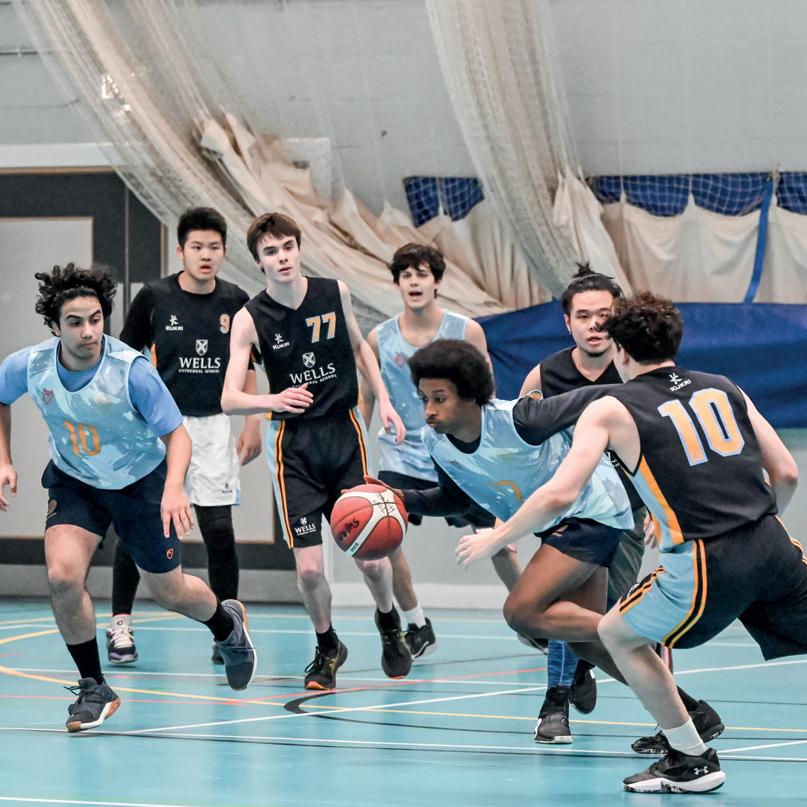
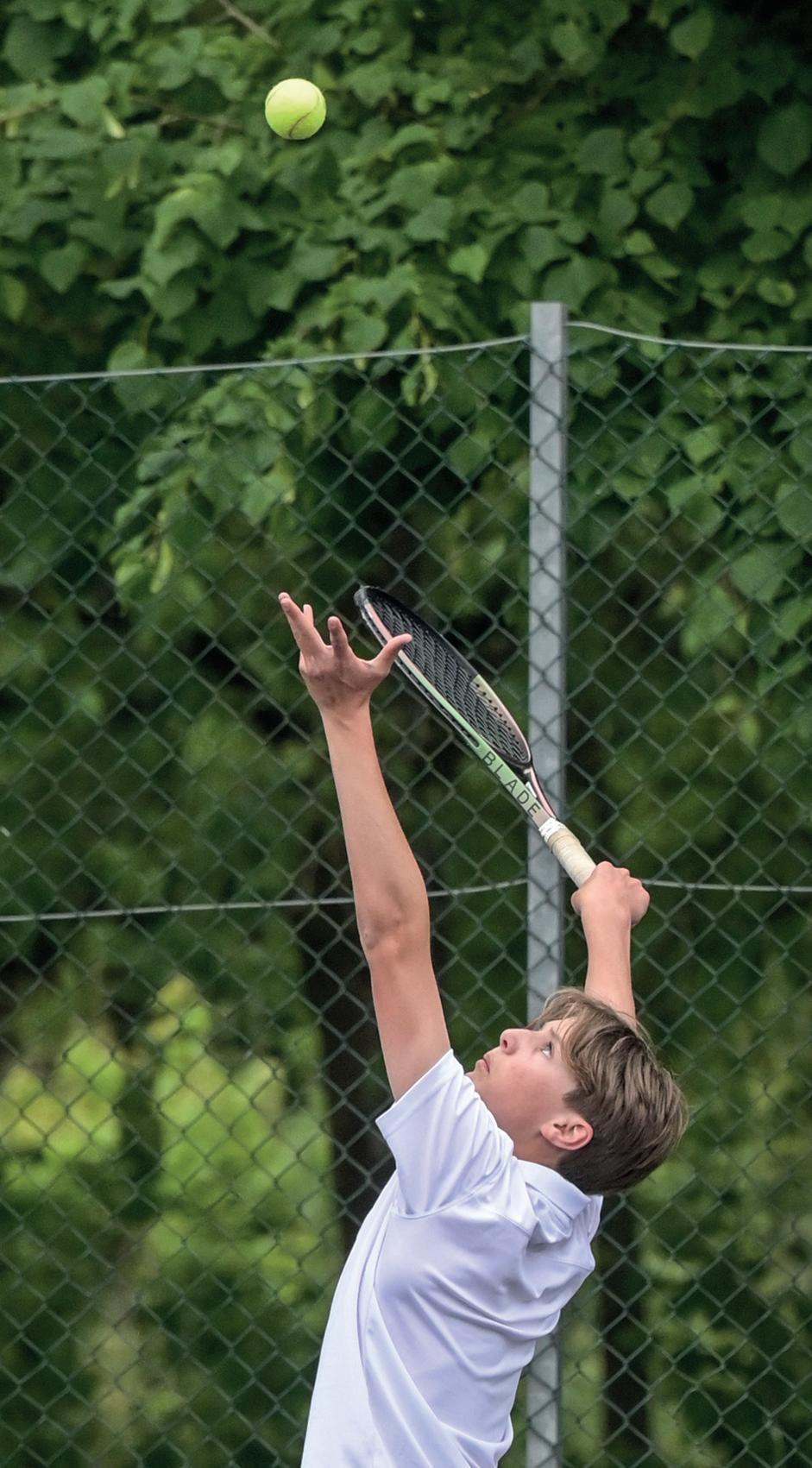
The Cricket Club played exactly 100 matches in 2024, of which 45 resulted in victories for the School. An expanded pre-season programme, incorporating the 1st XI’s involvement in the Bradfield Festival as well as junior and senior Inter-house competitions (both won by The Green, beating School House and The Digby respectively), saw more players involved than in previous years – one of many ways in which Mr Buckley has quickly made his mark as the new Director of Cricket Coaching. Alongside the regular programme of matches, we also hosted our second Ruth Strauss Foundation Cricket Week (more of which elsewhere in these pages), whilst the Mini Colts A team took part in the Stowe Festival. Meanwhile, I am delighted that the Mike Davis Sports Hall has served as a winter training hub for the Dorset Under 16 and Under 18 teams, and The Upper has – again – hosted a good number of county fixtures.
Individually, there were five-wicket hauls for Hugo Bolton (3d), Arthur Dunning (4m), Al Power (5a), Freddie Risso-Gill (3g) and JP Tatham (3d), who twice achieved this feat as a 3rd Former playing in the 1st XI, whilst Ptolemy Graves (3c) and Charlie Robinson (L6m) took hat-tricks. In addition, twelve Shirburnians represented their counties across the age ranges from Under 14 to adult 2nd XI. At the end of the season, we were sorry to say farewell to Messrs. Debney and Howden, both of whom have given a great deal to Sherborne Cricket as coaches of junior sides.
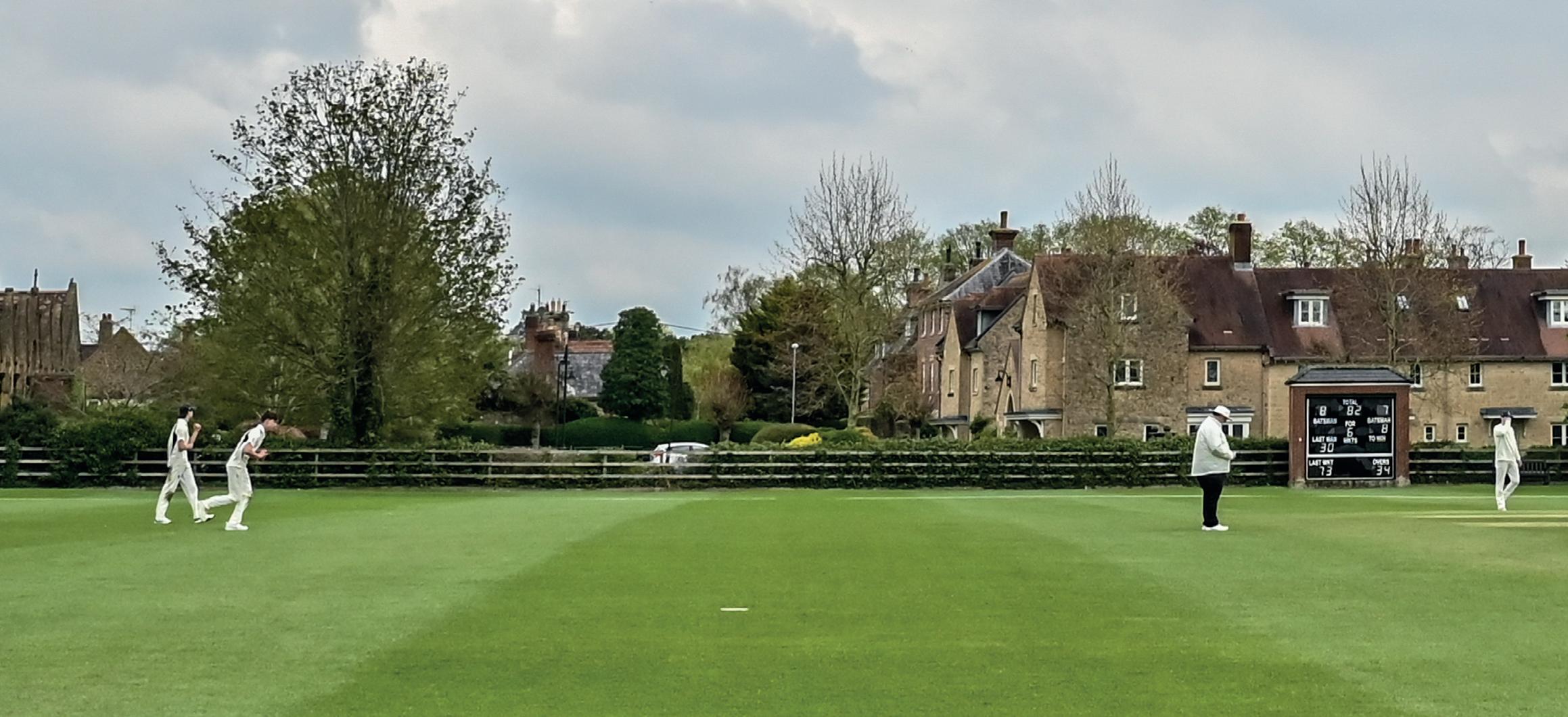
A relatively inexperienced 1st XI did well to win eight matches, enjoying particular success in T20 cricket, in which they reached the South West (plate) Final of the National Under 18 Tournament, and also had a thrilling last-ball tie with Radley. Whilst victories were harder to come by in the longer format, wins over Free Foresters, King’s Taunton and Sherborne Pilgrims showcased the promise in the playing group.
With the bat, Fergus O’Connell (4c) led the way, scoring over 650 runs, whilst Tom Alers-Hankey (U6c), Will Tatham (L6d) and the captain, Barney Talbot-Williams (U6a), all topped 400 runs. Will’s innings of 98 against Canford was the highest score for the School this season and came in the same match that younger brother JP became the youngest Shirburnian to earn a place on the 1st XI Honours Board since records
began in 1864, with figures of 5 for 37. JP followed this up with 6 for 23 against King’s Taunton, as he topped the bowling charts with 31 wickets – an outstanding achievement. Max Dangerfield (U6m) also bowled impressively throughout the season whilst Arthur Risso-Gill (5g) made great progress and will be integral to the side over the next couple of years.
My thanks – as ever – go to all the staff who give up so much time to coach Cricket, and to Tom Punchard and his magnificent ground staff for their neverending work on the pitches and practice facilities. All those who enjoy their Cricket at Sherborne are fortunate to benefit from the efforts of so many dedicated people on their behalf.
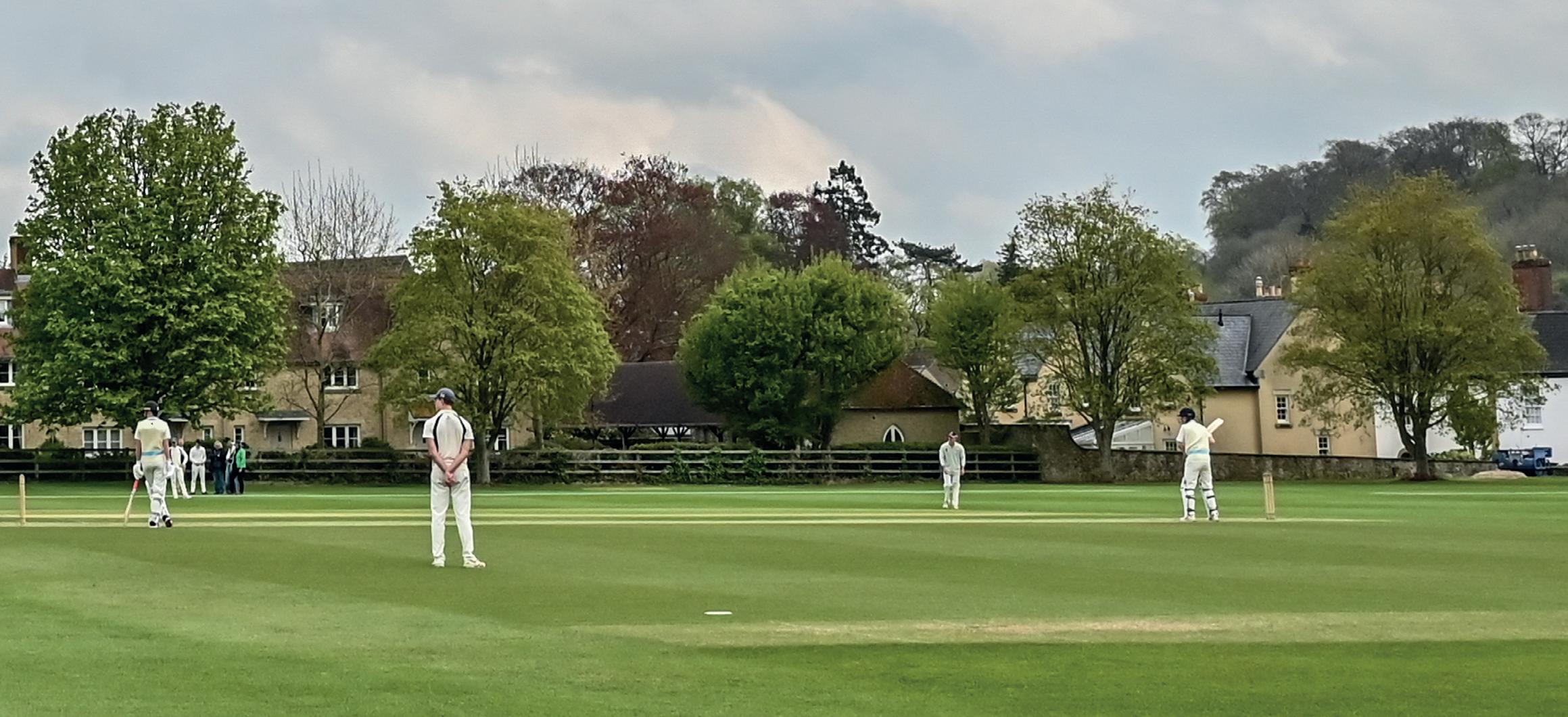

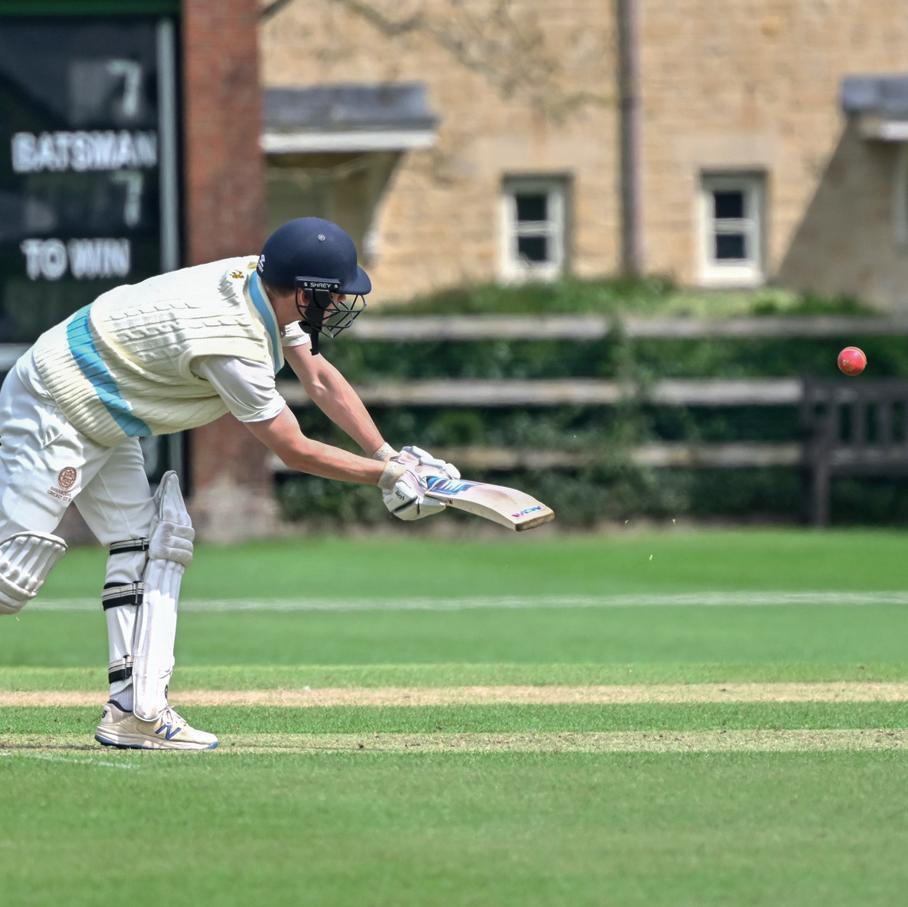
An enthusiastic squad of new 3rd Form players enjoyed a successful season overall, winning over half their games across the three teams, with the A team reaching the Semi-Final of the County Cup. Fin Gardner (3m) showed himself to be a batter of great promise, most notably with an innings of 81* against King’s Taunton, but the greatest highlight was the demolition of Cheltenham at the Stowe Festival, bowling our opponents out for just 80 as Sherborne triumphed by 76 runs.
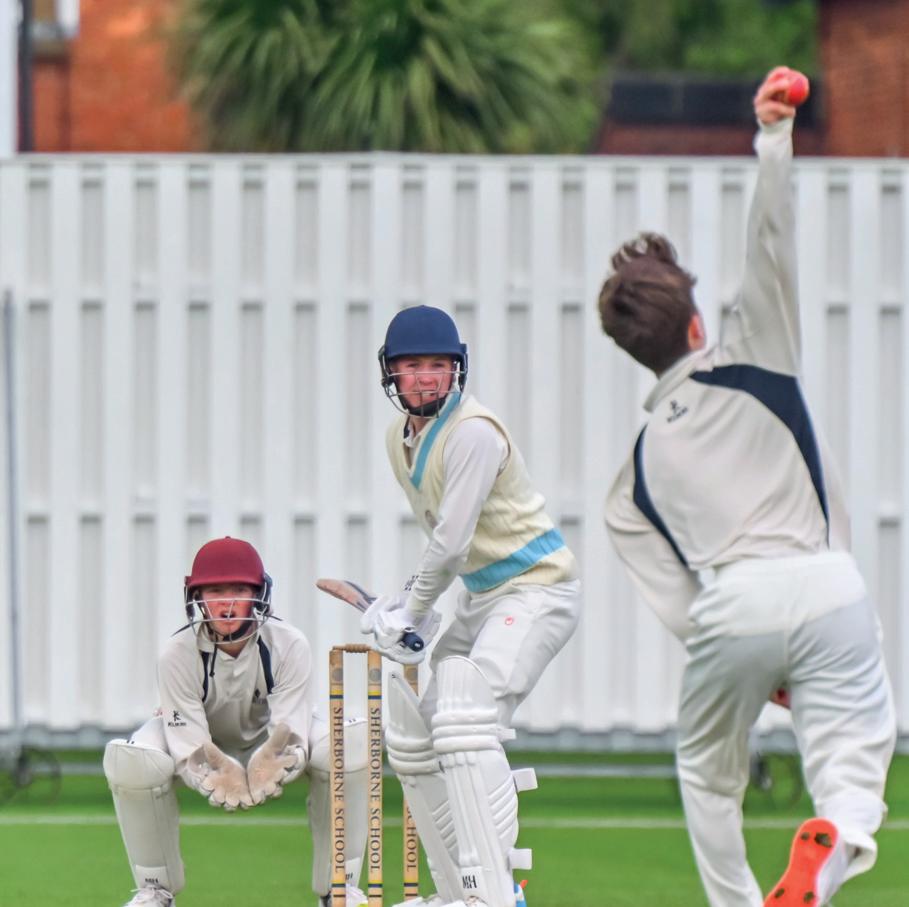
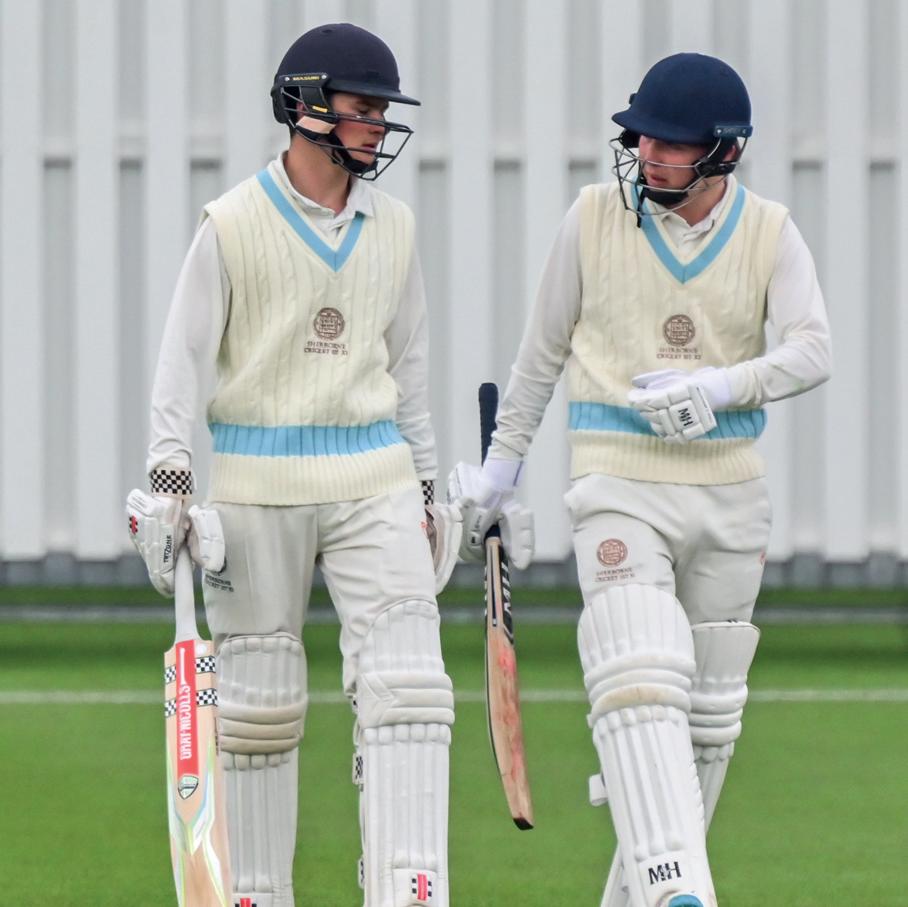
A strong squad of players actually started their season back in September, as they lost the delayed County Cup Final to Bryanston – a result which was, unfortunately, repeated on Finals Day of the Under 15 County Cup in late June. Between times, the three teams continued to demonstrate pleasing progress, most noticeably encapsulated in Arthur Dinning’s promotion to the 1st XI during Cricket Week.
As is always the case in the Summer Term, the pressure of public examinations meant that it was only against Marlborough that we were able to field six senior teams, but it was great to see good commitment across the older year groups. Statistically, Mr Thurman’s 3rd XI and Mr Howden’s 4th XI achieved the most success across the Club with, respectively, five wins in six matches and four wins in five matches, whilst the 2nd XI reached the Final of the DISC 100, before losing to Canford.
Hugh Tatham - MiC Cricket
The final week of the Trinity Term saw Sherborne go ‘Red for Ruth’ again as we hosted our second Ruth Strauss Foundation Cricket Week. A much-expanded event from last year, this year’s version saw 26 matches played over six days and also incorporated our Jimmy Adams Prep Schools’ Tournament.
The week started with the block fixture against Blundell’s, with three Mini Colts matches and the 1st XI’s game which, unusually, was played over 55 overs per side. Even more unusual was the double century scored by Blundell’s batter Seb Linnitt: a superb innings from the young Somerset player. Sunday saw the 1st XI in action again, in their second match of the term against the Sherborne Pilgrims after their loss to the same opposition on OS Day. This time, the School triumphed, with Arthur Risso-Gill’s (5g) four wickets the highlight of the victory. On Monday, it was the turn of the Junior Colts teams, playing –and winning – two matches against Prior Park and Gillingham, before the 1st XI returned to the stage against South African tourists, St. Andrew’s College, on Tuesday. Our visitors were a strong side and won comfortably, but the match was played in tremendous spirit and the touring supporters certainly helped to swell the fundraising coffers. Also on Tuesday, Bow House played Perrott Hill Plodders in a T20 match on an absolutely beautiful evening. It was entirely fitting that Jimmy Adams’ (c 99) old school, Twyford, should triumph in Wednesday’s Prep Schools’ Tournament, beating Millfield Prep in the Final, before the week and season ended with the 1st XI’s traditional match against M.C.C. As always, this was a marvellous game, which our opponents won –by just 18 runs – with only two overs remaining.
The Ruth Strauss Foundation is a wonderful charity which does incredible work supporting families bereaved by cancer and funding research into nonsmoking cancers. To raise money, we sold souvenir brochures, featuring articles by Sir Andrew Strauss,
former England bowler Dean Headley, Owen Slot of The Times and our very own Mr Jamieson amongst others, alongside three prints of The Upper by the hugely talented Mr Senneck. Meanwhile, an online cricket-themed prize draw attracted a great deal of interest and revenue. The prize haul included Zac Crawley’s signed England shirt, Hampshire tickets, James Vince’s signed batting gloves and Sydney Sixers shirt, and books by Old Shirburnian Peter Oborne (d, 74). There was also a whole school ‘Wear Red for Ruth’ day, whilst the Chaplain generously allowed the collection from the Commemoration Service to be added to the fund. Players and spectators alike were delighted that Ecco Gelato brought their wares to The Upper on the two hottest days of the week. Finally, renowned Somerset bat-maker World Class Willow sponsored the M.C.C. match, with
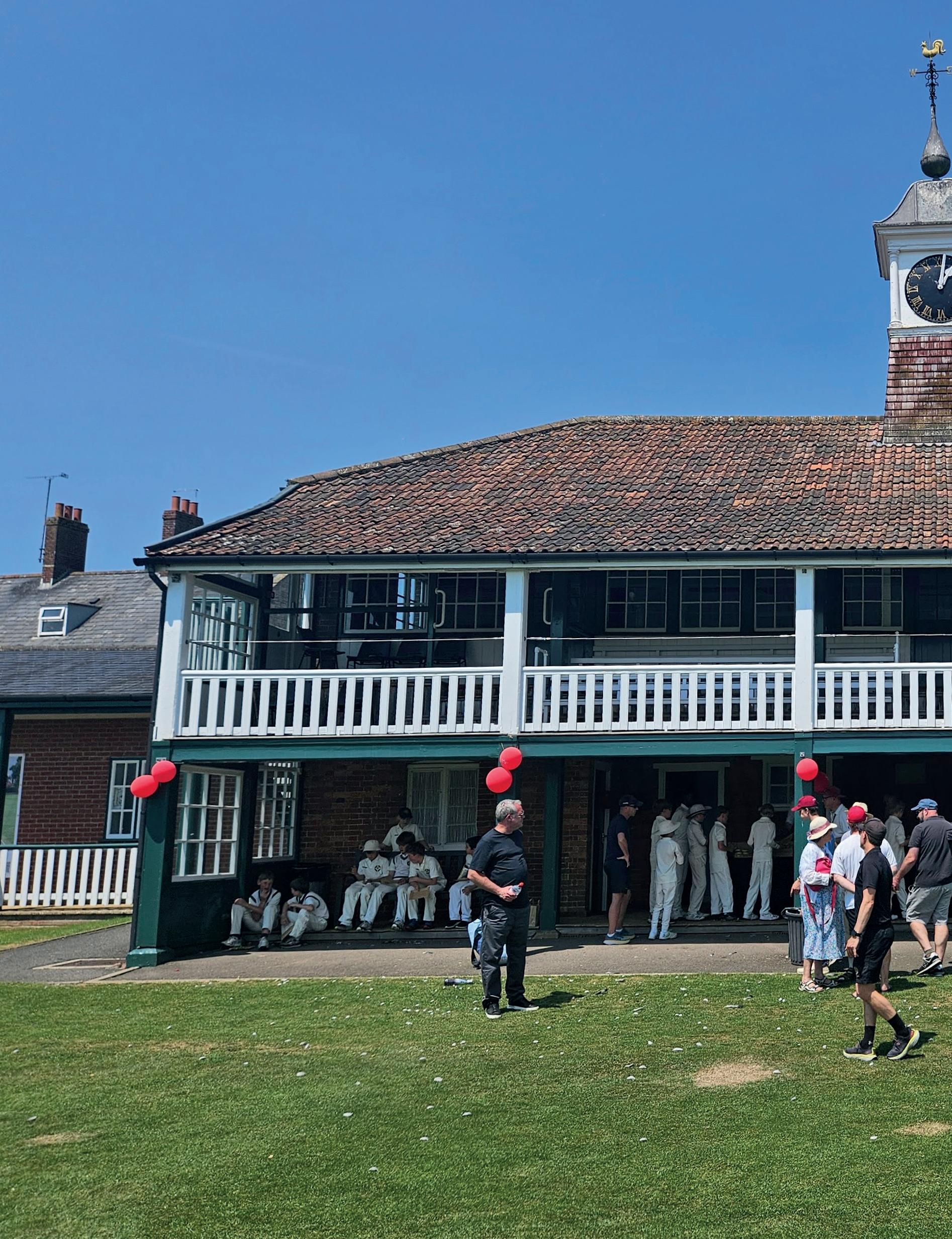
owner Mike Kennedy also delivering impromptu Business Studies lessons to Lower Sixth pupils!
An event like this takes a huge amount of organising, and I am so grateful to the Admissions, Estates, Events and Marketing teams for their support and help. Thank you also to all those who authored articles for the brochure, to everyone who donated prizes
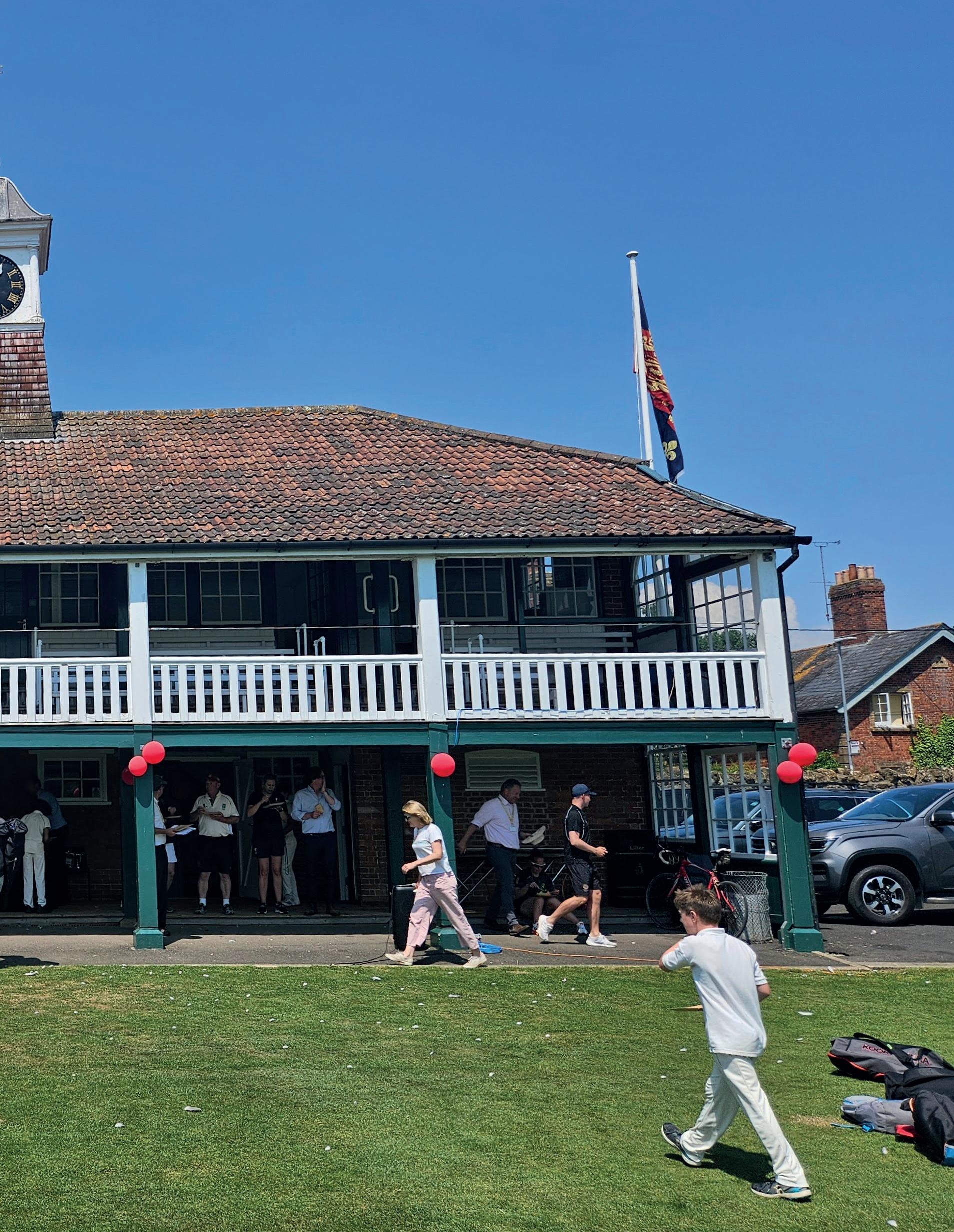
for the draw, and to Mr Senneck for his incomparable artistic input. At the time of writing, this year’s week has raised just over £4,000 for the Ruth Strauss Foundation. This money will make an enormous difference to families suffering in awful circumstances, and I am really proud of the way in which the School community came together again to support this great cause. Thank you, one and all!
Hugh Tatham MiC Cricket
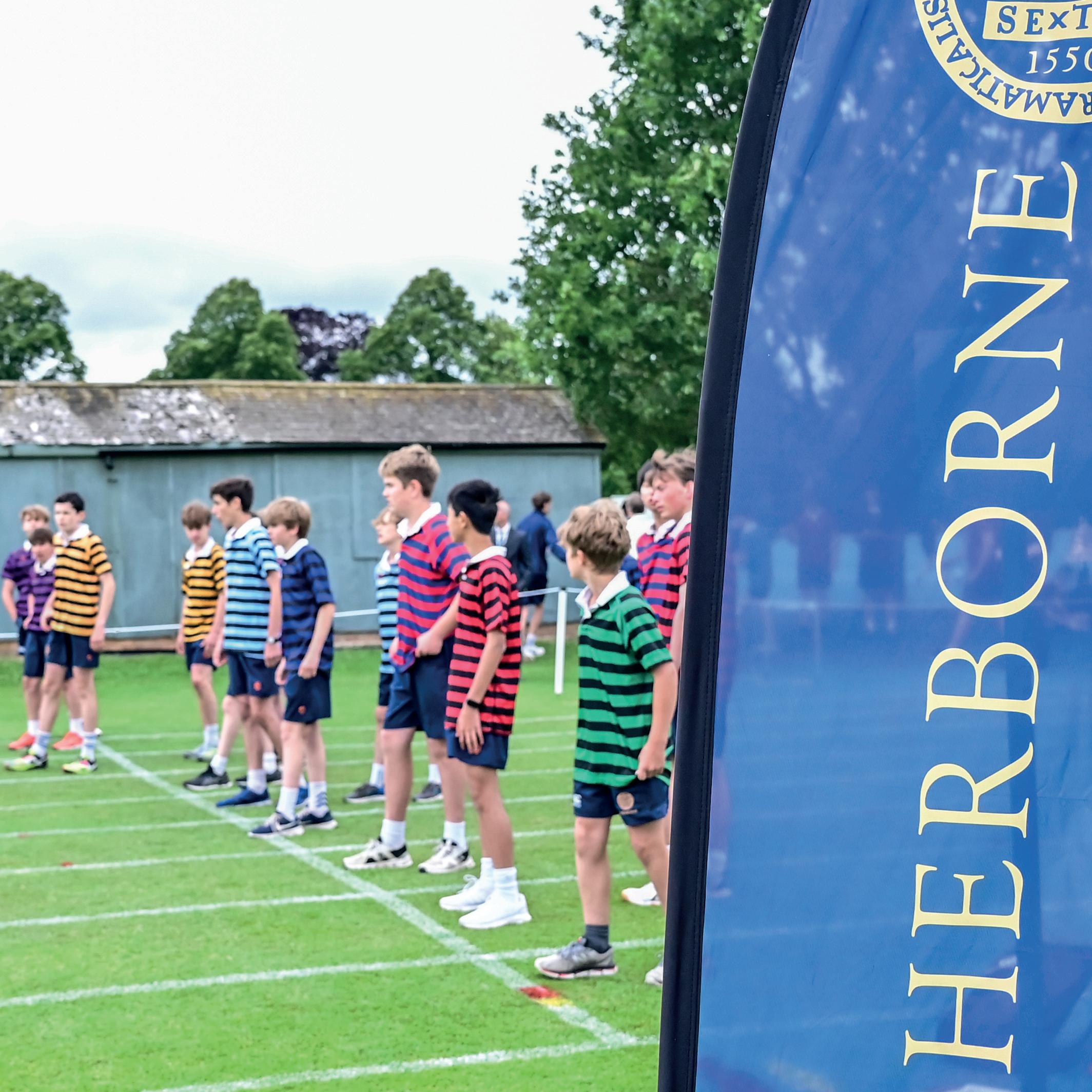
The athletics season always brings joy to Sherborne’s track and field specialists, and 2024 was no exception. We put in a fantastic team performance in the Track and Field Cup at Bournemouth to finish third overall.
Our athletes excelled again at Canford, with Tom Foster (L6a) winning both the Senior high and triple jump.
Twenty-four boys qualified for the Dorset County Championships, with multiple individual winners
DURING THE EVENT, THEO BROKE THE U17 SCHOOL RECORD FOR HIGH JUMP, CLEARING 1.98M AND WENT ON TO FINISH 11TH AT THE ENGLISH SCHOOLS’ CHAMPIONSHIPS
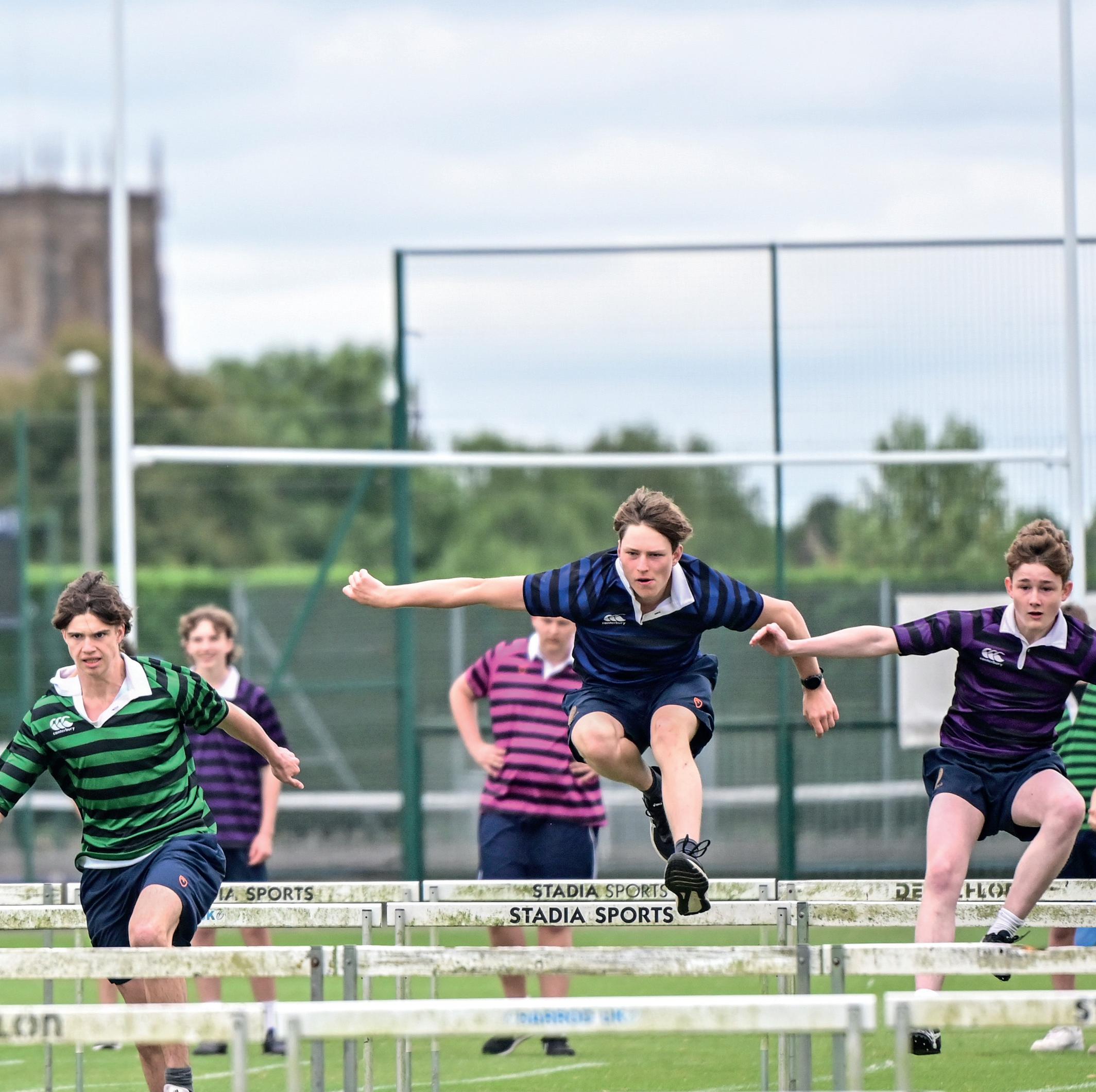
including Hector Sheldrick (3m), who won U14 shot and discus.
Following success at county level, Tom Foster, Hector Sheldrick, Jack Hunter-Inglis (5a), Theo Knott (5m) and Toby Bemand (U6a) represented Dorset in the South West Championships. During the event, Theo broke the U17 School record for high jump, clearing 1.98m and went on to finish 11th at the English Schools’ Championships, and Toby came third in the senior boys’ 400m.

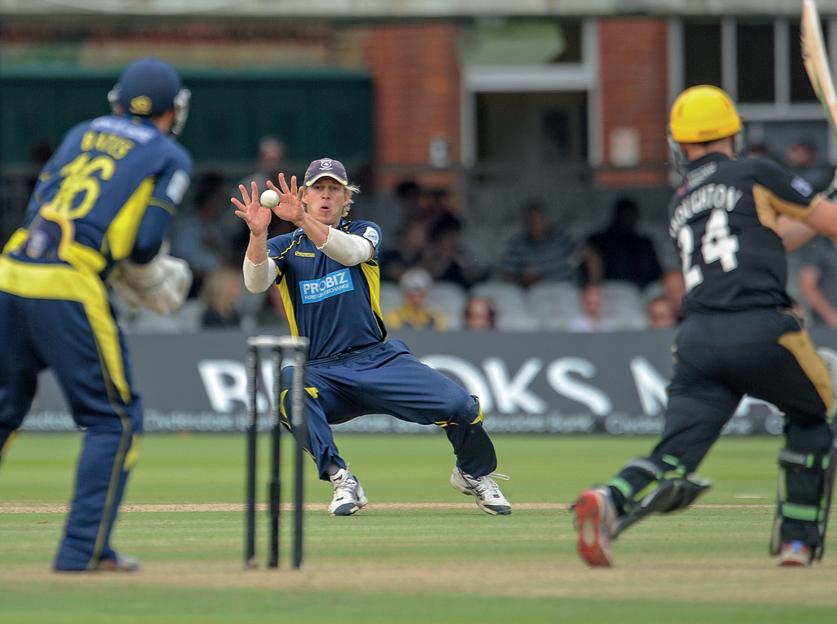
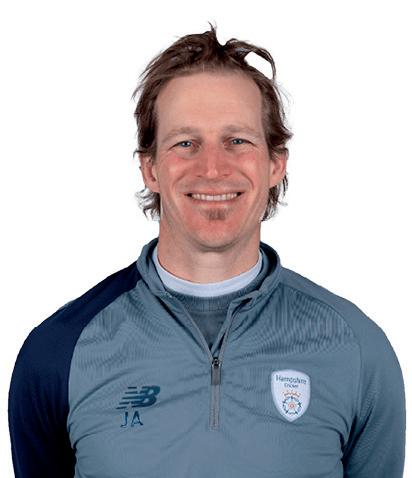

In addition to being old boys of The Green, Jimmy, Aadel and Nick have several other things in common. They all pursued successful sporting careers post Sherborne. Jimmy played for and captained Hampshire County Cricket Club, Aadel played rugby for Leicester Tigers and Nick played for Wasps and England. All three played first class sport throughout their university careers and all three have now embarked on successful second careers.
Jimmy is now coaching cricket at Hampshire, Aadel is now a global foreign exchange consultant and Nick is the Co-Founder and CEO of Gatehouse Advisory Partners.
They were interviewed by Ed Brooke (U6b) and Freddie Fineman (L6e) about the influences of School and sport on their lives.
Although these Old Shirburnians have experienced vastly different
career paths, it was striking to see the similarities they faced, both during their time at Sherborne, and as they continued their journey outside of school. All three discussed making the most of the array of opportunities they were presented with. When placed in a boarding school environment, Nick emphasises the importance of politics, and opportunities that are presented in developing inter-boy relations. Similarly, what Jimmy first thought to be an ‘alien space’, led him to find commonality with others quickly, teaching independence in ‘an extremely unique way’. Aadel also discusses how, whilst at the School, Sherborne created a family environment, a home away from home. When you live with boys you have only just met, you gain the opportunity to develop lifelong friendships and, as Jimmy explains, a sense of community. Opportunity was a continued motif throughout these
interviews. Trying all of these, no matter if students think they will enjoy them, is a factor Nick believes to be crucial. In order to fully take advantage of the seemingly endless possibilities that are on offer, we need to put aside our preconceived judgements and throw ourselves at every opportunity we get.
This ability to get along with other people proved highly beneficial for Aadel whilst playing professionally for Leicester Tigers. Through his experience at Sherborne, he understood how to build a ‘good team’ with attention to detail and an ability to listen, something Jimmy reiterates in his own coaching. His focus on primarily building relationships with players and pushing positive reinforcement before challenging them aligned with Nick’s view that a good leader is not just competent in their role, but also exemplifies warmth and
charisma. He believes ‘leadership has to be carefully curated’, a skill Sherborne helped him nurture as captain of the 1st XV and as Head of House for The Green, 1992. Aadel says that his general understanding and life skills came from sport, noting that he was the first 3rd former ever to play 1st team Hockey.
We found Jimmy’s discussion of vulnerability profound. It may come as a surprise to hear that he felt he needed to have more confidence in himself considering he was Captain of the 1st XI and then went on to play for England U19s, but it is refreshing to hear how Sherborne helps to shape, as Aadel says, ‘well rounded’ individuals. On a similar note, Sherborne’s focus on adaptability was something all acknowledged. Nick discussed the importance of ‘accepting change’ and learning to adapt, recognising that what is good today may not be in ten years’ time. He stresses that the School helped him to develop curiosity and promoted an ‘entrepreneurial push’. For Jimmy, this push, particularly in academics, taught him to multitask, enabling him to grow in confidence whilst at the School, inevitably aiding him in his shift from player to coach.
Often, people can get caught up in the notion of success, but for Nick, success is being confident in what you love and in your own ability. As Jimmy recognises, in order to progress in your endeavours, you will

undoubtedly have to make sacrifices. In spite of this, it should not come at the expense of letting your ‘passions become a chore’ or, as Nick says, preventing you from spending time in the present rather than constantly looking ‘forward to the horizon’. Of course, these individuals would not have got to where they are today without a significant number of others to help them along the way. Aadel in particular wanted to express his gratitude to the highly influential Mike Davis, a man who has helped shape the lives of so many Old Shirburnians.
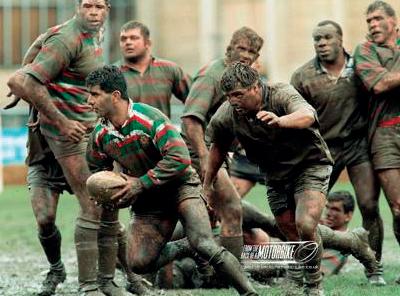

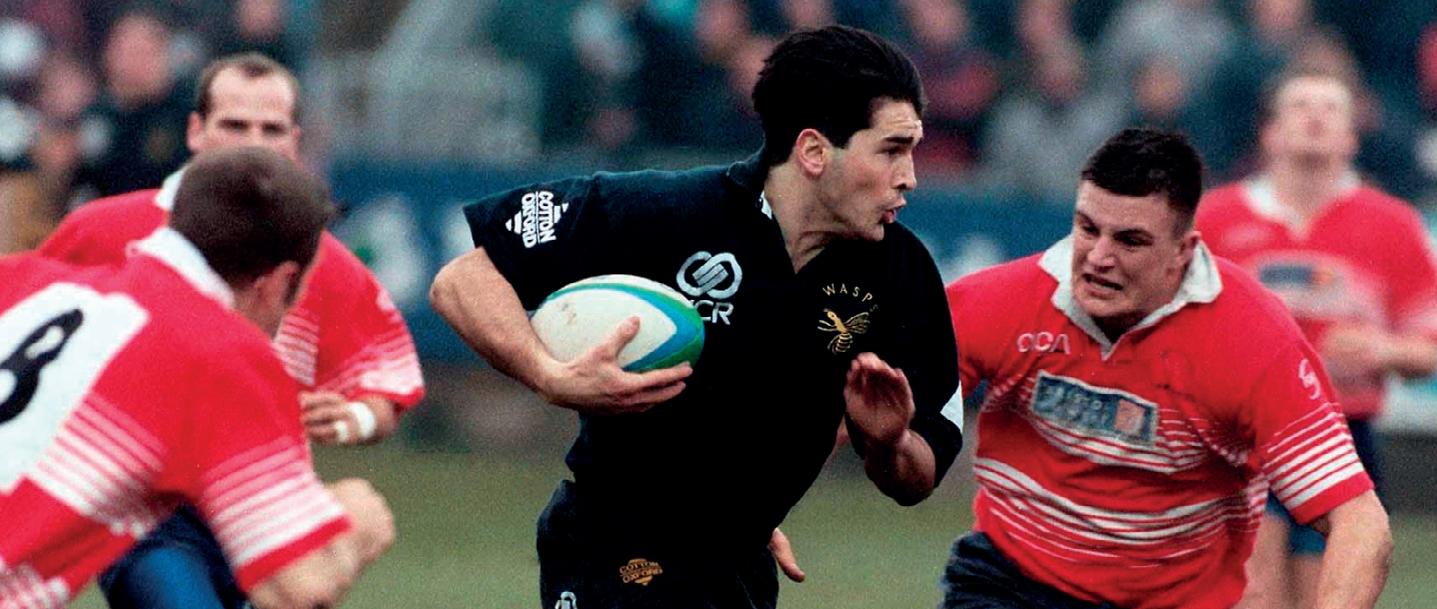
If you enjoyed some of the themes discussed in this article, please feel free to have a listen to our podcast, Talking to the Top, where we interview individuals such as the President of the Royal Academy of Arts, Rebecca Salter, and Actor, Hugh Bonneville. It is available on all streaming platforms, so we hope you enjoy listening!

DEPUTY HEAD CO-CURRICULAR
Mr Bennett (no not that one!) arrived at Sherborne as a Sports Coach for the start of the Michaelmas term in 2016 and left to become Headteacher of Hitchin Boys School in January 2024, which I make twenty-two terms (though not having benefitted from any of Tim’s lower school maths sets, I cannot be sure!). Whilst his CV alone at Sherborne is impressive enough, progressing from Sports Coach to Director of Rugby Coaching (September 2017), Assistant Head Co-Curricular (January 2019) and then Deputy Head Co-curricular (March 2019), this barely touches the surface when considering the impact and reach Tim has had on, and into, all aspects of School life.
It would be lazy of me to simply describe Tim through the lens of a rugby coach – held in the highest regard by boys and parents alike, not just at Sherborne but across the whole of the English Schools rugby landscape – to whom can be attributed twice taking teams to the semifinals of the National Schools Cup, as well as helping launch the careers of many boys now playing at Premiership clubs and representing their country. The secret to his success, beyond knowing every trick in the book when it came to the dark arts of forward-play, was the respect he had for the boys he was working with (at whatever level, age-group or standard) coupled with the absolute respect they had for him in return. That mutual respect extended way beyond his coaching endeavours be that as a Tutor, or in support of Alex in her time as Housemaster at the Green or even through his responsibilities for discipline across the School, the boys looked up to Tim and all that he stood for – firm yet fair, someone that listened and encouraged, and above all a decent man.
Clearly, I’ve not been a pupil at the School and therefore how he related to the boys is based solely on observation and feedback, what I have personally experienced was Tim as a colleague and indeed friend. His broad shoulders I know have been leant on by many and his empathy, kindness and integrity relied on by even more. No matter what he might have going on in the background (and trust me there was always a lot as he juggled a busy school life with an even busier home one!) what I will always remember of Tim was his ability to put others first no matter their role, finding the time to genuinely listen and offer assistance/help however he could. If that could be done over a pintale -winter; cider – summer (but only when temperatures got above 18°C) then so much the better!
Two terms in and he’s already making a Tim-sized difference at Hitchin – we should not be surprised.
I was going to finish with the classic Maya Angelou quote in relation to Tim about it not being about what he said, but more about how he made you feel (and sorry for paraphrasing as crudely as I have) but after a little bit of research I came across another of her quotes which I felt summed Tim up even better, “The things you (Tim) are passionate about are not random, they are your calling” – education, family, fairness and decency in equal over-sized portions. Vivat Mr B!!
David Cole
Patrick Bedford was an excellent colleague to all in the Business and Economics Department. His arrival was especially timely, in that we were just about to step into the unknown world of BTECs. His prior knowledge of something very similar to what we were going to offer was immediately attractive. His calm demeanour when dealing with coursework deadlines was one of the reasons that the boys have done so well in Enterprise and Entrepreneurship. Behind the scenes, he was working very hard to make sure that the boys got a chance to demonstrate their skills. Patrick also taught A levels Business in a most thorough, practical, and engaging way. Exam skills were subtly woven into every lesson and activity – all delivered with a wry sense of humour. Away from the classroom, he was an invaluable member of the Abbeylands house team. First as Senior Tutor and, when his other commitments grew, as a hugely supportive tutor. His flexibility was on show on Carey’s too. More of a gridiron (NFL) player and fan, he found some transferable skills to guide junior rugby teams. More comfortable in the Lent term on a football pitch, he guided several highly entertaining 2nd XI teams. Patrick was adept at cajoling the individuals into a team, whilst not letting the ‘characters’ take over. Once again, this was all done with a seemingly light touch and a big dollop of humour. It would be fair to say that the boys really liked Mr Bedford. They could see that he had their best interests at heart, knew his stuff and was prepared to go the extra mile for them.
Robert Harris
SPORTS CENTRE MANAGER
After twenty dedicated years working at Sherborne Sports Centre, a huge achievement in itself, we said goodbye to James Cattigan in June who moved on to a new challenge. James started out as a fitness instructor at the centre after leaving school, getting stuck into the role teaching a variety of classes including Aqua, Indoor Cycling and Swimming lessons. Always driven, James progressed and developed his passions, particularly in football and strength and conditioning where he began supporting the boys with their games sessions and coaching alongside his role. James went on to progress upwards through the team eventually taking on the role of Sports Centre Manager in 2020 whilst also studying for a degree and still managing to teach a class or two!
Throughout his last few years at the centre, James navigated some huge challenges including leading the Sports Centre team throughout the pandemic followed by our enormous redevelopment which has presented both challenges and rewards. James led the team during this transitional time with good humour and passion whilst keeping the centre open to both students and members. He was a huge influence towards building the strong team we have today.
Tessa Kelly
Amber joined Sherborne as a Maths teacher in 2010. Perhaps as a result of her own schooling at Bryanston, she has something of a rebellious nature, best characterised by her somewhat cavalier attitude to the School’s dress code and its car parking protocols it is this – as well as her expertise, patience and good humour as a teacher – which made her so popular with both pupils and colleagues alike. Over her thirteen years here, despite several extended absences for maternity leave, Amber has had an enormous impact in the classroom and beyond, and she will be sorely missed.
Amber is possessed of a restless spirit, as demonstrated by her constant desire to stretch and challenge her pupils, alongside her efforts as Second in Department to extend the range of activities, approaches and resources employed by the department – not to mention her seemingly ever-expanding family! It is this restless spirit which has resulted in Amber’s departure from Sherborne, as she heads off with Jamie and the children in tow, to begin a new life in Hanoi, Vietnam. We wish her safe travels, happy arrivals, and the very best of luck.
Claire Tatham
HEAD OF DRAMA
By the time Vicky Clayton began working at Sherborne in 1998 she was already well known to the staff, having arrived in the town through her career as a librarian in 1988, and from having been married to Steve (CR 1988-2019) since 1991.
Taking on the role of School Librarian at this time would have daunted many, the building and its contents being outdated, unwelcoming, and sparsely used by the boys. But Vicky set about effecting change with relish. The entire school catalogue of 42,000 sources was computerised to facilitate easier access and control. New collections of books, like a specific Junior Library, made the building more relevant, whilst regular events and literary evenings run by departments suddenly made it a more attractive place to frequent. Boys’ usage increased fivefold, both as a place for productive study and as a warm hub of pastoral wellbeing. Many boys from this time sought out Vicky for her wise counsel and friendliness.
Beyond her role in running the Library Vicky also found the time to develop as a teacher, passing her PGCE qualification in IT and Drama. This placed her at the vanguard of ICT growth for several years, culminating in her appointment as the Head of ICT. As a member of the IB steering committee (when the school briefly ran the IB course alongside A levels) she oversaw the Extended Essay module, and then ran the School’s EPQ programme. Never content to rest upon her laurels, a deep-rooted interest in the pedagogy of teaching and learning drove her to attain a Masters in Education, which led to her appointment as the School’s Head of Teaching & Learning. She pioneered the process of peer observation for teaching staff, whilst the Learning Matters magazine which she edited and published provided an accessible platform for shared ideas and good practice.More recently Vicky has been the Head of Curricular Drama, but her involvement with the department stretches back twenty years –initially as a teacher of the Third Form but then at both
GCSE and A level. Under her stewardship the number taking Drama at GCSE has burgeoned, necessitating the creation of two sets, with boys drawn both to the methodical detail of her teaching and the positive atmosphere generated in the classroom and drama studio. Additionally, she has directed numerous House plays and acquired a specific reputation for her skilful handling of the annual Junior Production.
Beyond the classroom and library, over the years Vicky has assisted with the running of the Duke of Edinburgh Award, Ten Tors and CCF, as well as tutoring in both The Green and Wallace. But it was in 2008 that she undertook another pioneering role as the School’s first female houseparent, and, to date, the School’s only appointment of a couple to run a boarding house when she and Steve jointly took over Abbeylands. Over the next 11 years the pair oversaw a regime encouraging individual growth and responsibility in all its different guises – academic, co-curricular and social - whilst at the same time promoting a strong sense of collective House identity. ‘Claytons’ Kitchen’ on Saturday evenings became an institution for the Sixth Form, but boys in all year groups thrived, and took pride in renaming their House ‘Happylands.’
The breadth and scale of Vicky’s involvement to the life of the School over the past 26 years highlights her seeming irreplaceability, not simply for the roles she has filled but for the warmth and generosity of spirit with which she has filled them. Vicky is loved by staff and boys alike and leaves a gap that will be felt keenly. But as retirement from teaching beckons, and as she uses her renowned culinary skills to begin a Third Age venture as a private caterer, we wish her well with new challenges and horizons, and thank her for the lasting contribution of a life well spent here.
Giles Robinson
TEACHER OF HISTORY
John Crouch joined the History department 13 years ago, after a career change from driving trains, via reading History at Oxford. An original thinker, voracious reader and natural anarchist, John definitely brought something different to the department and his teaching opened the minds and expanded the horizons of the boys beyond their Sherborne bubble. In my time as Head of Department, John took the lead in running the Britain 1906-1957: Wars and Welfare course, which went from strength to strength, and he leaves a legacy of ‘Crouch’s Fun Packs’ not only in the memories of those boys he taught, but for years to come! John also regularly produced the best GCSE results in the department, his mixture of storytelling and exam drill –and apparently the playing of rock music to start the lesson - working wonders with those boys who found the subject challenging as well as those for whom it came more naturally. He also often had a high number of boys in Third form choose GCSE history as a result of his enjoyable (and sometimes eccentric) lessons, where their feedback was always that he supported them as individuals, despite his claim never to learn their names! Outside of the department, John was an enthusiastic climber, canoeist and shot, perfect for a teacher at Sherborne, until injury meant that this was no longer possible. As a colleague, I could not be more grateful to John for his hard work, engagement, and personal support.
As Giles Reynolds – who hired John when he was Head of History – said in his leaving speech: John has been the rock in the History Department. He is a fine teacher, blessed with an ability to explain things clearly, and possessing high standards. He works the boys hard and achieves excellent exam results. Boys come away from being taught by Crouch with a love for the subject…He is a loyal, authentic and decent man who has been an excellent tutor in Lyon and The Green, but more importantly a fantastic colleague and friend, often doing the unseen work in the department that doesn’t score any points, but is done out of selflessness and a desire to help…the legend of Crouch will remain at Sherborne while his frail body hauls himself north for another mountain to climb.
Charlotte Allen
TEACHER OF DRAMA
As we bid farewell to one of our most dedicated and inspiring colleagues, it is impossible not to reflect on the incredible journey that has brought her to Sherborne School and the lasting impact she has made during her time here.
A graduate of Bristol University with a BA in Drama and English, she was awarded a scholarship to the Webber Douglas Academy of Dramatic Art. Her career began in Children’s Theatre, notably with the Scottish Children’s Theatre and Harrogate Theatre in Education (TIE). Her versatility shone through in various touring companies, including the renowned Hull Truck Theatre, where she performed in “September in the Rain” and “Lucky Sods,” written and directed by John Godber.
Her talent and passion for theatre led her to Pentabus Theatre, where she devised and performed new plays for rural audiences in Shropshire and Herefordshire. Her commitment to inclusivity was evident in her work with neurodivergent actors at Strathcona Theatre in London, where she directed plays and conducted workshops.
Her performances graced Repertory Theatres in Chesterfield, Derby, Leatherhead, and Liverpool. A highlight was performing in “Our Day Out” at the Liverpool Playhouse, directed by the acclaimed Willy Russell. Summers were spent at Pitlochry Festival Theatre, performing in five plays including “Lady Windermere” in the scenic Scottish Highlands.
Her international experience includes a tour of Noel Coward’s “Hay Fever,” which took her to ten Middle Eastern and Asian countries. Memorable moments included seeing the pyramids in Egypt on horseback and exploring Petra in Jordan from a mule’s back. In the West End, she performed in “April in Paris,” written and directed by John Godber, and “The Boys Next Door,” an American play in which she played a learningdisabled woman alongside Steve Guttenberg.
Founding EDC Inter/play with Hilary Earle (fellow LAMDA teacher), she used drama in business
management training through role play, forum theatre, and presentation skills. Their clients included Waitrose and the Devon and Cornwall police. The company thrived for a decade until the recession prompted a new direction, leading her to Sherborne School.
Living in Corscombe with her dog Rosie and cat Morse, she describes Sherborne School as her first “proper job,” transitioning from years of self-employment to a payroll position. Her early days were spent teaching from a corner in a Geography room, personalised by a flowery mat and posters. Progressing through various locations, she finally found her home in the Drama School, creating a cozy, albeit untidy, office filled with colourful noticeboards and a diverse collection of books and plays.
Starting with just ten boys one day a week, she grew the intake to seventy boys over four days, sharing the task with Hilary Earle and Romilly Swingler and feeling supported by Head of Drama, Victoria Clayton. Her highlights include helping students like Crispin Newman develop their mime artistry, guiding Bentley Creswell through his sensitive performance in “All My Sons,” and engaging in enlightening conversations with international students such as Aaron Che and Khalid al Saud.
She fondly recalls hilarious sessions with Oli Palmer and struggles with boys to develop clearer speech patterns. Despite some lowlights, such as the challenges of the Cranmer Prayer Reading Competition and the early days of feeling isolated at lunch, she now enjoys the camaraderie and especially the curries.
As she leaves, she does so with the knowledge that she has made a significant impact on her students and colleagues. Her dedication, creativity, and passion for drama have left an indelible mark on Sherborne School. We will miss her deeply and wish her all the best in her future endeavours.
Victoria Clayton
TEACHER OF SPEECH AND DRAMA
As I reflect on the illustrious career of Hilary Earle, it is a pleasure to share her remarkable journey and celebrate the contributions she has made to Sherborne School and the world of theatre.
After spending three enriching years in Drama School, her acting career began with a tour of the Highlands and Islands with Pitlochry Theatre in Education in 1975. This was the start of an adventurous and fulfilling career in repertory theatres across the UK, including stints in Lancaster, Worcester, Cheltenham, and Coventry.
In 1987, during a production of “Les Misérables” in the West End, she met her husband. This personal milestone was followed by a significant professional achievement when she joined the Royal Shakespeare Company (RSC). For two and a half years, she graced the stages of Stratford and the Barbican, performing in various productions such as “Romeo and Juliet,” “The Virtuoso” alongside the incomparable Freddie Jones, and notably, “The Two Gentlemen of Verona” with Hugh Bonneville. Hugh, an Old Shirburnian, was not only a master of verse but also had a legendary love for Pringles.
Her time with the RSC ended when she left the company four months pregnant with the first of her three children. This marked the beginning of a new chapter as she gradually transitioned from acting to being a dedicated at-home mum. To facilitate this change, she, along with fellow actor Barbara Darnley and her husband Steve, founded EDC Interplay. This company utilised their drama skills for business training, providing roleplay, vocal workshops, forum theatre, and valuable presentation skills to businesses such as Sony Ericsson and Waitrose. They also worked with the Devon and Cornwall Police for a decade on their Achieving Best Evidence courses, where they played vulnerable adults and victims of crime for police
officers to practice on—a testament to the practical application of her acting experience.
In 2001, she joined Sherborne School and Prep, after previously teaching the LAMDA syllabus at St Mary’s in Shaftesbury, Port Regis, and Bruton School for Girls. Her time at Sherborne has been marked by her passion for teaching and the deep connections she forged with her pupils. She fondly recalls working with a variety of charming, and occasionally challenging, young men. She cherishes the joy of seeing an initially unlikely student gain confidence and achieve a Distinction with 92% in his Acting Bronze Medal.
As she moves on from Sherborne School, she looks forward to a future filled with travel, reconnecting with old friends, spending more time with her grown-up children, indulging in choral singing, cooking, and enjoying cocktails with pals. While gardening may not be on her agenda (weeding is definitely off the table), she is excited about finally having the time to read her book-club book.
Her departure marks the end of an era for Sherborne School, but her legacy will undoubtedly continue to inspire both colleagues and students. Her contributions to the drama department, her unwavering support, and her infectious enthusiasm for theatre have left an indelible mark. We wish her all the best for the future and look forward to hearing about her new adventures.
She will be deeply missed, and her absence will be felt by all who had the privilege of collaborating with her.
Victoria Clayton
Sandra Fox joined Sherborne in 1987, and her retirement in 2023 brought to a close a 36-year career of tremendous devotion to the boys here. For much of that period, she worked in Abbey House, joining the domestic team in October 2000, before taking on the role of Assistant Matron in September 2008.
Such length of service in one institution is increasingly rare in the modern working world, but Sandra is, herself, a rare breed – one of those wonderful and kind people who commit so much to their jobs and to the people in their care, and who gain the greatest fulfilment from seeing others prosper and grow as a result. Those 36 years at the school, and those 23 years in Abbey House, are made up of countless hours of sewing, laundry, dispensing medications, chasing up the late and the untidy, and a thousand other things; but they are also made up of many hundreds of hours of something less tangible or measurable: the time that she has given to so many boys, the compassion that she has shown them, and the devotion that they have all felt.
Lest it ever be thought that our boys can sometimes take their privileged positions and the people who work so hard to support them for granted, I would give as counter-evidence the number of occasions when a boy would say ‘Is Sandra in?’ or ‘Is she coming to the dinner?’, or ‘Can she sit on our table?’ – small things, perhaps, but powerful nonetheless. The loud and long ovation she received from the boys in Abbey at her farewell, and the number of letters and emails that I have received from parents and pupils, both past and present, mourning her departure and wishing her well speak one truth more powerfully than anything: Sandra has been a much-loved member of our community and we will all miss her deeply.
Thank you, Sandra, and enjoy your well-earned retirement.
Hugh Tatham
Rebecca Fraser joined Sherborne as Head of Maths in September 2023, having previously taught at Gillingham School. She immediately proved to be an energetic leader, with a genuine enthusiasm for the business of teaching and learning mathematics. Hugely conscientious, she quickly made an impact and built on the strong reputation that Sherborne’s Mathematics department enjoys, proving herself to be an inspirational classroom teacher.
Alongside her work in the Maths Department, Rebecca has been a diligent and thoughtful Tutor in Abbey House; she has a lovely manner with the boys and is always challenging them to aim high. Indeed, aspiration and commitment have been the hallmarks of all that she does. She will be sadly missed but will – no doubt –make a huge success of her new role as Assistant Head at Sturminster Newton High School.
Claire Tatham
CO-ORDINATOR
It is with sadness that we said goodbye to Cathie at the end of the Michaelmas Term 2023.
Cathie left to start an exciting new chapter in her professional and family life, leaving Sherborne School to work alongside Zac, her husband, in their family business. Unsurprisingly, Cathie is still going to be very busy!
Cathie left a major gap, given the incredible knowledge, experience and expertise that she brought to the Pastoral and Safeguarding role. But perhaps more significant than that, with Cathie’s departure, the school community felt a significant loss in terms of emotional support and friendship which many of us have experienced from Cathie during her time at the School.
It is very hard to quantify this or even put it into words what we will be losing, but I am going to try with a mnemonic. – spelling Cathie’s name.
C – CARING. Cathie is a wonderfully caring lady, she cares for her colleagues, the pupils and the wider community having been involved in a wide range of community project and charities locally. She has a remarkable energy to care for others.
A – ALTRUISTIC. Cathie always put others before herself and regularly goes above and beyond to help. Even when she was putting together the staff safeguarding rota for the Christmas holiday following her final day, she put herself down to help out!
T – THOUGHTFUL. Cathie thinks of others, she worries about others, she often picks up on the little signs and signals that most would miss and makes sure people are ok and checks on them. She would make a great boarding tutor! If you have ever had the fortune to be her pigeonhole buddy, you will also know how generous she is.
H – HERO. We can all and certainly members of the Senior Leadership Team and Housemasters groups, think of a time when Cathie has saved the day – either from her proactive approach or ability to catch a dropped ball which has got many of us out of a fix or tricky situation.
I – INTUITIVE. Cathie has very good judgement – the times I have heard “I’m not sure, but I’ve got a feeling...” from Cathie, it’s a good steer and needs following up. Again, she would make a good boarding tutor or Housemaster.
E – ENTERTAINING. Cathie has a great sense of humour and perhaps this is essential in her role and the people that she has had to work with! We will all miss her humour and kind nature.
We wish Cathie the best of luck for the future in all that she goes on to do, grateful for all that she has done for Sherborne School.
Allister Sheffield
HEALTH & SAFETY ADVISOR/ ASSIST HOUSEMASTER HARPER
David took over the role of Health & Safety Advisor for the School in August 2019 – little did any of us know at that time, that our world was about to be turned on its head by the arrival of COVID just a few months later –what a time to take on such a role – but boy are we glad he did!! Whilst the School’s overall response to COVID was a clearly a team effort with many, many individuals and teams stepping up to, and indeed over, the plate routinely, again and again, David played a pivotal role in helping us navigate the safety aspects of what the School was having to contend with, often without a playbook to hand. Whilst policies for pandemics existed, no one had experienced anything of this scale, duration, or complexity – particularly within the full-boarding environment that is Sherborne. For his patience, advice, persistence, and detail over this period the School owes a huge debt of thanks to David.
The other side to David which would be lost if one judged contribution solely by role title was the time and enthusiasm, he gave initially to his tutoring role and then more latterly as an Assistant Housemaster for Harper House. Being a Health and Safety Advisor can be something of a lonely furrow to plough – whilst clearly of great importance, compliance isn’t always top of everyone’s “to-do” list, which did frustrate David from time to time. His way of balancing this was to throw even more of his energies into his tutoring, from which countless boys have not just benefited but also thrived. Whatever role/duty/responsibility David undertook from proctoring to assessing, tutoring to advising, he always did it to his absolute 100% best.
The School wishes him well in his new role at Charterhouse.
David Cole
After 14 dedicated years, Guy Harwood leaves the Biology department, having joined the school in 2010. His extensive knowledge and passion for science quickly earned him the position of Head of Science, where he led with distinction. Guy’s leadership, dedication to teaching, and unwavering commitment to the biology department have left an indelible mark on both his colleagues and students. His contributions to the academic success of countless students are immeasurable.
Beyond the classroom, Guy was deeply involved in the school’s co-curricular and sports programs, coaching a wide range of sports including 2nd XV rugby, tennis, athletics, fives, and squash. His passion for fostering students’ growth extended beyond academics; he was equally devoted to the pastoral side of school life, understanding that the well-being of students is key to their overall success. He served as a tutor in both The Green and Abbey House, later becoming Senior Tutor in the latter.
In the Turing Laboratories, Guy will be missed as a steady and supportive presence, always ready with a listening ear, wise advice, or invaluable expertise. As he embarks on a new chapter at the British International School in Washington, where he will continue teaching Biology, we wish him all the best for the future.
Jon-Paul Manning
In April we bade goodbye to Sherborne’s very own Star Baker at The Hub, the wonderful Terry Hawrylak. Terry spent eleven years baking cakes, making coffees, creating masterpieces and much more.
He not only baked cakes for The Hub but created many celebration cakes for our boys and the wider Sherborne community as well as devising delights such as the Sherborne Penny biscuit which was quickly followed by the Sherborne Prep Dragon biscuit, taking pains to include the history of each within labelling as well as working with our DT department who created bespoke cookie cutters.
We are incredibly grateful to Terry for his years of dedicated service and for the great many conversations he has had with boys, staff and customers that are ‘all in a days work’ but mean so much.
We won’t be saying goodbye to Terry forever, however, as he leaves us to work at the newly opened ‘The Sherborne’, the wonderful new centre for Arts ‘at the top of town.’
We wish Terry all the best for his new adventure.
Zoe Tucker
JACK HOWDEN DIRECTOR OF RUGBY COACHING
Jack joined Sherborne School in September 2019 from Bath Rugby where he worked for eight years both in the community and academy departments. He also coached the Somerset, Dorset and Wiltshire County teams alongside the Bath University Rugby teams.
His support of boys in all teams in all year groups enabled him to develop the Rugby programme at Sherborne, while his experience in elite sport at Bath Rugby benefited all those in the Sports Scholars’ HighPerformance Programme helping our ambitious sporting pupils learn about developing skills and knowledge both on and off the field. Jack supported all boys on the HPP in their Strength and Conditioning Sessions, while in the Trinity term coaching cricket to junior boys.
We thank him for all he did to advance Rugby at Sherborne, and for his contributions in the boarding house at Abbeylands.
Barny Allen
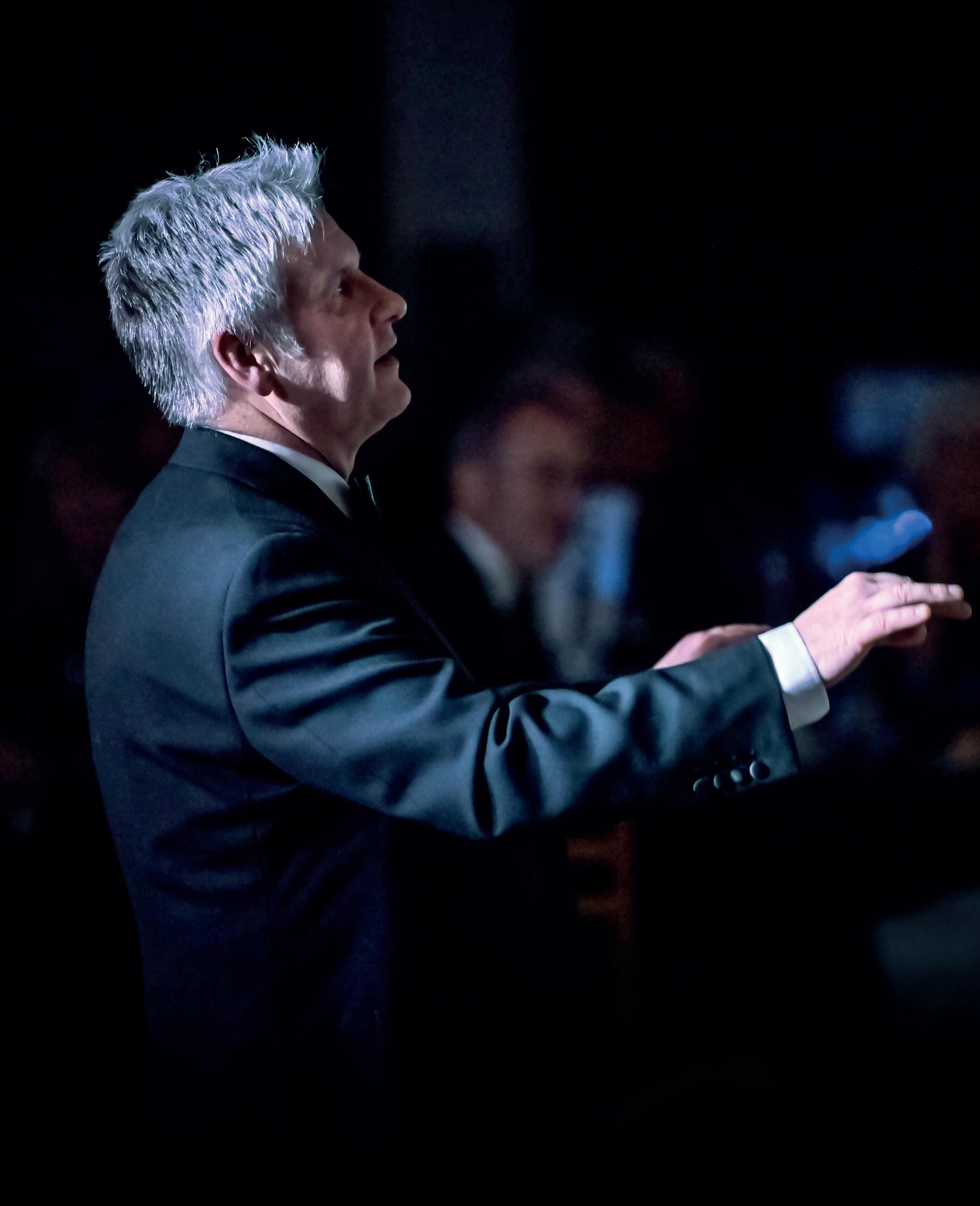
It was with a mixture of intense gratitude and great sadness that we said farewell to Jamie Henderson, our much-revered Director (and, latterly, Executive Director) of Music.
Jamie came to work at Sherborne in January 2005, albeit that he was already familiar with the School having been a boy in The Digby before taking up a place to read Music as Organ Scholar of Exeter College, Oxford. A fine musician, his teaching career included successful stints as Director of Music at Portsmouth Grammar School and as a Housemaster at Stowe before the magnetic attraction of Sherborne proved irresistible. Over the next two decades, he created something quite remarkable, turning Sherborne into one of the country’s most musically successful schools.
That success operated on two levels. At one end were those extraordinarily talented boys who were inspired to come to Sherborne by the high standards and commitment to musical excellence upon which Jamie insisted. Under his stewardship, ATCL and LTCL diplomas, a true rarity in even the most musical of schools, have become a frequent occurrence whilst the quality of competition at our major music competitions (the Halliday and Patrick Shelley) is further testament to the exceptional range and quality of individual performance which Jamie nurtured and oversaw. This in turn resulted in ever-higher standards among our vocal and instrumental ensembles. The Choir, now numbering over one hundred boys, leads our twiceweekly choral services in the Abbey and produces a sound that is as distinctive as it is beautiful. Meanwhile, instrumental music, ranging from the massed ranks of the Symphony Orchestra and Wind Band to the Swing Band, Jazz Band, and chamber groups, is of a quality that marks Sherborne out as quite possibly the country’s leading non-specialist school for music.
So much of this success is down to Jamie, to his passion, dedication, and devotion to leading his team of outstanding music teachers and inspiring the boys to make and to love music. And this is the second way in which Jamie’s impact has been so positive. For the enthusiasm that he engendered extends well beyond the ranks of our music scholars and exhibitioners, allowing music-making to be a genuinely inclusive activity. Other schools can only dream of the levels of musical participation that we enjoy, and Jamie has ensured that music pervades the School. Whilst his passions are to be found in the English choral tradition, the classical repertoire and the world of jazz, his mission has always been to encourage the boys to make music of whatever style or genre. That is why, under his watch, RocSoc and DJSoc have flourished and why so many boys have developed an enduring love of music during their years at Sherborne.
One particular mark of Jamie’s impact has been the quality of congregational singing in the Abbey. Motivating boys to sing hymns on Wednesday and Sunday evenings takes a special skill. The fact that our boys’ singing is so loud and proud is a tribute to Jamie’s ability to engage the young and to make music fun. I shall never forget a rendition of I Vow To Thee My Country during one of our recent Sunday evening services. So impressive was the boys’ singing that an admiring crowd of townsfolk gathered outside the Abbey to enjoy the sound of the School in full vocal flight. It was but one of many magical moments created by the Great Hendo.
Jamie’s impact upon Sherborne has been profound. Indeed, it is no exaggeration to say that the School is in such good shape today because of his work in creating for us a national reputation for musical excellence. It has been largely due to his outstanding reputation that so many talented young musicians have come to the School over the past twenty years, boys who have in many cases enriched not only the School’s musical culture but also its intellectual, sporting, and broader life and work.
It has been a pleasure and a privilege to work with Jamie, a feeling that I know is shared by his team in the Music School and many others besides. Alongside his Stakhanovite tendencies and insistence upon high standards and unfaltering commitment, he is also a deeply kind man who shows genuine care for others and values decency and integrity as much as musical success. He is also funny, interesting, generous of spirit and possessed of a gentle sense of mischievousness betokening a man who, for all his talents, does not take himself too seriously.
Sherborne owes Jamie a huge and lasting debt of gratitude. That debt extends also to Sammy, Jamie’s wonderful wife, who has afforded him such magnificent support during his tenure as our Director of Music. I will always be indebted to them both, not least for their encouragement, support, and friendship. As Jamie leaves us to refocus upon his own playing and composition, I wish them many years of happiness, contentment, and music-making.
THERE IS ONLY ONE JAMES (JIM) KIMBER!
There is only one James (Jim) Kimber! Well, actually, there have been two to grace the corridors of Sherborne in recent years but, that aside, I remember with great fondness my first meeting with James over coffee. My first day happened to be at the start of a new school year and we had just finished a staff meeting, when James wandered over. He seemed very interested in my outdoor background, quizzing me on my experiences and qualifications. I soon realised that I had inadvertently fallen for his charm and signed myself up for supporting the outdoor provision at Sherborne!
As James departs after his many years of dedication and service, it is impossible not to reflect on the profound impact he has had on pupils and colleagues alike. His contributions stretched far beyond the classroom, influencing generations of boys and staff with his professionalism, humour, and unwavering commitment to education and the great outdoors.
James had a remarkable way with the boys, and more recently with girls from Sherborne Girls too, particularly through his leadership in the Ten Tors challenge and the Duke of Edinburgh’s Award. His deep knowledge of the outdoors and impressive mountaineering skills were evident as he led the demanding 45-mile team for Ten Tors and the Gold DofE expeditions. James had a rare ability to create an environment where pupils could learn through experience, allowing them to make mistakes, but always ensuring their safety in a controlled way that pushed them out of their comfort zones. Often, they did not even realise they were being guided, feeling perhaps that they were out for a leisurely walk, but all the while picking up a vast number of valuable skills, a testament to James’ mentoring. During expeditions, his bright red coat could be spotted from miles away, a comforting sight in the wilds of Wales and Dartmoor. Whether it was navigating through the night or simply waiting for updates whilst ‘check pointing’ during events, James
made every moment memorable. His infectious love of the mountains and adventure inspired not just his pupils but also his colleagues.
One standout memory for many was a staff development trip to Scotland. James led the way as scrambling expert on the Aonach Eagach ridge—a thrilling (and slightly nerve-wracking) scramble through the Highlands. It was James’ steady hand and experience that saw the group safely through the adventure. James was always ready to lend a hand. He had a gift for staying calm and focused in a crisisqualities that made him a trusted figure in any tough situation - and, of course, his infectious sense of humour and good company made every adventure that much more enjoyable.
Reading all this, one could be mistaken for thinking James was some sort of superhero. Well, in many ways he was, but it turns out that cows are his kryptonite! During a Dorset Three Peaks Challenge, a marathonlength walk through Dorset’s hills, James’ not-sohidden fear of cows became apparent. With great agility, he leapt over a fence and hid in a hedge, leaving his comrades to play decoy! Finding alternative routes to avoid said ‘beasts’ turned out to be a speciality. It was these kinds of moments that made adventures with James so unique and unforgettable.
As Master in Charge of Climbing, James led many expeditions, both locally and further afield. Trips to places such as Portland and the Peak District are fondly remembered. He ensured that every experience was both exciting and safe, with pupils gaining not only climbing skills but also a deep appreciation for the natural world. He also promoted climbing competitions, giving pupils the opportunity to challenge themselves and grow in ways they never imagined. James had much to do with the drive and motivation behind building our own indoor climbing
complex, as part of the sports centre extension, his knowledge and expertise inspiring the development of this popular facility that the pupils now enjoy.
Beyond his love for the great outdoors, I understand James found time to undertake a spot of teaching and, in this role, he was a deeply respected member of the Physics Department. He taught A Level Electronics and GCSE Astronomy, where his enthusiasm for teaching and learning shone. He dedicated countless hours to helping pupils achieve their best, and his care and attention were appreciated by all who knew him. His commitment to education extended beyond his pupils as James was always keen to support the professional development of his colleagues, sharing his expertise and creating a culture of growth and learning within the department.
As James moves on to new adventures, it is clear that his absence will leave a significant gap. His impact has been immense and he will be greatly missed by all of us. Personally, I will miss his inspiration, his humour and his unshakable love for the outdoors.
James, thank you for everything you have achieved.You have inspired not just a generation of boys, but your colleagues too. We wish you all the best in your next chapter.
James Hull
HEAD OF ESTATES AND FACILITIES MANAGEMENT
Steve started his career at Sherborne Girls in 1998 as an apprentice electrician in the joint Estates team. After moving to Sherborne School in 1999, Steve began his journey gaining experience and qualifications which allowed him to take on more responsibility. In 2019 he was appointed Head of Estates and Facilities Management.
Over his time at Sherborne, he worked across what is now the Sherborne Schools Group site including the Sherborne International and Sherborne Prep sites. In addition to smaller-scale jobs, he worked on several major projects including the refurbishment of boarding houses, the International School site, and Sports Centres. Members of School staff have fond memories of working with Steve and reminisce about his sense of humour, good nature, and willingness to help others. Steve moved on to the Marchant-Holliday School in Wincanton in October 2023 to take up the welldeserved role of Chief Operating Officer.
Lucy Mackenzie
Lindsey joined the Geography department in January of 1990, so her retirement this summer comes after just shy of thirty-five years’ service, or a hundred and five terms to be precise. This places her in a rather elite group when one considers the average length of service is something nearer six years. It also means that when she arrived at Sherborne, the UK still had just four terrestrial TV channels, its population was smaller by eleven million, and nine of our current teachers were not even born. These are demographic statistics that should pique the interest of any geographer worth their salt, but the figure that shouts most loudly of the Sherborne of the time is that Lindsey’s arrival raised the count of women on the teaching staff to the grand total of two. Her departure marks the end of a trailblazing career and, though I know it will make her squirm, it is right that we should put on record her manifold achievements.
Lindsey emersed herself in the life of the School right from the start. The Geography department was particularly popular and busy in those early years and no doubt the regular residential field trips to places such as Germany, the Channel Islands, the Lake District, and Wales were part of the draw. Lindsey played a pivotal role in ensuring such trips were not only great fun, but also genuinely helpful for the boys’ studies, judging by the thanks expressed by them in reports to be found in the Shirburnian’s archives. As a teacher she was unfailingly dedicated to her pupils – we estimated about two thousand of them over the course of some twenty-three thousand lessons – and she seemed to have an uncanny knack when it came to coaxing the unwilling. Her use of cake to teach boys about plate tectonics and volcanoes was particularly popular. Lindsey broke the glass ceiling and became Sherborne’s first female Head of Department, running it most successfully until further promotion came her way.
Beyond the classroom, after a couple of terms of coaching the School’s swimming team, she found herself in charge of the sport, a role she fulfilled with
enthusiasm for the next 16 years. She was a much-loved tutor, serving at various periods in Westcott, Harper, Abbeylands, and School House. Parents of her tutees knew that she wanted the best for their sons and that she would work tirelessly with them to help them achieve their goals. He first love, though, was riding and all things equestrian, a passion she shared with the boys over many years.
Lindsey was always game for a laugh, and she was the driving force behind some quite spectacular fundraising events, including on one memorable Red Nose Day a fancy-dress race around the Courts, complete with water jump! She was a key organiser of staff social events too, including dinners in Bow House, casino nights and, on one occasion, a barbeque in Richmond Road with so much food that the only place that could be found to store the fish was in the bath.
In 2007, she was appointed as an Assistant Head and she joined the Senior Leadership Team in 2011, again blazing a trail. She carved out what seemed to be the perfect role here. Staff may remember her for the fact that she seemed constantly to be chasing them for one thing or another that they had failed to do on time. But much more of her time by far was spent ensuring that the boys who needed the most academic help received it. Quietly, without fuss, Lindsey was an advocate and champion for such boys, so many of whom would have fallen at the hurdle of public examinations without her caring guidance. She was also there for her colleagues, too, with a constant supply of chocolate and biscuits for those in need.
To mis-quote the School House boys who, in turn, mangled the lyrics of Queen’s Bohemian Rapsody in an inter-house singing competition in 2004, whilst Lindsey made a crowd-pleasing cameo appearance: “Miss Millar, we will let you go!”. We do so with heavy heart but deep gratitude for all you have done for Sherborne.
John Willetts
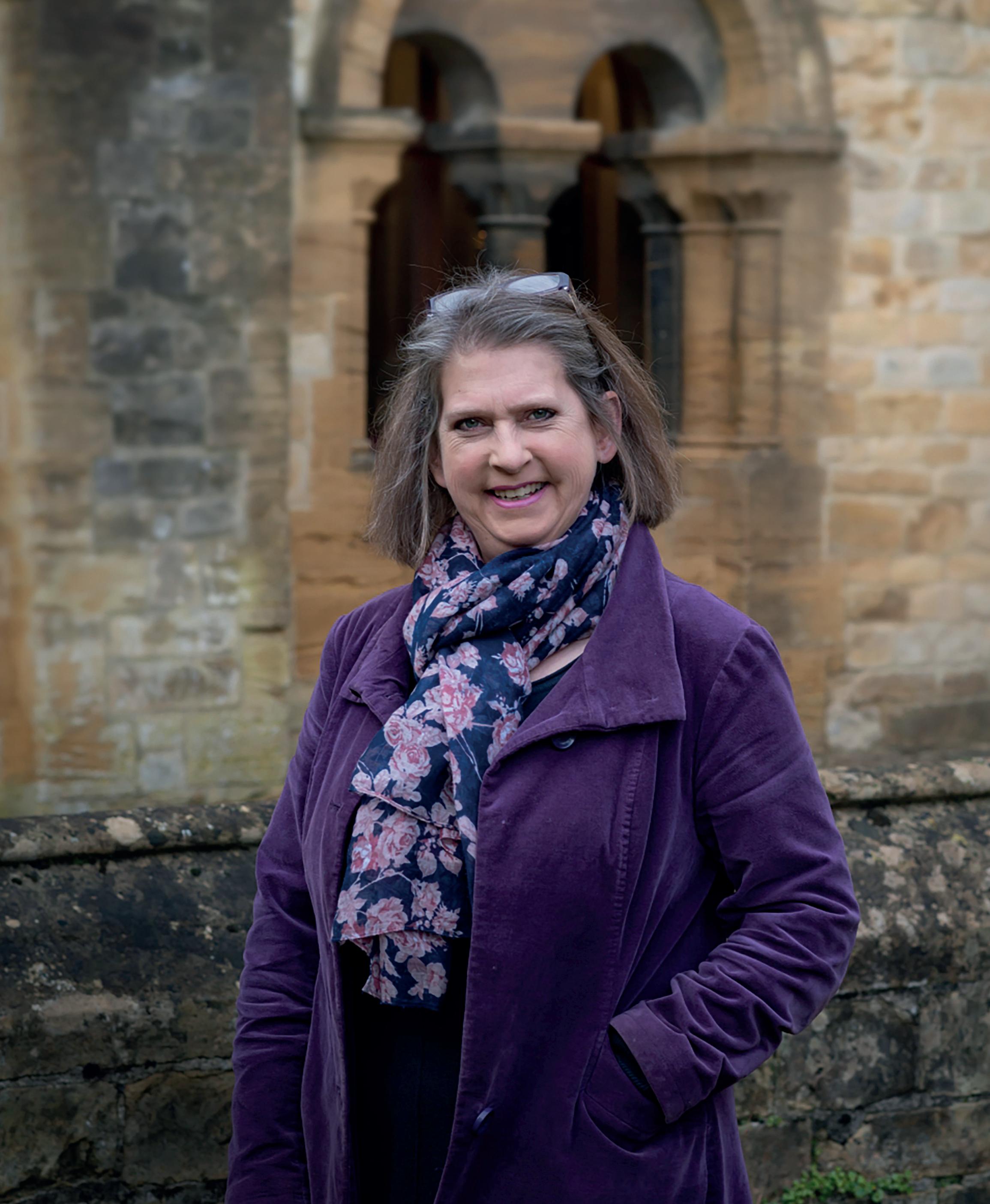
TEACHER OF BIOLOGY
Black and white, never grey. Is that a good thing or a bad thing?
On the one hand Jeremy has always been a man of strong principles, deep-rooted in a strong sense of right and wrong. A scientist, a Biologist. On the other hand, as he showed as a tremendously caring and successful Housemaster of Harper House from 2010 to 2020, there are always uncertainties when supporting boys through the ‘teenage tunnel’.
From his arrival at Sherborne having studied for his Doctorate at Birmingham University in Animal Welfare, Jeremy showed himself to be a schoolmaster in the truest sense. The boys came first, generosity of time was never a question, wise counsel was always forthcoming, and there was vibrant life outside of the classroom to be explored. His running of the Sub-aqua Club from 1998-2005 was a case in point. However, sport was always his driving passion, and a vast number of boys have benefitted from his skill, vision, and ability to get the very best out of them, whether on the tennis courts, where he was Master in Charge from 2005 –2009, or on the hockey pitches, from the Under 14’s to the 1st’ XI. As Master i/c hockey from 1998 – 2004 he organised tours to Barbados and Barcelona, bringing in high quality coaches, and raising the profile and standard of hockey. Under his guidance the U14 were County Champions 5 times, and West champions and National finalists in 2018. Jeremy is an accomplished hockey player himself having played for Harborne in the National League, and he continues to play regularly, and, despite retiring from teaching will remain as a specialist hockey coach at Sherborne School.
Whilst the Sports department can continue to benefit from Jeremy, it is goodbye to the Biology department. When he arrived he was very much the junior new boy in the department. Much to his pleasure or annoyance with the title, he remained so for the next 7 years until senior colleagues made way for a younger team. From the start, he was a subject enthusiast and exuded this in the classroom. He was adept at getting the most from his pupils, across the age ranges. No matter the capabilities of his charges, Jeremy cared about all of
them reaching their potential. He always gave time in class and outside the timetable to help boys with difficulties. Lessons were always professional and meticulously planned and delivered in a way that pupils felt encouraged and fully engaged. Being the ‘new boy’, Jeremy was the technology buff of the department and had a huge impact in getting the department to move into the 21st century. He was the go-to man for all in the department. He loved being a part of the close-nit Biology team, with this positivity spread into his teaching. Relationships with pupils were free, honest and open and it was appreciated by all that he showed justice and fairness.
It is clear that Jeremy’s firm belief in the importance of the welfare of the boys was always at the forefront of his actions. In readiness for Housemastering he was a tutor in Abbey House and Senior Tutor in Harper, Lyon and Abbeylands, and when he came out of Harper as Housemaster I am sure that the boys in The Green will have benefitted from his wisdom in tutorials and calm presence when on duty. As Housemaster of Harper House the importance of thought for others was always paramount. One only has to look at the number of Harper boys who were awarded the highest accolade of The Bow Award to see the tremendous impact the Jeremy had on the house. A very strong sense of community, for the boys and all staff associated with the house was always evident in Harper, and incredibly important to Jeremy and Stephanie, his wife. And this is why it was such a happy place and why so many OS speak so fondly of their time there: what higher accolade could there be for an ex-Housemaster.
Black, white, grey, and all the other colours in between can now be enjoyed in (semi) retirement as Jeremy has more time to head off to explore the wide world in his beloved camper van. We say a big ‘thank you’ and ‘best wishes’.
Alistair Hatch
Rachel Akerman
Art Technician
Liam Atherton
Fixed Term Choral Scholarship
Arthur Hope-Barton
Fixed Term Organ Scholarship
Jemma Beardshaw
Assistant Matron - Abbey House
Harry Brinsden ICT Apprentice
Magnus Bushby
Fixed Term Choral Scholarship
William Chadwick
Head of French
Rebekah Clayton
Marketing Manager (Maternity Cover)
Philippe Cosentino
Teacher of French and Spanish
Robert Cousin
Teacher of Economics and Business
Andrew Cranfield
Teacher of Bagpipes
Andrew Debney
Teacher of Mathematics
Conor Doherty
Sports Intern
Jake Dowling ICT Technician Apprentice
Louis Fletcher
Fixed Term Choral Scholarship
Suki Gauvin
Senior Events Manager
Gervase Gordon
Teacher of English
Giorgia Gotke Teacher of Italian
Sarah Hadley Head of Psychology
Angharad Price-Hughes Teacher of English
Matthew Nordin Teacher of Trombone and Heavy Brass
Darryl O’Connor Teacher of French and Spanish
Adrian Patterson IT Service Desk Manager
Isabel Platt
Assistant Matron – The Digby
Ryan Smith Head of Estates (Hard Facilities Management)
Sue Spencer Pastoral & Safeguarding Co-ordinator
Ness Stockton
Assistant Matron - Abbeylands
Romilly Swingler
Director in Residence (LAMDA)
Abigail Taylor
Teacher of French and Spanish
Emma Wimhurst
Teacher of Business and Enterprise
EDITORIAL BOARD
LOUISE SMITH
ZOE TUCKER
WITH THANKS
This edition of The Shirburnian was made possible by the outstanding creativity and hard work of many people in the school community. We are grateful to all boys and staff who have contributed to this edition.
PHOTOGRAPHY BY Josie Sturgess-Mills, Mark Stuart, Tom Soper, Ollie Senneck, Jerry Bo, Len Copeland, Gillman & Soame, and others.
House photographs have been reproduced by kind permission of Gillman & Soame photographers and can be ordered online at www.gsimagebank.co.uk/sherborneschool/t/btx3me2024
SHERBORNE SCHOOL
ABBEY ROAD
SHERBORNE DORSET DT9 3AP 01935 812249 | enquiries@sherborne.org www.sherborne.org

facebook.com/SherborneBoysSchool

twitter.com/SherborneSchool sherborneschool


youtube.com/user/TheSherborneSchool

Flickr.com/sherborneschool

